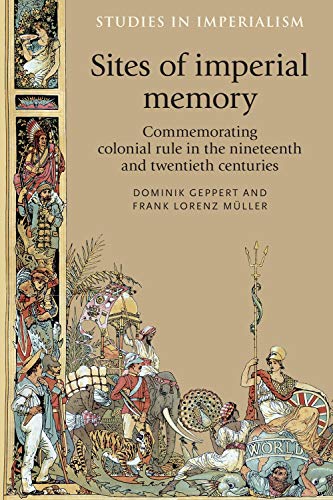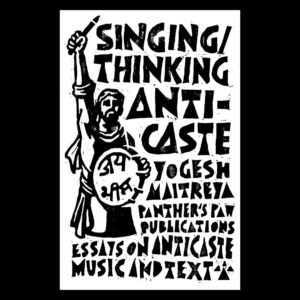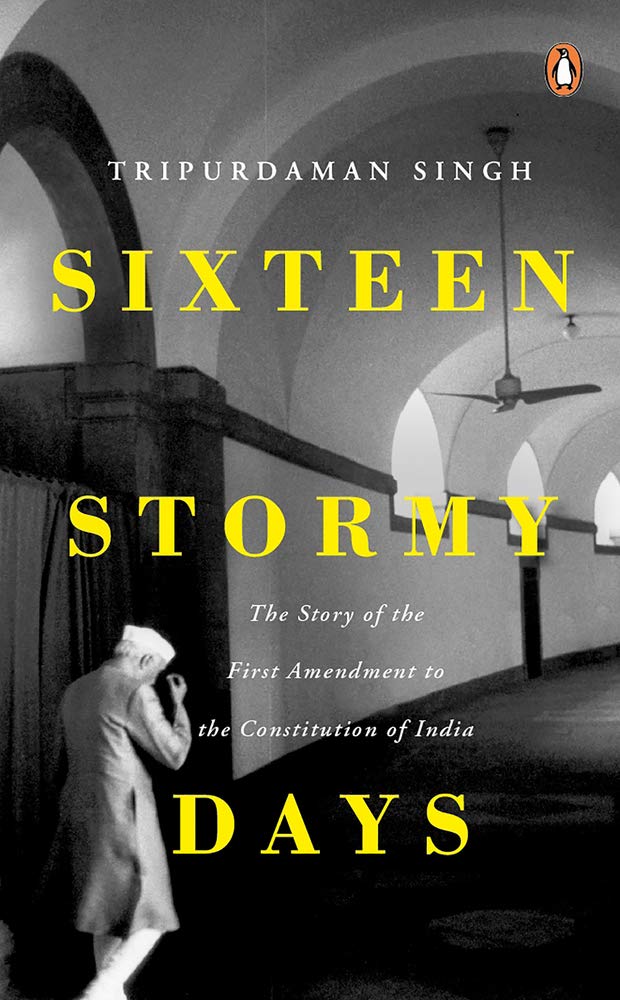ARCHIVE
An Indian in New York (1913-1916)

A young Ambedkar during his Columbia University days. Wikimedia Commons.
Young Ambedkar’s emerging academic understanding of caste was helping him give systematic expression to his many prior years of the lived experience of systemic caste prejudice. Alongside and as impetus to this were also his widening experiences regarding issues of race, class and gender. To some extent, this new exposure was a result of his coursework at Columbia. But much of this exposure came more concretely, from treading the streets of upper Manhattan and Harlem.
Describing his usual New York day, Ambedkar emphasized that the vast majority of his time, some 18 hours daily, was spent on campus, either attending lectures and seminars, or otherwise working in Columbia University’s magnificent and exceptionally-stocked Low Library. But he often ate off of campus, opting to eat only one meal per day to save both time and money. For food he spent on average $1.10 daily, which would buy him a cup of coffee, two muffins, and either a meat or a fish dish. He was on a tight budget. New York City living was not cheap, and he had to send money home to his family as well. But that was not all. His voracious reading habit, that had been cultivated in young Ambedkar within the shadow thrown by the Bombay-gothic tower of Elphinstone, had only grown stronger atop the grand staircase of the Roman-neoclassical library of Columbia. Ambedkar was now in the first stage of what would turn out to be a life-long obsession with collecting books. He spent all the leisure time that he had browsing Manhattan’s numerous second-hand book shops and sidewalk stalls, amassing a personal library of some 2000 volumes during his three-year stay.
The quest for books led young Ambedkar out of upper Manhattan down to 42nd street on Fifth Avenue, where the imposing beaux-arts styled New York Public Library had recently opened its doors, and opened them to all – including to black people and to women. So impressed was Ambedkar with the public library that upon learning of the death of Sir Pherozeshah Mehta in Bombay, and the Bombay municipality’s plan to prominently erect his statue, Ambedkar shot off a provocative letter from New York to the Bombay Chronicle, the English-language weekly that Mehta had himself launched in 1910. Ambedkar, fresh from another inspiring visit to the New York Public Library, argued in his letter that erecting a public library in Bombay instead of a ‘trivial and unbecoming’ statue would be a far better tribute to the memory of this great man:
It is unfortunate that we have not as yet realized the value of the library as an institution in the growth and advancement of a society. But this is not the place to dilate upon its virtues. That an enlightened public as that of Bombay should have suffered so long to be without an up-to-date public library is nothing short of disgrace and the earlier we make amends for it the better. There are some private libraries in Bombay operating independently by themselves. If these ill-managed concerns be mobilized into one building, built out of the Sir P.M. Mehta memorial fund and called after him, the city of Bombay shall have achieved both these purposes.
It is unfortunate that we have not as yet realized the value of the library as an institution in the growth and advancement of a society. But this is not the place to dilate upon its virtues. That an enlightened public as that of Bombay should have suffered so long to be without an up-to-date public library is nothing short of disgrace and the earlier we make amends for it the better. There are some private libraries in Bombay operating independently by themselves. If these ill-managed concerns be mobilized into one building, built out of the Sir P.M. Mehta memorial fund and called after him, the city of Bombay shall have achieved both these purposes.
The week following Pherozeshah Mehta’s death in Bombay, Booker T. Washington died in Tuskegee, Alabama. Washington, who had been born into slavery, was the most prominent Southern black activist of his day. As Principal of the Tuskegee Institute and author of a best-selling autobiography, Up From Slavery, Washington’s work and writings would have been well known to Ambedkar. Indeed, he would have heard his name prior to reaching America given that his patron, Maharaja Sayajirao Gaikwad, had long before taken to referring to the great social reformer Jotirao Phule, author of Gulamgiri (or, Slavery) as ‘India’s Booker T. Washington’.
The streets of upper Manhattan were beginning to buzz with a new black consciousness that expressed itself not only socio-politically – as for example with the writings and activism of W.E.B. DuBois and the National Negro Committee (which would soon become the NAACP) – but also aesthetically, with emerging literary, theatrical and musical innovations that would set the stage for the later Harlem Renaissance.
Besides his letter to the Bombay Chronicle, Ambedkar sent off numerous letters to family and friends in India during his stay in New York. The letters show that Ambedkar was as attuned to issues regarding gender as he was to those regarding race. One worth mentioning was addressed to a friend of his father, a retired Jamedar of the Indian army, also from the Mahar caste. In it, he implored the recipient – who was the father of a young girl gaining notoriety for having made it all the way to 4th standard in school, unheard of for a Mahar girl – to preach the idea of education to anyone from their community who was willing to listen to him. Ambedkar wrote that he should continue the education of his daughter, and that the entire community would progress more quickly if males and females were educated side-by-side, with no difference between them.
This letter, too, can be seen to reflect the environment Ambedkar now found himself in. For, alongside the emergence of a new black consciousness, New York City was also buzzing with the tireless activism of suffragists demanding the enfranchisement of women in America. And some of the most dynamic of these suffragists were young Ambedkar’s fellow Columbia classmates – and some, as luck would have it, turned out to be his favourite professors.
This letter, too, can be seen to reflect the environment Ambedkar now found himself in. For, alongside the emergence of a new black consciousness, New York City was also buzzing with the tireless activism of suffragists demanding the enfranchisement of women in America. And some of the most dynamic of these suffragists were young Ambedkar’s fellow Columbia classmates – and some, as luck would have it, turned out to be his favourite professors.
The summer just prior to Ambedkar’s arrival at Columbia, his soon-to-be classmate, Chinese-born Mabel Ping-Hua Lee was one of fifty horse-back suffragettes leading a procession of 10,000 people up Fifth Avenue to Carnegie Hall. Among those marching were Ambedkar’s future philosophy professor John Dewey and his future economics professor Vladimir Simkhovitch. In the spring of 1914, Lee published, in a campus paper, an article entitled ‘The Meaning of Woman Suffrage’, advocating for equality of educational opportunities and the economic liberation of women. In terms identical to those Ambedkar would himself utter frequently in his later speeches, Lee referred to ‘equality of opportunity’ as the essence of ‘democracy’. To her, feminism meant ‘nothing more than the extension of democracy or social justice and equality of opportunities to women’.
Lee, supervised by Simkhovitch, and Ambedkar, supervised by Seligman, were together enrolled in the course leading toward the PhD in economics at Columbia’s Graduate School of Arts and Sciences. Later, Mabel Lee would become the first Chinese woman to earn a doctorate in economics in the United States, just as Ambedkar was one of the first Indians (and certainly the first Dalit) to do so.
Vladimir Simkhovitch, apart from being Lee’s doctoral supervisor, was one of the world’s leading experts in socialist economics and Marxist thought. Ambedkar enrolled in his Econ 114 (Marx and Post-Marxian Socialism), Econ 303 (Seminar on Political Economy), Econ 109 (History of Socialism), Econ 242 (Radicalism and Social Reform), and Econ 119 (Economic History) – that’s five full courses on Marxism and socialism! At least for some of these courses, if not out of wider interest, Ambedkar would have had to have purchased some of Marx’s original writings; books by Marx must have been among the 2000 volumes that he had acquired while in New York. As we will later learn, the vast majority of these 2000 books never made it back with Ambedkar to India. Several of them, such as the writings of John Dewey, Ambedkar subsequently repurchased elsewhere. But curiously, we can find none of Marx’s books among Ambedkar’s extant library. It seems that his later experience with Brahmanical Indian Marxists so soured Ambedkar’s view of Marx that he never even bothered to replace his lost books.

John Dewey (left) and Edwin Seligman (right). Ambedkar’s professors at Columbia University.
One book that Ambedkar purchased in New York that clearly made it with him to India, as apparent from his inscription, was Mrs Rhys Davids’ Buddhism: A Study of the Buddhist Norm (first published in New York in 1912). This book focused on the most ancient, Pali sources of the Buddhist tradition. Ambedkar inscribed the first page in his hand, ‘Columbia Varsity, New York’, and then later on the right-hand side adjacent to it, ‘Bombay, India’. The book and its inscription both show a continuity of his interest in Buddhism, initiated by Dada Keluskar years before.
Of course, Ambedkar’s main focus of study, and the degree toward which he was working, was economics. The study of ancient Buddhism proved useful toward the first iteration of his Master’s thesis, entitled ‘Ancient Indian Commerce’, which may have first been written up as an original research paper for submission as a component of the MA examination. About 75 pages of this manuscript are extant, first covering the trade and commercial relations of ancient India with ancient Egypt, west and east Asia, and then the Greeks and the Romans. Ambedkar strikes a proud, nationalist tone in the work, citing sources to emphasize the superior science, technology and splendours of ancient India over ancient Europe:
It is in the orient, especially in these countries of old civilization, that we must look for industry and riches, for technical ability and artistic productions, as well as for intelligence and science, even before Constantine made [the Roman empire] the centre of political power. Nay, all branches of learning were affected by the spirit of the orient, which was her superior in the extent and precision of its technical knowledge, as well as in the inventive genius and ability of its workman.
It is in the orient, especially in these countries of old civilization, that we must look for industry and riches, for technical ability and artistic productions, as well as for intelligence and science, even before Constantine made [the Roman empire] the centre of political power. Nay, all branches of learning were affected by the spirit of the orient, which was her superior in the extent and precision of its technical knowledge, as well as in the inventive genius and ability of its workman.
Remember that Ambedkar was by now thoroughly familiar with the political, economic, and intellectual history of classical Europe and Ancient Rome, so his claims regarding ancient India’s technical superiority were not merely rhetorical.
‘Ancient Indian Commerce’ then goes on to treat of India’s commercial relations in the Middle Ages, covering industry, trade and commerce throughout the rise of Islam and the expansion of western Europe. The next couple of chapters are missing, and the extant thesis ends with a chapter entitled ‘India on the Eve of the Crown Government’. In this chapter, too, Ambedkar exhibits a fierce nationalism, excoriating British imperialism and taking to task historians of British India who misrepresent the achievements of India prior to the arrival of the British: ‘Not only have they been loud in their denunciation of the Moghul and the Maratha rulers as despots and brigands, they cast slur on the morale of the entire population and their civilization’. What follows are 20 pages of argument and evidence, replete with tables, graphs and charts, of how India systematically contributed to the prosperity of Britain, while itself consistently degenerated, being beaten down and sucked dry.
This tour-de-force of Indian nationalist commercial and economic history then concludes with these damning words:
The supplanters of the Moghuls and the Marathas were persons with no better moral fiber, and the economic condition of India under the so-called native despots was better than what it was under the rule of those who boasted being of superior culture. It is with industries ruined, agriculture overstocked and overtaxed, with productivity too low to bear the high taxes, and with few avenues for display of native capacities, the people of India passed from the rule of the Company to the rule of the Crown.
The supplanters of the Moghuls and the Marathas were persons with no better moral fiber, and the economic condition of India under the so-called native despots was better than what it was under the rule of those who boasted being of superior culture. It is with industries ruined, agriculture overstocked and overtaxed, with productivity too low to bear the high taxes, and with few avenues for display of native capacities, that the people of India passed from the rule of the Company to the rule of the Crown.
American academia was far more accommodating of this magnitude of critique of British imperialism than either British or Indian universities were. Nevertheless, for reasons still unknown to us, Ambedkar abandoned the topic of ancient Indian commerce as his MA thesis, and instead drafted and submitted a much more technical, scope-limited, and positivist text entitled ‘Administration and Finance of the East India Company’. The most likely explanation is that Professor Edwin Seligman had been assigned as Ambedkar’s supervisor, and Seligman was a no-nonsense, technical economist, who viewed the subject of economics as a fact-based, impartial ‘science’. Seligman taught Ambedkar ‘the Science of Finance’, and was averse to the introduction of subjective viewpoints. As Seligman would write 10 years later in a Preface to Ambedkar’s published Ph.D., ‘The value of Mr. Ambedkar’s contribution to this discussion lies in the objective recitation of the facts and the impartial analysis…’.
The officially-submitted thesis, at only 45 pages in length, avoided speaking of history at all (the opening line reads: ‘Without going into the historical development of it…’), and was more restrained in claims regarding the systematic cultural destruction and impoverishment of India by the British. Nevertheless, in the end, Ambedkar exhibits the irrepressibility of his innate need to call out injustice, and closes the thesis with these reproaching words:
It remains, however, to estimate the contribution of England to India. Apparently the immenseness of India’s contribution to England is as astounding as the nothingness of England’s contribution to India….England has added nothing to the stock of gold and silver in India; on the contrary, she has depleted India—‘the sink of the world’.
It remains, however, to estimate the contribution of England to India. Apparently the immenseness of India’s contribution to England is as astounding as the nothingness of England’s contribution to India… England has added nothing to the stock of gold and silver in India; on the contrary, she has depleted India—‘the sink of the world’.
The thesis was accepted by Seligman and passed, and on 02 June 1915 Ambedkar was awarded the degree of Master of Arts in Economics. He had completed the requisite 30 credit hours for the M.A., but 60 credit hours were required for a doctorate. He thus continued in his coursework and in his research and writing, and from that point on, all the credits were counted toward the completion of his Ph.D.
Ambedkar continued working on the ‘science of finance’ as the subject of his doctoral dissertation under Seligman at Columbia. The tentative title for his Ph.D. thesis was ‘The National Dividend of India’, a historical and analytical study of Indian finance. But interestingly, following the award of his M.A. in economics, nearly every course that Ambedkar enrolled in as credit toward his Ph.D. in economics were non-econ courses. After the summer of 1915, Ambedkar took only one economics course (econ 183, on Railways); all of the rest were in languages (French and German), History (4 courses), Philosophy (4 courses), Politics (1 course), and Anthropology (4 courses).
All four of these Anthro courses were taught by Alexander Goldenweiser, himself a student of Franz Boas, the ‘father of American anthropology’. Boas also taught Anthropology at Columbia, in fact he co-taught a course with his friend John Dewey during the same semester that Ambedkar was attending Dewey’s philosophy course. In short, there is no doubt that young Ambedkar was exposed to the modern anthropological method of Boas. One of the primary features of Boas’ approach was his flat rejection of racial typologies which were so popular in late 19th-century anthropology. These racialist theories attributed fixed mental and physical characteristics to specific races. Boas (and indeed Dewey and Goldenweiser) rejected race as the dominant characteristic of a peoples and emphasized far more malleable and conditional characteristics such as culture, history and psychology instead.

Dr. BR Ambedkar presiding over the joint Columbia Bicentennial – American Alumni Banquet at National Sports Club of India, New Delhi, October 30, 1954. Columbia University.
In May 1916, Ambedkar wrote an extensive and innovative research paper for one of Goldenweiser’s general ethnology courses, where the influence of Boas’ ideas against racial fixity is clear. In addition to opposing a basic Marxist tenet about class antagonism that Ambedkar learned from Simkhovitch’s courses, also discernable within the paper are many echoes of Ambedkar’s everyday experiences regarding race and gender from his wanderings away from campus. In the paper, entitled ‘Castes in India: Their Mechanism, Genesis and Development’, Ambedkar argued that caste was a distinct social category that could not be accounted for either by theories of race or by class antagonism. Rejecting the standard explanation of the racial origins of caste popular in colonial ethnography (i.e. a consequence of Aryan invasions wherein the darker-skinned earlier inhabitants were subjugated) and rejecting the dominant sociological claim that caste was maintained through a hierarchy of purity and pollution, Ambedkar boldly asserted that the essence of caste was the control of women’s sexuality – foremost, the practice of endogamy.
In the paper, entitled ‘Castes in India: Their Mechanism, Genesis and Development’, Ambedkar argued that caste was a distinct social category that could not be accounted for either by theories of race or by class antagonism. Rejecting the standard explanation of the racial origins of caste popular in colonial ethnography (i.e. a consequence of Aryan invasions wherein the darker-skinned earlier inhabitants were subjugated) and rejecting the dominant sociological claim that caste was maintained through a hierarchy of purity and pollution, Ambedkar boldly asserted that the essence of caste was the control of women’s sexuality – foremost, the practice of endogamy.
Ambedkar was exceptionally proud of the work. A year later, it became his first scholarly publication, appearing in the professional journal The Indian Antiquary. Later, when publishing his Ph.D. dissertation as a book, he is described on the title page as the ‘author of Castes in India’. Years later, in 1944, when he was publishing a third edition of his explosive essay Annihilation of Caste, he revealed that the third edition had been delayed for so long after the print run of the 1937 second edition was exhausted because he had been trying to find the time to recast Annihilation of Caste ‘so as to incorporate into it another essay of mine called Castes in India’. Indeed, even Ambedkar’s latest writings from the 1950s, when he was nearing the end of his life, referenced assertions that he had first posited as a young doctoral candidate at Columbia.
In many ways, Ambedkar’s ‘Caste’ paper captured everything other than ‘the science of finance’ that Ambedkar had learned and discovered, both on and off campus, during his three formative years in New York. The formal structure of this rich education was giving shape to his profound lived experiences being Dalit – all of those childhood experiences that he had written about in his autobiographical fragments, Waiting for a Visa – forging an uncommon and unprecedented concatenation of events that helped to make Ambedkar the extraordinary person that he was.
This excerpt has been reproduced with permission from Aakash Singh Rathore from the book Becoming Babasaheb: The Life and Times of Bhimrao Ramji Ambedkar: Birth to Mahad (1891-1929) written by Aakash Singh Rathore. All rights reserved. Unauthorised copying is strictly prohibited. You can buy the book here.
ARCHIVE
Contesting Power – Contesting Memories: the Obelisk at Koregaon
The obelisk at Koregaon is characterised by a surprising commemorative history. A memorial to a bloody encounter within an imperial war, this monument provides a case study which illustrates that contestations of memories often bear the imprint of contestations for hegemony that are played out in the present.
The obelisk at Koregaon in Western India, built as a demonstration of empire builders’ belief in their own power and military prowess, serves a similar function today, but for a different group of people: the former Untouchables who had collaborated with the colonizers against what they perceived as a tyrannical indigenous regime.
The recently emerged tradition of an annual pilgrimage to the memorial, should be seen as an effort at creating and popularizing an alternative culture of the former Untouchables, now known as Neo-Buddhists. While Indian society grapples with the problem of accepting the equality of its various castes, one can witness different pathologies of memory surrounding the monument. Today, both amnesia and pseudomnesia are associated with the Koregaon memorial, defying the locus of a person in the discourse on social justice in present-day India. The memorial had faded into oblivion from British public memory long before the end of the imperial rule. However, it has undergone a metamorphosis of commemoration and now signifies something quite different from what was originally intended.
The Battle of Koregaon and its Memorial
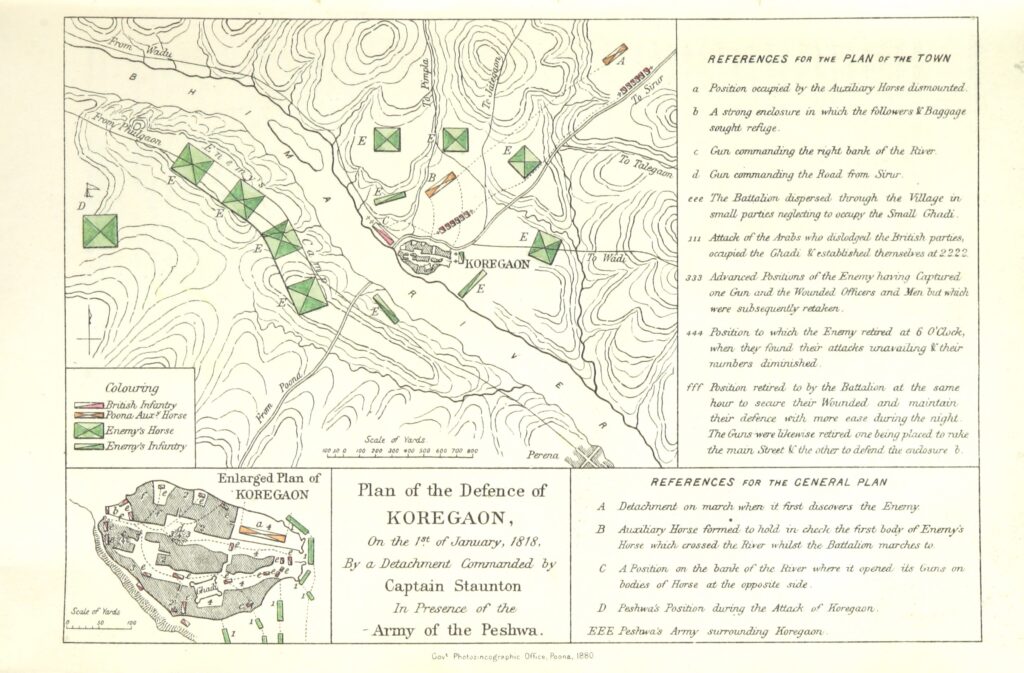
British defence plan during the Battle of Koregaon from Gazetteer of the Bombay Presidency (Ed). Sir James M. Campbell, p. 259. Published in 1896. British Library.
The political ascendancy of the British East India Company in Eastern and Northern parts of India dates back to the battle of Plassey in 1757. From then on it gradually began extending its political hold to the other parts of India. During the same period, from their base in Pune in Western India, the Peshwa rulers (1707-1818) were also extending their political influence. Clashes between the Peshwas and the Company seemed inevitable. On 1 January 1818, a battalion of about 900 Company soldiers, led by F. F. Staunton from Seroor to Pune, suddenly faced a 20,000-strong army commanded by the Peshwa himself. The encounter took place at the village of Koregaon on the banks of the river Bheema. In the words of Grant Duff, a contemporary official and historian, “Captain Staunton was destitute of provisions, and this detachment, already fatigued from want of rest and a long night march, now, under a burning sun, without food or water, began a struggle as trying as ever was maintained by the British in India.” The battle was not decisively won by either side, but in spite of heavy casualties, Staunton’s outnumbered troops managed to recover their guns and carry the wounded officers and men back to Seroor.
As it was one of the last battles of the Anglo-Maratha wars, which ended with a complete victory of the Company, the encounter quickly came to be remembered as a triumph. The East India Company wasted no time in showering recognition on its soldiers.
While Staunton was promoted to the honorary post of aide de camp by the Governor General, the battle received special mention in Parliamentary debates next year. A memorial was commissioned and a year later, Lt Col Delamin, who was passing by the village, could already witness the construction of a 60-foot commemorative obelisk.
The Koregaon memorial still stands intact today. It is supposed to commemorate the British and Indian soldiers who ‘defended the village with so much success’ when the British East India Company confronted the Peshwa army in a ‘desperate engagement’. Marble plaques adorn the four sides of the obelisk. The two plaques in English are accompanied by translations into the local Marathi language. The Memorial Plaque declares that the obelisk is meant to commemorate the defence of Koregaon wherein Captain Staunton and his corps “accomplished one of the proudest triumphs of the British army in the East.” Soon after, the word ‘Corregaum’ and the obelisk were chosen to adorn the official insignia of the Regiment. In the Parliamentary debates in March 1819, the events were described as follows. “In the end, they not only secured an unmolested retreat, but they carried off their wounded!” In his volume published in 1844, Charles MacFarlane quotes from an official report to the Governor calling the engagement “one of the most brilliant affairs ever achieved by any army in which the European and Native soldiers displayed the most noble devotion and the most romantic bravery.” Twenty years later, Henry Morris confidently added: “Captain Staunton returned to Seroor, which he entered with colours flying and drums beating, after one of the most gallant actions ever fought by the English in India.” Later chroniclers of colonial rule continued to shower praise on the plucky Company force for displaying “the most noble devotion and most romantic bravery under the pressure of thirst and hunger almost beyond human endurance.” In 1885, even the ‘Grey River Argus’, a newspaper published in far-off New Zealand, described the battle in glowing terms. After the turn of the century, though, the colonial commemoration began to fade and gradually the event slipped from Britain’s public memory. The battle is now only mentioned in specialized literature on military history as an example not of British martial capabilities, but of that of the Sepoys.
Memories: ‘Ours’ and ‘Theirs’
Today the memorial finds itself just off a busy highway toll booth – a common site in the post-globalisation Indian landscape. Every New Year Day, the urban middle classes who need to use the highway, remind each other to avoid the particular stretch of the highway that passes by the memorial. Their reason for doing so is that “those people would be swarming their site at Koregaon.” Indeed, the memorial has become a site of pilgrimage attracting thousands of people who gather there every 1 January. If one asks the pilgrims what brings them together, there is a clear answer.
“We are here to remember that our Mahar forefathers fought bravely and brought down the unjust Peshwa rule. Dr Ambedkar has started this pilgrimage. He asked us to fight injustice. We have come to take inspiration from the brave soldiers and Dr Ambedkar’s memories.”
Initially, one might be baffled by this admiration for the native soldiers who fought on the British side and lost their lives in a fight against their own countrymen. A careful scrutiny of the list of casualties inscribed on the memorial reveals, however, that twenty-two names from amongst the native casualties listed end with the suffix “-nac”: Essnac, Rynac, Gunnac. The suffix ‘-nac’ was used exclusively by the untouchables of the Mahar caste who served as soldiers. This observation becomes particularly relevant when considered within the context of the caste profile of the Peshwas, who were orthodox and high-caste Brahmin rulers. The story of Koregaon is thus not just about a straightforward struggle between a colonial and a native power. There is another important but largely ignored dimension to it: caste.

Peshwa Bajirao II, who fought at the Battle of Koregaon. Coloured lithograph, Chitrashala Press, Poona, 1888. Wellcome Collection.
The Peshwas, Brahmin rulers of Western India, were infamous for their high caste orthodoxy and their persecution of the untouchables. Numerous sources document in great detail that under the Peshwa rulers, the ‘untouchable’ people who were born in certain so-called low castes were given harsher punishments than high-caste people for the same crimes. They were forbidden to move in public spaces in the mornings and evenings lest their long shadows defile high-caste people on the streets. Besides physical mobility, occupational and social mobility were also denied to these people who formed a major part of the population. Human sacrifices of ‘untouchable’ people were not uncommon under these eighteenth century rulers who had framed elaborate rules and mechanisms to ensure that the untouchables stayed just as their name suggests – untouchable. In 1855, Mukta Salave, a 15-year-old girl from the untouchable Mang caste who attended the first native school for girls in Pune, wrote an animated piece about the atrocities faced by her caste:
‘Let that religion, where only one person is privileged and the rest are deprived, perish from the earth and let it never enter our minds to be proud of such a religion. These people drove us, the poor mangs and mahars, away from our own lands, which they occupied to build large mansions. And that was not all. They regularly used to make the mangs and mahars drink oil mixed with red lead and then buried them in the foundations of their mansions, thus wiping out generation after generation of these poor people. Under Bajirao’s rule, if any mang or mahar happened to pass in front of the gymnasium, they cut off his head and used it to play “bat ball,” with their swords as bats and his head as a ball, on the grounds.’
Peshwa atrocities against the low-caste people have remained ingrained in public memory to this very day.
When the East India Company began recruiting soldiers for the Bombay Army, the untouchables seized the opportunity and enlisted. Military service was perceived as a means to opening the doors of economic as well as social emancipation. Political freedom and nationalism had little meaning for a population who had to choose between a life where the best meal on offer was a dead buffalo in the village and a life where their human dignity was respected – not to mention a decent monthly payment in cash.
While the untouchable soldiers fought on the British side against their own countrymen, the valour they showed is not at all perceived as a shameful memory today. In fact, Koregaon has become an iconic site for the former untouchables as it serves as a reminder of the bravery and strength shown by their ancestors – the very virtues that the caste system claimed they lacked. The memories related to the Koregaon memorial, help to explain how a memorial of colonial victory built in the early nineteenth century has been adapted to serve as a site that gives inspiration to the formerly untouchable people of India.
Mahars and the Military
Throughout much of the nineteenth century, the battle of Koregaon and the memorial were warmly remembered amongst military, imperial and political circles in Britain. At the beginning of the twentieth century, though, British rule was firmly established all over India, and the Koregaon Memorial faded from mainstream commemorative practices. Neither Britain at the height of colonial glory, nor India, which was beginning to receive small doses of independence, had time to commemorate the violent struggle of the days of the Honourable Company. Other lines of tradition were broken, too. The Mahar regiment had continued to demonstrate its bravery and loyalty in the battles of Kathiawad (1826) and Multan (1846). But then, in spite of the low castes’ long-standing military alliance with the British, some Sepoys from the Mahar Regiment, which formed a part of the Bombay Army, joined the “Indian Mutiny” in 1857. This added to a certain reluctance the British had always shown at the enlistment of Mahars. Subsequently, they were declared to be a non-martial race and their recruitment was stopped in May 1892.
Once their recruitment was discontinued, the Mahars soon began to feel the pinch. Gopal Baba Valangkar, a retired army-man founded a ‘Society for Removing the Problems of Non-Aryans.’ In 1894 the members of this society sent a petition to the Governor of Bombay to remind him that the Mahars had fought for the British to acquire their present dominion over India and requested a reconsideration of the decision to exclude Mahars from the Martial races, which deprived them of entry into the military service. The petition was rejected in 1896.
Another leader of the untouchables, Shivram Janba Kamble made an even more sustained effort to achieve the emancipation of the Untouchables. He had been involved in the work of the ‘Depressed Classes Mission’ which ran schools for untouchable children. In October 1910, R. A. Lamb of the Bombay Governor’s Executive Council was invited as the chief guest for a prize-giving ceremony in one of these schools. In his speech, Lamb mentioned his annual visits to the Koregaon Memorial. He drew attention to the ‘many names of Mahars who fell wounded or dead fighting bravely side by side with Europeans and with Indians who were not outcastes’ and regretted that ‘one avenue to honourable work had been closed to these people.’ It is not known whether it was Lamb’s speech that put the Koregaon Memorial back into the limelight or whether it had remained in living memory.
His words certainly lent weight to the argument that it was the Mahars who fought for the British and made them ‘masters of Poona.’
Within the first two decades of the twentieth century, Kamble organised a number of meetings of the Mahar people at the memorial site. In 1910, he arranged a grand Conference of the Deccan Mahars from 51 villages in Western India. The Conference sent an appeal to the Secretary of State demanding their ‘inalienable rights as British subjects from the British Government.’ They made a strong case for letting Mahars re-enter the army and argued that the Mahars were ‘not essentially inferior to any of our Indian fellow-subjects.’ Up until 1916 this request was repeated by various gatherings of untouchables in Western India. As the First World War gathered momentum, the Bombay government eventually issued orders in 1917 providing for the formation of two platoons of Mahars.
The Coming of Ambedkar
The happiness of the Mahars was, however, short-lived. Recruitment was stopped as soon as the war ended. This led to a renewed campaign for recognizing the valour of the Untouchables. By then, the demand had long since assumed the level of a movement for the general emancipation of the Untouchables. Within this campaign the Koregaon Memorial had become a focal point. Various meetings were held at the obelisk during which Kamble and other leaders invariably reminded the Untouchables of the valour and prowess exhibited by their forefathers. On the anniversary of the Koregaon battle on 1 January 1927, Kamble invited Dr Bhimrao Ramji Ambedkar to address the gathering of Untouchables. Ambedkar was not merely another leader of the untouchables. He was by now, as far as Indian politics was concerned, a force to be reckoned with.
Ambedkar was born in 1891, the son of a retired army subhedar from the Mahar caste. In spite of his first-hand experience of caste-based discrimination, he attained a doctorate from Columbia University, a D. Sc. from London School of Economics and was called to the Bar at Gray’s Inn by the age of 32. In 1926, he became a member of the Bombay Legislative Assembly.
He could not fail to appreciate the significance of the memorial for advancing the cause of the emancipation of the Untouchables. Not only did he make an inspiring speech at the gathering, he also supported the idea of reviving the memory of the valour of the forefathers by an annual pilgrimage to the site on the anniversary of the battle.
As a representative of the Untouchables, he was invited by the British to the Round Table Conference in 1931 where the future of the Indian Nation was to be decided. Based on his arguments at the conference, he wrote a small treatise called The Untouchables and the Pax Britannica in which he referred to the Koregaon battle to support his argument that the Untouchables had been instrumental in the establishment and consolidation of British power in India.
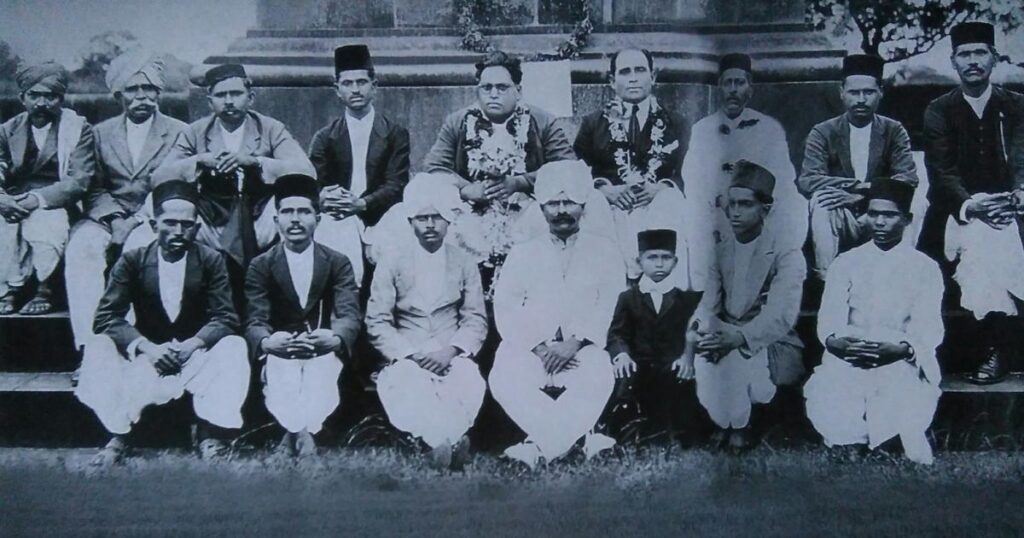
BR Ambedkar and his followers at the Koregaon victory pillar on 28 December 1927. Wikimedia Commons.
Indian mainstream politics from the 1920s until 1947 is recognised as the Gandhian era. Gandhi, having been born in the middle order caste of traders, had a different outlook on the systemic exploitation of the Untouchables on the basis of caste. He called the Untouchables Harijans, meaning people of God. Ambedkar and his followers resented both this name and the patronising attitude behind it. Underlying this surface issue, there were major ideological differences between Ambedkar and Gandhi. For the India represented by Gandhi and the Indian National Congress, the primary contradiction was that between colonial supremacy and Indians’ aspirations for political freedom. For Ambedkar and the Untouchable masses he represented, the oppression was not primarily located in the political system but arose from the socio-economic sphere. There was a clash of interests. The Indian National Congress under Gandhi sought to represent all Indians in a unified front against the colonial rule. Although Ambedkar was, unlike some “sections of Dalits and non-Brahmans who believed that colonial rule had been an unambiguous liberating force”, by no means a staunch supporter of British rule, he had quite a different new India in mind. While Gandhi saw the ideal social order arising from a reformed Hinduism, Ambedkar sought “political representation independent of the Hindu community.” In 1930, Gandhi embarked upon the Civil Disobedience Movement against the systems and institutions of the colonial rule. Kamble and a few other representatives of the depressed classes retaliated by launching what they called the “Indian National Anti-Revolutionary Party”. Its manifesto was quoted in The Bombay Chronicle:
In view of the fact that Mr Gandhi, Dictator of the Indian National Congress has declared a civil disobedience movement before doing his utmost to secure temple entry for the “depressed” classes and the complete removal of “untouchability”, it has been decided to organise the Indian National Anti-Revolutionary Party in order to persuade Gandhiji and his followers to postpone their civil disobedience agitation and to join whole-heartedly the Anti-Untouchability movement as it is… the root cause of India’s downfall…. The Party will regard British rule as absolutely necessary until the complete removal of untouchability…
Though this party did not attract much support in mainstream politics, it demonstrates that for the Untouchables, social and economic well-being was of greater and more immediate concern than political freedom, and hence colonial rule was regarded as a possibly necessary evil for the time being. It also shows that there were other and often contradictory voices in the independence movement of India. These have often been glossed over in nationalist rhetoric.
A New Memory
India won her independence in 1947, and Ambedkar chaired the committee tasked with the drafting of the new constitution. The ‘annihilation of caste’, however, remained a distant dream. The Hindu Code Bill proposed by Ambedkar in order to bring about extensive reforms in the Hindu socio-cultural scene was not accepted by parliament. In 1951 a disillusioned Ambedkar resigned from the Cabinet. Five years later, under his leadership, millions of Untouchables converted en masse to Buddhism in a step towards attaining total freedom from exploitation. The same year, after Ambedkar’s death, a political party, called the Republican Party of India, was formed to represent the interests of the low-caste people.
The conversion opened the floodgates for cultural conflicts with the high castes. The immediate reaction of the Hindu right was one of denial. The strategy of cultural appropriation that has worked so well for Hinduism from the times of the Buddha is employed even today to project the Buddhists as just another sect within Hinduism.
For the neo-Buddhists, this necessitated the creation of new and different cultural practices. Amongst the neo-Buddhists in western India one of the invented cultural practices that emerged as a result is the pilgrimage to the Koregaon Memorial. Thousands of neo-Buddhists throng to the memorial every New Year’s Day to commemorate the valour of the Mahars who helped to overthrow the high caste rule of the Peshwa. They also commemorate the visit of their leader, Dr. Ambedkar, on 1st January 1927.
Unlike any Hindu pilgrimage site, the Koregaon memorial is devoid of the tell-tale signs of a holy marketplace. No sellers of garlands and sweets and images of Gods are to be found here. It is a deserted place all through the year. However, come New Year, the place is dotted with little stalls selling books, cassettes and compact disks. Various publishers of Ambedkarite literature set up their stalls of books. Neo-Buddhist songs are played loudly in the stalls extolling the greatness of Ambedkar and emphasizing the need to change the world. Leaders of the now numerous factions of the Republican Party of India address their followers. Neo-Buddhist families visit the memorial obelisk. They offer flowers or light candles. An important part of the ritual is to offer a Vandana, a recital of verses from Buddhist texts.
An equally important element of their ritualised behaviour is the buying of books. Interviews with various booksellers have shown a surprising fact: whenever there is a gathering or a pilgrimage of the neo-Buddhists, the bookstalls do roaring business. It may be interesting to note that the average length of books sold at these stalls is short – volumes of 30-70 pages priced between 10 to 50 rupees. It might be an indication of the fact that the readers may be neo-literate, have very little time to spend on reading and can only afford cheaper books. Many publishers of related literature have indicated that their daily sales figures at the Koregaon pilgrimage and other such important pilgrimages (eg. Mumbai and Nagpur) often exceed their sales figures for the rest of the year. It could be perceived as an indication of the belief in emancipatory potential of education among the neo-Buddhists, especially of the former Mahar caste. Some of the best-selling titles include Marathi translations of books authored by Ambedkar himself, eg. Buddha and His Dhamma, Annihilation of Caste, Who Were the Shudras? Other popular books include Dalit autobiographies. They also sell Dalit poetry and small biographies of Dalit leaders.
These books offer a Dalit perspective on Indian history wherein colonial rule is portrayed as instrumental for emancipation, even though it remained ignorant of realities of caste exploitation. Jotirao Phule and Ambedkar are among the prominent Dalit writers who propounded this view of the colonial rule in which Gandhi and the movement for India’s independence do not figure very positively. The fact that Ambedkar chaired the Committee that created the Indian Constitution in 1950, however, is considered supremely important. Any attempt to criticise or seek a change in the Indian Constitution, therefore, provokes fierce opposition from the Dalit population. The anti-corruption movement led by Anna Hazare and his team in 2011 is a recent example. The extra-constitutional structure to create a powerful ombudsman (Lokpal) for resolving the issues of corruption was not welcomed by Dalit leaders and public.
The Importance of Forgetting
Though the Koregaon Memorial was constructed by the Colonial rulers, it does not feature on the commemorative landscape of today’s British public. This amnesia might be attributed to the fact that the colonial memories, especially of violent battles are no longer the object of pride in present-day Britain. This amnesia is matched by the high castes in India. Poona, the capital of Peshwas has become a software and education city called Pune. When a sample of 130 members of the high caste, newly rich people (who have come to be nicknamed as Computer Coolies) were asked about the Koregaon memorial, none of them knew what it was.
Elite amnesia is not total, though. There are also, what may be called conflicting memories. During the 1970s the Western Indian state of Maharashtra witnessed a spate of popular (a)historical novels topping the best-seller lists in Marathi. Many of them dominate the historical understanding and perceptions of the Marathi-speaking middle classes even today. Two important novels from this genre, both authored by Brahmins, describe the battle of Koregaon in passing. Mantravegla by N. S. Inamdar is based on the life of the Last Peshwa. It claims that the battle was, in fact, won by the Peshwas. Recently, this trend of creating alternative memories about the Peshwa battles has become even stronger. The battle of Panipat, which saw a complete defeat of the Peshwa armies in 1761, is commemorated today by high-sounding rallies. The kind of rhetoric used during these rallies suggests that it was the Peshwa who won the battle.
The Koregaon Memorial occupies a very significant place in today’s neo-Buddhist culture. The internet and other electronic media are used to document and commemorate the Koregaon battle and Ambedkar’s visit to it. An image search for Koregaon Pillar yields hundreds of digital pictures of the Memorial Obelisk. Film clips are available on Youtube. At least a dozen blogs in English and Marathi have entries related to the Koregaon memorial. They describe the battle and the role of the Mahar soldiers and also remind the readers about what the Untouchables could achieve if they show the resolve.
Conclusion
The obelisk of Koregaon Bheema is thus a site which has generated conflicting memories. These memories represent the divergent interests of the groups involved in their creation. Those wishing to commemorate the greatness of the Peshwa rule – the symbol of high caste supremacy – either choose to ignore the Koregaon battle, or create a Pseudomnesia of Peshwa victory. While the obelisk marks an imperial site of memory that is largely forgotten in the homeland of the empire, the monument has undergone a metamorphosis of commemoration in Western India.
It no longer reminds the public of imperial power, but for the former Untouchables whose forefathers fought at Koregaon it serves the purpose of providing “historical evidence” of the ability of the Untouchables to overthrow the high caste oppression.
Considering the fact that Indian society is still dominated by the system of caste hierarchy, the Koregaon Memorial is also a reminder that present-day contestation for hegemony is often manifested in contesting memories.
This paper has been carried out courtesy with the permission of Shraddha Kumbhojkar. It has been presented without its abstract, citations, footnotes and bibliography for purposes of easier reading.
The paper has also been published in Sites of Imperial Memory, (ed.) Dominik Geppert, Frank Lorenz Muller, Manchester University Press, Manchester, New York, 2015. as Politics, Caste and the remembrance of the Raj: the Obelisk at Koregaon. You can buy the book here.
ARCHIVE
The Diary of Mahadev Desai
March 10, 1932
I had not the faintest idea that such a day as this would dawn for me. But I did once dream in Nasik prison that I was all of a sudden taken to Bapu in Yeravda prison and that I fell at his feet, crying all the while and unable to check my tears.
Roche came to me in the morning and said, “You are being transferred from here; you get ready in one hour.” I asked him, “Where will they take me?” He replied, “You will be happy and thankful when you know it but I must not say a word.” I asked to meet Dr. Chandulal Desai but my request was turned down. We left Nasik at nine. The policemen who escorted me were the same as had a few days ago accompanied Vitthalbhai here. One of them turned out to be an old acquaintance of the days when Bapu saw Lord Reading. He remembered the date correctly — June 17, 1921. He was then a bearer to Sir Charles Innes. He had subsequently served elsewhere and was now in the police.
When Akbar Ali embraced me with tearful eyes and told me from his closed cell about his prayerful wish that I should be kept with Gandhiji, I said, “You may pray for me, but can I be so lucky as that?” He replied, “True, but I can only hope and pray.” What stories had I heard about Akbar Ali! But he showered his affection on me, and his prayers bore fruit. Pyarelal used to tell everybody at Nasik that they had fixed this up with Martin. This was also true though I regarded it as a mere joke.
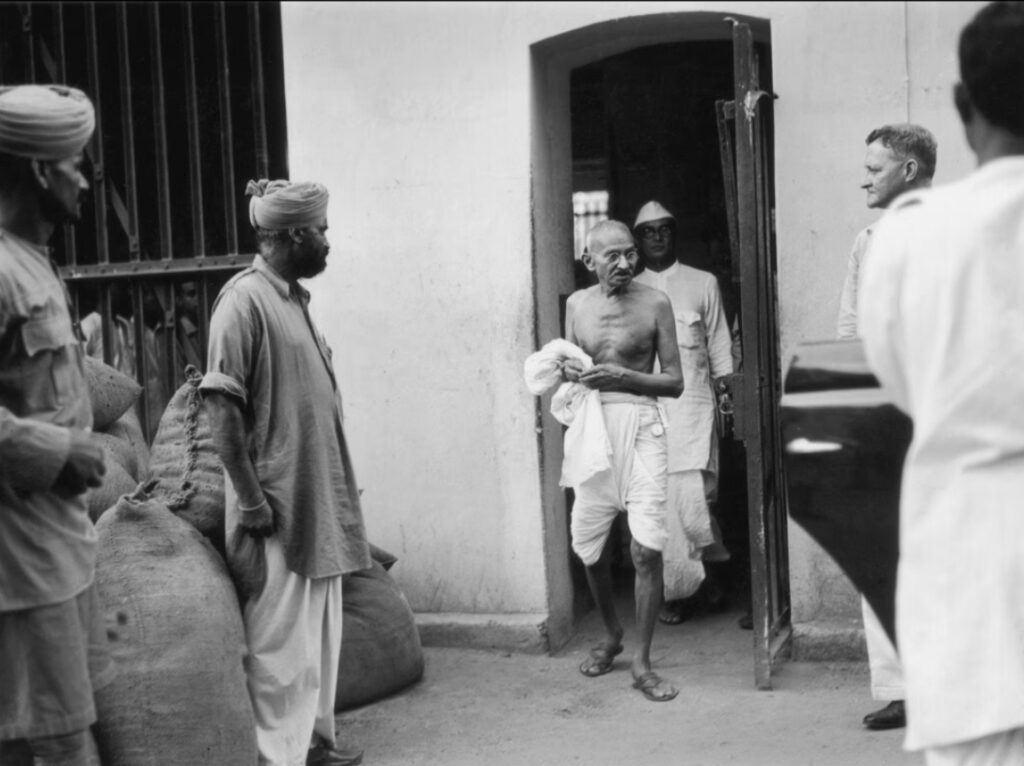
Gandhi in jail
I was received rather coldly at Yeravda prison and I feared they just wanted to get rid of me at Nasik, without keeping me in Bapu’s company here. Then came Kateli, smiling, and asked me to go with him. He was informed at four in the morning that I was to be kept with Gandhiji. Bapu too was surprised when I placed my head at his feet. He patted me on the back, the head and the cheeks more fondly than ever before. I felt deeply grateful but was overwhelmed by a sense of my unworthiness. Later I learnt from Bapu and the Sardar that Shri Purushottamdas also had a hand in bringing me to Yeravda. Last time Dahyabhai did say that — had done the needful.
Bapu too was surprised when I placed my head at his feet. He patted me on the back, the head and the cheeks more fondly than ever before. I felt deeply grateful but was overwhelmed by a sense of my unworthiness.
After some rambling talk, Bapu said, “You have come at the right moment, for Vallabhbhai is at his wit’s end. Did he tell you about it?” Vallabhbhai suggested that I should eat something before we started our discussions. He brought me food — bread, butter, curds and boiled sweet potatoes. He and Bapu had already finished their meals. When I finished, Bapu gave me his letter to Sir Samuel Hoare and asked me what I thought of it.
I said, “I find the reasoning sound. I have often felt about the repression that one need not be surprised if some day it leads Bapu thus to voice his indignation. Why does Vallabhbhai object? Is it because as President of Congress, he finds himself unable to endorse this step of yours?”
Bapu said, “No, he is not worried on that account. He doubts if he can give his consent as a co-worker. But I have never imagined Vallabhbhai looking at things from a religious viewpoint. It is only to be expected that he should look at this from the political angle. My relations with Vallabhbhai are not on a religious basis, as they are with you. Vallabhbhai is afraid that I shall lay myself open to misinterpretation. The Government will say: ‘Gandhi has always been a man of this type. He has gone mad; Let him alone with his madness.’ And Vallabhbhai also thinks the people will be shocked, and then again there is the grave danger of such fasts being imitated in the wrong spirit. But that does not matter. What if I am taken for a mad man and die? That would be the end of my mahatmaship, if it is false and undeserved. Friends like Remain Rolland will understand my standpoint. But even if they don’t, I should be concerned only with my duty as a man of religion.”
I said, “The world can understand fast as a protest against repression but not perhaps on the question of Harijan representation. The British will try to mislead the world into believing that most if not all Harijans favour separate electorates. I should also suggest you make it clearer how the separate electorates are intended to strike a blow at the body politic. I am pretty sure, however, that even honest Britons will fail to see how.”
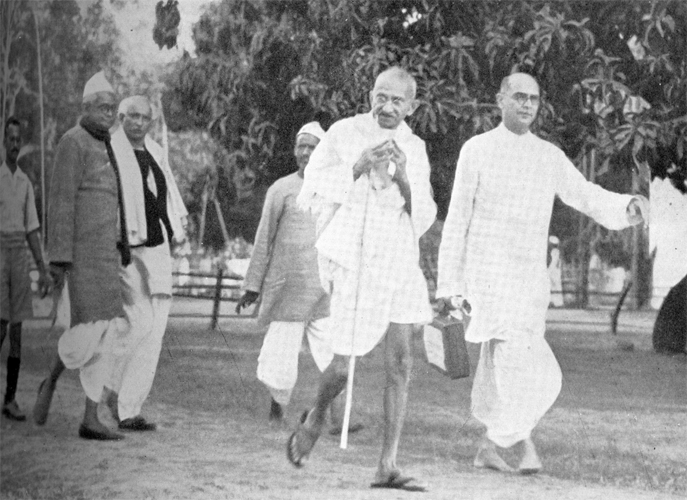
Gandhi with Mahadev Desai
Bapu said, “If we tried to make this clearer, we would have to describe the Muslims’ share in this sordid business. And that would increase Hindu-Muslim tension. This would be very much like what happened in connection with the earlier twenty-one days’ fast when Mahomed Ali got a few sentences in my statement scored out.”
I said, “Some will ask if this really was a sin more heinous than that committed by the Hindus so that you felt yourself compelled to undertake a fast.”
“Some will ask if this really was a sin more heinous than that committed by the Hindus so that you felt yourself compelled to undertake a fast.”
Bapu said, “We have been trying to make Hindu society repent of its sin. But the separate electorates are meant to perpetuate the sin or to make it impossible for the Hindus to repent. They will end in nothing but a civil war between the caste Hindus and Harijans, and between Hindus and Muslims.”
Vallabhbhai said, “I am unconvinced of the rightness of your move, but now you are free to do what you think is right.”
Bapu corrected the letter and went to bed. But I did not sleep till after midnight.
We got up at a quarter to four for the morning prayers. We had a wash and as we gathered together, Bapu gave the programme: “Vallabhbhai recites the shlokas (stanzas). He has little knowledge of Sanskrit and his pronunciation is bad. So I thought this was the only way it could be improved. You will find that he has made considerable progress. I sing the hymn, but not from memory. So we read one hymn after another from the Ashram hymnal. We thought we would start with the Marathi section today. But now that you are here, you will lead us in singing the hymn and in “Ramadhun”. I requested Bapu to lead us in Ramadhun. This discussion we had had at night. My first hymn was Prabhu mere etc., ‘O God, do not mind my heavy load of sin.’ What else could I have sung?
March 30, 1932
This morning we happened to talk about a certain Muslim leader. Vallabhbhai said, “He too took a narrow communal view in time of crisis and asked for a separate relief fund for Muslims and a separate appeal for it.” Bapu said, “He is not at fault on that score. What is he to do if we create such an environment for him? What amenities do we offer Muslims? They are mostly treated like untouchables. If I wished to send Amtul Salam to Devlali, could I ask — to put her up? The fact is that we should not go to the Bhatia sanatorium or for that matter any other place which excludes Amtul or any one else. Indeed it is up to the Hindus to take a step forward. As it is, the bitterness is increasing. It can be mitigated only if the Hindus wake up and break down the barriers they have erected. Perhaps the barriers were needed at a certain time, but now there is no earthly use for them.” Vallabhbhai said, “But the manners and customs of Muslims are different. They take meat while we are vegetarians. How are we to live with them in the same place?” Bapu replied, “No, sir. Hindus as a body are nowhere vegetarians except in Gujarat. Almost every Hindu takes meat in the Punjab, Uttar Pradesh and Sindh. . . . All at present are on their trial. Let us wait and see, with faith that all will be well in the end.”
What is he to do if we create such an environment for him? What amenities do we offer Muslims? They are mostly treated like untouchables.
The Civil Surgeon examined Bapu, and placing the stethoscope on his chest said, “I would be proud to possess a heart like that.” So saying he passed on to other prisoners. Bapu did not tell him about the pain in his fingers. He examined my leg but had no treatment to suggest. It seemed as if he wanted to finish an unpleasant task somehow or other. No other Civil Surgeon went away like this without wanting to have a word with Bapu. This one is capable of amazing self-restraint.
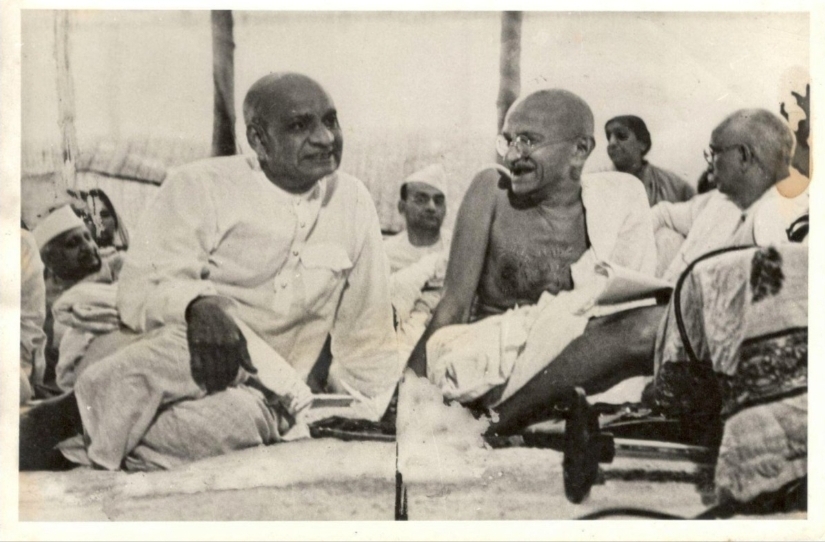
Gandhi and Patel
Sir John Anderson has come with testimonials from all. I showed to Bapu Laski’s remarks about him. Bapu said, “Perhaps that is true. If so he will capture Bengali hearts, win over Subhas Bose and Sengupta and disregard Congress. The same fate is perhaps in store for the Punjab. I do not think there will be peace in all parts of India at the same time. I imagine they will pacify one province after another.”
Bapu compelled me to sleep in the open from today and asked the Major for a cot for me.
The Major said, “Thirty or forty women prisoners all want to write to you. What shall I do about it? Would it not do if they just sent you their signatures ?” Bapu replied, “If you wish, I will ask them to be satisfied with writing only a couple of lines each. Why deprive them of this satisfaction? They are all so gentle.”
April 1, 1932
… We happened to talk about Ambedkar. Bapu said, “Till I went to England, I did not know that he was a Harijan. I thought he was some Brahman who took deep interest in Harijans and therefore talked intemperately.” Vallabhbhai said he knew he was a Harijan, as he had made his acquaintance when the Harijan leader toured Gujarat with Thakkar. Then we turned to Thakkar Bapa and the Servants of India Society’s attitude to Harijans.
“Till I went to England, I did not know that he was a Harijan. I thought he was some Brahman who took deep interest in Harijans and therefore talked intemperately.”
Bapu said, “Their attitude is responsible for the shape that question has assumed nowadays. I noticed this when I lived in the Poona home of the Society in 1915 after the death of Gokhale. I asked Devadhar for a brief note on their activities, so that I would see what I could do. This note advised that we should deliver speeches before Harijan meetings, and create in them a consciousness of the injustice done to them by Hindu society. I said to Devadhar, ‘Here you give me a stone when I asked you for bread. We cannot serve Harijans in this fashion. It is not service, but patronage pure and simple. Who are we to uplift Harijans? We can only atone for our sin against them or discharge the debt we owe to them, and this we can do only by adopting them as equal members of society, and not by haranguing them.’ At this Sastri was taken aback and said, ‘ We did not expect that you would speak in such a magisterial tone.’ And Hari Narayan Apte was very angry. I said to him, ‘I am afraid you will make Harijans rise in rebellion against society.’ Apte replied, ‘Yes, let there be a rebellion. That is just what I want.’ In this way there was a lot of discussion, so that the next day I said to Sastri, Devadhar, Apte and others that I had no idea I would cause them pain. This apology left a good impression on their minds. And afterwards we pulled on well together.” Vallabhbhai said, “You can work in harmony with everybody. It does not cost you any effort. Vaniks (merchants) do not mind humbling themselves.”
Who are we to uplift Harijans? We can only atone for our sin against them or discharge the debt we owe to them, and this we can do only by adopting them as equal members of society, and not by haranguing them.
August 17, 1932
The communal decision was published today. Bapu went about his work till the evening as if nothing had happened. He asked me to prepare a hajra cake and ate it with relish. Almond butter was made with the help of the machine. As we were taking the usual evening walk, he read Horniman’s article and liked it. In the course of conversation in the morning he said: ‘The decision only confirms the minorities’ pact. Everything has gone according to the plan in Benthall’s letter.’
I said the new constitution was worse than the Montagu-Chelmsford reforms. “Certainly,” replied Bapu. “Those reforms were based on the Lucknow agreement between Congress and the Muslim League. But this constitution seeks to create such divisions in the country that it can never again stand up on its own legs.” Just before the evening prayer he said to me, “Well, you and the Sardar think over the situation and tell me whatever you feel like saying. The letter to Samuel Hoare details the steps I should take in order to deal with the present situation. I have therefore to serve the British Government with a notice.” I was taken aback and said nothing. The Sardar also had a similar feeling. I sang Surdas’s hymn and began to read the Ashram post.
The letters which had to be written were written at once, and then Bapu began to write the letter to MacDonald.
August 18, 1932
After finishing it in the morning Bapu said, “You stop spinning for a while and go through this letter so that it may be sent at once.” The Sardar and I read it. Then he said, ‘There is no reference in the letter to other parts of the decision. May not this be misinterpreted to mean that they are approved by you?” “No,” replied Bapu. “My views are well-known. Still if you wish, I will insert one paragraph, although I would then have to enter into argument. In this letter I propose to leave out all argument, this having been included in the letter to Samuel Hoare.” I suggested that Bapu should only say his soul rebelled against the decision as a whole, but part of it was so vicious that he would lay down his life in the attempt to get it annulled. “No,” said Bapu. “No such comparison may fairly be instituted. If it were, they would say that I wanted to get the decision annulled in its entirety and had seized upon a certain part of it as a pretext. I do want the whole decision to go. But at night I thought for a moment over the question whether other points should be included and decided against their inclusion.”
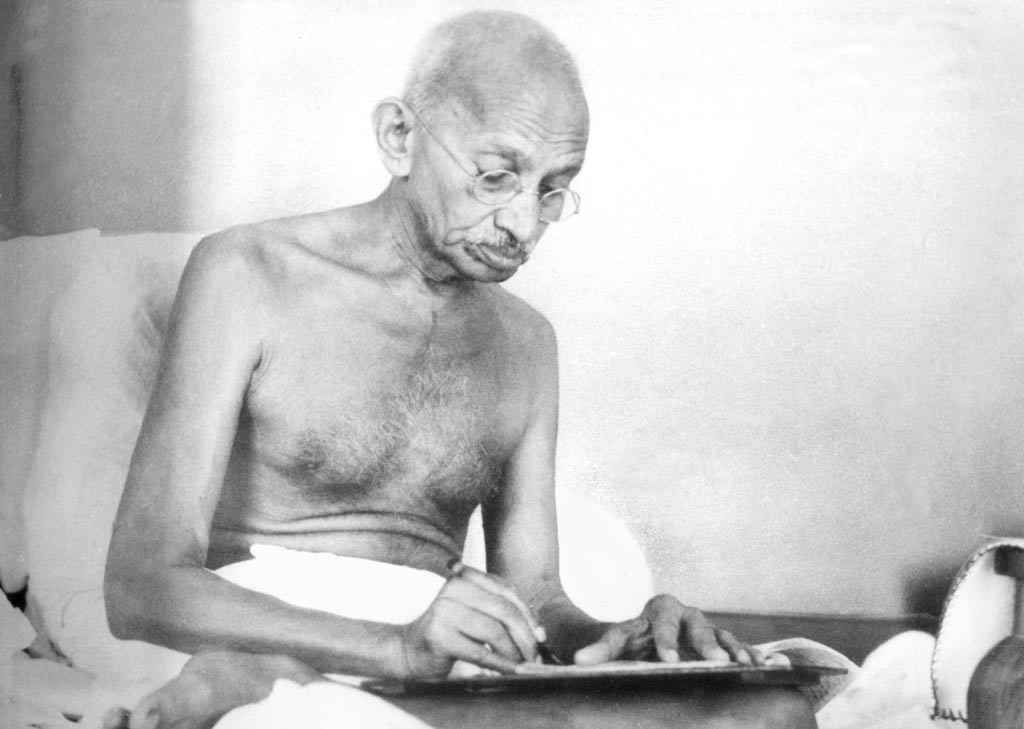
Gandhi writing a letter
The same subject was discussed in the evening. Bapu observed, “I cannot put in other things at all, for that would be tantamount to mixing politics with religion. The two questions are in fact distinct from each other.” He then continued, “I have rehearsed everything in my own mind. Everything you have suggested was considered by me before I reached the decision. Separate electorates for the Muslims and the rest are fraught with danger. They will combine with the British to suppress the Hindus. But I can think of methods by which the combination can be dealt with. When once the outsider who foments quarrels is gone, we can tackle our problems with success. But as regards the so-called untouchables I have no other remedy. How possibly am I to explain things to these poor fellows? To draw suffering on oneself when misfortune dogs one’s footsteps is no novelty. How did Sudhanva fall into the pan full of hot oil and how did Prahlad embrace a pillar of red-hot iron? There will be many Satyagraha movements even after the attainment of Swaraj. I have often had the idea that after the establishment of Swaraj I should go to Calcutta and try to stop animal sacrifice offered in the name of religion. The goats at Kalighat are worse off even than untouchables. They cannot attack men with their horns. They can never throw up an Ambedkar from their midst. My blood boils when I think of such violence. Why do they not offer tigers instead of goats?”
“Separate electorates for the Muslims and the rest are fraught with danger. They will combine with the British to suppress the Hindus. But I can think of methods by which the combination can be dealt with. When once the outsider who foments quarrels is gone, we can tackle our problems with success. But as regards the so-called untouchables I have no other remedy.”
In the morning we discussed the possible repercussions of Bapu’s step. I said, “It will be misinterpreted in a variety of ways. Here in India there will be senseless imitation of it while in America they will say Gandhi obtained his release by his fast.” “I know,” replied Bapu. “In America they will swallow anything, and there are British agents ready to help them to do so. Many will even say that I am now a bankrupt, that my spirituality is not paying dividends; therefore, I committed suicide like cunning insolvents. And in this country there will be blind imitation, and misinterpretation. The Government will perhaps release me and let me die outside prison, or perhaps they will let me die in jail, as in the case of MacSwiney. Our own men will be critical. Jawaharlal will not like it at all. He will say we have had enough of such religion. But that does not matter. When I am going to wield a most powerful weapon in my spiritual armoury, misinterpretation and the like may never act as a check.”
ARCHIVE
At Benares Hindu University (Benares, February, 1916)
MOHANDAS KARAMCHAND GANDHI
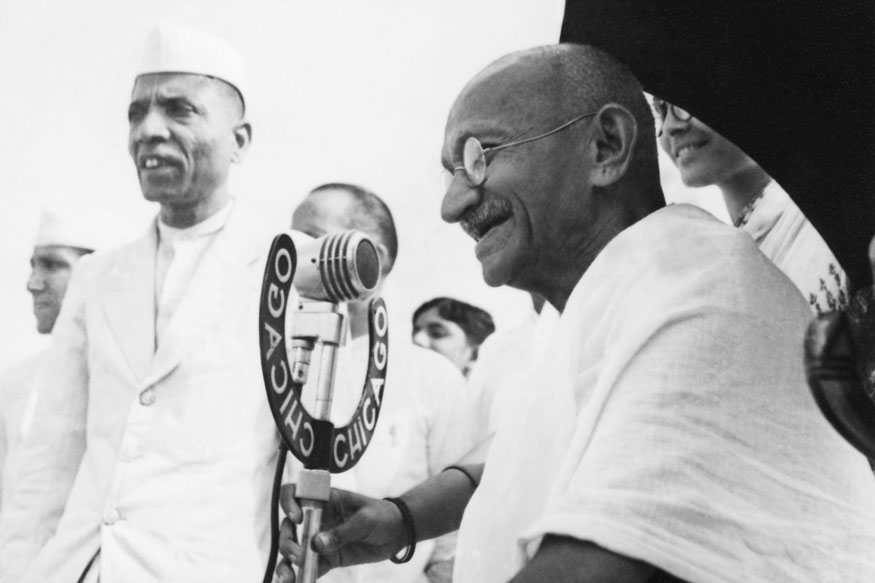
Mahatma Gandhi
I wish to tender my humble apology for the long delay that took place before I was able to reach this place. And you will readily accept the apology when I tell you that I am not responsible for the delay nor is any human agency responsible for it. The fact is that I am like an animal on show, and my keepers in their over kindness always manage to neglect a necessary chapter in this life, and, that is, pure accident. In this case, they did not provide for the series of accidents that happened to us—to me, keepers, and my carriers. Hence this delay.
Friends, under the influence of the matchless eloquence of Mrs Besant who has just sat down, pray, do not believe that our University has become a finished product, and that all the young men who are to come to the University, that has yet to rise and come into existence, have also come and returned from it finished citizens of a great empire. Do not go away with any such impression, and if you, the student world to which my remarks are supposed to be addressed this evening, consider for one moment that the spiritual life, for which this country is noted and for which this country has no rival, can be transmitted through the lip, pray, believe me, you are wrong. You will never be able merely through the lip, to give the message that India, I hope, will one day deliver to the world. I myself have been fed up with speeches and lectures. I accept the lectures that have been delivered here during the last two days from this category, because they are necessary. But I do venture to suggest to you that we have now reached almost the end of our resources in speech-making; it is not enough that our ears are feasted, that our eyes are feasted, but it is necessary that our hearts have got to be touched and that our hands and feet have got to be moved.
We have been told during the last two days how necessary it is, if we are to retain our hold upon the simplicity of Indian character, that our hands and feet should move in unison with our hearts. But this is only by way of preface. I wanted to say it is a matter of deep humiliation and shame for us that I am compelled this evening under the shadow of this great college, in this sacred city, to address my countrymen in a language that is foreign to me. I know that if I was appointed an examiner, to examine all those who have been attending during these two days this series of lectures, most of those who might be examined upon these lectures would fail. And why? Because they have not been touched.
I wanted to say it is a matter of deep humiliation and shame for us that I am compelled this evening under the shadow of this great college, in this sacred city, to address my countrymen in a language that is foreign to me. I know that if I was appointed an examiner, to examine all those who have been attending during these two days this series of lectures, most of those who might be examined upon these lectures would fail. And why? Because they have not been touched.
I was present at the sessions of the great Congress in the month of December. There was a much vaster audience, and will you believe me when I tell you that the only speeches that touched the huge audience in Bombay were the speeches that were delivered in Hindustani? In Bombay, mind you, not in Benaras where everybody speaks Hindi. But between the vernaculars of the Bombay Presidency on the one hand and Hindi on the other, no such great dividing line exists as there does between English and the sister language of India; and the Congress audience was better able to follow the speakers in Hindi. I am hoping that this University will see to it that the youths who come to it will receive their instruction through the medium of their vernaculars. Our languages are the reflection of ourselves, and if you tell me that our languages are too poor to express the best thought, then say that the sooner we are wiped out of existence the better for us. Is there a man who dreams that English can ever become the national language of India? Why this handicap on the nation? Just consider for one moment what an equal race our lads have to run with every English lad.
I had the privilege of a close conversation with some Poona professors. They assured me that every Indian youth, because he reached his knowledge through the English language, lost at least six precious years of life. Multiply that by the numbers of students turned out by our schools and colleges, and find out for yourselves how many thousand years have been lost to the nation. The charge against us is that we have no initiative. How can we have any, if we are to devote the precious years of our life to the mastery of a foreign tongue? We fail in this attempt also. Was it possible for any speaker yesterday and today to impress his audience as was possible for Mr Higginbotham? It was not the fault of the previous speakers that they could not engage the audience. They had more than substance enough for us in their addresses. But their addresses could not go home to us. I have heard it said that after all it is English educated India which is leading and which is doing all the things for the nation. It would be monstrous if it were otherwise. The only education we receive is English education. Surely we must show something for it. But suppose that we had been receiving during the past fifty years’ education through our vernaculars, what should we have today? We should have today a free India, we should have our educated men, not as if they were foreigners in their own land but speaking to the heart of the nation; they would be working amongst the poorest of the poor, and whatever they would have gained during these fifty years would be a heritage for the nation. Today even our wives are not the sharers in our best thought. Look at Professor Bose and Professor Ray and their brilliant researches. Is it not a shame that their researches are not the common property of the masses?
I have heard it said that after all it is English educated India which is leading and which is doing all the things for the nation. It would be monstrous if it were otherwise. The only education we receive is English education. Surely we must show something for it. But suppose that we had been receiving during the past fifty years’ education through our vernaculars, what should we have today? We should have today a free India, we should have our educated men, not as if they were foreigners in their own land but speaking to the heart of the nation; they would be working amongst the poorest of the poor, and whatever they would have gained during these fifty years would be a heritage for the nation.
Let us now turn to another subject.
The Congress has passed a resolution about self-government, and I have no doubt that the All-India Congress Committee and the Muslim League will do their duty and come forward with some tangible suggestions. But I, for one, must frankly confess that I am not so much interested in what they will be able to produce as I am interested in anything that the student world is going to produce or the masses are going to produce. No paper contribution will ever give us self-government. No amount of speeches will ever make us fit for self-government. It is only our conduct that will make us fit for it. And how are we trying to govern ourselves?
I want to think audibly this evening. I do not want to make a speech and if you find me this evening speaking without reserve, pray, consider that you are only sharing the thoughts of a man who allows himself to think audibly, and if you think that I seem to transgress the limits that courtesy imposes upon me, pardon me for the liberty I may be taking. I visited the Vishwanath temple last evening, and as I was walking through those lanes, these were the thoughts that touched me. If a stranger dropped from above on to this great temple, and he had to consider what we as Hindus were, would he not be justified in condemning us? Is not this great temple a reflection of our own character? I speak feelingly, as a Hindu. Is it right that the lanes of our sacred temple should be as dirty as they are? The houses round about are built anyhow. The lanes are tortuous and narrow. If even our temples are not models of roominess and cleanliness, what can our self-government be? Shall our temples be abodes of holiness, cleanliness and peace as soon as the English have retired from India, either of their own pleasure or by compulsion, bag and baggage?
I entirely agree with the President of the Congress that before we think of self-government, we shall have to do the necessary plodding. In every city there are two divisions, the cantonment and the city proper. The city mostly is a stinking den. But we are a people unused to city life. But if we want city life, we cannot reproduce the easy-going hamlet life. It is not comforting to think that people walk about the streets of Indian Bombay under the perpetual fear of dwellers in the storeyed building spitting upon them. I do a great deal of railway travelling. I observe the difficulty of third-class passengers. But the railway administration is by no means to blame for all their hard lot.
We do not know the elementary laws of cleanliness. We spit anywhere on the carriage floor, irrespective of the thoughts that it is often used as sleeping space. We do not trouble ourselves as to how we use it; the result is indescribable filth in the compartment. The so-called better class passengers overawe their less fortunate brethren. Among them I have seen the student world also; sometimes they behave no better. They can speak English and they have worn Norfolk jackets and, therefore, claim the right to force their way in and command seating accommodation.
We do not know the elementary laws of cleanliness. We spit anywhere on the carriage floor, irrespective of the thoughts that it is often used as sleeping space. We do not trouble ourselves as to how we use it; the result is indescribable filth in the compartment. The so-called better class passengers overawe their less fortunate brethren.
I have turned the searchlight all over, and as you have given me the privilege of speaking to you, I am laying my heart bare. Surely we must set these things right in our progress towards self-government. I now introduce you to another scene. His Highness the Maharaja who presided yesterday over our deliberations spoke about the poverty of India. Other speakers laid great stress upon it. But what did we witness in the great pandal in which the foundation ceremony was performed by the Viceroy? Certainly a most gorgeous show, an exhibition of jewellery, which made a splendid feast for the eyes of the greatest jeweler who chose to come from Paris. I compare with the richly bedecked noble men the millions of the poor. And I feel like saying to these noble men, ‘There is no salvation for India unless you strip yourselves of this jewellery and hold it in trust for your countrymen in India.’ I am sure it is not the desire of the King-Emperor or Lord Hardinge that in order to show the truest loyalty to our King-Emperor, it is necessary for us to ransack our jewellery boxes and to appear bedecked from top to toe. I would undertake, at the peril of my life, to bring to you a message from King George himself that he accepts nothing of the kind.
Sir, whenever I hear of a great palace rising in any great city of India, be it in British India or be it in India which is ruled by our great chiefs, I become jealous at once, and say, ‘Oh, it is the money that has come from the agriculturists.’ Over seventy-five percent of the population are agriculturists and Mr Higginbotham told us last night in his own felicitous language, that they are the men who grow two blades of grass in the place of one. But there cannot be much spirit of self-government about us, if we take away or allow others to take away from them almost the whole of the results of their labour. Our salvation can only come through the farmer. Neither the lawyers, nor the doctors, nor the rich landlords are going to secure it.
Now, last but not the least, it is my bounden duty to refer to what agitated our minds during these two or three days. All of us have had many anxious moments while the Viceroy was going through the streets of Benares. There were detectives stationed in many places. We were horrified. We asked ourselves, ‘Why this distrust?’ Is it not better that even Lord Hardinge should die than live a living death? But a representative of a mighty sovereign may not. He might find it necessary to impose these detectives on us? We may foam, we may fret, we may resent, but let us not forget that India of today in her impatience has produced an army of anarchists. I myself am an anarchist, but of another type. But there is a class of anarchists amongst us, and if I was able to reach this class, I would say to them that their anarchism has no room in India, if India is to conquer the conqueror. It is a sign of fear. If we trust and fear God, we shall have to fear no one, not the maharajas, not the viceroys, not the detectives, not even King George.
I myself am an anarchist, but of another type. But there is a class of anarchists amongst us, and if I was able to reach this class, I would say to them that their anarchism has no room in India, if India is to conquer the conqueror. It is a sign of fear. If we trust and fear God, we shall have to fear no one, not the maharajas, not the viceroys, not the detectives, not even King George.
I honour the anarchist for his love of the country. I honour him for his bravery in being willing to die for his country; but I ask him— is killing honourable? Is the dagger of an assassin a fit precursor of an honourable death? I deny it. There is no warrant for such methods in any scriptures. If I found it necessary for the salvation of India that the English should retire, that they should be driven out, I would not hesitate to declare that they would have to go, and I hope I would be prepared to die in defense of that belief. That would, in my opinion, be an honourable death. The bombthrower creates secret plots, is afraid to come out into the open, and when caught pays the penalty of misdirected zeal.
I have been told, ‘Had we not done this, had some people not thrown bombs, we should never have gained what we have got with reference to the partition movement.’ (Mrs Besant: ‘Please stop it.’) This was what I said in Bengal when Mr Lyon presided at the meeting. I think what I am saying is necessary. If I am told to stop I shall obey. (Turning to the Chairman) I await your orders. If you consider that by my speaking as I am, I am not serving the country and the empire I shall certainly stop. (Cries of ‘Go on.’) (The Chairman: ‘Please, explain your object.’) I am simply… (another interruption). My friends, please do not resent this interruption. If Mrs Besant this evening suggests that I should stop, she does so because she loves India so well, and she considers that I am erring in thinking audibly before you young men. But even so, I simply say this, that I want to purge India of this atmosphere of suspicion on either side, if we are to reach our goal; we should have an empire which is to be based upon mutual love and mutual trust. Is it not better that we talk under the shadow of this college than that we should be talking irresponsibly in our homes? I consider that it is much better that we talk these things openly. I have done so with excellent results before now. I know that there is nothing that the students do not know. I am, therefore, turning the searchlight towards ourselves. I hold the name of my country so dear to me that I exchange these thoughts with you, and submit to you that there is no room for anarchism in India. Let us frankly and openly say whatever we want to say our rulers, and face the consequences if what we have to say does not please them. But let us not abuse.
I was talking the other day to a member of the much-abused Civil Service. I have not very much in common with the members of that Service, but I could not help admiring the manner in which he was speaking to me. He said: ‘Mr Gandhi, do you for one moment suppose that all we, Civil Servants, are a bad lot, that we want to oppress the people whom we have come to govern?’ ‘No,’ I said. ‘Then if you get an opportunity put in a word for the much-abused Civil Service.’ And I am here to put in that word. Yes, many members of the Indian Civil Service are most decidedly overbearing; they are tyrannical, at times thoughtless. Many other adjectives may be used. I grant all these things and I grant also that after having lived in India for a certain number of years some of them become somewhat degraded. But what does that signify? They were gentlemen before they came here, and if they have lost some of the moral fibre, it is a reflection upon ourselves.
Just think out for yourselves, if a man who was good yesterday has become bad after having come in contact with me, is he responsible that he has deteriorated or am I? The atmosphere of sycophancy and falsity that surrounds them on their coming to India demoralizes them, as it would many of us. It is well to take the blame sometimes. If we are to receive self-government, we shall have to take it. We shall never be granted self-government. Look at the history of the British Empire and the British nation; freedom loving as it is, it will not be a party to give freedom to a people who will not take it themselves. Learn your lesson if you wish to from the Boer War. Those who were enemies of that empire only a few years ago have now become friends…
If we are to receive self-government, we shall have to take it. We shall never be granted self-government. Look at the history of the British Empire and the British nation; freedom loving as it is, it will not be a party to give freedom to a people who will not take it themselves. Learn your lesson if you wish to from the Boer War. Those who were enemies of that empire only a few years ago have now become friends…
(At this point there was an interruption and a movement on the platform to leave. The speech, therefore, ended here abruptly).
Election Speech (December, 1926)
KAMALADEVI CHATTOPADHYAY
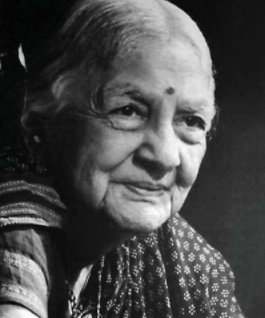
Kamaladevi Chattopadhyay
If you peep into the dim unknown history of India, the history of which is written not on palm leaves or papers, but is alive in the hearts of everyone of us, you will find that the position of women was indeed an enviable one. Never in the history of any country, at any time, has woman been so honoured as she has been in this country. Though apparently she seems to have lost her voice, she has always been the vital element in the evolution of the country and the nation. When I was travelling abroad, I was often asked how the suffragist movement in India was progressing. I could only tell them that there was no suffragist movement in India. In fact, there was no need for such a movement. The last few years have proved this. As soon as the new reforms came in the franchise was granted, and closely following upon its heels came the removal of the ban on sex-disqualification. The time has now come when women should come forward and share the responsibilities equally with men. All over the world women are now taking a keen and an active part in all departments of life.
The time has now come when women should come forward and share the responsibilities equally with men. All over the world women are now taking a keen and an active part in all departments of life.
I stand now as an Independent. I stand for no party or community. I stand as a representative of women. I am not a Swarajist candidate and I am not a member of the Swarajya Party. I do not believe in the policy of obstruction and walk-out. What the Swarajya programme for this year is, I do not know. Whether it is going to accept office or not, does not concern me. That temptation does not come in my way.
People have been questioning me what my political precedents are. I have been interested in politics for several years now. When the great Non-Co-operation Movement was started, my husband and I were pursuing studies in England. The great message came to us over the waters. Our hearts throbbed to the cries of the great nation. Gandhi’s message of love thrilled us, and we felt that we should not be led away by the glamor of foreign degrees. A golden opportunity had been offered to us to do our bit for our country. By the time we had completed our tour and landed in India, Mahatamaji had been imprisoned for some time. When we landed in India we were met by Mrs. [Sarojini] Naidu. The first question we asked her was: What was the condition of the country? She said there was no condition at all. Death had already set in. Our burning spirits were as defeated with this reply. We enlisted ourselves as Congress members and and tried to do our bit, but a good many difficulties arose in our way.
We soon found much of our precious time getting scattered. We then decided to do the same work through the arts and achieve the same end. So at the Belgaum Congress, we consulted Mahatmaji. He gladly assented to our plans and with his blessings we started upon our work. We have been trying to wake up the political consciousness of the country through poetry, through music and through drama. It was just a month ago that we met Mahatma Gandhi in Bombay and he said: “Though I am pressed with heavy work, I have found time to watch with pleasure your progress. Though I cannot be with you in person, let me admire you from a distance. When you have a little leisure come to my Ashram and show my boys the beauties of your art.” Even on the day I was leaving for Mangalore we received two wires asking us to go to him. It was indeed a great temptation I had to resist. All these three years, though I have not been active in the political field, all the time I have been in close touch with politics.
If women in other countries have proved competent enough to handle these problems I do not think an Indian woman will prove an exception. For years you have been sending men to the councils. Some of them have done something for this district. Others have done nothing. So even if a woman fails to fulfill your expectations you have not much to regret.
As to what work I shall do in the council, though no doubt I shall try to tackle problems that are intimately connected with women and children, I feel confident that with time and study I shall be in a position to handle general questions as well. During the course of my tour I have been observing and studying the local grievances. I have been trying to get first-hand information as to the Forest and Land Act. Some of the main problems agitating the public mind just now are the abolition of the old Rent Recovery Act without the introduction of any new compensating one and the Revenue Settlement Act. I have enough of leisure at my disposal to devote it to this work. I appeal to you to give me a chance. If women in other countries have proved competent enough to handle these problems I do not think an Indian woman will prove an exception. For years you have been sending men to the councils. Some of them have done something for this district. Others have done nothing. So even if a woman fails to fulfill your expectations you have not much to regret. Some of you may have some conscientious objections in supporting my candidature either on the ground of sex or otherwise. I appeal to them in that case, at least, to remain neutral as far as possible.
For, remember, when you work against me, you insult all womankind, you work against your own mothers, your sisters, your daughters.
When you lend me your support, it is not merely a personal favour you do to me, but you pay your homage to womankind. If the first Indian woman who has come forward in spite of all difficulties and obstacles is not helped, it will greatly discourage the women who in the future might stand for elections. So the privilege granted to women will be hardly of any service.
When you lend me your support, it is not merely a personal favour you do to me, but you pay your homage to womankind. If the first Indian woman who has come forward in spite of all difficulties and obstacles is not helped, it will greatly discourage the women who in the future might stand for elections. So the privilege granted to women will be hardly of any service. I am not concerned very much with the result. I shall do my best. I wish to prove to the world that a woman can fight and fight well in spite of everything. Woman in India has always stood for strength and not weakness. She is the Divine Shakti. Whether it is a mere sentiment or a living flame, will be proved by the elections.
Speech at Mahad (Mahad, December 1927)
BHIMRAO RAMJI AMBEDKAR
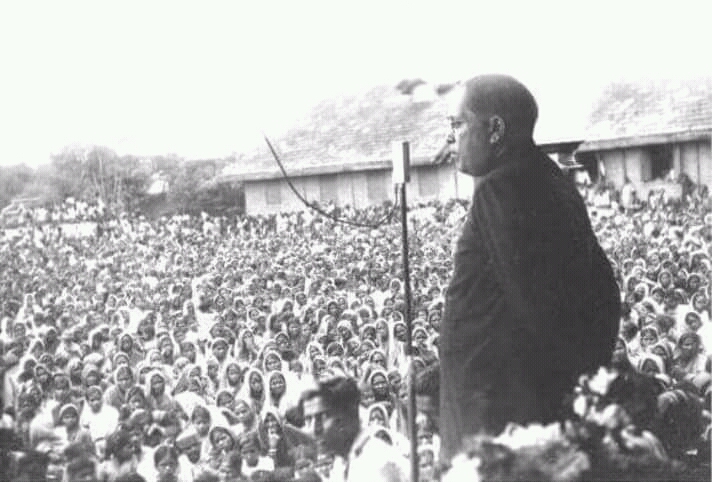
B.R. Ambedkar
Gentlemen, you have gathered here today in response to the invitation of the Satyagraha Committee. As the Chairman of that Committee, I gratefully welcome you all.
Many of you will remember that on the 19th of last March all of us came to the Chavadar Lake here. The caste Hindus of Mahad had laid no prohibition on us; but they showed they had objections to our going there by the attack they made. The fight brought results that one might have expected. The aggressive caste Hindus were sentenced to four months’ rigorous imprisonment, and are now in jail. If we had not been hindered on 19th March, it would have been proved that the caste Hindus acknowledge our right to draw water from the lake, and we should have had no need to begin our present undertaking.
Unfortunately we were thus hindered, and we have been obliged to call this meeting today. This lake at Mahad is public property. The caste Hindus of Mahad are so reasonable that they not only draw water from the lake themselves but freely permit people of any religion to draw water from it, and accordingly people of other religions such as the Islamic do make use of this permission. Nor do the caste Hindus prevent members of species considered lower than the human, such as birds and beasts, from drinking at the lake. Moreover, they freely permit beasts kept by untouchables to drink at the lake.
Caste Hindus are the very founts of compassion. They practise no hinsa and harass no one. They are not of the class of miserly and selfish folk who would grudge even a crow some grains of the food they are eating. The proliferation of sanyasis and mendicants is a living testimony to their charitable temperament. They regard altruism as religious merit and injury to another as a sin.
Even further, they have imbibed the principle that injury done by another must not be repaid but patiently endured, and so, they not only treat the harmless cow with kindness, but spare harmful creatures such as snakes. That one Atman or Spiritual Self dwells in all creatures has become a settled principle of their conduct. Such are the caste Hindus who forbid some human beings of their own religion to draw water from the Same Chavadar Lake! One cannot help asking the question, why do they forbid us alone?
Such are the caste Hindus who forbid some human beings of their own religion to draw water from the Same Chavadar Lake! One cannot help asking the question, why do they forbid us alone?
It is essential that all should understand thoroughly the answer to this question. Unless you do, I feel, you will not grasp completely the importance of today’s meeting. The Hindus are divided, according to sacred tradition, into four castes; but according to custom, into five: Brahmins, Kshatriyas, Vaishyas, Shudras and Atishudras. The caste system is the first of the governing rules of the Hindu religion. The second is that the castes are of unequal rank. They are ordered in a descending series of each meaner than the one before.
Not only are their ranks permanently fixed by the rule, but each is assigned boundaries it must not transgress, so that each one may at once be recognized as belonging to its particular rank. There is a general belief that the prohibitions in the Hindu religion against intermarriage, interdining, inter drinking and social intercourse are bounds set to degrees of association with one another. But this is an incomplete idea. These prohibitions are indeed limits to degrees of association; but they have been set to show people of unequal rank what the rank of each is. That is, these bounds are symbols of inequality.
Just as the crown on a man’s head shows he is a king, and the bow in his hand shows him to be a Kshatriya, the class to which none of the prohibitions applies is considered the highest of all and the one to which they all apply is reckoned the lowest in rank. The strenuous efforts made to maintain the prohibitions are for the reason that, if they are relaxed, the inequality settled by religion will break down and equality will take its place.
The caste Hindus of Mahad prevent the untouchables from drinking the water of the Chavadar Lake not because they suppose that the touch of the untouchables will pollute the water or that it will evaporate and vanish. Their reason for preventing the untouchables from drinking it is that they do not wish to acknowledge by such a permission that castes declared inferior by sacred tradition are in fact their equals.
Gentlemen! you will understand from this the significance of the struggle we have begun. Do not let yourselves suppose that the Satyagraha Committee has invited you to Mahad merely to drink the water of the Chavadar Lake of Mahad.
It is not as if drinking the water of the Chavadar Lake will make us immortal. We have survived well enough all these days without drinking it. We are not going to the Chavadar Lake merely to drink its water. We are going to the Lake to assert that we too are human beings like others. It must be clear that this meeting has been called to set up the norm of equality.
It is not as if drinking the water of the Chavadar Lake will make us immortal. We have survived well enough all these days without drinking it. We are not going to the Chavadar Lake merely to drink its water. We are going to the Lake to assert that we too are human beings like others. It must be clear that this meeting has been called to set up the norm of equality.
I am certain that no one who thinks of this meeting in this light will doubt that it is unprecedented. I feel that no parallel to it can be found in the history of India. If we seek for another meeting in the past to equal this, we shall have to go to the history of France on the continent of Europe. A hundred and thirty-eight years ago, on 24 January 1789, King Louis XVI had convened, by royal command, an assembly of deputies to represent the people of the kingdom. His French National Assembly has been much vilified by historians. The Assembly sent the King and the Queen of France to the guillotine; persecuted and massacred the aristocrats; and drove their survivors into exile. It confiscated the estates of the rich and plunged Europe into war for fifteen years. Such are the accusations leveled against the Assembly by the historians. In my view, the criticism is misplaced; further, the historians of this school have not understood the gist of the achievement of the French National Assembly. That achievement served the welfare not only of France but of the entire European continent. If European nations enjoy peace and prosperity today, it is for one reason: the revolutionary French National Assembly convened in 1789 set new principles for the organization of society before the disorganized and decadent French nation of its time, and the same principles have been accepted and followed by Europe.
To appreciate the importance of the French National Assembly and the greatness of its principles, we must keep in mind the suite of French society at the time. You are all aware that our Hindu society is based on the system of castes. A rather similar system of classes existed in the France of 1789: the difference was that it was a society of three castes. Like the Hindu society, the French had a class of Brahmins and another of Kshatriyas. But instead of three different castes of Vaishya, Shudra, and Atishudra, there was one class that comprehended these. This is a minor difference. The important thing is that the caste or class system was similar. The similarity to be noted is not only in the differentiation between classes: the inequality of our caste system was also to be found in the French social system. The nature of the inequality in the French society was different: it was economic in nature. It was, however, equally intense. The thing to bear in mind is there is a great similarity between the French National Assembly that met on 5 May 1789 at Versailles and our meeting today. The similarity is not only in the circumstances in which the two meetings took place but also in their ideals.
That Assembly of the French people was convened to reorganize French society. Our meeting today too has been convened to reorganize Hindu society. Hence, before discussing on what principles our society should be reorganized, we should all pay heed to the principles on which the French Assembly relied and the policy it adopted. The scope of the French Assembly was far wider than that of our present meeting. It had to carry out the threefold organization of the French political, social and religious systems. We must confine ourselves to how social and religious reorganization can be brought about. Since we are not, for the present, concerned with political reorganization, let us see what the French Assembly did in the matter of the religious and social reorganization of their nation. The policy adopted by the French National Assembly in this area can be seen plainly by anyone from three important proclamations issued by that Assembly. The first was issued on 17 June 1789. This was a proclamation about the class systems in France. As said before, French society was divided into three classes. The proclamation abolished the three classes and blended them into one. Further, it abolished the seats reserved separately for the three classes (or estates) in the political assembly. The second proclamation was about the priests. By ancient custom, to appoint or remove these priests was outside the power of the nation, that being the monopoly of a foreign religious potentate, the Pope. Anyone appointed by the Pope was a priest, whether or not he was fit to be one in the eyes of those to whom he was to preach. The proclamation abolished the autonomy of the religious orders and assigned to the French nation the authority to decide who might follow this vocation, who was fit for it and who was not, whether he was to be paid for preaching or not, and so on. The third proclamation was not about the political, economic or religious systems. It was of a general nature and laid down the principles on which all social arrangements ought to rest. From that point of view, the third proclamation is the most important of the three; it might be called the king of these proclamations. It is renowned the world over as the declaration of human birthrights. It is not only unprecedented in the history of France; more than that, it is unique in the history of civilized nations. For every European nation has followed the French Assembly in giving it a place in its own constitution. So one may say that it brought about a revolution not only in France but the whole world. This proclamation has seventeen clauses, of which the following are important:
Any person is free to act according to his birthright. Any limit placed upon this freedom must be only to the extent necessary to permit other persons to enjoy their birthrights. Such limits must be laid down by law: they cannot be set on the grounds of the religion or on any other basis than the law of the land.
1) All human beings are equal by birth; and they shall remain equal till death. They may be distinguished in status only in the public interest. Otherwise, their equal status must be maintained.
2) The ultimate object of politics is to maintain these human birthrights.
3) The entire nation is the mother-source of sovereignty. The rights of any individual, group or special class, unless they are given by the nation, cannot be acknowledged as valid on any other ground, be it political or religious.
4) Any person is free to act according to his birthright. Any limit placed upon this freedom must be only to the extent necessary to permit other persons to enjoy their birthrights. Such limits must be laid down by law: they cannot be set on the grounds of the religion or on any other basis than the law of the land.
5) The law will forbid only such actions as are injurious to society. All must be free to do what has not been forbidden by law. Nor can anyone be compelled to do what the law has not laid down as a duty.
6) The law is not in the nature of bounds set by any particular class. The right to decide what the law shall be rests with the people or their representatives. Whether such a law is protective or punitive, it must be the same for all. Since justice requires that all social arrangements be based on the equality of all, all individuals are equally eligible for any kind of honour, power and profession. Any distinction in such matters must be owing to differences of individual merit; it must not be based on birth.
I feel our meeting today should keep the image of this French National Assembly before the mind. The road it marked out for the development of the French nation, the road that all progressed nations have followed, ought to be the road adopted for the development of Hindu society by this meeting. We need to pull away the nails which hold the framework of caste-bound Hindu society together, such as those of the prohibition of intermarriage down to the prohibition of social intercourse so that Hindu society becomes all of one caste. Otherwise untouchability cannot be removed nor can equality be established.
To raise men, aspiration is needed as much as outward efforts. Indeed it is to be doubted whether efforts are possible without aspiration. Hence, if a great effort is to be made, a great aspiration must be nursed. In adopting an aspiration one need not be abashed or deterred by doubts about one’s power to satisfy it. One should be ashamed only of mean aspirations; not of failure that may result because one’s aspiration is high. If untouchability alone is removed, we may change from Atishudras to Shurdas; but can we say that this radically removes untouchability? If such puny reforms as the removal of restrictions on social intercourse etc. were enough for the eradication of untouchability I would not have suggested that the caste system itself must go.
Some of you may feel that since we are untouchables, it is enough if we are set free from the prohibitions of interdrinking and social intercourse. That we need not concern ourselves with the caste system; how does it matter if it remains? In my opinion, this is a total error. If we leave the caste system alone and adopt only the removal of untouchability as our policy, people will say that we have chosen a low aim. To raise men, aspiration is needed as much as outward efforts. Indeed it is to be doubted whether efforts are possible without aspiration. Hence, if a great effort is to be made, a great aspiration must be nursed. In adopting an aspiration one need not be abashed or deterred by doubts about one’s power to satisfy it. One should be ashamed only of mean aspirations; not of failure that may result because one’s aspiration is high. If untouchability alone is removed, we may change from Atishudras to Shurdas; but can we say that this radically removes untouchability? If such puny reforms as the removal of restrictions on social intercourse etc. were enough for the eradication of untouchability I would not have suggested that the caste system itself must go. Gentlemen! You all know that if a snake is to be killed it is not enough to strike at its tail – its head must be crushed. If any harm is to be removed, one must seek out its root and strike at it. An attack must be based on the knowledge of the enemy’s vital weakness. Duryodhana was killed because Bheema struck at his thigh with his mace. If the mace had hit Durydhana’s head he would not have died; for his thigh was his vulnerable spot. One finds many instances of a physician’s efforts to remove a malady proving fruitless because he has not perceived fully what will get rid of the disease; similar instances of failure to root out a social disease when it is not fully diagnosed are rarely recorded in history; and so one does not often become aware of them. But let me acquaint you with one such instance that I have come across in my reading. In the ancient European nation of Rome, the patricians were considered upper class, and the plebians, lower class. All power was in the hands of, the patricians, and they used it to ill-treat the plebians. To free themselves from this harassment, the plebians, on the strength of their unity, insisted that laws should be written down for the facilitation of justice and for the information of all. Their patrician opponents agreed to this; and a charter of twelve laws was written down. But this did not rid the oppressed plebians of their woes. For the officers who enforced the laws were all of the patrician class; moreover, the chief officer, called the tribune, was also a patrician. Hence, though the laws were uniform, there was partiality in their enforcement. The plebians then demanded that instead of the administration being in the hands of one tribune there should be two tribunes, of whom one should be elected by the plebians and the other by the patricians. The patricians yielded to this too, and the plebians rejoiced, supposing they would now be free of their miseries. But their rejoicing was short-lived. The Roman people had a tradition that nothing was to be done without the favourable verdict of the oracle at Delphi. Accordingly, even the election of a duly elected tribune – if the oracle did not approve of him – had to be treated as annulled, and another had to be elected, of whom the oracle approved. The priest who put the question to the oracle was required, by sacred religious custom, to be one born of parents married in the mode the Romans called conferatio and this mode of marriage prevailed only among the patricians; so that the priest of Delphi was always a patrician.
The wily priest always saw to it that if the plebians elected a man really devoted to their cause, the oracle went against him. Only if the man elected by the plebians to the position of tribune was amenable to the patricians, would the oracle favour him and give him the opportunity of actually assuming office. What did the plebians gain by their right to elect a tribune? The answer must be, nothing in reality. Their efforts proved meaningless because they did not trace the malady to its source. If they had, they would, at the same time that they demanded a tribune of their election, have also settled the question of who should be the priest at Delphi. The disease could not be eradicated by demanding a tribune; it needed control of the priestly office; which the plebians failed to perceive. We too, while we seek a way to remove untouchability, must inquire closely into what will eradicate the disease; otherwise we too may miss our aim. Do not be foolish enough to believe that removal of the restrictions on social intercourse or interdrinking will remove untouchability.
Remember that if the prohibitions on social intercourse and interdrinking go, the roots of untouchability are not removed. Release from these two restrictions will, at the most, remove untouchability as it appears outside the home; but it will leave untouchability in the home untouched. If we want to remove untouchability in the home as well as outside, we must break down the prohibition against intermarriage. Nothing else will serve. From another point of view, we see that breaking down the bar against intermarriage is the way to establish real equality. Anyone must confess that when the root division is dissolved, incidental points of separateness will disappear by themselves. The interdictions on interdining, interdrinking and social intercourse have all sprung from the one interdiction against intermarriage. Remove the last and no special efforts are needed to move the rest. They will disappear of their own accord. In my view the removal of untouchability consists in breaking down the ban on intermarriage and doing so will establish real equality. If we wish to cut out untouchability, we must recognize that the root of untouchability is in the ban on intermarriage. Even if our attack today is on the ban against interdrinking, we must press it home against the ban on intermarriage; otherwise untouchability cannot be removed by the roots. Who can accomplish this task? It is no secret that the Brahmin class cannot do it.
If we wish to cut out untouchability, we must recognize that the root of untouchability is in the ban on intermarriage. Even if our attack today is on the ban against interdrinking, we must press it home against the ban on intermarriage; otherwise untouchability cannot be removed by the roots. Who can accomplish this task? It is no secret that the Brahmin class cannot do it.
While the caste system lasts, the Brahmin caste has its supremacy. No one, of his own will, surrenders power which is in his hands. The Brahmins have exercised their sovereignty over all other castes for centuries. It is not likely that they will be willing to give it up and treat the rest as equals. The Brahmins do not have the patriotism of the Samurais of Japan. It is useless to hope that they will sacrifice their privileges as the Samurai class did, for the sake of national unity based on a new equality. Nor does it appear likely that the task will be carried out by other caste Hindus. These others, such as the class comprising the Marathas and other similar castes, are a class between the privileged and those without any rights.
A privileged class, at the cost of a little self-sacrifice, can show some generosity. A class without any privileges has ideals and aspirations; for, at least as a matter of self-interest, it wishes to bring about a social reform. As a result it develops an attachment to principles rather than to self-interest. The class of caste Hindus, other than Brahmins, lies in between: it cannot practise the generosity possible to the class above and it does not develop the attachment to principles that develops in the class below. This is why this class is seen to be concerned not so much about attaining equality with the Brahmins as about maintaining its status above the untouchables.
For the purposes of the social reform required, the class of caste Hindus other than Brahmins is feeble. If we are to await its help, we should fall into the difficulties that the farmer faced, who depended on his neighbour’s help for his harvesting, as in the story of the mother lark and her chicks found in many textbooks.
The task of removing untouchability and establishing equality that we have undertaken, we must carry out ourselves. Others will not do it. Our life will gain its true meaning if we consider that we are born to carry out this task and set to work in earnest. Let us receive this merit which is awaiting us.
The task of removing untouchability and establishing equality that we have undertaken, we must carry out ourselves. Others will not do it. Our life will gain its true meaning if we consider that we are born to carry out this task and set to work in earnest. Let us receive this merit which is awaiting us.
This is a struggle in order to raise ourselves; hence we are bound to undertake it, so as to remove the obstacles to our progress. We all know how at every turn, untouchability muddies and soils our whole existence. We know that at one time our people were recruited in large numbers into the troops. It was a kind of occupation socially assigned to us and few of us needed to be anxious about earning our bread. Other classes of our level have found their way into the troops, the police, the courts and the offices, to earn their bread. But in the same areas of employment you will no longer find the untouchables.
It is not that the law debars us from these jobs. Everything is permissible as far the law is concerned. But the Government finds itself powerless because other Hindus consider us untouchables and look down upon us, and it acquiesces in our being kept out of Government jobs. Nor can we take up any decent trade. It is true, partly, that we lack money to start business, but the real difficulty is that people regard us as untouchables and no one will accept goods from our hands.
To sum up, untouchability is not a simple matter; it is the mother of all our poverty and lowliness and it has brought us to the abject state we are in today. If we want to raise ourselves out of it, we must undertake this task. We cannot be saved in any other way. It is a task not for our benefit alone; it is also for the benefit of the nation.
Untouchability is not a simple matter; it is the mother of all our poverty and lowliness and it has brought us to the abject state we are in today. If we want to raise ourselves out of it, we must undertake this task. We cannot be saved in any other way. It is a task not for our benefit alone; it is also for the benefit of the nation.
Hindu society must sink unless the untouchability that has become a part of the four-castes system is eradicated. Among the resources that any society needs in the struggle for life, a great resource is the moral order of that society. And everyone must admit that a society in which the existing moral order upholds things that disrupt the society and condemns those that would unite the members of the society, must find itself defeated in any struggle for life with other societies. A society which has the opposite moral order, one in which things that unite are considered laudable and things that divide are condemned, is sure to succeed in any such struggle.
This principle must be applied to Hindu society. Is it any wonder that it meets defeat at every turn when it upholds a social order that fragments its members, though it is plain to anyone who sees it that the four-castes system is such a divisive force and that a single caste for all, would unite society? If we wish to escape these disastrous conditions, we must break down the framework of the four-castes system and replace it by a single caste system.
Even this will not be enough. The inequality inherent in the four-castes system must be rooted out. Many people mock at the principles of equality. Naturally, no man is another’s equal. One has an impressive physique; another is slow-witted. The mockers think that, in view of these inequalities that men are born with, the egalitarians are absurd in telling us to regard them as equals. One is forced to say that these mockers have not understood fully the principle of equality.
If the principle of equality means that privilege should depend, not on birth, wealth, or anything else, but solely on the merits of each man, then how can it be demanded that a man without merit, and who is dirty and vicious, should be treated on a level with a man who has merit and is clean and virtuous? Such is a counter-question sometimes posed. It is essential to define equality as giving equal privileges to men of equal merit.
But before people have had an opportunity to develop their inherent qualities and to merit privileges, it is just to treat them all equally. In sociology, the social order is itself the most important factor in the full development of qualities that any person may possess at birth. If slaves are constantly treated unequally, they will develop no qualities other than those appropriate to slaves, and they will never become fit for any higher status. If the clean man always repulses the unclean man and refuses to have anything to do with him, the unclean man will never develop the aspiration to become clean. If the criminal or immoral castes are given no refuge by the virtuous castes, the criminal castes will never learn virtue.
The examples given above show that, although an equal treatment may not create good qualities in one who does not have them at all, even such qualities where they exist need equal treatment for their development; also, developed good qualities are wasted and frustrated without equal treatment.
On the one hand, the inequality in Hindu society stuns the progress of individuals and in consequence stunts society. On the other hand, the same inequality prevents society from bringing into use powers stored in individuals. In both ways, this inequality is weakening Hindu society, which is in disarray because of the four-castes system.
Hence, if Hindu society is to be strengthened, we must uproot the four-castes system and untouchability, and set the society on the foundations of the two principles of one caste only and of equality. The way to abolish untouchability is not any other than the way to invigorate Hindu society. Therefore I say that our work is beyond doubt as much for the benefit of the nation as it is in our own interest.
If Hindu society is to be strengthened, we must uproot the four-castes system and untouchability, and set the society on the foundations of the two principles of one caste only and of equality. The way to abolish untouchability is not any other than the way to invigorate Hindu society. Therefore I say that our work is beyond doubt as much for the benefit of the nation as it is in our own interest.
Our work has been begun to bring about a real social revolution. Let no one deceive himself by supposing that it is a diversion to quieten minds entranced with sweet words. The work is sustained by strong feeling, which is the power that drives the movement. No one can now arrest it. I pray to God that the social revolution which begins here today may fulfill itself by peaceful means.
None can doubt that the responsibility of letting the revolution take place peacefully rests more heavily on our opponents than on us. Whether this social revolution will work peacefully or violently will depend wholly on the conduct of the caste Hindus. People who blame the French National Assembly of 1789 for atrocities forget one point. That is, if the rulers of France had not been treacherous to the Assembly, if the upper classes had not resisted it, had not committed the crime of trying to suppress it with foreign help, it would have had no need to use violence in the work of the revolution and the whole social transformation would have been accomplished peacefully.
We say to our opponents too: please do not oppose us. Put away the orthodox scriptures. Follow justice. And we assure you that we shall carry out our programme peacefully.
Purna Swaraj (Lahore, December 1929)
JAWAHARLAL NEHRU
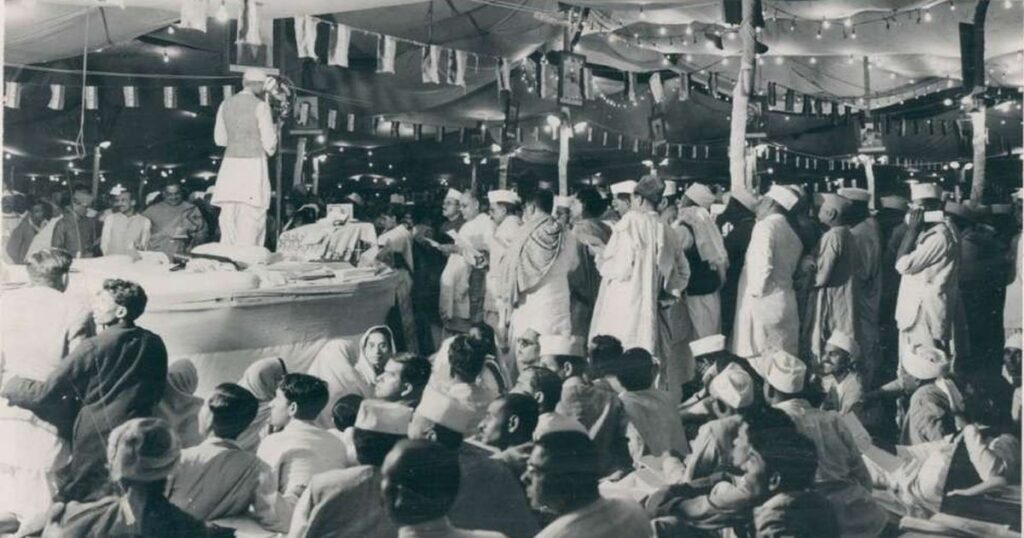
Pledge for Purna Swaraj, Jawaharlal Nehru
Comrades— for four and forty years this National Congress has laboured for the freedom of India. During this period it has somewhat slowly, but surely, awakened national consciousness from its long stupor and built up the national movement. If, today we are gathered here at a crisis of our destiny, conscious of our strength as well as of our weakness, and looking with hope and apprehension to the future, it is well that we give first thought to those who have gone before us and who spent out their lives with little hope of reward, so that those that followed them may have the joy of achievement. Many of the giants of old are not with us and we of a later day, standing on an eminence of their creation, may often decry their efforts. That is the way of the world. But none of you can forget them or the great work they did in laying the foundations of a free India. And none of us can ever forget that glorious band of men and women who, without tacking the consequences, have laid down their young lives or spent their bright youth in suffering and torment in utter protest against a foreign domination.
Many of their names even are not known to us. They laboured and suffered in silence without any expectation of public applause, and by their heart’s blood they nursed the tender plant of India’s freedom. While many of us temporized and compromised, they stood up and proclaimed a people’s right to freedom and declared to the world that India, even in her degradation, had the spark of life in her, because she refused to submit to tyranny and serfdom. Brick by brick has our national movement been built up, and often on the prostrate bodies of her martyred sons has India advanced. The giants of old may not be with us, but the courage of old is with us still and India can yet produce martyrs like Jatin Das and Wizaya. This is the glorious heritage that we have inherited and you wish to put me in charge of it. I know well that I occupy this honoured place by chance more than by your deliberate design. Your desire was to choose another — one who towers above all others in this present day world of ours — and there could have been no wiser choice. But fate and he conspired together and thrust me against your will and mine into this terrible seat of responsibility. Should I express my gratitude to you for having placed me in this dilemma? But I am grateful indeed for your confidence in one who strangely lacks it himself.
Brick by brick has our national movement been built up, and often on the prostrate bodies of her martyred sons has India advanced. The giants of old may not be with us, but the courage of old is with us still and India can yet produce martyrs like Jatin Das and Wizaya. This is the glorious heritage that we have inherited and you wish to put me in charge of it.
You will discuss many vital national problems that face us today and your decisions may change the course of Indian history. But you are not the only people that are faced with problems. The whole world today is one vast question-mark and every country and every people is in the melting pot. The age of faith, with the comfort and stability it brings, is past and there is questioning about everything, however permanent or sacred it might have appeared to our forefathers. Everywhere, there is doubt and restlessness and the foundations of the state and society are in process of transformation. Old established ideas of liberty, justice, property, and even the family are being attacked and the outcome hangs in the balance. We appear to be in a dissolving period of history when the world is in labour and out of her travail will give birth to a new order.
The future lies with America and Asia. Owing to false and incomplete history many of us have been led to think that Europe has always dominated over the rest of the world, and Asia has always let the legions of the West thunder past and plunged in thought again. We have forgotten that for millennia the legions of Asia overran Europe and modern Europe itself largely consists of the descendants of these invaders from Asia. We have forgotten that it was India that finally broke the military power of Alexander.
No one can say what the future will bring, but we may assert with some confidence that Asia and even India, will play a determining part in future world policy. The brief day of European domination is already approaching its end. Europe has ceased to be the centre of activity and interest. The future lies with America and Asia. Owing to false and incomplete history many of us have been led to think that Europe has always dominated over the rest of the world, and Asia has always let the legions of the West thunder past and plunged in thought again. We have forgotten that for millennia the legions of Asia overran Europe and modern Europe itself largely consists of the descendants of these invaders from Asia. We have forgotten that it was India that finally broke the military power of Alexander.
Thought has undoubtedly been the glory of Asia and specially of India, but in the field of action the record of Asia has been equally great. But none of us desires that the legions of Asia or Europe should overrun the continents again. We have all had enough of them.
India today is a part of a world movement. Not only China, Turkey, Persia, and Egypt but also Russia and the countries of the West are taking part in this movement, and India cannot isolate herself from it. We have our own problems — difficult and intricate — and we cannot run away from them and take shelter in the wider problems that affect the world. But if we ignore the world, we do so at our peril. Civilization today, such as it is, is not the creation or monopoly of one people or nation. It is a composite fabric to which all countries have contributed and then have adapted to suit their particular needs. And if India has a message to give to the world as I hope she has, she has also to receive and learn much from the messages of other peoples.
Few things in history are more amazing than the wonderful stability of the social structure in India, which withstood the impact of numerous alien influences and thousands of years of change and conflict. It withstood them because it always sought to absorb them and tolerate them. Its aim was not to exterminate, but to establish an equilibrium between different cultures. Aryans and non-Aryans settled down together recognizing each other’s right to their culture, and outsiders who came, like the Parsis, found a welcome and a place in the social order. With the coming of the Muslims, the equilibrium was disturbed, but India sought to restore it, and largely succeeded. Unhappily for us before we could adjust our differences, the political structure broke down, the British came and we fell.
When everything is changing it is well to remember the long course of Indian history. Few things in history are more amazing than the wonderful stability of the social structure in India, which withstood the impact of numerous alien influences and thousands of years of change and conflict. It withstood them because it always sought to absorb them and tolerate them. Its aim was not to exterminate, but to establish an equilibrium between different cultures. Aryans and non-Aryans settled down together recognizing each other’s right to their culture, and outsiders who came, like the Parsis, found a welcome and a place in the social order. With the coming of the Muslims, the equilibrium was disturbed, but India sought to restore it, and largely succeeded. Unhappily for us before we could adjust our differences, the political structure broke down, the British came and we fell.
Great as was the success of India in evolving a stable society, she failed and in a vital particular, and because she failed in this, she fell and remains fallen. No solution was found for the problem of equality. India deliberately ignored this and built up her social structure on inequality, and we have the tragic consequences of this policy in the millions of our people who till yesterday were suppressed and had little opportunity for growth.
And yet when Europe fought her wars of religion and Christians massacred each other in the name of their saviour, India was tolerant, although alas, there is little of this toleration today. Having attained some measure of religious liberty, Europe sought after political liberty, and political and legal equality. Having attained these also, she finds that they mean very little without economic liberty and equality. And so today politics have ceased to have much meaning and the most vital question is that of social and economic equality.
India also will have to find a solution to this problem and until she does so, her political and social structure cannot have stability. That solution need not necessarily follow the example of any other country. It must, if it has to endure, be based on the genius of her people and be an outcome of her thought and culture. And when it is found, the unhappy differences between various communities, which trouble us today and keep back our freedom, will automatically disappear.
What shall we gain for ourselves or for our community, if all of us are slaves in a slave country? And what can we lose if once we remove the shackles from India and can breathe the air of freedom again? Do we want outsiders who are not of us and who have kept us in bondage, to be the protectors of our little rights and privileges, when they deny us the very right to freedom? No majority can crush a determined minority and no minority can be protected by a little addition to its seats in a legislature. Let us remember that in the world today, almost everywhere a very small minority holds wealth and power and dominates over the great majority.
Indeed, the real differences have already largely gone, but fear of each other and distrust and suspicion remain and sow seeds of discord. The problem is how to remove fear and suspicion and, being intangible, they are hard to get at. An earnest attempt was made to do so last year by the All Parties’ Committee and much progress was made towards the goal. But we must admit with sorrow that success has not wholly crowned its efforts. Many of our Muslim and Sikh friends have strenuously opposed the solutions suggested and passions have been roused over mathematical figures and percentages. Logic and cold reasons are poor weapons to fight fear and distrust. Only faith and generosity can overcome them. I can only hope that the leaders of various communities will have this faith and generosity in ample measure. What shall we gain for ourselves or for our community, if all of us are slaves in a slave country? And what can we lose if once we remove the shackles from India and can breathe the air of freedom again? Do we want outsiders who are not of us and who have kept us in bondage, to be the protectors of our little rights and privileges, when they deny us the very right to freedom? No majority can crush a determined minority and no minority can be protected by a little addition to its seats in a legislature. Let us remember that in the world today, almost everywhere a very small minority holds wealth and power and dominates over the great majority.
I have no love for bigotry and dogmatism in religion and I am glad that they are weakening. Nor do I love communalism in any shape or form. I find it difficult to appreciate why political or economic rights should depend on the membership of a religious group or community. I can fully understand the right to freedom in a religion and the right to one’s culture, and in India specially, which has always acknowledged and granted these rights, it should be no difficult matter to ensure their continuance We have only to find out some way whereby we may root out the fear and distrust that darken our horizon today. The politics of a subject race are largely based on fear and hatred, and we have been too long under subjection to get rid of them easily.
The politics of a subject race are largely based on fear and hatred, and we have been too long under subjection to get rid of them easily.
I was born a Hindu but I do not know how far I am justified in calling myself one or in speaking on behalf of Hindus. But birth still counts in this country and by right of birth I shall venture to submit to the leaders of the Hindus that it should be their privilege to take the lead in generosity. Generosity is not only good morals, but is often good politics and sound expediency. And it is inconceivable to me that in a free India, the Hindus can ever be powerless. So far as I am concerned, I would gladly ask our Muslim and Sikh friends to take what they will without protest and argument from me. I know that the time is coming soon when these labels and appellations will have little meaning and when our struggle will be on an economic basis. Meanwhile, it matters little what our mutual arrangements are, provided only that we do not build up barriers which will come in the way of our future progress.
The time has indeed already come when the All Parties’ Report has to be put aside and we march forward unfettered to our goal. You will remember that the resolution of the last Congress fixed a year of grace for the adoption of the All-Parties scheme. That year is nearly over and the natural issue of that decision is for this Congress to declare in favour of independence and devise sanctions to achieve it.
Recently, there has been a seeming offer of peace. The Viceroy has stated on behalf of the British Government that the leaders of Indian opinion will be invited to confer with the government on the subject of India’s future Constitution. The Viceroy meant well and his language was the language of peace. But even a Viceroy’s goodwill and courteous phrases are poor substitutes for the hard facts that confront us. We have sufficient experience of the devious ways of British diplomacy to beware of it. The offer which the British Government made was vague and there was no commitment or promise of performance. Only by the greatest stretch of imagination could it be interpreted as a possible response to the Calcutta resolution. Many leaders of various political parties met together soon after and considered it. They gave it the most favourable interpretation, for they desired peace and were willing to go half-way to meet it. But in courteous language they made it clear what the vital conditions for its acceptance were.
Many of us who believed in independence and were convinced that the offer was only a device to lead us astray and create division in our ranks, suffered bitter anguish and were torn with doubt. Were we justified in precipitating a terrible national struggle with all its inevitable consequences of suffering for many, when there was even an outside chance of honourable peace? With much searching of heart we signed that manifesto and I know not today if we did right or wrong. Later came the explanations and amplifications in the British Parliament and elsewhere and all doubt, if doubt there was, was removed as to the true significance of the offer. Even so your Working Committee chose to keep open the door of negotiation and left it to this Congress to take the final decision.
During the last few days there has been another discussion of this subject in the British House of Commons and the Secretary of State for India has endeavoured to point out that successive governments have tried to prove, not only by words but by deeds also, the sincerity of their faith in regard to India. We must recognize Mr Wedgwood Benn’s desire to do something for India and his anxiety to secure the goodwill of the Indian people. But his speech and other speeches made in Parliament carry us no further. ‘Dominion Status in action’, to which he has drawn attention has been a snare for us and has certainly not reduced the exploitation of India.
The burdens on the Indian masses are even greater today, because of this ‘Dominion Status in action’ and the so-called constitutional reforms of ten years ago. High Commissioners in London and representatives of the League of Nations, and the purchase of stores, and Indian Governors and high officials are no parts of our demand. We want to put an end to the exploitation of India’s poor and to get the reality of power and not merely the livery of office. Mr Wedgwood Benn has given us a record of the achievements of the past decade. He could have added to it by referring to Martial Law in the Punjab and the Jallianwala Bagh shooting and the repression and exploitation that have gone on continually during this period of ‘Dominion Status in action.’ He has given us some insight into what more of Dominion Status may mean for us. It will mean the shadow of authority to a handful of Indians and more repression and exploitation of the masses.
What will this Congress do? The conditions for cooperation remain unfulfilled. Can we cooperate so long as there is no guarantee that real freedom will come to us? Can we cooperate when our comrades lie in prison and repression continues? Can we cooperate until we are assured that real peace is sought after and not merely a tactical advantage over us? Peace cannot come at the point of the bayonet, and if we are to continue to be dominated over by an alien people, let us at least be no consenting parties to it.
What will this Congress do? The conditions for cooperation remain unfulfilled. Can we cooperate so long as there is no guarantee that real freedom will come to us? Can we cooperate when our comrades lie in prison and repression continues? Can we cooperate until we are assured that real peace is sought after and not merely a tactical advantage over us? Peace cannot come at the point of the bayonet, and if we are to continue to be dominated over by an alien people, let us at least be no consenting parties to it.
If the Calcutta resolution holds, we have but one goal today, that of independence. Independence is not a happy word in the world today; for it means exclusiveness and isolation. Civilization has had enough of narrow nationalism and gropes towards a wider cooperation and inter-dependence. And if we use the word ‘independence’, we do so in no sense hostile to the larger ideal. Independence for us means complete freedom from British domination and British imperialism. Having attained our freedom, I have no doubt that India will welcome all attempts at world-cooperation and federation, and will even agree to give up part of her own independence to a larger group of which she is an equal member.
Independence is not a happy word in the world today; for it means exclusiveness and isolation. Civilization has had enough of narrow nationalism and gropes towards a wider cooperation and inter-dependence. And if we use the word ‘independence’, we do so in no sense hostile to the larger ideal. Independence for us means complete freedom from British domination and British imperialism. Having attained our freedom, I have no doubt that India will welcome all attempts at world-cooperation and federation, and will even agree to give up part of her own independence to a larger group of which she is an equal member.
The British Empire today is not such a group and cannot be so long as it dominates over millions of people and holds large areas of the world’s surface despite the will of their inhabitants. It cannot be a true commonwealth so long as imperialism is its basis and the exploitation of other races its chief means of sustenance. The British Empire today is indeed gradually undergoing a process of political dissolution. It is in a state of unstable equilibrium. The Union of South Africa is not a happy member of the family, nor is the Irish Free State, a willing one. Egypt drifts away. India could never be an equal member of the Commonwealth unless imperialism and all it implies is discarded. So long as this is not done, India’s position in the empire must be one of subservience and her exploitation will continue.
There is talk of world-peace and pacts have been signed by the nations of the world. But despite pacts, armaments grow and beautiful language is the only homage that is paid to the goddess of peace. Peace can only come when the causes of war are removed. So long as there is the domination of one country over another, or the exploitation of one class by another, there will always be attempts to subvert the existing order and no stable equilibrium can endure. Out of imperialism and capitalism peace can never come. And it is because the British Empire stands for these and bases itself on the exploitation of the masses that we can find no willing place in it. No gain that may come to us is worth anything unless it helps in removing the grievous burdens on our masses. The weight of a great empire is heavy to carry and long our people have endured it. Their backs are bent down and their spirit has almost broken. How will they share in the Commonwealth partnership if the burden of exploitation continues? Many of the problems we have to face are the problems of vested interests mostly created or encouraged by the British Government. The interests of the Rulers of Indian States, of British officials and British capital and Indian capital and of the owners of big zamindaris are ever thrust before us, and they clamour for protection. The unhappy millions who really need protection are almost voiceless and have few advocates.
We have had much controversy about independence and Dominion Status and we have quarrelled about words. But the real thing is the conquest of power by whatever name it may be called. I do not think that any form of Dominion Status applicable to India will give us real power. A test of this power would be the entire withdrawal of the alien army of occupation and economic control. Let us, therefore, concentrate on these and the rest will follow easily.
We stand therefore today, for the fullest freedom of India. This Congress has not acknowledged and will not acknowledge the right of the British Parliament to dictate to us in any way. To it we make no appeal. But we do appeal to the Parliament and the conscience of the world, and to them we shall declare, I hope, that India submits no longer to any foreign domination. Today or tomorrow, we may not be strong enough to assert our will. We are very conscious of our weakness, and there is no boasting in us or pride of strength. But let no one, least of all England, mistake or underrate the meaning or strength of our resolve. Solemnly, with full knowledge of consequences, I hope, we shall take it and there will be no turning back. A great nation cannot be thwarted for long when once its mind is clear and resolved. If today we fail and tomorrow brings no success, the day after will follow and bring achievement.
We stand therefore today, for the fullest freedom of India. This Congress has not acknowledged and will not acknowledge the right of the British Parliament to dictate to us in any way. To it we make no appeal. But we do appeal to the Parliament and the conscience of the world, and to them we shall declare, I hope, that India submits no longer to any foreign domination. Today or tomorrow, we may not be strong enough to assert our will. We are very conscious of our weakness, and there is no boasting in us or pride of strength. But let no one, least of all England, mistake or underrate the meaning or strength of our resolve. Solemnly, with full knowledge of consequences, I hope, we shall take it and there will be no turning back. A great nation cannot be thwarted for long when once its mind is clear and resolved. If today we fail and tomorrow brings no success, the day after will follow and bring achievement.
We are weary of strife and hunger for peace and opportunity to work constructively for our country. Do we enjoy the breaking up of our homes and the sight of our brave young men going to prison or facing the halter? Does the worker like going on strike to lose even his miserable pittance and starve? He does so by sheer compulsion when there is no other way for him. And we who take this perilous path of national strife do so because there is no other way to an honourable peace. But we long for peace, and the hand of fellowship will always be stretched out to all who may care to grasp it. But behind the hand will be a body which will not bend to injustice and a mind that will not surrender on any vital point.
With the struggle before us, the time for determining our future Constitution is not yet. For two years or more we have drawn up constitutions and finally the All-Parties’ Committee put a crown to these efforts by drawing up a scheme of its own which the Congress adopted for a year. The labour that went to the making of this scheme was not wasted and India has profited by it. But the year is past and we have to face new circumstances which require action rather than constitution-making. Yet we cannot ignore the problems that beset us and that will make or mar our struggle and our future constitution. We have to aim at social adjustment and equilibrium and to overcome the forces of disruption that have been the bane of India.
I must frankly confess that I am a socialist and a republican and am no believer in kings and princes, or in the order which produces the modern kings of industry, who have greater power over the lives and fortunes of men than even kings of old, and whose methods are as predatory as those of the old feudal aristocracy. I recognize, however, that it may not be possible for a body constituted as in this National Congress and in the present circumstances of the country to adopt a full socialistic programme. But we must realize that the philosophy of socialism has gradually permeated the entire structure of society the world over and almost the only points in dispute are the pace and methods of advance to its full realization. India will have to go that way too if she seeks to end her poverty and inequality, though she may evolve her own methods and may adapt the ideal to the genuine of her race.
We have three major problems, the minorities, the Indian states, and labour and peasantry. I have dealt already with the question of minorities. I shall only repeat that we must give the fullest assurance by our words and our deeds that their culture and traditions will be safe.
The Indian states cannot live apart from the rest of India and their rulers must, unless they accept their inevitable limitations, go the way of others who thought like them. And the only people who have a right to determine the future of the states must be the people of these states, including the rulers. This Congress which claims self-determination cannot deny it to the people of the states. Meanwhile, the Congress is perfectly willing to confer with such rulers as are prepared to do so and to devise means whereby the transition may not be too sudden. But in no event can the people of the states be ignored.
Our third major problem is the biggest of all. For India means the peasantry and labour and to the extent that we raise them and satisfy their wants will we succeed in our task. And the measure of the strength of our national movement will be the measure of their adherence to it. We can only gain them to our side by our espousing their cause which is really the country’s cause. The Congress has often expressed its goodwill towards them; but beyond that it has not gone. The Congress, it is said, must hold the balance fairly between capital and labour and zamindar and tenant.
But the balance has been and is terribly weighed on one side, and to maintain the status quo is to maintain injustice and exploitation. The only way to right it is to do away with the domination of any one class over another. The All-India Congress Committee accepted this ideal of social and economic change in a resolution it passed some months ago in Bombay. I hope the Congress will also set its seal on it and will further draw up a programme of such changes as can be immediately put in operation.
In this programme perhaps the Congress as a whole cannot go very far today. But it must keep the ultimate ideal in view and work for it. The question is not one merely of wages and charity doled out by an employer or landlord. Paternalism in industry or in the land is but a form of charity with all its sting and its utter incapacity to root out the evil. The new theory of trusteeship, which some advocate, is equally barren. For trusteeship means that the power for good or evil remains with the self-appointed trustee and he may exercise it as he will. The sole trusteeship that can be fair is the trusteeship of the nation and not of one individual or a group. Many Englishmen honestly consider themselves the trustees for India, and yet to what a condition they have reduced our country.
We must decide for whose benefit industry must be run and the land produce food. Today the abundance that the land produces is not for the peasant or the labourer who works on it; and industry’s chief function is supposed to be to produce millionaires. However golden the harvest and heavy the dividends, the mud-huts and hovels and nakedness of our people testify to the glory of the British Empire and of our present social system.
Our economic programme must therefore be based on a human outlook and must not sacrifice man to money. If an industry cannot be run without starving its workers, then the industry must be closed down. If the workers on the land have not enough to eat then the intermediaries who deprive them of their full share must go. The least that every worker in the field or factory is entitled to is a minimum wage which will enable him to live in moderate comfort, and human hours of labour which do not break his strength and spirit.
Our economic programme must therefore be based on a human outlook and must not sacrifice man to money. If an industry cannot be run without starving its workers, then the industry must be closed down. If the workers on the land have not enough to eat then the intermediaries who deprive them of their full share must go. The least that every worker in the field or factory is entitled to is a minimum wage which will enable him to live in moderate comfort, and human hours of labour which do not break his strength and spirit. The All-Parties’ Committee accepted the principle and included it in their recommendations. I hope the Congress will also do so and will in addition be prepared to accept its natural consequences. Further that, it will adopt the well known demands of labour for a better life, and will give every assistance to organize itself and prepare itself for the day when it can control industry on a cooperative basis.
But industrial labour is only a small part of India, although it is rapidly becoming a force that cannot be ignored. It is the peasantry that cry loudly and piteously for relief and our programme must deal with their present condition. Real relief can only come by a great change in the land-laws and the basis of the present system of land tenure. We have among us many big landowners and we welcome them. But they must realize that the ownership of large estates by individuals, which is the outcome of a state resembling the old feudalism of Europe, is a rapidly disappearing phenomenon all over the world. Even in countries which are the strongholds of capitalism, the large estates are being split up and given to the peasantry who work on them. In India also we have large areas where the system of peasant proprietorship prevails and we shall have to extend this all over the country. I hope that in doing so, we may have the cooperation of some, atleast of the big landowners.
It is not possible for this Congress at its annual session to draw up any detailed economic programme. It can only lay down some general principles and call upon the All India Congress Committee to fill in the details in cooperation with the representatives of the Trade Union Congress and other organizations which are vitally interested in this matter. Indeed, I hope that the cooperation between this Congress and the Trade Union Congress will grow and the two organizations will fight side by side in future struggles.
All these are pious hopes till we gain power, and the real problem therefore before us is the conquest of power. We shall not do so by subtle reasoning or argument or lawyers’ quibbles, but by the forging of sanction to enforce the nation’s will. To that end, this Congress must address itself.
The past year has been one of preparation for us and we have made every effort to reorganize and strengthen the Congress Organization. The results have been considerable and our organization is in a better state today than at any time since the reaction which followed the non-cooperation movement. But our weaknesses are many and are apparent enough. Mutual strife, even within Congress Committees, is unhappily too common and election squabbles drain all our strength and energy. How can we fight a great fight if we cannot get over this ancient weakness of ours and rise above our petty selves? I earnestly hope that with a strong programme of action before the country, our perspective will improve and we will not tolerate this barren and demoralizing strife.
What can this programme be? Our choice is limited, not by our own constitution, which we can change at our will but by facts and circumstances. Article one of our constitution lays down that our methods must be legitimate and peaceful. Legitimate I hope they will always be, for we must not sully the great cause for which we stand, by any deed that will bring dishonour to it and that we may ourselves regret later. Peaceful I should like them to be, for the methods of peace are more desirable and more enduring than those of violence. Violence too often brings reaction and demoralization in its train, and in our country especially it may lead to disruption. It is perfectly true that organized violence rules the world today and it may be that we could profit by its use. But we have not the material or the training for organized violence and individual or sporadic violence is a confession of despair. The great majority of us, I take it, judge the issue not on moral but on practical grounds, and if we reject the way of violence it is because it promises no substantial results.
Any great movement for liberation today must necessarily be a mass movement and mass movement must essentially be peaceful, except in times of organized revolt. Whether we have the non-cooperation of a decade ago or the modern industrial weapon of the general strike, the basis is peaceful organization and peaceful action. And if the principal movement is a peaceful one, contemporaneous attempts at sporadic violence can only distract attention and weaken it.
Any great movement for liberation today must necessarily be a mass movement and mass movement must essentially be peaceful, except in times of organized revolt. Whether we have the non-cooperation of a decade ago or the modern industrial weapon of the general strike, the basis is peaceful organization and peaceful action. And if the principal movement is a peaceful one, contemporaneous attempts at sporadic violence can only distract attention and weaken it. It is not possible to carry on at one and the same time the two movements, side by side. We have to choose and strictly to abide by our choice. What the choice of this Congress is likely to be I have no doubt. It can only choose a peaceful mass movement.
Should we repeat the programme and tactics of the non-cooperation movement? Not necessarily, but the basic idea must remain. Programmes and tactics must be made to fit in with circumstances and it is neither easy nor desirable for this Congress at this stage to determine them in detail. That should be the work of its executive, the All-India Congress Committee. But the principles have to be fixed.
The old programme was one of the three boycotts—Councils, law courts and schools—leading up to refusal of service in the army and non-payment of taxes. When the national struggle is at its height, I fail to see how it will be possible for any person engaged in it to continue in the courts or the schools. But still I think that it will be unwise to declare a boycott of the courts and schools at this stage.
The boycott of the Legislative Councils has led to much heated debate in the past and this Congress itself has been rent in twain over it. We need not revive that controversy, for the circumstances today are entirely different. I feel that the step the Congress took some years ago to permit Congressmen to enter the Councils was an inevitable step and I am not prepared to say that some good has not resulted from it. But we have exhausted that good and there is no middle course left today between boycott and noncooperation. All of us know the demoralization that these sham legislatures have brought in our ranks and how many of our good men, their committees and commissions lured away. Our workers are limited in number and we can have no mass movement unless they concentrate on it and turn their backs to the palatial Council Chambers of our Legislatures. And if we declare for independence, how can we enter the Councils, and carry on our humdrum and profitless activities there? No programme or policy can be laid down for ever, nor can this Congress bind the country or even itself to pursue one line of action indefinitely. But today I would respectfully urge the Congress that the only policy in regard to the Council is a complete boycott of them. The All-India Congress Committee recommended this course in July last and the time has come to give effect to it.
This boycott will only be a means to an end. It will release energy and divert attention to the real struggle which must take the shape of the nonpayment of taxes, where possible, with the cooperation of the labour movement, general strikes. But nonpayment of taxes must be well organized in specific areas, and for this purpose the Congress should authorize the All India Congress Committee to take the necessary action, wherever and whenever it considers desirable.
I have not so far referred to the constructive programme of the Congress. This should certainly continue but the experience of the last few years shows us that by itself it does not carry us swiftly enough. It prepares the ground for future action and ten years’ silent work is bearing fruit today. In particular we shall, I hope, continue our boycott of foreign cloth and the boycott of British goods.
Our programme must, therefore, be one of political and economic boycott. It is not possible for us, so long as we are actually independent, and even then completely, to boycott another country wholly or to sever all connection with it. But our endeavour must be to reduce all points of contact with the British Government and to rely on ourselves. We must also make it clear that India will not accept responsibility for all the debts that England has piled on her. The Gaya Congress repudiated liability to pay those debts and we must repeat this repudiation and stand by it. Such of India’s public debt as has been used for purposes beneficial to India we are prepared to admit and pay back. But we wholly deny all liability to pay back the vast sums which have been raised, so that India may be held in subjection and her burdens may be increased. In particular the poverty stricken people of India cannot agree to shoulder the burden of the wars fought by England to extend her domain and consolidate her position in India. Nor can they accept the many concessions lavishly bestowed without any proper compensation on foreign exploiters.
I have not referred so far to the Indians overseas and I do not propose to say much about them. This is not from any want of fellow-feeling with our brethren in East Africa or South Africa or Fiji or elsewhere, who are bravely struggling against great odds. But their fate will be decided in the plains of India and the struggle we are launching into is as much for them as for ourselves.
For this struggle, we want efficient machinery. Our Congress Constitution and organization have become too archaic and slow moving, and are illsuited to times of crisis. The times of great demonstrations are past. We want quiet and irresistible action now, and this can only be brought about by the strictest discipline in our ranks. Our resolutions must be passed in order to be acted upon. The Congress will gain in strength, however small its actual membership may become, if it acts in a disciplined way. Small, determined minorities have changed the fate of nations. Mobs and crowds can do little. Freedom itself involves restraint and discipline and each one of us will have to subordinate himself to the larger good.
The Congress represents no small minority in the country and though many may be too weak to join it or to work for it, they look to it with hope and longing to bring them deliverance. Ever since the Calcutta resolution, the country has waited with anxious expectation for this great day when this Congress meets. None of us can say what and when we can achieve. We cannot command success. But success often comes to those who dare and act; it seldom goes to the timid who are ever afraid of the consequences. We play for high stakes; and if we seek to achieve great things it can only be through great dangers. Whether we succeed soon or late, none but ourselves can stop us from high endeavour and from writing a noble page in our country’s long and splendid history.
Success often comes to those who dare and act; it seldom goes to the timid who are ever afraid of the consequences. We play for high stakes; and if we seek to achieve great things it can only be through great dangers. Whether we succeed soon or late, none but ourselves can stop us from high endeavour and from writing a noble page in our country’s long and splendid history.
We have conspiracy cases going on in various parts of the country. They are ever with us. But the time has gone for secret conspiracy. We have now an open conspiracy to free this country from foreign rule, and you comrades, and all our countrymen and countrywomen are invited to join it. But the rewards that are in store for you are suffering and prison and you will have done your little bit for India, the ancient, but ever young, and have helped a little in the liberation of humanity from its present bondage.
The death of God (Madras, December 1933)
MALAYAPURAM SINGARAVELU
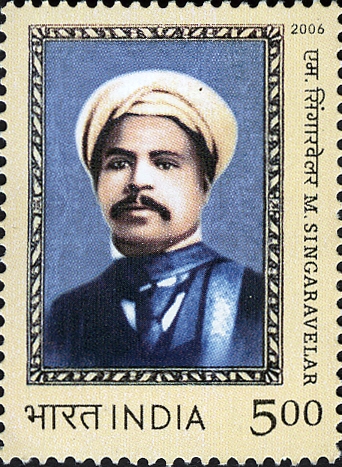
M. Singaravelu
I think this conference is the first of its kind in the whole of India. One can boldly assert that this conference will bring good to the country and people. Unfortunately some people, out of ignorance, have ridiculed this conference. As usual, theists indulge in slander. The bureaucrats try to indulge in repression under some pretext or other. But this is not a new occurrence. In the past all progressive movements have been persecuted and ridiculed.
Not content with ridiculing the progressive movement, this mad and ignorant world has always tried to stop the spread of scientific knowledge. Ingersol, the famous atheist of America was not taken note of during his lifetime and was even ridiculed. But now his birth anniversary is being celebrated in America. Bradlaugh, the British atheist, was put behind bars during his lifetime. Now what happens in Britain? Commemoration meetings in honour of Bradlaugh are being held in Britain. I am sure in due course still bigger conferences of this kind would be held in this country. It is quite likely that people may forget the names of the atheists but their ideas will remain forever in their minds.
Atheism is an ancient doctrine which originated and developed side by side with theism. When the concept of God was ushered in, alongside came the doctrine of ‘no-God’. Till the time man developed his faculty to speak, he was not aware of any God. Some of the primitive tribesmen have confessed their ignorance about God, and can aptly be called ‘primitive atheists’.
Atheism is an ancient doctrine which originated and developed side by side with theism. When the concept of God was ushered in, alongside came the doctrine of ‘no-God’. Till the time man developed his faculty to speak, he was not aware of any God. Some of the primitive tribesmen have confessed their ignorance about God, and can aptly be called ‘primitive atheists’.
In this connection it is really interesting to note the history of religion. Every religion had proclaimed that people belonging to the other religions were atheists. A non-Hindu is an atheist to a Hindu. To a Muslim any non- Muslim is an atheist. Likewise, many more people were termed as atheists. Hence, I would like to say one should really be proud to be an atheist as he is not only non-religious but also does not accept a belief in God.
As the word (God) was man’s own creation, he began to build houses (temples) for his God. Just as he respected his superiors and elders, he began to respect his God. What he did to entertain himself like music, dance, rituals, feasts, he offered to his God. Thus, God advanced as man advanced.
Some shrewd men of those days found an easy way to life and this paved the way for replacing the word with an idol. To make man live perpetually in fear of God, these men did everything possible and thus priesthood came into existence. These priests lived and thrived on the fear and ignorance of men. Thus around the single word ‘God’ the entire edifice of religious and philosophical system of rituals and prayers were built. In the course of history, many beliefs have become obsolete and I am sure that this belief, namely, theism too would become obsolete in due course.
The first and most dangerous affect of theism is that it saps the initiative of man. Ignorance take deep roots in him. People are prevented from acquiring scientific knowledge. Theism is not only a negative evil; it is positively harmful to the people.
The first and most dangerous affect of theism is that it saps the initiative of man. Ignorance take deep roots in him. People are prevented from acquiring scientific knowledge. Theism is not only a negative evil; it is positively harmful to the people. Whatever may be the future of God, we can never forget and forgive his past. It is only atheism that instills confidence in man. It is only atheism which proclaims that social and economic inequalities are only manmade. Hence, it goads man to seek out ways of removing obstacles in the way of progress. It is only atheism that proclaims to man: ‘Man, be a man. You alone can convert this earth into a paradise.’
Comrades, crucial battles are ahead of us. We cannot rest on our laurels now. Though it is put on defence, theism has not been completely routed. Power, money, propaganda, still side with theism. Further, a majority of people, out of ignorance still remain with theism and we have to redeem them. Theism alongwith power and money may over and again attempt to bar the growth and development of human initiative. A concrete example is the development of Hitlerism and fascism. Religious beliefs and other ageold obscurantist ideas are thrust down the throats of people. This is a dangerous trend. Take again some of the views expressed by Gandhiji. He is openly advocating theism. Further, he is crying to make some readjustment in the caste system, to reform it. In our view these are against the principles of atheism. The so-called removal of untouchability is a mere device to strengthen religious beliefs among the people. The untouchables numbering about six crores are economically poor and downtrodden. What they need is neither God or religion. They need a meal a day and an opportunity to earn a decent living.
Comrades, crucial battles are ahead of us. We cannot rest on our laurels now. Though it is put on defence, theism has not been completely routed. Power, money, propaganda, still side with theism. Further, a majority of people, out of ignorance still remain with theism and we have to redeem them. Theism alongwith power and money may over and again attempt to bar the growth and development of human initiative.
However, there is another danger ahead. The Hindu Mahasabha, the Sanatanis, Muslim communalists, etc., are still striving hard to capture the legislative assembly so that theism can be enthroned. These are the worst reactionaries in this unfortunate land. Beware comrades, not to lose this opportunity for contesting and capturing every seat in every village and panchayat, in every taluk and district board. Fearlessly expose the sham of casteism and oppression. Dethrone ignorance and theism. Please, enthrone atheism and socialism in its place.
The great Calcutta killings (Calcutta, September 1946)
SYAMA PRASAD MOOKERJEE
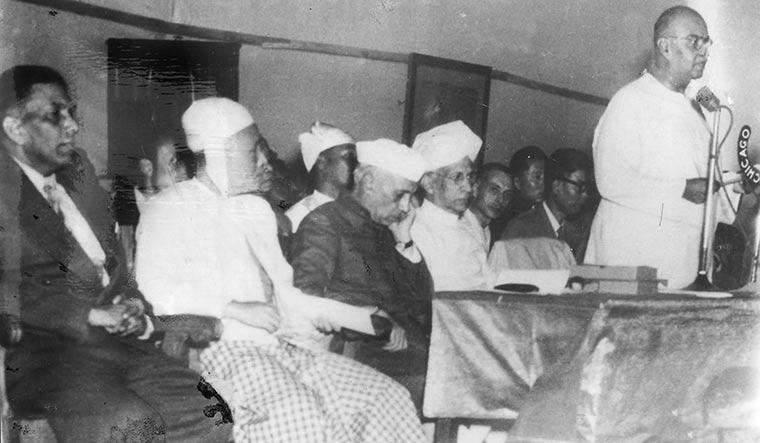
Syama Prasad Mookerjee
Sir, since yesterday we have been discussing the motions of no-confidence under circumstances, which perhaps have no parallel in the deliberations of any Legislature in any part of the civilized world. What happened in Calcutta is without a parallel in modern history. St Bartholomew’s Day of which history records some grim events of murder and butchery pales into insignificance compared to the brutalities that were committed in the streets, lanes and bye-lanes of this first city of British India. We have been discussing, Sir, as to the genesis of these disturbances. Time will not permit me to go through the detailed history and course of events during the last few years.
But let me say this that what has happened is not the result of a sudden explosion, but it is the culmination of an administration, inefficient, corrupt and communal, which has disfigured the life of this great Province. But so far as the immediate cause is concerned, rightly reference has been made by members belonging to the Muslim League and also to the Opposition that we have to look to the resolution that was passed at Bombay at the all-India session of the Council of the Muslim League. Now what happened there? It is said, on behalf of the Muslim League that the Cabinet Mission proved faithless to Muslim interests and thereby created a situation which had no parallel in the history of Anglo-Muslim relationship in this country. What did actually the Cabinet Mission do? The Muslim League, the spoilt and pampered child of the British imperialists for the last thirty years, was disowned for the first time by the British Labour Government…(loud noise from the government benches)…I know it that members when they hear the bitter truth, can hardly repress their feelings. Sir, the fact remains that the old policy of the British Government of no advancement without a Congress-Muslim League agreement was for the first time given up in I946…(loud cries from the government benches)…I have only stated the fact and I do not make any comment on it and still my friends become impatient immediately. Now, the fact remains that the Muslim League was bypassed and the Interim Government has been formed at the Centre. Supposing Mr Jinnah had been asked to form the Interim Government without the Congress, would my friends belonging to the Muslim League have then blamed the government for having betrayed the interests of the Hindu community?
But let me say this that what has happened is not the result of a sudden explosion, but it is the culmination of an administration, inefficient, corrupt and communal, which has disfigured the life of this great Province. But so far as the immediate cause is concerned, rightly reference has been made by members belonging to the Muslim League and also to the Opposition that we have to look to the resolution that was passed at Bombay at the all-India session of the Council of the Muslim League.
Sir, what happened after the Bombay resolution? I have before me a summary of the speeches delivered by distinguished spokesmen on behalf of the Muslim League in every part of India and although it was said that the Direct Action Day itself was not the day for commencing direct action, it was at the same time pointed out that the war had begun, the days of peace and compromise were over and now the jehad … (A member from the Government Benches: Against whom?) War against everyone who did not accept Pakistan. That has been made abundantly clear.
I would ask my friends not to misunderstand me. I am trying to put in brief their point of view as I would ask them also to appreciate our point of view. We are like poles asunder. You say you will plunge the country Pakistan by any means whatsoever. These two points of view are irreconcilable and what I am now telling the House is this that the members speaking on behalf of the Muslim League did not mince matters. Muslim leaders want Civil War. Only a pattern of civil war, according to Mr Jinnah, was witnessed in this very city of Calcutta, but whether civil war will ultimately help Muslims to get Pakistan or not is a matter that remains yet to be seen. It is said that British Imperialists are against the Muslim League. Why talk rot in this way? Who gave you separate electorate and communal award? Who is helping the Sind ministry to remain in power? Is not the Governor a British Governor? Are not the three European members of the Sind Assembly British members of that House? Are they not trying their level best somehow to keep the Muslim League in power and not allow the Congress to go to office although among the Indian members they are in a majority?
Now, Sir, I shall leave this aside. I shall not refer to the detailed speeches which have been delivered by the Muslim League leaders barring one or two illustrative remarks. When Mr Jinnah was confronted at a preconference in Bombay on the 31st July and was asked whether direct action involved violence or non-violence, his cryptic reply was ‘I am not going to discuss ethics’. (The Hon’ble Mr Muhammad Ali: Good.) But Khwajah Nazimuddin was not so good. He came out very bluntly in Bengal and he said that Muslims did not believe in non-violence at all, Muslims knew what direct action meant and there were one hundred and one ways in which this was made clear by responsible League leaders. One said in the Punjab that the zero hour had struck and that the war had begun. All this was followed by a series of articles and statements which appeared in the columns of newspapers— the Morning News, the Star of India, and the Azad. If you read those documents, particularly I would ask my friend Mr Ispahani if he reads those documents, I do not know whether he had learnt Bengali yet, if not, for his benefit a translation can be made of the Bengali article in Azad, he will be able to find out that there was nothing but open and direct incitement to violence. Hatred of Hindus and jehad on the Hindu were declared in highly charged language. That was the background. I am not going to quote the papers, for I have not the time. You have read them and the general Muslim public have acted according to the instructions.
Now, so far as the later events are concerned, what happened on the 16th of August. What were the preparations made? Mr Ispahani says that they were taken unaware. In the Morning News on the 16th there appeared an announcement on behalf of the ‘Pakistan’ Ambulance Corps and there full instructions were given as to how the Ambulance Corps was to act—mind you, Sir, this was done before the troubles started. This ‘Pakistan Ambulance Corps’ was to be utilized in different parts of the city; they were to go out in batches, cars and officers ‘would be available’ and from the 17th morning announcement was to be made every hour as regards the patients who were to be found in the different hospitals of Calcutta. This was announced before any trouble started in Calcutta and Mr Ispahani says there was no preparation. Of course it was sheer bad luck that you allowed this notice, among many kinds of preparations, to be published in the newspapers.
Now, Sir, what happened on the 16th? I shall not refer to the detailed speeches of other members. But I shall certainly hold responsible the Chief Minister of this province who lost his mental balance by saying in Bombay that he was going to declare Bengal to be an independent state. A minister who cannot control his British underling — the Commissioner of Police — is going to make Bengal an independent state! A minister who comes forward and says ‘I am helpless, I could not save the people of the city because the Commissioner of Police would not listen to me’ will declare Bengal an independent state! Now, that was Mr Suhrawardy. He said he was going to carry on a no-rent campaign in this province. He was going to disobey law and order. His speech before the Legislative Council goes to show that he knew fully well that troubles were ahead. If you analyse his speech it will appear that he knew that troubles were brewing and he said he wanted to be as careful as possible.
Now, Sir, what happened on the 16th? I shall not refer to the detailed speeches of other members. But I shall certainly hold responsible the Chief Minister of this province who lost his mental balance by saying in Bombay that he was going to declare Bengal to be an independent state. A minister who cannot control his British underling — the Commissioner of Police — is going to make Bengal an independent state!
I am not raising the question in this debate as to how many Hindus were butchered or how many Muslims were butchered in Bhawanipore, Taltolla, or Watgunge. That is not the issue. The question in issue today is, did government succeed in protecting life and property; not to which community that life and property belonged? Why did government allow so many Muslim lives to be butchered if you look upon Mr Suhrawardy as the great Muslim champion? Why did he allow the entire administration of law and order to collapse in the city? I shall say, Sir, it was a diabolical plan. I say Sir, there was a well-organized plan to make a lightning attack on the city that would take Hindus by surprise, properties were going to be looted and lives were going to be lost. Then Mr Suhrawardy found that he was caught in his own trap when he and others were hit back in their own coin. He could not regain his lost ground and failed to do what his Muslim brethren asked him to do in agony and distress.
I am not raising the question in this debate as to how many Hindus were butchered or how many Muslims were butchered in Bhawanipore, Taltolla, or Watgunge. That is not the issue. The question in issue today is, did government succeed in protecting life and property; not to which community that life and property belonged?
On the 16th, our case is that provocation came from the other side, their case is that provocation came from the Hindu side. That also I am not going to discuss today. Let us leave that for the time being, but let us proceed to the next stage. Mr Suhrawardy said by 12 noon he realized the situation was very bad. Was he not still the Chief Minister of Bengal? What did he do at that time? Why was not the military called out at that time? I have got here a circular issued by the military for the information of its officers and employees in which clear information is given that the military was ready to come out on Friday noon but it was not asked to do so. The civil police failed to protect the life and property as it was expected to do and whenever the military was asked to come out, it came out and it did whatever it could do. But, alas, thousands had been killed meanwhile and crores of rupees looted!
On Friday Mr Suhrawardy knew that trouble had broken out— no matter whether the Hindus were the aggressors or the Muslims were, why did he allow the whole city to be placed at the mercy of goondas, dacoits and murderers? Why did he allow the meeting at all to be held at the maidan in the afternoon over which he presided? He stands charged with the deliberate offence of having played havoc with the life and property of the citizens of this great city, no matter whether they were Hindus or they were Muslims. On Friday night he gave a message to the Associated Press that the condition in the city had improved. Does he remember it? It seems that the Associated Press went to the next day’s newspapers. I would ask my friends to forget for the time being that they belong to the Muslim League. If Mr Suhrawardy says ‘no’, here, Sir, is the statement of Mr H.S. Suhrawardy, Chief Minister of Bengal— I suppose that is the gentleman sitting over there (laughter) interviewed by the Associated Press of India to the effect that the situation was improving. (Uproar) (A voice from the government benches: What paper?) Every newspaper. (Renewed uproar.) I would ask my friends that they must observe the rules of the game and fairplay even in a discussion like this. Why don’t you ask the Chief Minister to explain this?
Mr Speaker, you can certainly look into it. I am not afraid of the truth. Yes, Sir, (Sent the paper to Mr Speaker.) I can produce it to anyone who wants to see it. Now, Sir, Section l44 is supposed to have been promulgated on Friday but was never enforced.
Then on Saturday the curfew order was inaugurated, but neither Section 144 nor the curfew order was enforced. How is it that in spite of Section 144 and the curfew order people were moving about committing loot and plunder, and murder even? How is it that within a stone’s throw, Mr Ispahani has pointed out, from Lalbazar police station shops were looted, people were murdered and all sorts of offences were committed without the Police moving an inch?
Of course, you are responsible. If you have got the guts to say that you are not responsible, let us know that. Now, Sir, that was on the 16th and 17th August. Later on what happened? Mr Suhrawardy knows it very well that he was telling a double-faced lie. On the 23rd he issued a broadcast message, a message of peace for the people of Bengal and within half an hour of that he sent out a special message for the foreign press through foreign correspondents and the things which are mentioned in that document are entirely different from the broadcast message which he issued to the people of Bengal. Can he deny that? (A voice from the Government Benches: That is obvious). He has stated that the Hindus have started the riot. (The Hon’ble Mr H.S. Suhrawardy: Certainly.) He has said that it is the Hindus, who are to blame. He said it was the British Government which was to blame. Say ‘certainly’ (laughter) and lastly, he said that he cannot yet tell what will happen in future if the Interim Government continues in office. Now, Sir, if that is the remark which he wanted to make on that day what was the use of his appealing to the people of Bengal for peace and harmony and saying ‘I have kept an open mind and I would like Hindus and Muslims to work together’. Can history give us a better example of a double-faced minister?
Sir, there are two matters here which may be mentioned. Mr Suhrawardy said that he could not control the Commissioner of Police because he was not under his orders. I shall give you, Sir, one instance out of many which are available from which it will appear how Mr Suhrawardy interfered with the administration of the police offices in a manner which was unworthy of any Home Minister of any Province. In the Park Street police station about seven goondas were taken by a European Inspector on Sunday evening. Sir, that is the remark which Mr Suhrawardy has made namely, ‘I am sorry you are a goonda then.’ I do not know who they are. These persons were found with looted properties. If Mr Suhrawardy says that Muslim gentlemen took away looted properties I shall bow down my head to him, but if he says that I am a goonda then I too can say that he is the best goonda that is available not only in this Province but throughout the world.
(Uproar)
Sir, I shall withdraw it as soon as Mr Suhrawardy withdraws what he has said about me. (Cries of ‘withdraw, withdraw’ from the government benches). Let him withdraw first, what he first has said about me.
Now I withdraw too. Now, Sir, let me pass on. So far as the Park Street incident is concerned, the important point is that goondas or gentlemen whoever they were, seven Muslims who were found in possession of looted properties were brought into Park Street police-station by a European Inspector. Within ten minutes Mr H.S. Suhrawardy appears on the scene. He gets these persons released. It is on record. Let him deny that. (The Hon’ble Mr H.S. Suhrawardy: Yes). (Cries of ‘shame, shame’ from Congress benches.) Then he comes back (Mr H.S. Suhrawardy: Oh! no). This is the way, Sir, in which Mr Suhrawardy has behaved. This is one instance I am giving. (Cries of ‘you have cooked it’ from government benches). No, I have not cooked it. He himself has admitted it.
Then, Sir, the Muslim League party wanted 500 gallons of petrol from the Bengal Government. That was not granted, but petrol coupons were issued in the name of individual ministers — general coupons — 100 gallons being issued in the name of the Chief Minister. Evidence is available that these coupons were used by lorries moving in the streets of Calcutta on those fateful days. That is how arrangements were being made under the very nose of the Home Department over which Mr Suhrawardy was presiding. Can Mr Suhrawardy deny that he himself went to Howrah accompanied by some Muslim League leaders, met local officers in authority there, and had chastized and taken them to task because Muslims were not protected there? Can he deny that? Did Mr Suhrawardy give in any place or at any time the same sort of protection to the suffering Hindus. (The Hon’ble Mr H.S. Suhrawardy: Certainly). Now, Sir, it is quite clear that at least I have said some home truths which have made my friends opposite angry and impatient.
Sir, they, these ministers, have taken oath of allegiance to the British Crown and they are responsible for the life and property of all alike. My friend, Mr Muhammad Ali, admitted this very candidly when the adjournment motion was not allowed to be taken up in this House. Mr Suhrawardy is a great Muslim League leader and he owes his allegiance to the Muslim League. The Muslim League rightly or wrongly ordered that if something does not happen to its liking, it was going to resort to direct action. One cannot serve two masters. Sir, it has been proved beyond doubt that Mr Suhrawardy and his other Ministers are unable to administer the affairs of this Province impartially and efficiently. They have failed hopelessly and wretchedly and on that ground alone they are not fit to occupy offices for a single moment (Interruptions).
Sir, it is not in Calcutta alone that atrocities were committed in a large scale, but we find that troubles are spreading now in the whole of Bengal. The information which is coming from different parts of Bengal would make one shudder to think as to what will happen to this province. These gentlemen, the ministers over there, should not remain in charge of the affairs of this province even a day longer.
Sir, it is not in Calcutta alone that atrocities were committed in a large scale, but we find that troubles are spreading now in the whole of Bengal. The information which is coming from different parts of Bengal would make one shudder to think as to what will happen to this province. These gentlemen, the ministers over there, should not remain in charge of the affairs of this province even a day longer. (Interruptions) If they remain in office the future would be darker still. (Interruptions) The Council of Action of the All-India Muslim League has ordered that preparations have to be made for giving effect to the Direct Action Program. Already Muslim League leaders from the Punjab, North-West Frontier Province and also Sind have openly declared that they are ready with their scheme which can be put into operation at 24 hours’ notice. Am I to believe that the Muslim League in Bengal which is a stronghold of Mr Jinnah’s Muslim League is not similarly prepared to give effect to the order of the Muslim League when the occasion demands it? In other words, my charge is that the present Ministry is utilizing the government machinery for the purpose of launching upon a Direct Action scheme. (The Hon’ble Mr H.S. Suhrawardy: No). Mr Suhrawardy is playing a dual role and this dual role of Mr Suhrawardy and those who are supporting him has got to be exposed and brought to an end in the interest of peace and tranquility.
Why does not the Chief Minister get the reports of the Commissioner of Police through the Criminal Investigation Department as regards some meetings which took place in the city? Mr Suhrawardy has perhaps got the proceedings confidentially of the meetings which were held in the cities where League leaders were invited to attend for the purpose of preparing scheme for direct action. If he has got any report about what happened on the 16th, he will find that even when the Calcutta maidan meeting was being held, over which Mr Suhrawardy presided, disturbances had broken out in several places. Now what happened in that meeting? Was there then any CID officer present taking down notes? Where are those notes?
Sir, it was an astonishing fact that a gun shop within 2 minutes walk from the Government House had been looted. Not a single policeman turned up in the streets to control the situation in any part of the city. It will not help merely making the Commissioner of Police a scapegoat, it is suggested that the city had been ablaze in so many places that the Commissioner of Police did not know how to act. But surely Mr Suhrawardy knew how and when to act. (The Hon’ble Mr H.S. Suhrawardy: Yes, yes). Mr Suhrawardy says that he knew and we also know when he acted. If he had failed without making any effort, then he is charged with criminal negligence and if he failed in spite of efforts, he is certainly inefficient and worthless, and he should not be kept in that position any longer. There is no place for him in the ministry.
Sir, there is one point which I would like to say with regard to the Britishers in this House. My friends are remaining neutral. I cannot understand this attitude at all. In a situation such as this they must decide if the ministry was right or the ministry was wrong. If the ministry was right, support them and if the ministry was wrong, you should say so boldly and not remain neutral merely sitting on the fence which shows signs of abject impotence (Laughter).
If a single Britisher, man or woman or a child, had been strong enough they would have thrown this ministry out of office without hesitation, but because no Britisher was touched so they can take an impartial and neutral view! Are they so sure they will be left untouched next time? There is no question of partiality or impartiality here. The present administration has failed and it must come to an end. Anyone who remains neutral is an aider and abettor.
My friend, Mr Gladding, said that luckily none of his people were injured. It is true, Sir, but that is a statement which makes me extremely sorry. If a single Britisher, man or woman or a child, had been strong enough they would have thrown this ministry out of office without hesitation, but because no Britisher was touched so they can take an impartial and neutral view! Are they so sure they will be left untouched next time? There is no question of partiality or impartiality here. The present administration has failed and it must come to an end. Anyone who remains neutral is an aider and abettor.
I would ask my friends, what about the future. Pakistan will not be accepted under any circumstance. (Mr Fazlur Rahman: It will be accepted). Mr Suhrawardy said in Bombay after the 16th of August, ‘When a nation fights against another nation I cannot guarantee civilized conduct.’ If you are a nation fighting against us, another nation, if that is the attitude of my friends on the other side, then they cannot remain in office any longer. (Cries of ‘Hear, hear’ from the Opposition Benches). Mr Suhrawardy must realize that his office is meant for the good of the entire people of Bengal irrespective of caste, creed and religion, and not for his own so-called ‘nation’. I would say, Sir, that is an abject treachery to the great responsibility that rests on Mr Suhrawardy, as Premier (Interruptions).
Apparently I said many good things, otherwise my friends would not be so jubilant. The Chief Minister was dancing the other day on the polished floor of a Delhi Hotel and I have made my friends dance on the floor of this House. I will now say a few words in connection with the future. What about the future? My friends, the Muslims, say that they constitute 25 percent of India’s population, and that is so big a minority that they will never agree to live under 75 percent Hindu domination. Now if that is their honest and genuine point of view how can they expect that 45 percent of the Hindu population of this Province will ever agree to live under a Constitution where that particular nation represented by Muslims, constituting only of 55 percent, will alone dominate? (The Hon’ble Mr Shamsuddin Ahmed: That is how the trouble began). I will not today enter into controversies as regards the real population of Bengal. I claim it that if a proper census is taken even today the Hindus will not be in a minority but that question cannot be settled by argument from one side or the other. My Muslim friends who are well-organized under the banner of the Muslim League have got to realize that if Bengal is to be ruled peacefully it can be done only with the willing cooperation of the two communities. I am not talking of all India politics for the time being. (The Hon’ble Mr Shamsuddin Ahmed: Why not? What has happened to all India politics?) I would make this appeal to my friends that a choice has to be made by the Hindus and the Muslims together. There is no way out of it because what we witnessed in Calcutta was not an ordinary communal riot: its motive was political, but things may become even far more serious and drastic in the days, weeks and months to come. Now, if the Muslims of Bengal under the leadership of the Muslim League feel that they can exterminate the Hindus, that is a fantastic idea which can never be given effect to: three and a half crores can never exterminate three crores nor can three crores exterminate three and a half crores.
Sir, if it is said that civil war will break out throughout India, will that help anyone, will that help, in particular, 25 percent. Muslims throughout India as against 75 percent of Hindus and other non-Muslims. It is not a question of threat at all; it is a question of facing a stern reality. Either we have to fight or we have to come to some settlement. The settlement cannot be reached so long as you say that one community will dominate over the other, but it can only be reached by a plan which will enable the vast majority of Hindus and Muslims to live under circumstances which will give freedom and peace to the common man.
Now, Sir, if it is said that civil war will break out throughout India, will that help anyone, will that help, in particular, 25 percent. Muslims throughout India as against 75 percent of Hindus and other non-Muslims. It is not a question of threat at all; it is a question of facing a stern reality. Either we have to fight or we have to come to some settlement. The settlement cannot be reached so long as you say that one community will dominate over the other, but it can only be reached by a plan which will enable the vast majority of Hindus and Muslims to live under circumstances which will give freedom and peace to the common man. After all, forget not who suffered most during the Calcutta Killing. It as mainly the poorer people, both amongst the Hindus and the Muslims. Ninety percent of them were poor and innocent and if the leaders lose their heads and go creating a situation which they cannot ultimately control, the time will soon come when the common man will turn round and crush the leaders instead of being themselves crushed. It is therefore vitally necessary that this false and foolish idea of Pakistan or Islamic rule has to be banished for ever from your head. In Bengal we have got to live together. We say as a condition precedent this ministry must go. Only then can we create a state of affairs which will make it possible to build a future Bengal which will be for the good of all, irrespective of any caste, creed, or community.
Opening address to the Constituent Assembly of Pakistan (Karachi, August 1947)
MUHAMMAD ALI JINNAH
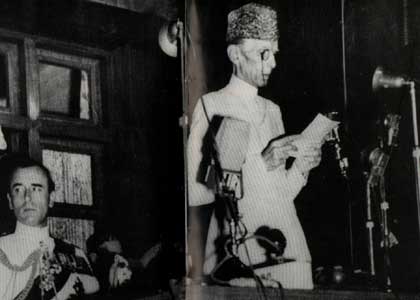
Jinnah speaking at the Constituent Assembly of Pakistan on 14 August 1947
Mr President, Ladies and Gentlemen!
I cordially thank you, with the utmost sincerity, for the honor you have conferred upon me — the greatest honour that is possible for this Sovereign Assembly to confer — by electing me as your first President. I also thank those leaders who have spoken in appreciation of my services and their personal references to me. I sincerely hope that with your support and your cooperation we shall make this Constituent Assembly an example to the world. The Constituent Assembly has got two main functions to perform. The first is the very onerous and responsible task of framing our future Constitution of Pakistan and the second is functioning as a full and complete sovereign body as the Federal Legislature of Pakistan. We have to do the best we can in adopting a provisional constitution for the Federal Legislature of Pakistan. You know really that not only we ourselves are wondering but, I think, the whole world is wondering at this unprecedented cyclonic revolution which has brought about the plan of creating and establishing two independent sovereign dominions in this subcontinent. As it is, it has been unprecedented; there is no parallel in the history of the world. This mighty subcontinent with all kinds of inhabitants has been brought under a plan which is titanic, unknown, unparalleled. And what is very important with regard to it is that we have achieved it peacefully and by means of an evolution of the greatest possible character.
Dealing with our first function in this Assembly, I cannot make any well considered pronouncement at this moment, but I shall say a few things as they occur to me. The first and the foremost thing that I would like to emphasize is this: Remember that you are now a sovereign legislative body and you have got all the powers. It, therefore, places on you the gravest responsibility as to how you should take your decisions. The first observation that I would like to make is this: You will no doubt agree with me that the first duty of a government is to maintain law and order, so that the life, property and religious beliefs of its subjects are fully protected by the state.
Remember that you are now a sovereign legislative body and you have got all the powers. It, therefore, places on you the gravest responsibility as to how you should take your decisions. The first observation that I would like to make is this: You will no doubt agree with me that the first duty of a government is to maintain law and order, so that the life, property and religious beliefs of its subjects are fully protected by the state.
The second thing that occurs to me is this: One of the biggest curses from which India is suffering — I do not say that other countries are free from it, but, I think, our condition is much worse — is bribery and corruption. That really is a poison. We must put that down with an iron hand and I hope that you will take adequate measures as soon as it is possible for this Assembly to do so.
Black-marketing is another curse. Well, I know that black-marketeers are frequently caught and punished. Judicial sentences are passed or sometimes fines only are imposed. Now you have to tackle this monster which today is a colossal crime against society, in our distressed conditions, when we constantly face shortage of food and other essential commodities of life. A citizen who does black-marketing commits, I think, a greater crime than the biggest and most grievous of crimes. These black-marketeers are really knowing, intelligent and ordinarily responsible people, and when they indulge in black-marketing, I think they ought to be very severely punished, because they undermine the entire system of control and regulation of foodstuffs and essential commodities, and cause wholesale starvation and want and even death.
The next thing that strikes me is this: Here again it is a legacy which has been passed on to us. Alongwith many other things, good and bad, has arrived this great evil—the evil of nepotism and jobbery. This evil must be crushed relentlessly. I want to make it quite clear that I shall never tolerate any kind of jobbery, nepotism or any influence directly or indirectly brought to bear upon me. Whenever I will find that such a practice is in vogue or is continuing anywhere, low or high, I shall certainly not countenance it.
Now, if we want to make this great State of Pakistan happy and prosperous we should wholly and solely concentrate on the well-being of the people, and especially of the masses and the poor. If you will work in cooperation, forgetting the past, burying the hatchet, you are bound to succeed. If you change your past and work together in a spirit that every one of you, no matter to what community he belongs, no matter what relations he had with you in the past, no matter what is his colour, caste or creed, is first, second and last a citizen of this state with equal rights, privileges and obligations, there will be no end to the progress you will make.
I know there are people who do not quite agree with the division of India and the partition of the Punjab and Bengal. Much has been said against it, but now that it has been accepted, it is the duty of every one of us to loyally abide by it and honourably act according to the agreement which is now final and binding on all. But you must remember, as I have said, that this mighty revolution that has taken place is unprecedented. One can quite understand the feeling that exists between the two communities wherever one community is in majority and the other is in minority. But the question is, whether it was possible or practicable to act otherwise than what has been done. A division had to take place. On both sides, in Hindustan and Pakistan, there are sections of people who may not agree with it, who may not like it, but in my judgment there was no other solution and I am sure future history will record its verdict in favour of it. And what is more, it will be proved by actual experience as we go on that it was the only solution of India’s constitutional problem. Any idea of a united India could never have worked and in my judgment it would have led us to terrific disaster. May be that view is correct; may be it is not; that remains to be seen. All the same, in this division it was impossible to avoid the question of minorities being in one dominion or the other. Now that was unavoidable. There is no other solution. Now what shall we do? Now, if we want to make this great State of Pakistan happy and prosperous we should wholly and solely concentrate on the well-being of the people, and especially of the masses and the poor. If you will work in cooperation, forgetting the past, burying the hatchet, you are bound to succeed. If you change your past and work together in a spirit that every one of you, no matter to what community he belongs, no matter what relations he had with you in the past, no matter what is his colour, caste or creed, is first, second and last a citizen of this state with equal rights, privileges and obligations, there will be no end to the progress you will make.
I cannot emphasize it too much. We should begin to work in that spirit and in course of time all these angularities of the majority and minority communities, the Hindu community and the Muslim community—because even as regards Muslims you have Pathans, Punjabis, Shias, Sunnis, and so on and among the Hindus you have Brahmins, Vaishnavas, Khatris, also Bengalees, Madrasis, and so on—will vanish. Indeed if you ask me this has been the biggest hindrance in the way of India to attain the freedom and independence and but for this we would have been free peoples long, long ago. No power can hold another nation, and specially a nation of 400 million souls in subjection; nobody could have conquered you, and even if it had happened, nobody could have continued its hold on you for any length of time but for this. Therefore, we must learn a lesson from this. You are free; you are free to go to your temples, you are free to go to your mosques or to any other place of worship in this State of Pakistan. You may belong to any religion or caste or creed—that has nothing to do with the business of the state. As you know, history shows that in England, conditions some time ago, were much worse than those prevailing in India today. The Roman Catholics and the Protestants persecuted each other. Even now there are some states in existence where there are discriminations made and bars imposed against a particular class. Thank God, we are not starting in those days. We are starting in the days when there is no discrimination, no distinction between one community and another, no discrimination between one caste or creed and another. We are starting with this fundamental principle that we are all citizens and equal citizens of one state. The people of England in course of time had to face the realities of the situation and had to discharge the responsibilities and burdens placed upon them by the government of their country and they went through that fire step by step. Today, you might say with justice that Roman Catholics and Protestants do not exist; what exists now is that every man is a citizen, an equal citizen of Great Britain and they are all members of the Nation.
Now, I think we should keep that in front of us as our ideal and you will find that in course of time Hindus would cease to be Hindus and Muslims would cease to be Muslims, not in the religious sense, because that is the personal faith of each individual, but in the political sense as citizens of the state. Well, gentlemen, I do not wish to take up any more of your time and thank you again for the honour you have done to me. I shall always be guided by the principles of justice and fairplay without any, as is put in the political language, prejudice or ill-will, in other words, partiality or favouritism. My guiding principle will be justice and complete impartiality, and I am sure that with your support and cooperation, I can look forward to Pakistan becoming one of the greatest nations of the world.
Now, I think we should keep that in front of us as our ideal and you will find that in course of time Hindus would cease to be Hindus and Muslims would cease to be Muslims, not in the religious sense, because that is the personal faith of each individual, but in the political sense as citizens of the state.
I have received a message from the United States of America addressed to me. It reads:
I have the honour to communicate to you, in Your Excellency’s capacity as President of the Constituent Assembly of Pakistan, the following message which I have just received from the Secretary of State of the United States:
On the occasion of the first meeting of the Constituent Assembly for Pakistan, I extend to you and to the members of the Assembly, the best wishes of the Government and the people of the United States for the successful conclusion of the great work you are about to undertake.
Jama Masjid Speech (Delhi, 1947)
MAULANA ABUL KALAM AZAD
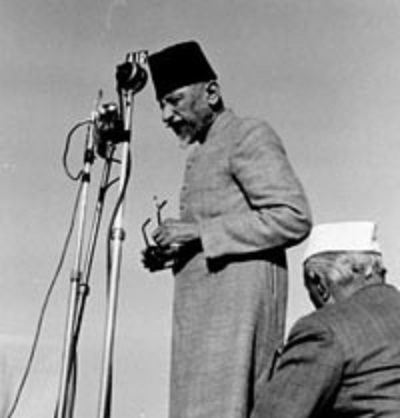
Maulana Abul Kalam Azad
My brethren,
You know what has brought me here today. This congregation at Shahjahan’s historic mosque is not an unfamiliar sight for me. Here, I have addressed you on several previous occasions. Since then we have seen many ups and downs. At that time, instead of weariness, your faces reflected serenity, and your hearts, instead of misgivings, exuded confidence. The uneasiness on your faces and the desolation in your hearts that I see today, reminds me of the events of the past few years.
Do you remember? I hailed you, you cut off my tongue; I picked my pen, you severed my hand; I wanted to move forward, you broke off my legs; I tried to run, and you injured my back. When the bitter political games of the last seven years were at their peak, I tried to wake you up at every danger signal. You not only ignored my call but revived all the past traditions of neglect and denial. As a result the same perils surround you today, whose onset had previously diverted you from the righteous path.
Today, mine is no more than an inert existence or a forlorn cry; I am an orphan in my own motherland. This does not mean that I feel trapped in the original choice that had made for myself, nor do I feel that there is no room left for my ashiana (nest). What it means is that my cloak is weary of your impudent grabbing hands. My sensitivities are injured, my heart is heavy. Think for one moment. What course did you adopt? Where have you reached, and where do you stand now? Haven’t your senses become torpid? Aren’t you living in a constant state of fear? This fear is your own creation, a fruit of your own deeds.
Today, mine is no more than an inert existence or a forlorn cry; I am an orphan in my own motherland. This does not mean that I feel trapped in the original choice that had made for myself, nor do I feel that there is no room left for my ashiana (nest). What it means is that my cloak is weary of your impudent grabbing hands. My sensitivities are injured, my heart is heavy.
It was not long ago when I warned you that the two-nation theory was death-knell to a meaningful, dignified life; forsake it. I told you that the pillars upon which you were leaning would inevitably crumble. To all this you turned a deaf ear. You did not realize that, my brothers! I have always attempted to keep politics apart from personalities, thus avoiding those thorny valleys. That is why some of my messages are often couched in allusions. The Partition of India was a fundamental mistake. The manner in which religious differences were incited, inevitably, led to the devastation that we have seen with our own eyes. Unfortunately, we are still seeing it at some places.
There is no use recounting the events of the past seven years, nor will it serve any good. Yet, it must be stated that the debacle of Indian Muslims is the result of the colossal blunders committed by the Muslim League’s misguided leadership. These consequences however, were no surprise to me; I had anticipated them from the very start.
Now that Indian politics has taken a new direction, there is no place in it for the Muslim League. Now the question is whether or not we are capable of constructive thinking. For this, I have invited the Muslim leaders of India to Delhi, during the second week of November.
The gloom cast upon your lives is momentary; I assure you we can be beaten by none save our own selves! I have always said, and I repeat it again today; eschew your indecisiveness, your mistrust, and stop your misdeeds. This unique triple-edged weapon is more lethal than the two-edged iron sword which inflicts fatal wounds, which I have heard of.
The gloom cast upon your lives is momentary; I assure you we can be beaten by none save our own selves! I have always said, and I repeat it again today; eschew your indecisiveness, your mistrust, and stop your misdeeds. This unique triple-edged weapon is more lethal than the two-edged iron sword which inflicts fatal wounds, which I have heard of.
Just think about the life of escapism that you have opted for, in the sacred name of Hejrat. Get into the habit of exercising your own brains, and strengthening your own hearts. If you do so, only then will you realize how immature your decisions were.
Where are you going and why? Raise your eyes. The minarets of Jama Masjid want to ask you a question. Where have you lost the glorious pages from your chronicles? Wasn’t it only yesterday that on the banks of the Jamuna, your caravans performed wazu? Today, you are afraid of living here. Remember, Delhi has been nurtured with your blood. Brothers, create a basic change in yourselves. Today, your fear is misplaced as your jubilation was yesterday.
The words coward and frenzy cannot be spoken in the same breath as the word Muslim. A true Muslim can be swayed neither by avarice nor apprehension. Don’t get scared because a few faces have disappeared. The only reason they had herded you in a single fold was to facilitate their own flight. Today, if they have jerked their hand free from yours, what does it matter? Make sure that they have not run away with your hearts. If your hearts are still in the right place, make them the abode of God. Some thirteen hundred years ago, through an Arab ummi, God proclaimed, “Those who place their faith in God and are firm in their belief, no fear for them nor any sorrow.” Winds blow in and blow out: tempests may gather but all this is short-lived. The period of trial is about to end. Change yourselves as if you had never been in such an abject condition.
I am not used to altercation. Faced with your general indifference, however, I will repeat that the third force has departed, and along with it, its trappings of vanity. Whatever had to happen has happened. If your hearts have still not changed and your minds still have reservations, it is a different matter. But, if you want a change, then take your cue from history, and cast yourself in the new mould. Having completed a revolutionary phase, there still remains a few blank pages in the history of India. You can make ourselves worthy of filling those pages, provided you are willing.
Brothers, keep up with the changes. Don’t say, “We are not ready for the change.” Get ready. Stars may have plummeted down but the sun is still shining. Borrow a few of its rays and sprinkle them in the dark caverns of your lives.
Brothers, keep up with the changes. Don’t say, “We are not ready for the change.” Get ready. Stars may have plummeted down but the sun is still shining. Borrow a few of its rays and sprinkle them in the dark caverns of your lives.
I do not ask you to seek certificates from the new echelons of power. I do not want you to lead a life of sycophancy as you did during the foreign rule. I want you to remind you that these bright etchings which you see all around you, are relics of processions of your forefathers. Do not forget them. Do not forsake them. Live like their worthy inheritors, and, rest assured, that if you do not wish to flee from this scene, nobody can make you flee. Come, today let us pledge that this country is ours, we belong to it and any fundamental decisions about its destiny will remain incomplete without our consent.
Today, you fear the earth’s tremors; once you were virtually the earthquake itself. Today, you fear the darkness; once your existence was the epicenter of radiance. Clouds have poured dirty waters and you have hitched up your trousers. Those were none but your forefathers who not only plunged headlong into the seas, but trampled the mountains, laughed at the bolts of lightning, turned away the tornadoes, challenged the tempests and made them alter their course. It is a sure sign of a dying faith that those who had once grabbed the collars of emperors, are today clutching their own throats. They have become oblivious of the existence of God as if they had never believed in Him.
Brothers, I do not have a new prescription for you. I have the same old prescription that was revealed to the greatest benefactor of mankind, the prescription of the Holy Quran: “Do not fear and do not grieve. If you possess true faith, you will gain the upper hand.”
Brothers, I do not have a new prescription for you. I have the same old prescription that was revealed to the greatest benefactor of mankind, the prescription of the Holy Quran: “Do not fear and do not grieve. If you possess true faith, you will gain the upper hand.”
The congregation is now at an end. What I had to say, I have said, briefly. Let me say once again, keep a grip on your senses. Learn to create your own surroundings, your own world. This is not a commodity that I can buy for you from the market-place. This can be bought only from the market-place of the heart, provided you can pay for it with the currency of good deeds.
May God’s grace be on you!
ARCHIVE
Dalit ‘Viranganas’ and Reinvention of 1857
The past three decades particularly have seen a flourishing of popular dalit literature, pamphlets and booklets, which have emerged as a critical resource for deeper insights into dalit politics and identity. Dalits themselves are disentangling received knowledge from the apparatus of control. This literature brings fresh hope, as it is believed that now dalits are in charge of their own images and narratives, witness to and participants in their own experience. They are rescuing dalit culture from degeneration and stereotypes, and bringing in a new dalit aesthetic. They are not the “Other”, and are themselves articulating critical questions of choice and difference.
Most of this literature is mass produced in thousands, usually in the form of thin pamphlets. It is sold in large quantities through small ad hoc stalls put up at various public rallies, conglomerations and melas of dalits, on pavements, and through dalit presses and publishers, reaching through such commercial networks into a large number of dalit households. Most of the authors are not known much or well established. There is a technical lack of sophistication in the production of these pamphlets, and they are usually thin, reproduced with many editions, priced very cheaply at approximately between Rs 2 and Rs 50, printed on cheap paper, through private dalit presses. They are written in simple colloquial Hindi, and encompass various literary genres.
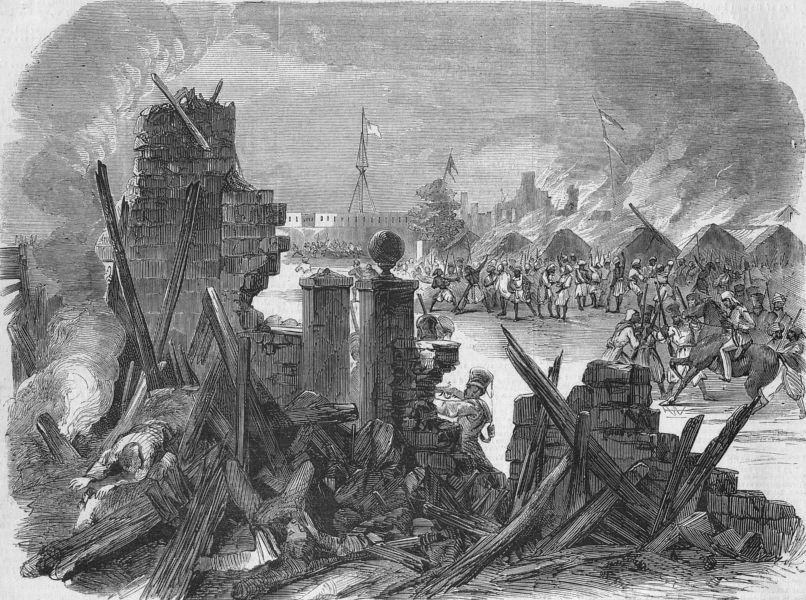
“The Sepoy revolt at Meerut,” wood-engraving from the Illustrated London News, 1857
While covering a huge range, from works by and on Ambedkar, status of dalits and atrocities on them, reservations, conversions, dalit literary writings, theatre and songs, what interests me here are the representations of nationalist struggle in this literature. It has been argued that dalits have had an ambivalent relationship with both Indian nationalism and colonialism, often contradictory with the views of dominant Hindu communities. Some dalit intellectuals argue that the British liberated the dalit masses from the oppressions of Hindu society, and that British rule was good for the dalits. In Uttar Pradesh, many of the activists within the dalit movement had articulated similar ideas as early as the 1920s. For example, the Adi-Hindu movement in the 1920s and 1930s and its leaders were against the Congress and the national movement, and were pro-British. However, in post-independent India, given the imperative political assertions by the dalits, there has been a need felt to assert the nationalist credentials of the dalits and the positive role they played in the freedom struggle. Thus dalit histories have come out with copious volumes on their contribution and role in the independence movement, digging out hitherto ignored accounts. The social constructions of the role played by dalits in the struggle for India’s freedom have thus been changed by the dalits themselves in tandem with changing social and political conditions in specific historical moments within dalit communities. What is significant, however, is that weather dalits argue for an anti-nationalist or a pro-nationalist stance in the colonial period, their agendas and articulations are substantially different, departing from and challenging conventional nationalists and mainstream historians of the period. Dalit perspectives on their own histories offer a dramatically different account from the received wisdoms taught in most Indian universities.
Thus dalit histories have come out with copious volumes on their contribution and role in the independence movement, digging out hitherto ignored accounts. The social constructions of the role played by dalits in the struggle for India’s freedom have thus been changed by the dalits themselves in tandem with changing social and political conditions in specific historical moments within dalit communities. What is significant, however, is that weather dalits argue for an anti-nationalist or a pro-nationalist stance in the colonial period, their agendas and articulations are substantially different, departing from and challenging conventional nationalists and mainstream historians of the period. Dalit perspectives on their own histories offer a dramatically different account from the received wisdoms taught in most Indian universities.
Promoting alternative accounts of role of dalits in the freedom struggle, this literature portrays itself as the real and comprehensive truth. It catalogues their enormous sacrifices and enumerates the many occasions on which dalits rose in defence of the nation. These stories are endlessly repeated in pamphlets after pamphlets, though they have not found their way in canonised/ mainstream history. What is being proposed by dalit writers here is the concreteness and the almost palpable truth of this history. This popular dalit literature can be seen to represent alternative and dissident voices, coexisting with and simultaneously challenging hegemonic ideologies. It is a counterpoint to hegemony. It also reflects Bakhtin’s notions of dialogics and heteroglossia, and Stuart Hall’s concept of “oppositional” decoding, challenging “dominant-hegemonic” and “negotiated” reading positions.
1857 Revolt, Conventional Histories and Dalit Retellings
The revolt of 1857 figures in a major way in the narratives of popular dalit histories, where a completely alternative account of the revolt emerges, converging histories, myths, realities and retelling of the pasts. The outbreak of 1857 has been regarded as a memorable episode in Indian history. It was in a sense one of the first formidable revolt that had broken out against foreign domination. To prove the nationalist credentials of dalits, their popular histories have thus completely transformed 1857.
Before going into these narratives let us briefly examine conventional and standardised histories of the revolt. Various strands of historiography largely seem to converge, particularly on the question of the caste character of the revolt. According to nationalist historians like S B Chaudhuri, Tara Chand and R C Mazumdar, the social composition of 1857 consisted of the ruling class and the traditional elite of the society, who were the “natural leaders” of the revolt. The elitist character of the revolt is highlighted by referring to it as a general movement of the Muslims and the Hindus-princes, landholders, soldiers, scholars and theologians. Marxist scholars seem to fall within the same paradigm where they basically see the revolt as a last attempt of the elite medieval order to halt the process of its dissolution and recover its lost status. Thomas R Metcalf too emphasises that it was not merely a mutiny nor a war of independence. For him 1857 was “a traditionalist movement in which those who had the most to lose in the new sought the restoration of the old pre-British order”. In his significant work, Eric Stokes, while highlighting the local background of the upsurge, also argues that it was the fear of the loss of an upper caste status due to the use of fat-greased cartridges that precipitated the uprising. He shows how ashraf Muslims, brahmins and rajputs had secured a near monopoly over entry into the Bengal army and they were afraid of a loss to their status. Many other contemporary accounts too emphasise the hurt and the fears of pollution felt up upper caste Hindus as an important reason for the revolt. How do dalit histories of 1857 sit in with these accounts? The purity/pollution ties of the upper castes and classes, linked with the crossing of seas or biting of the flesh of the cow or the pig, do not fit in with dalits. There have been other scholars who have emphasised the lower caste base of the revolt as well. Thus, for example, Rudrangshu Mukherjee emphasises the mutual dependence between peasantry and talukdars, which provided the basis for common and united action at this tumultuous juncture. He thus links the seemingly disjointed and contradictory realms of the elite and the common masses. Gautam Bhadra also highlights the common leaders of the revolt. However, even these scholars, in spite of their best intentions, do not explicitly focus on dalits and even less so on women. As Bhadra says, “In all these representations what has been missed out is the ordinary rebel, his role and his perception of alien rule and contemporary crisis” (emphasis in original).
How do dalit histories of 1857 sit in with these accounts? The purity/pollution ties of the upper castes and classes, linked with the crossing of seas or biting of the flesh of the cow or the pig, do not fit in with dalits. There have been other scholars who have emphasised the lower caste base of the revolt as well. Thus, for example, Rudrangshu Mukherjee emphasises the mutual dependence between peasantry and talukdars, which provided the basis for common and united action at this tumultuous juncture. He thus links the seemingly disjointed and contradictory realms of the elite and the common masses. Gautam Bhadra also highlights the common leaders of the revolt. However, even these scholars, in spite of their best intentions, do not explicitly focus on dalits and even less so on women.
With the rise of the dalit movement and literature in north India, the history of 1857 however has been completely inversed, with many histories of it being rewritten, particularly since the 1960s. Contemporary dalit perceptions and compositions of 1857 are very different from scholarly historical studies on the subject, or even constructed “popular” perceptions, and represent the historical consciousness of the revolt in the public memory of the dalits. The pamphlets and books on dalit histories of 1857 – which may also be described as unofficial dalit histories of colonial India – combine myths, memories and histories, depicting dalit versions of the revolt. Dalit writers are attempting here to look upon the mutiny as part of their struggle for freedom. The revolt has taken on the character of a dalit resistance, where alternative dalit heroes are represented as the real symbols of 1857 in dalit popular nationalist consciousness. The rebel dalit heroes – some constructed, some exaggerated, some “discovered” – have become heroes fighting for a free India. In these accounts, the armies of soldiers against British consist largely of dalits. New dalit histories argue that the dalits had nothing much to lose in pre-British times, as their condition had been miserable even then. So it was actually dalits who fought for independence in 1857, while the upper caste Hindus and Indian rulers only fought to restore their rule. The focus of this literature is no longer on the sepoys or the greased cartridges, but on dalits groaning under foreign oppression. As the famous dalit poet Bihari Lal Harit says regarding 1857:
nai, dhobi, kurmi, kachchi/bharbhuje bhaat kumhaar lare.
Lare khak rub mochi dhanak/sab daliton ke parivar lare.
(Barbers, washermen, kurmis, gardeners, grain-parchers, bards and potters fought.
Cobblers rolling in dust and cotton-carders fought. All dalit families fought.)
Dalit narratives of 1857 deploy an impassioned language, and are written usually by dalit men who are not trained historians. These writers are inspired by altogether different sentiments, and their writings reveal the inner dynamics of dalit politics as well. They are writing history with a mission by claiming a past and using it for the furtherance of their future. One of their purposes in writing inspirational histories of this kind is to stimulate dalit nationalism, dalit patriotic sentiment, and their pride. They are rewriting history to provide dignity to the dalits. Present day feelings are ascribed to dalit heroes of 1857, and they are seen as teaching a moral lesson that the dalits of today need to emulate the heroic deed of their past heroes, and fight for their rights today as well. In the dalit literature, 1857 has become the Caesar of India, which is more powerful when dead than alive. It has got inscribed as a heroic popular uprising fought by the lowly, a symbol of challenge to the British power by the dalits. It entailed united dalit activism and sacrifice of enormous numbers. Its history is constantly being reshaped in the present socio-cultural and political context. It has an inspirational quality, an effective conviction, which signifies a present political importance.
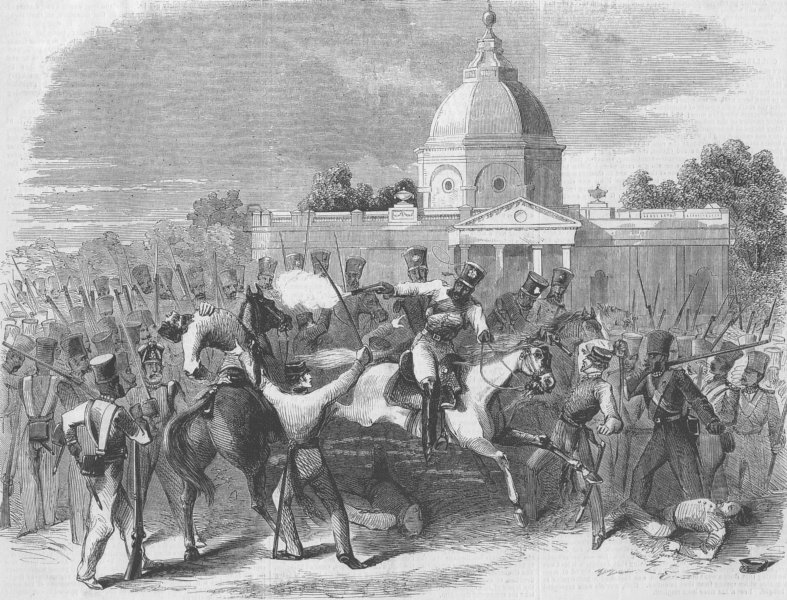
Wood-engraving depicting the massacre of officers by insurgent cavalry at Delhi
1857 has also become a marker for the dalits to prove their nationalist credentials, and claim their own space in the freedom struggle and the history of a nation in the making. By this, dalits also seek to win acceptance from the wider society by creating and legitimising a space for themselves within the nationalist narratives. However, these histories are not just reinventions of the past or inspirational histories. They also reveal a deep impassioned plea to recognise the unsung heroes of the revolt, who were often illiterate and left no written records. Folksongs, oral narratives and myths also thus become the basis of these accounts. As says one:
yatra-tatra sarvatra milegi, unki gaatha ki charcha.
kintu upekshit veervaron ka – kabhi nahin chapta parcha.
(Here, there and everywhere, you will find discussions on their deeds, but the scorned [dalit] heroes are never written about in papers.)
However, this literature has not found its way in mainstream, conventional and canonised historical narratives of 1857, be it school textbooks, restructured curricula or scholarly works. The reasons for this may be camouflaged in a language about “quality”, authenticity and written historical records. Dalit literature on 1857 may be seen as “inferior”, sensational, mimetic and unintellectual, though moving and passionate. The cannon fodder of 1857 history has thus kept dalit versions of 1857 away from the loci of authority – university departments, literary associations and syllabi. Dalit literature on 1857 occupies a different publicpolitical domain and presents an alternate form of knowledge. The language and vocabulary deployed in dalit literature on 1857 stresses the need for dalitisation of history and to examine the dalit leaders of the revolt. Dalits claim that reinventing 1857 from a dalit perspective is imperative in order to represent reality. While appropriating the past, dalit writers are simultaneously questioning the blurred presentations and partial/prejudiced histories of historians, arguing that dalit heroes of the revolt have been completely erased by them. They argue that most historians implicitly hold their high caste biases when writing histories of 1857.
Dalit ‘Viranganas’ of 1857
A chief feature of these popular dalit histories of 1857 is the way dalit women get represented in them. Here myths about dalit viranganas (heroic women) are being reinvented as a potent symbol for identity formation and as a critical part of a movement to define political and social positioning of dalits. Narratives of dalit viranganas abound, with a long list of them littering the Indian past. These women are ascribed particularly heroic roles. In fact, dalit female icons, engaged in radical armed struggles, far outnumber dalit men in 1857. These writings invoke political and public dalit memories, where women like Jhalkari Bai of the kori caste, Uda Devi, a pasi, Mahabiri Devi, a bhangi and Asha Devi, a gurjari, all stated to be involved in the 1857 revolt, have become the symbols of bravery of particular dalit castes and ultimately of all dalits.
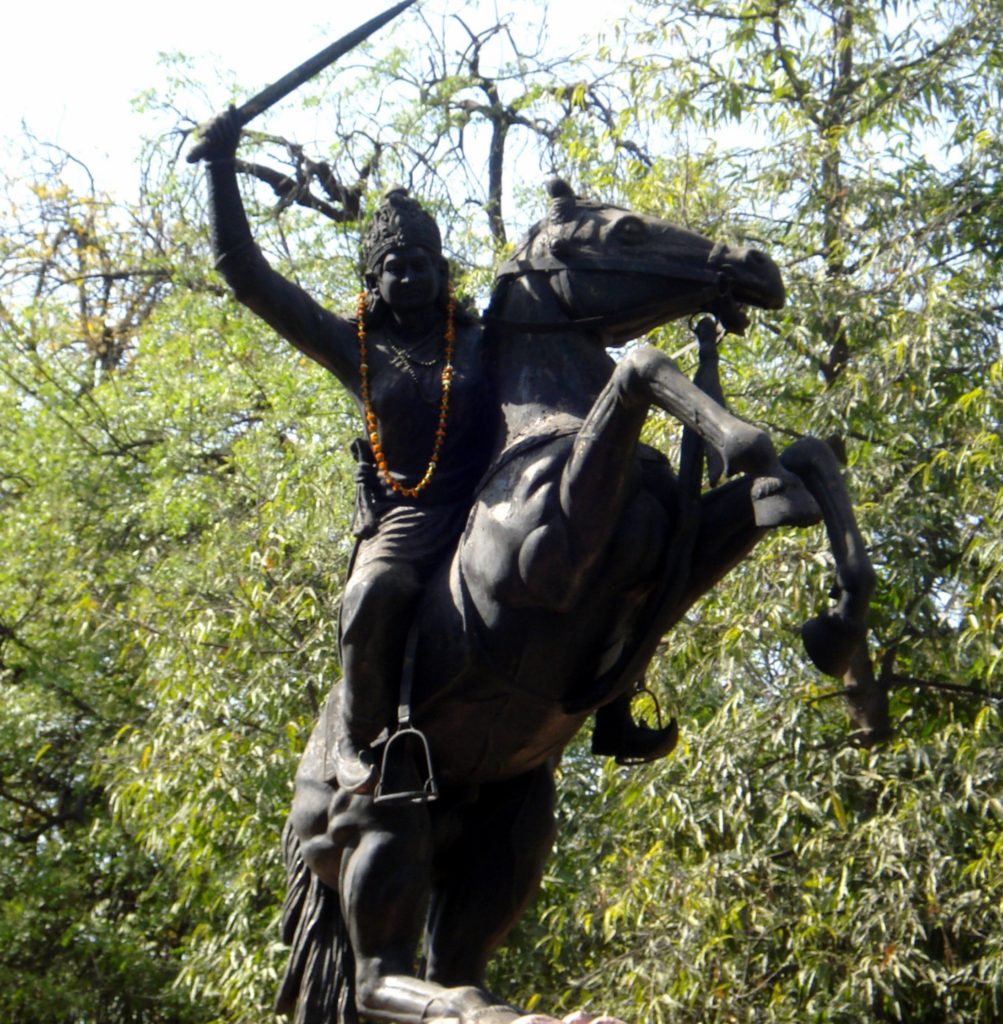
Jhalkari Bai statue at Gwalior
Representing the dalit woman in certain modes in 1857 also indicates ways in which pasts are remembered and retailed, and the relationships of such pasts to people’s sense of belonging. As has been remarked, representation can pose afresh the relationship between memory, myth and history, oral and written, transmitted and inscribed, stereotypicality and lived history. Reading the histories of dalit women viranganas of 1857 through the lens of representation adds important dimensions to our understandings of it, while also revealing tensions between the pedagogical and the performative, the rhetoric and the reality. Foucault has argued that all representations are by their very nature insidious instruments of surveillance, oppression and control – both tools and effects of power. However, if we argue that representations of dalit women are constructed only to support dominant modes of ideology, and that their aim is ultimately coercive, then how can we use this space also for confrontation? Does representation have the scope of carving out more contingent, varied and flexible modes of resistances? Within the field of representation, counter-images can emerge, challenging hegemonic images.
Representing the dalit woman in certain modes in 1857 also indicates ways in which pasts are remembered and retailed, and the relationships of such pasts to people’s sense of belonging. As has been remarked, representation can pose afresh the relationship between memory, myth and history, oral and written, transmitted and inscribed, stereotypicality and lived history. Reading the histories of dalit women viranganas of 1857 through the lens of representation adds important dimensions to our understandings of it, while also revealing tensions between the pedagogical and the performative, the rhetoric and the reality.
In India, there have been a significant number of studies concerned with the representations of high caste, middle class women, particularly of the colonial period. My own earlier work had focused on this. While significant in their own right, there is an implicit implication in these works that since dalit women fall within the category of “women”, their representation need not be singled out for a separate study. Thus, portrayal of dalit women of the colonial period as a major area of feminist scholarly examination has remained negligible and on the fringes. Dalit literature on 1857 provides us a significant moment to examine alternative representations of dalit women. It can be an important source of insight into gender politics from a dalit perspective and a site of struggle over meanings. While highlighting the centrality of these dalit women viranganas in the symbolic constitution of dalit identity, this literature simultaneously reveals a world turned upside down, challenging textual, academic and historical narratives of 1857. It further shows how resistance to dominant discourses about dalit women has been coded and lived by various groups of dalits within dalit communities at different historical moments. Dalit women viranganas emerge here as not only visible, but as conspicuous and central characters, and objects of attention and adulation.
Thus for example, to take the case of Jhalkari Bai, there has been a proliferation of a vast number of popular Hindi tracts, written by various authors, and cultural invocations on her, including comics, poems, plays, novels, biographies, ‘nautankis’, and even magazines and organisations in her name. To name just a few, there is the comic Jhalkari Bai; poems variously titled Virangana Jhalkari Bai Kavya, Jhansi ki Sherni: Virangana Jhalkari Bai ka Jeevan Charitra and Virangana Jhalkari Bai Mahakavya; plays and nautankis called Virangana Jhalkari Bai and Achhut Virangana Nautanki; novels and biographies like Virangana Jhalkari Bai and Achhut Virangana; and a magazine called Jhalkari Sandesh, published from Agra. Various dalit magazines have published articles on her. Similarly, on Uda Devi, there are poems, plays, stories and magazines penned and narrated on various occasions.
The various narratives go something like this. Jhalkari Bai is depicted as an ‘amar shaheed’ (immortal martyr) of 1857, belonging to the kori caste. Jhalkari Bai hailed from Jhansi. Her husband Puran Kori was an ordinary soldier in the kingdom of raja Gangadhar Rao. Jhalkari Bai is depicted as an ideal woman, occasionally helping her husband in his traditional occupation of cloth weaving, and also sometimes accompanying him to the royal palace. She is stated to be brave since her childhood and further got training from her husband in archery, wrestling, horseriding and shooting. Her face and body structure is said to resemble Lakshmibai exactly. Slowly Jhalkari Bai and Lakshmibai become friends. Jhalkari was entrusted with the charge of leading the women’s wing of the army, known as the “Durga Dal”. When the 1857 revolt began, the rulers were mostly interested in just saving their thrones and it was not a freedom struggle for them. It was dalits who made it a freedom struggle. When the British besieged the fort of Jhansi, Jhalkari Bai fought fiercely. She urged Rani Lakshmibai to escape from the palace and instead she herself took on the guise of the Rani and led the movement from Dantiya gate and Bhandari gate to Unnao gate. Her husband died while fighting with the British and when Jhalkari Bai heard this, she became a “wounded tigress”. She killed many British, and managed to hoodwink them for a long time, before they discovered her true identity. According to some versions, suddenly many bullets hit her, and she died. Some state that she was set free, lived till 1890 and became a legend of her time.
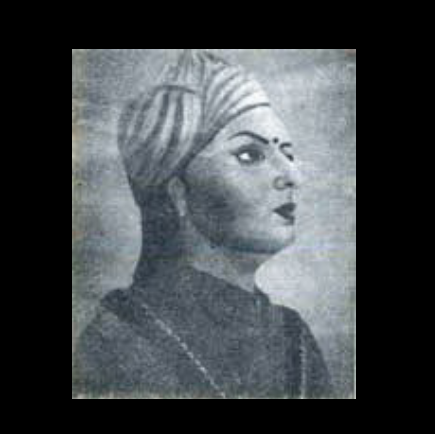
Uda Devi
Uda Devi is said to have been born in the village Ujriaon of Lucknow. She was also known as Jagrani and was married to Makka Pasi. She became an associate of Begum Hazrat Mahal, and Uda formed a women’s army, with herself as the commander. Her husband became a martyr in the battle at Chinhat. Uda decided to take revenge. When the British attacked Sikandar Bagh in Lucknow under Campbell, he was faced with an army of dalit women:
koi unko habsin kehta, koi kehta neech achchut.
abla koi unhein batlaye, koi kahe unhe majboot.
(Some called them black African women, some untouchable. Some called them weak, others strong.)
It is significant here that even W Gordon-Alexander’s account of the storming of Sikandar Bagh by British troops states:
In addition…there were…even a few amazon negresses, amongst the slain. These amazons having no religious prejudices against the use of greased cartridges, whether of pigs’ or other animal fat, although doubtless professed Muhammadans, were armed with rifles, while the Hindu and Muhammadan East Indian rebels were all armed with musket; they fought like wild cats, and it was not till after they were killed that their sex was even suspected.
Uda Devi was one of them, who is said to have climbed over a ‘pipal’ tree and shot dead, according to some accounts 32 and some 36, British soldiers. One soldier spotted someone in the tree and shot the person dead, and only then it was discovered that she was a woman. Realising her brave feat, even British officers like Campbell bowed their heads over her dead body in respect.
Asha Devi Gurjari is portrayed as a leader to a large number of young girls and women and it is stated that on May 8, 1857, she along with a large number of other women like Valmiki Mahaviri Devi, Rahimi Gurjari, Bhagwani Devi, Bhagwati Devi, Habiba Gurjari, Indrakaur, Kushal Devi, Naamkaur, Raajkaur, Ranviri Valmiki, Seheja Valmiki and Shobha Devi attacked the British army and died while fighting.
Certain features stand out in these various narratives. Many of them claim to be centred around neglected dalit women warriors specifically, whose marginalisation cannot be tolerated by dalits any longer. In all of them, these dalit women are depicted as brave from their very childhood, and the 1857 revolt becomes the turning point which sparks them to accomplish great deeds in the face of high odds. However, the voices of dalit viranganas themselves are usually faint discursive threads, as their stories of adventure and bravery are narrated through a variety of sources – oral, official accounts and dalit male authors. It is these authors who provide narrative coherence, filling in the gaps, and slipping into the present tense to add dramatic flourish and detail to the stories. The past and the present blur and mingle to provide a cohesive narrative of dalit oppression and the bravery of these women against all odds. Many of these dalit viranganas become the symbols of pride for one particular dalit caste. Thus Uda Devi is revered by the pasis particularly, and has emerged as a symbol of Pasi honour, dignity, pride, mobilisation and rights. On the other hand, Jhalkari Bai has been appropriated, eulogised and celebrated by all dalit groups, irrespective of divisions between them, and has become a symbol of unity of all dalits.
Many of them claim to be centred around neglected dalit women warriors specifically, whose marginalisation cannot be tolerated by dalits any longer. In all of them, these dalit women are depicted as brave from their very childhood, and the 1857 revolt becomes the turning point which sparks them to accomplish great deeds in the face of high odds. However, the voices of dalit viranganas themselves are usually faint discursive threads, as their stories of adventure and bravery are narrated through a variety of sources – oral, official accounts and dalit male authors. It is these authors who provide narrative coherence, filling in the gaps, and slipping into the present tense to add dramatic flourish and detail to the stories. The past and the present blur and mingle to provide a cohesive narrative of dalit oppression and the bravery of these women against all odds. Many of these dalit viranganas become the symbols of pride for one particular dalit caste.
Most of these dalit viranganas have Devi or Bai suffixed to their names. They are also projected as highly moral, very “noble”, super brave and super nationalist dalit women. They are emblems of shakti. The written and visual images of these viranganas in the texts itself and on the cover of these pamphlets spectacularise them as usually clad in “masculine” attires, with their bodies all covered up. They are shown to be expert in horse-riding, swimming, bow-arrow and sword fighting. Through such portrayals, dalits hope to garner greater respect, opportunity and dignity to these viranganas, and through them to all dalits. Simultaneously this feeds into conceptions of masculinity. It also covertly challenges notions of dalit female sexuality, and can be seen as a reaction to images of sexually immoral dalit women. By shunning outward expressions of sexuality, dalit women can also hope to build a space where they can wield more control over their bodies and gain dignity and respect within the dominant culture.
Poems and songs occupy a central place in these narratives, which eulogise the viranganas. It is interesting that many of these narrative poems (‘khand kavyas’) have cleverly appropriated the famous poem written by Subhadrakumari Chauhan on Jhansi ki Rani Lakshmibai. Not only are the lines and the words given new meanings and completely reinterpreted, they are also easy to remember. Thus goes one on Jhalkari Bai:
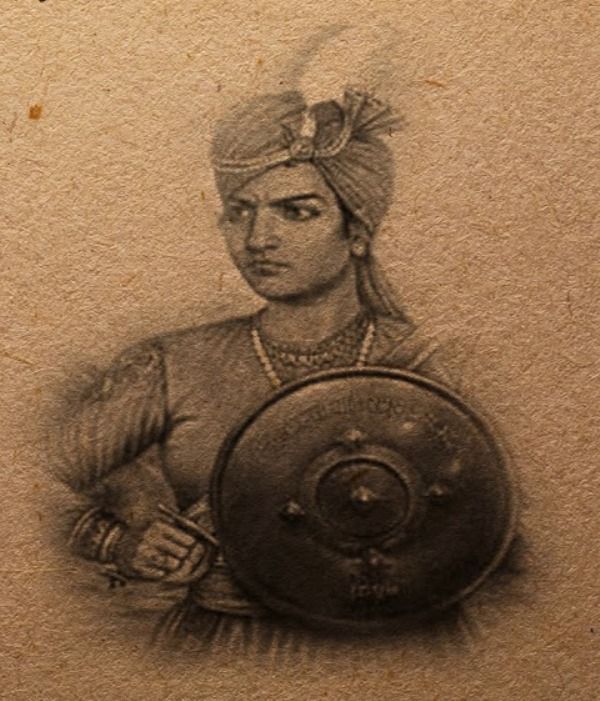
Jhalkari Bai
khub lari jhalkari tu tau, teri ek jawani thi.
dur firangi ko karne mein, veeron mein mardani thi.
har bolon ke much se sun hum teri yeh kahani thi.
rani ki tu saathin banker, jhansi fatah karani thi….
datiya fatak raund firangi, agge barh jhalkari thi.
kali roop bhayankar garjan, mano karak damini thi.
kou firangi aankh uthain, dhar se shish uteri thi.
har bolon ke much se sun ham, roop chandika pani thi.
(Jhalkari you really fought, your youthfulness was unique.
You were a man among the brave in ousting the British.
We heard your story from the mouth of warriors.
You pledged for Jhansi to be victorious by being a friend of the queen.
Jhalkari, you rode from the Datiya gate, trampling the British.
You were like the Kali, and your strike was like lightning.
As soon as a British raised his head, you struck immediately.
We heard your deeds from the warriors, reciting tales of your bravery.)
These songs and poems are often recited in dalit melas and rallies, using dance and musical instruments. Plays too are enacted around them.
The main narrative plots have become more elaborate with time and many stories have been added on, connected to larger purposes of dalit identity. Thus in the Jhalkari Bai story, one episode repeatedly narrated is of Jhalkari being blamed for killing a cow, which had actually been hidden by a brahmin, but the truth is revealed. This story may be linked to challenging dominant colonial and Hindu narratives which have regarded dalits, along with Muslims, as killers of the “holy” cow. Another feature of these writings is that as they have grown, they have become more “sure” in their narrative. Thus for example, the earlier narratives on Jhalkari Bai claim her to be an accomplice of Lakshmibai, who took on her garb to save the rani’s life. We can discern here a tentativeness or uncertainty regarding the role of Rani Lakshmibai in the revolt, where Jhalkari Bai is shown to be an accomplice or at most an equal of Lakshmibai. This has slowly given way to a more sure, authoritative and “mature” dalit history in which Lakshmibai, instead of a model nationalist ruler, appears as a weakling, as reluctant to fight the British, and in fact, is shown as a British supporter and agent. It is stated that Jhalkari Bai was even worried that Lakshmibai might surrender herself to the British as she was very scared of war. Challenging myths and histories surrounding Lakshmibai, it is argued that in reality Lakshmibai not only managed to escape to the forests of Nepal with the help of the ruler of Pratapgarh, she died only in 1915 at the age of 80. It is Jhalkari Bai who is the real martyr and virangana. It is her name that ought to be written in golden letters. She was a dalit woman, with no kingdom, no palace, no expensive jewellery, and no silken clothes. She was neither a queen nor the daughter of a feudal lord, nor the wife of a ‘jagirdar’. She fought selflessly, only for the love of her country, and thus her sacrifice far surpasses anyone else’s.
As a historian, when I started working on these dalit viranganas of 1857, what concerned me was the absence of “hard core”, “written” historical evidence on them in the archives. At one level, I am tempted to argue that anything that mesmerises one is worth cherishing and the magic is ruined by questioning its “authenticity”. Carlo Ginzburg effectively shows how an early manifesto on history “from below” appeared in the form of an “imaginary biography”, where the intention was to salvage through a symbolic character, a multitude of lives crushed by poverty and oppression. The mixture of imaginary biography and historical documents makes it possible even for these dalit histories to leap at a single bound over a threefold obstacle: the lack of evidence, the lack of importance of the subject according to commonly accepted criteria and the absence of stylistic models. A multitude of lives that have been cancelled, destined to count for nothing, find their symbolic redemption in the depiction of immortal characters. But this is not enough. Dalits themselves are keen to prove the historical credibility of their viranganas, and constantly site sources from literary accounts, British narratives, archaeology and oral histories. They claim their works to be “scientific”, “truthful”, “detailed”. As says one:
aithihasik sandarbhon bhitar, ankit sari hai ghatna.
nahin kalpana se kalpit hai – amar humari yeh rachna.
(The whole incident is noted inside historical sources. This immortal story of ours is not a figment of imagination.)
Scattered, often thin, evidence is sited and quoted by dalits repeatedly. Thus on Jhalkari Bai, a constantly quoted source is Vrindavan Lal Varma’s Jhansi ki Rani Lakshmibai. It was published in 1946 after intense personal research and historical reflection, and it mentioned the dusky-complexioned newly wed Jhalkari Dulaiya of the kori caste, who bore a striking resemblance to the Rani. Vishnu Rao Godse, who is said to have been present in the fort when the Rani had fought against General Rose, too had made a reference to Jhalkari in his Marathi book Majha Pravas (My Travels). Similarly on Uda Devi, Amritlal Nagar’s Gadar ke Phool and William Forbes-Mitchell’s Reminiscences of the Great Mutiny are often cited.
And today these stories stand as given, visible truths, with stamps issued in their name, many statues constructed, public rallies and meeting organised, celebrations and festivities conducted, and even colleges and medical institutions formed in their name. Thus, for example, a huge public rally and a mela is organised in Lucknow every year near the statue of Uda Devi at Sikandar Bagh on November 16, the stated day of her martyrdom. With constant evocation, these names have become inscribed in popular dalit memories. Different political parties have repeatedly used these viranganas and made them an integral part of their electoral campaigns and mobilisation strategies, the most successful being the Bahujan Samaj Party, who have used them to build the image of Mayawati particularly.
Are these representations of dalit viranganas historical fictions or fictive histories or something more? How real, exact and truthful in any case are “official”, canonised histories of 1857? Scholars have questioned the possibility of any one authentic history. Histories of dalit viranganas, who are simultaneously dalit and women, stand as persuasive accounts, as histories from below, reaching towards their own “reality”. They take recourse to recorded historical events and intermesh it with subaltern renderings of lost histories, deracinated by mainstream historiography. They are counter-histories of 1857.
Reading Dalit Histories of Viranganas
These popular histories of dalit viranganas are open to simultaneously persuasive, multiple and contradictory readings. There are, of course, limitations of this literature as a historical source. Their representation of dalit women too needs to be questioned. Very few dalit women themselves have penned these popular pamphlets. It is dalit men who are largely engaged in controlling the way images of dalit women are depicted.
While these dalit viranganas are portrayed as “superwomen”, full of bravery, and doing “impossible” acts, these glorifications and celebratory accounts do not extend to all dalit women in general. They offer a filtered vision, viewed through the eyes of the creators of these images. Victimhood is replaced by a new archetype of heroism. Jhalkari Bai is shown as even killing a tiger single-handedly. Although empowering, these images are not necessarily more representative of dalit women. Further, many of these viranganas are physically attractive in their appearance, “classic” beauties, falling into the stereotype of female beauty. Simultaneously, there is an assertion of a super moral dalit female subject perhaps also allowing dalit men to police the behaviour of dalit women in general. Some of these tracts appear didactic in their endorsement of certain patriarchal values. They are often replete with images of the loyal wife and an ideal mother.
Although empowering, these images are not necessarily more representative of dalit women. Further, many of these viranganas are physically attractive in their appearance, “classic” beauties, falling into the stereotype of female beauty. Simultaneously, there is an assertion of a super moral dalit female subject perhaps also allowing dalit men to police the behaviour of dalit women in general. Some of these tracts appear didactic in their endorsement of certain patriarchal values. They are often replete with images of the loyal wife and an ideal mother.
It may thus be argued from a dalit feminist perspective that the emergence of popular dalit male literature has not altered much the images of dalit women. Though vastly different in their scope, area and portrayals, these presentations codify dalit women in certain ways, and fail to offer a more meaningful portrayal of them. The representations often remain simplistic, rarely revealing the complexity, and dimensionality that make up dalit women’s life. They offer incomplete projections to which not many dalit women can fully relate to. Save for who controls the representations, has anything much changed for the dalit woman? As has been contended by bell hooks, this may apply a mere transference, without radical transformation. A true liberatory potential may only be realised when dalit women themselves can create and represent their own histories and images through a collage of identities and sing their own songs.
To stop here however would be offering only one side of the picture. These women figures can also provide counter-hegemonic and oppositional perspectives about dalit women and about the 1857 revolt. The representation of dalit viranganas on a high moral and heroic ground can also be seen as an appropriation of respectability and “credibility”, imparting dalit participation in past histories new meanings. These dalit viranganas represent dalits in the service of freedom and Indian nationalism. Here the subalterns are very much speaking, to inverse Spivak’s proposition, and they are speaking through these dalit women viranganas. They are representing their own voices. As has been pointed out, “While Spivak is excellent on the ‘itinerary of silencing’ endured by the subaltern, particularly historically, there is little attention to the process by which the subaltern’s ‘coming to voice’ might be achieved.” At places the achievements of these dalit viranganas are juxtaposed to the pathetic conditions of dalit women in general, blaming society at large and men as well, stating that in spite of having a brave past and being protectors of dalit dignity, dalit women have been denied education, have been made slaves, have been oppressed by men.
These women figures can also provide counter-hegemonic and oppositional perspectives about dalit women and about the 1857 revolt. The representation of dalit viranganas on a high moral and heroic ground can also be seen as an appropriation of respectability and “credibility”, imparting dalit participation in past histories new meanings. These dalit viranganas represent dalits in the service of freedom and Indian nationalism. Here the subalterns are very much speaking, to inverse Spivak’s proposition, and they are speaking through these dalit women viranganas. They are representing their own voices.
Dalit women too are now trying to use these images in multiple ways to their maximum advantage. Besides ways in which these symbols have helped build up Mayawati, many have used these figures to question representations of dalit women in general, as well as their oppression and exploitation in real life. Thus Meena Pasi stated, “Uda Devi and Jhalkari Bai have shown to me that I too can resist all kinds of injustices. I do not have to take things lying down. These figures inspire me to question why I am getting less wages from the landlord, why I am beaten up by my husband when I do equal, if not more, work. I can look up to Uda Devi and say that nothing is impossible if one has the will to resist and fight”. These representations of dalit women viranganas may thus also be seen as “positive engendering”. They question and disrupt usual dominant stereotypes of dalit women, either negatively as ‘kutnis’ (evil) and vamps, or as passive victims, powerless and subordinated. The centrality of the dalit viranganas in the 1857 revolt in popular dalit literature provokes reflection on the enabling potential for women’s real lives of ubiquitous icons of dalit feminine power. These images also form a part of feminist studies, as instead of focusing on just dalit women’s “victimisation”, they point to their power and strategies of resistance, even though penned largely by men. Here dalit women are actors and agents in their own right. They are transformed from victims into victors within the context of a narrative. Jhalkari Bai, Uda Devi, Mahabiri Devi, and along with them many other dalit women, emerge as physically commanding and armed, infused with power, strength, bravery, activism and sacrifice, locked in violent conflict with the British.
It may also be argued that what we are dealing with here is no ordinary, academic history. While creating a history of pride, through these celebratory accounts dalit writers are accruing for themselves a psychic space and harnessing the resources needed to hold their own. It is also a history that wishes to, in its own limited way, challenge and subvert conventional modes of thinking, both about 1857 and about dalit women. While it may not be inherently radical or transformative, it provides progressive and different readings. Dalit women here are signifiers of 1857 and through that of dalit identity. These are not just stories of brave dalit women but of all dalits, of their legacy, of their bravery, of their pride, of their sacrifice in service of the nation.
Charu Gupta’s essay has been carried with the permission of its author. It has been presented without its abstract, citations, footnotes and bibliography for purposes of easier reading. You can read the paper in its entirety here.
The Paper has also been published in Bates, Crispin. (2014). ed. Mutiny at the Margins: New Perspectives on the Indian Uprising of 1857 as ‘Condemnation and Commemoration: (En)Gendering Dalit Narratives of 1857’.
ARCHIVE
Dalit Women as Active Participants in Ambedkarite Movement
Majhi aaji manhayachi
Ovi hee jatya warr,
Bhim banala sawali
Koti koti chya mathywar
My grandmother used to sing
This couplet while working the stone grinder
Bhim has become a shelter
Over the heads of millions.
The lines above are from Majhi Aaji, a poem by Kiran Sonwane, whose most popular version in Maharashtra is the one sung by Aniruddha Vankar. From the song, it is apparent that when Dalit women conceive of literature or music, they choose Ambedkar as their protagonist or hero. In their works, he is portrayed as no less than their emancipator.
Their portrayal of Ambedkar as a staunchly feminist ideal makes the role of Dalit women in the Ambedkarite movement significant on two levels: first as active participants in the movement, and second, as producers of literary narratives, including the ‘cradle songs’ that are crooned to youngsters.
In Vidarbha – and I am sure in other regions of Maharashtra – the tradition of Bhim Palana, or Bhim’s cradle songs, are an antithesis to the children’s songs based on mythological themes. A Bhim Palana is written with the intent to educate children about figures such as Ambedkar, to create individuals and citizens who will uphold the notion of equality, liberty and fraternity in their social and personal life.
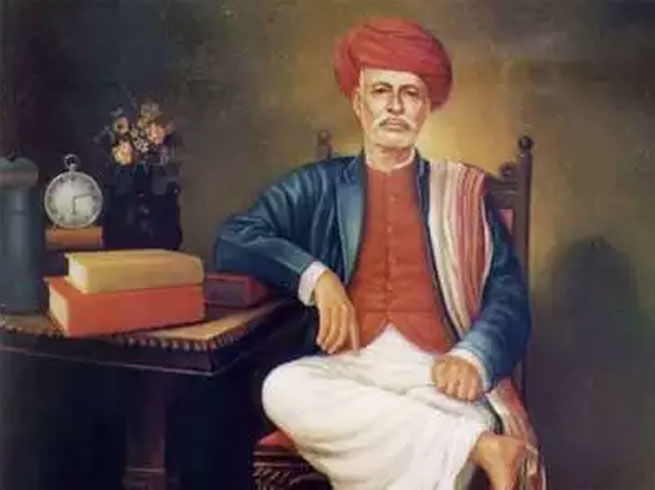
Jyotiba Phule
After Mahatma Phule’s massive attack on the inhumane, unnatural and artificial caste system, which he did by opening the doors of education for girls across all castes, it was Babasaheb Ambedkar who went to great lengths to conceive of strategies to educate women, especially Dalit women. Urmila Pawar and Meenakshi Moon have compiled the most significant book on Dalit women’s history of struggle and triumphs, We Also Made History. They say in the book: “…the education of women and girls was an integral part of Ambedkar’s vision of social emancipation for the Dalits.” Some of his speeches, made on occasions of historical importance for the struggle, are quoted extensively, notably the speech addressing women at Mahaad satyagraha and the 1942 speech at the All-India Dalit Mahila Parishad held on 20th July 1942 in Nagpur.
From the moment he entered public life in 1927, Ambedkar’s movement made education for women integral to its agenda. He nurtured the desire for education within the hearts of Dalit women, using the Buddha’s egalitarian teachings as a basis for his arguments. Inspired, barely-educated women and those who had never climbed up the stairs of a school started to write songs that featured him and sing them.
From the moment he entered public life in 1927, Ambedkar’s movement made education for women integral to its agenda. He nurtured the desire for education within the hearts of Dalit women, using the Buddha’s egalitarian teachings as a basis for his arguments
From the 1940s onwards, Parbatabai Meshram from Nagpur worked for Ambedkar‘s movement. She wrote a few songs about how Ambedkar helped him feel confident and instilled the vision of a casteless society among them. In one of her songs she says:
He gave up his life for the good of the people,
That’s why, bai, I am passionate about Buddha.
Some say Buddha is Vishnu reborn,
But I ask you, bai, was Vishnu like the Buddha?
Did Brahma, Vishnu, Mahesh, ever behave like this?
That’s why, bai, I am passionate about Buddha.
In India, irrationality is propagated through the telling and retelling of mythological stories. All this is done in the name of religion, giving it a veneer of respectability that makes it very difficult to renounce. Yet, Ambedkar’s movement replaced such illogic with the history of the Buddha and his egalitarian teachings. The result was an incredible increase in education among the Mahar (now Buddhist) people, especially women. Parbatabai Meshram wrote:
Let your self-respect awake,
Don’t ask for charity.
Bhimdada told us this and left us:
Get ready to serve the people.
The sculptor of our lives said this and left.
Such songs do glorify or deify, but they intend only to convey history and inculcate a sense of dignity among listener and singer alike. They envision a casteless future with equality, liberty and fraternity at its foundation.
Thus unfolded on India’s literary scene of the time a unique phenomena. A living human being became a vigorous and passionate symbol in literary expression, as Ambedkar became both symbol and subject in the creative imagination of Dalit women’s songs.
The ‘Ambedkari Jalsa’ introduced by Bhimrao Kardak in the late 1920s had already planted Ambedkar‘s ideology into the musical tradition of Dalits. Dalit women further created the Bhim Palana genre, a result of their close association with the community’s earlier musical traditions. They are proof, as Mark Abel, who describes himself as a Marxist musicologist who works on the aesthetics of music and its interface with history and politics, has pointed out in Is Music a Language?, “creative musical ideas do not emerge from a mystical process of inspiration, but are the result of a practical and mental engagement with existing musical culture, or musical language.”
![Jilha Yuvak Sangh. Bhimrao Kardak (In the middle row, sitting on chair, second from the right) [Photo Credits: Yogesh Maitreya]](http://indianhistorycollective.com/wp-content/uploads/2021/07/Bhimrao-Kardak-1.jpeg)
Jilha Yuvak Sangh. Bhimrao Kardak (In the middle row, sitting on chair, second from the right) [Photo Credits: Yogesh Maitreya]
The Tamasha – which has a legacy of imposition by the patriarchal elite-caste society on Dalit women – is one of the most popular forms of entertainment in Maharashtra. Earlier, it was performed mostly by Mahar and Kolhati-caste Dalit women. Ambedkar’s conversion to Buddhism in 1956 offered Tamasha performers a new form of cultural expression. Mahar (Buddhist) women went through a colossal psychological transformation, turning their musical talent into songs that feature the Buddha and Ambedkar.
Bhim Palana songs marked the culmination of Dalit women’s transition into intellectual life. At exactly this stage, the women were enacting what Friedrich Engels explains in Anti-Duhring, published in 1878: “Each mental image of the world system is and remains in actual fact limited, objectively by the historical conditions and subjectively by the physical and mental constitution of its originator.”
With Bhim Palana, Dalit women adopt the legacy of Theris, or Buddhist female monks, who wrote poetry known as Therigathas. Many Palanas from Vidarbha were based on popular Hindi movie tunes, but their lyrics have a completely different effect and intent than entertainment. For example, consider this Palana:
Mang na sarava bala pudh pudh raav
Mata pityach naav motha karava
Asa shikshan, asa shikshan ghyaw
Pardesh jav, pardesh jav
Molmajoori karun shikvin
Karin sambhal katkasarin
Kar vichar tu sodu nako shala
Bol tula kav hav.
Oh Child! Don’t step back, stand ahead
Bring prestige to the name of parents
So you study, such you must study
Go abroad, go abroad.
I’ll toil hard and make you study
I will take care of you with frugality
What do you think – would you leave school?
Tell me what you want.
The Palana narrates Ambedkar’s struggle for education abroad and inspires children to follow his footsteps. The emphasis on education is a manifestation of the cultural transformation among Dalit women. It reflects their strong desire to get the younger generation into school and their own struggle to make it possible.
The Palana narrates Ambedkar’s struggle for education abroad and inspires children to follow his footsteps. The emphasis on education is a manifestation of the cultural transformation among Dalit women. It reflects their strong desire to get the younger generation into school and their own struggle to make it possible.
Their quest to rebuild their history through songs also resurrects the past and the struggles in Buddhist history. For example, this song about Amrapali, a disciple of the Buddha who belonged to a non-elite caste:
With undefiled mind
I do my duty by the Buddha’s feet!
I am blessed-my life is blessed
By learning Sheel, Samadhi, Pradnya
I keep entire Dhamma intact
I follow the noble eight-fold path
I will practice all, through my acts
The mangroves of Amrapali
Lichhvis have known the mind
Impermanent is the body, so is wealth
Experiencing the wisdom of impermanence.
Even Buddhist history often omits the role of women in spreading its message, especially that of emancipation of women of all castes. (Read Ambedkar’s The Buddha and His Dhamma.) But to those aware of Buddhist history, the meaning of this poem will not be lost. It is inseparable from the history of social discourses on gender in a caste society.
Amrapali, a dancer, had invited the Buddha and his sangha to offer them daana in the form of food. The Licchavi elite-caste rulers had also invited the Buddha. The Buddha had accepted Amrapali’s invitation. Later, she became his disciple and pursued an intellectual life, which was denied to women of the time. This is the history the song excerpted above narrates.
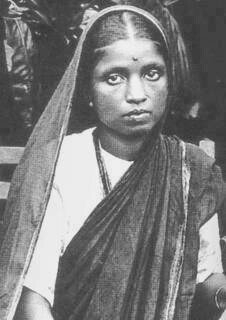
Ramabai Ambedkar
Sushma Devi, one of the earlier singers of Bhim-Buddha songs, has immortalised Ramabai, Ambedkar’s first wife. In Majhya Bhimachya naavach, kunku kavil ramaan she narrates how hard Ramabai worked at home, alone, when Ambedkar was away studying in Columbia and the London School of Economics. The newest singer in this tradition is Kadubai Kharat, whose Bhiman mai sonyan bharali oti and Tumhi khata tya bhakriwar babasahebanchi hai rrr became a household number in Maharashtra days after it was launched. Kharat explains how Ambedkar made his way into her songs:
Thus, in Dalit women’s songs, emotions stimulate intellectualism in order to annihilate brahminical values from our minds. In them, melody is constructed through historical fact, and music is a medium to pursue a life of the mind, emancipating singers and listeners from social constructs.
Dalit Women’s Literature and Life
Even before I was born, in my house there were images of the Buddha and Dr. Babasaheb Ambedkar. My grandmother, I vividly remember, used to light incense sticks and candles in front of their images in the early morning and late evening. She also used to attend daily prayers at the Buddha Vihara which was just a few meters from my home. She used to “worship” them. But the stories narrated at the daily congregation at the Vihara were of Ambedkar’s struggle and his quest for education.
During a child-naming ceremony at our basti, “Bhim Palana” or Bhim’s cradle songs were sung to all of us children. This was our lyrical introduction to Ambedkar. In singing the Bhim Palanas, Ambedkar used to become a subject of music for us. All such cultural processes were led by women.
This is not just my story but one shared by millions of my generation who were born and raised in Vidarbha and other parts of Maharashtra. Women kept Ambedkar alive for us through songs and poems that we heard in childhood. As I have grown up and started reading literature written by Dalit women, I have understood why they have made him the protagonist of their literature, why they have made him the foremost feminist in their lives.
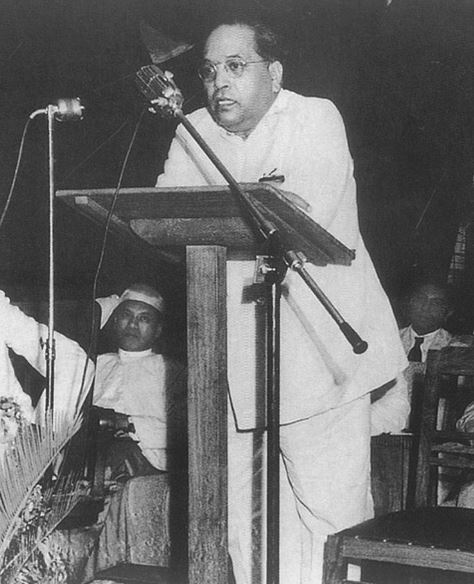
Dr. B.R. Ambedkar
In his succinct essay, Rise and Fall of Hindu Women, Ambedkar traces the fall of Hindu women to the period after the Manusmriti had been written. Decoding history with an anti-caste approach and the egalitarian agenda of the Buddha, he explains that Hindu women lost status due to the growing popularity of Buddhism. Buddhism offered women equality in the field of knowledge, equal treatment and the freedom to make independent life choices. These were not permitted to women in brahmani dharma.
In his succinct essay, Rise and Fall of Hindu Women, Ambedkar traces the fall of Hindu women to the period after the Manusmriti had been written. Decoding history with an anti-caste approach and the egalitarian agenda of the Buddha, he explains that Hindu women lost status due to the growing popularity of Buddhism.
The Manusmriti was written after the Mahaparinirvana of the Buddha. According to Ambedkar, who drew on references from the Therigathas or the Psalms of Buddhist female monks, this text was written in order to prohibit Hindu women from making their own choices. It sought to confine them to rigid Brahmanical codes of conduct and pulled them away from a life of the mind, quelling their chances at individual liberation.
Even in his movement to emancipate society, Ambedkar enacted these Buddhist strategies and wanted Dalit women to be the leaders of their own struggle. His candidly feminist approach was a revolutionary idea he derived from the stories of female Buddhist monks. Evidence of this exists in the form of narratives of Dalit women leaders who worked with Ambedkar. Sample this: Mukta Sarvagod, one of the earliest activists and writers from Ambedkar’s movement, recounts:
“In those days, there was a great awakening because of Babasaheb Ambedkar’s newspaper Bahiskrut Bharat, his satyagrahas, campaign tours and speeches. Girls had begun to take an interest in education. The names of women who had passed the vernacular examination and, who had become teachers, etc., were on everyone’s lips.”
Thus, Ambedkar helped bring the intellectual achievements of women into the public imagination at a time when women were forced to remain indoors. During this period, women leading social agitations were a rare sight. But Ambedkar turned out to be a guiding light and force that propelled women. Due to him, an ‘Untouchable’ woman, Shantabai Dani, became a MLC and led many agitations and committees populated by men. Dani, from Nashik, was a close associate of Ambedkar’s and a writer and social activist who rose to prominence. Her role in the agitation in support of landless people in Maharashtra is incomparable. Dani recounts:
There are hundreds of Dalit women from this period who had lived Ambedkar as a philosophy of liberation in their lives. Ambedkar appears in savarna women’s narratives, but inconsistently and this only started happening recently. Their earlier narratives erased Ambedkar’s feminist strategies and approaches.
Thus, Ambedkar helped bring the intellectual achievement of women into the public imagination at a time when women were forced to remain indoors. During this period, women leading social agitations were a rare sight. But Ambedkar turned out to be a guiding light and force that propelled women.
Even today, it is only Dalit women whose narratives and literature can offer insights into the potential of Ambedkar as the foremost Indian feminist. As Gopal Guru says, this is because “social location, which determines the perception of reality is a major factor which makes the representation of Dalit women’s issues by non-Dalit women less valid and less authentic.”
For the same reason, literature produced by Dalit women demands special attention and a revolutionary perspective because it is essentially more diverse than savarna women’s literature.
Ambedkar was carrying forward the legacy of Mahatma Phule who revolutionised India for women by opening schools for them in the eighteenth century in Maharasthra. In Ambedkar’s movement, substantial attention was given to education among women. In around 1932, to promote education among ‘Untouchable’ girls, some community associations set up scholarships and provided free schooling.
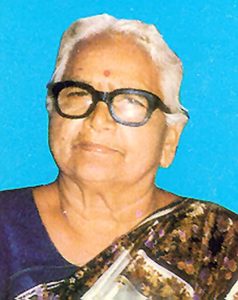
Shantabai Dani
For instance, the Somawanshi Mandal held a ceremony, attended by about 3,000 ‘Untouchable’ women, in which a scholarship of Rs. 10 was awarded to Mirabai Jadhav, a school student in Thane. Similarly, in Satara P.N. Rajbhoj declared that ‘Untouchable’ girls should be given scholarships and those studying in board schools should get the facilities they need. These efforts have been recorded by D.L. Kosare in Vidarbhateel Dalit Chalvalicha Itihas published by Dnyandepp Prakashan, Nagpur in 1984.
Such major steps became responsible for making Ambedkar a feminist leader. Later, when writings by Dalit women from Maharashtra emerged on the literary horizon, Ambedkar and his thoughts remained at their core. Their narratives were guided by the scientific approach spread by Babasaheb Ambedkar among the community. No autobiography by a Dalit woman from Maharashtra has glorified gods or goddesses of the Hindu pantheon. Instead, they have launched scathing attacks on them. Ambedkar sparked among them the quest for scientific thinking.
Such major steps became responsible for making Ambedkar a feminist leader. Later, when writings by Dalit women from Maharashtra emerged on the literary horizon, Ambedkar and his thoughts remained at their core. Their narratives were guided by the scientific approach spread by Babasaheb Ambedkar among the community
In 1981, Kumud Pawade’s autobiography, Antyasphot had been published. By 1982-83, Shantabai Kamble’s Majhya Jalmachi Chittarkatha had been periodicised. In 1987, Babytai Kamble’s Jina Amuch had been published. In the truest sense, Dalit women’s writings had started to appear as a collective expression. Dalit women have since published many remarkable books such as Mittlele Kawade by Mukta Sarvagod, Ratradi Amha by Shantabai Dani, Aiydan by Urmila Pawar, Majhi Mi by Yashodhara Gaikwad, Mi Nanda by Nada Keshav Meshram, and many more. The waves of poets and writers unleashed then continues to rise unbated.
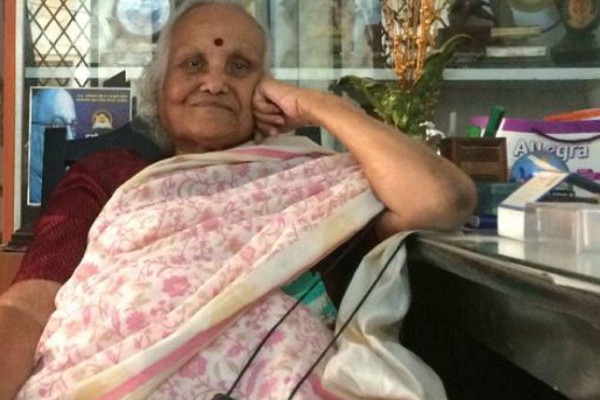
Kumud Pawade
Ambedkar lives on in these books as the philosophy of liberation that informs the lived experience of their authors. These women have tasted the power of Ambedkar’s views on Buddhism and ideas about women’s liberation in caste society. Although their subjects are their lives, their culture, their experiences, their tragedies and triumphs, at their epicentre is Ambedkar’s vision for liberation of women.
It is the impact of Ambedkar’s movement on the minds of Dalit women—that those who were once enslaved by patriarchal-casteist brahminism—started to demolish its narrative body by writing their liberation in their own words. Dalit women writing their stories were doubly more liberating than Dalit men writing.
This excerpt has been carried courtesy the permission of Yogesh Maitreya. You can buy Singing/Thinking Anti-Caste: Essays on Anti-Caste Music and Text, here.
ARCHIVE
In 1951 a provisional parliament elected on a limited franchise voted – before a general election – to pass the first amendment to our Constitution that restricted key Indian liberties. Indian liberalism has still not recovered from this initial assault on our fundamental rights, and the precedents it set for the future. This is the story of “the first battle of Indian liberalism” and the “unlikeliest of characters” on either side of the battle lines.
“They would say ‘means are after all means’. I would say means are after all everything… There is no wall of separation between means and end.”
—Mohandas Karamchand Gandhi
Let us begin with the introduction of Tripurdaman Singh’s book Sixteen Stormy Days: The Story of the First Amendment to the Constitution of India, which takes us back to 1951, when India had a provisional parliament elected on a limited franchise. (Members of the former constituent assembly were members of this provisional parliament. The franchise was ‘limited’ because they had been elected indirectly by members of the provincial assemblies. Also, the provisional parliament consisted of one house instead of two. This state of affairs carried on till 1952, when the country’s first general elections were concluded and a parliament was elected directly by the people of India.)
Prime Minister Jawaharlal Nehru declared that while fundamental rights, individual liberty and freedom were ideas that had dominated the nineteenth century, they were now overtaken by the bigger and better ideas of the twentieth: dynamic social reform and social engineering, enshrined in the Directive Principles of State Policy as well as the programmes of the Congress party (Jawaharlal Nehru, 16 May 1951, Parliamentary Debates, Part II, Vol. XII, p. 8822).
But for ideas like “Land reform, zamindari abolition, nationalization of industry, reservations for ‘backward classes’ in employment and education” to see the light of day, many a hurdle remained to be crossed. Add to this the fact that a “pliant press”, as Nehru had probably hoped for, was not forthcoming and nothing could be done about this. “Armed with Part III of the new constitution—guaranteeing the fundamental rights of citizens—zamindars, businessmen, editors and concerned individuals had repeatedly taken the Central and state governments to court over their attempts to curtail civil liberties, regulate the press, limit upper-caste students in universities and acquire zamindari property,” writes Singh. “Over the fourteen months the constitution had been in force, the courts had come down heavily on the side of the citizens and struck mighty blows against the government.”
To cite a few examples, the government’s attempt to censor The Organiser (an RSS newspaper) and Cross Roads (a left-leaning weekly) had been countermanded. Laws used to censor and punish the press had been declared void by the Supreme Court because of the violation of the freedom of speech. The Allahabad High Court had passed injunctions restraining the government from implementing the newly passed Zamindari Abolition Act. The Patna High Court had declared the State Management of Estates and Tenures Act to be ultra vires of the constitution for violating Articles 14 (the right to equality) and 31 (the right to property). The Central Provinces and Berar Regulation of Manufacture of Bidis Act, which controlled and regulated bidi production, was held void by the Supreme Court because it violated the right to carry on any trade or profession. The Madras High Court struck down the ‘Communal Government Order’ granting caste-based reservations in educational institutions for contravening Article 15(1) preventing discrimination on caste, communal, racial and linguistic grounds. The Supreme Court upheld this decision and also struck down communal reservations in government jobs.
And yet, even as “the Congress programme to remake India” encountered such “formidable roadblocks”—“fundamental rights guaranteed by the Constitution, tenacious citizens, a belligerent press and a resolute judiciary determined to vigorously uphold fundamental freedoms”—the country’s first general elections were looming close (eventually held at the end of 1951, and carrying on into 1952).
A major problem for the Congress, as Nehru stated in a note to the Home Ministry (25 July, 1950, Selected Works of Jawaharlal Nehru, edited by Sarvepalli Gopal, Vol. 14/2, p. 223) was explaining the situation to the people. “Having raised their expectations and asked them to believe in the promises of Congress leaders, how were they to now go back to them and explain legal and constitutional niceties?” Singh writes. “Who was going to tell the people that the word of the government and the prime minister was not the law, that there was now a greater power, the Constitution of India? And what might happen if they did?”
Nehru wrote to his chief ministers: “It is impossible to hang up urgent social changes because the Constitution comes in the way… We shall have to find a remedy, even though this might involve a change in the Constitution.”
And so, eventually, the prime minister introduced the Constitution (First Amendment) Bill in Parliament on 12 May, 1951. Singh sums up the bill in a nutshell. If passed, it would:
– “introduce new grounds on which freedom of speech could be curbed— public order, the interests of the security of the state” (originally the grounds “had been limited to libel, slander and defamation, contempt of court and anything that undermined the security of the state or tended to overthrow it.”);
– it would “enable caste-based reservations by restricting the right to freedom against discrimination from applying to government provisions for the advancement of backward classes”;
– it would “circumscribe the right to property and validate zamindari abolition by adding two new articles empowering the state to acquire estates without paying equitable compensation and ensuring that any law providing for such acquisition could not be deemed void even if it abridged this right”;
– and, finally, it would “introduce a special schedule where laws could be placed to make them immune to judicial challenge even if they violated fundamental rights”.
Singh also outlines how the vision of a constitution of India that defended the “personal liberties of individual Indians” had been a crucial demand of the nationalist struggle for independence: “From the time the demand was first articulated in 1895 through the Constitution of India Bill (popularly called the Swaraj Bill and rumoured to have been authored by Bal Gangadhar Tilak), through the Commonwealth of India Bill in 1925, the Motilal Nehru Report in 1928 and the Purna Swaraj resolution of 1930, the journey had been long and arduous.” Further, he elaborates on how, when the new Constituent Assembly first convened at 11 am on 9 December 1946, “no one had been in doubt as to the momentous nature of the task at hand”. Dr. Bhim Rao Ambedkar described individual rights and their safeguards as the “very soul of the Constitution and the very heart of it”. “Indeed if I may say so,” he had asserted in the Constituent Assembly. “If things were to go wrong under the new Constitution, the reason will not be that we had a bad Constitution. What we will have to say is that man was vile.”
And yet, the Constitution (First Amendment) Bill was passed, and the changes ran so deep that the consequent constitution was called “the second constitution” or “the Nehruvian constitution” by legal historians like Prof. Upendra Baxi.
Singh’s book is the story of how the Constitution went from “being a charter for freedom for India’s people and the fulfilment of their dreams in 1950 to an impediment in the way of the will of the same by 1951”. The chapter we have chosen to carry here below, on Republic Day, called ‘The Battle Rages’, is the story of how things played out, in the provisional parliament and outside it, in the final days of the old constitution. The chapter begins with the Speaker G.V. Mavalankar, like the President Rajendra Prasad, expressing his objections over the Constitution (First Amendment) Bill to Prime Minister Nehru and ends with the bill being passed. It’s gripping account of events gives the reader a sense of being in the middle of history as it is being made (or unmade, as the case may be) as well as the occasional vantage point from which to analyse this history.
The chapter, like the book, also questions “easy dichotomies that have traditionally been drawn… between liberal and authoritarian visions of India” which are “more than blurred when taken up for closer examination”. Singh, calling the battle over the first amendment “the first battle of Indian liberalism” writes about the “unlikeliest of characters” making up the list of the first defenders of our individual rights and freedoms: “Hindu nationalists like S.P. Mookerjee and M.R. Jayakar, Gandhian stalwarts like Acharya Kripalani, committed socialists like Shibban Lal Saksena and Jayaprakash Narayan, conscientious Congress rebels like H.V. Kamath, Syamnandan Sahay and K.K. Bhattacharya, jurists like Pran Nath Mehta and M.C. Chagla, press associations, editors, lawyers and businessmen; men whose ideological and editorial successors today might scarcely believe (but would do well to remember) that their predecessors held the views they did.” And on the other side, pushing for this amendment, we have champions of freedom like Prime Minister Nehru and Law Minister Ambedkar who were holding strong on the magnificence of the Constitution and sanctity of fundamental rights less than a year or two before the amendment was presented in parliament. “It (the book) is the story of how the Government of India discovered that mouthing platitudes to civil liberties was one thing, and upholding them as principles quite another. It is the story of how the primacy of a government’s social agenda over the Constitution and individual freedom was affirmed.”
So let us come back to where we began – the question of ends and means – and examine quickly the legacy of the first amendment and its passing and where it has left us today:
– The moral precedent set by the passing of such an amendment by a provisional parliament, elected on a limited franchise, even as the country’s first general elections are just around the corner, is unconscionable to say the least.
Further, there was the question of there being only one house in this parliament. President Prasad had written to Alladi Krishnaswamy Aiyar before giving his assent to the Bill. Singh writes:
“The problem as he saw it was twofold. First, the provisional parliament only had one House whereas Article 368, which gave Parliament the power to amend the Constitution, required a two-thirds majority in both Houses. Was a single chamber provisional parliament then competent to amend the Constitution?
“Second, the government had got around this difficulty by adapting Article 368 to temporarily refer to Parliament rather than two separate Houses by using the Constitution (Removal of Difficulties) Order No. 2—issued by the president on 26 January 1950 (under powers granted to him by Article 392) to make minor adaptations to the Constitution in order to remove any procedural difficulties that arose before a full Parliament was elected. Could this adaptation itself be ultra vires since, under the guise of removing difficulties, it effectively (albeit temporarily) amended Article 368 without adhering to the amending procedure as the article itself required?”
Aiyar’s reply is not on record. Historian Granville Austin notes that, “Earlier, when Prasad had addressed him with such concerns, Aiyar had told him he must give his assent.” Prasad assented to the bill on 18 June, 1951.
– This chapter shows how the Speaker Mavalankar, the opposition leader Mookerjee and the All India Newspaper Editors Conference (AINEC) pushed emphatically for the solicitation of a “wide range of public opinion” before such a drastic move. The passing of such a major amendment without the inviting of this “wide range of public opinion” set a dangerous precedent that has been followed, in varying degrees, by many Indian governments since, including the current one.
– The creation of a (Ninth) schedule where laws could be placed to make them immune to judicial review, was problematic in two respects: it took away the teeth of the judiciary, blatantly infringing upon the principles of ‘separation of powers’ and ‘checks and balances’ and, as members of parliament have been shown to point out in this chapter: “The experience gained under the Constitution was insufficient to justify an amendment, they did not have the texts of the laws to be validated [laws that would be placed in the Ninth Schedule].”
– The worst and most direct legacy of the first amendment is the chilling impact it has had, and continues to have, on free speech in India. Singh writes: “Activists, human rights figures, intellectuals, writers, historians, politicians, journalists and even comedians have often faced the brunt of a repressive state and onerous laws, for which the enabling constitutional infrastructure was built by this amendment in 1951.” Let us take the example of Section 124A of the Indian Penal Code, which deals with sedition. “Not even its most prominent critics ever note that the founding fathers of the Constitution of India did not intend for it to remain on the statute books. It had found no constitutional support in the original Constitution,” writes Singh. “It was revalidated in 1951, despite intense opposition, by the introduction of new grounds under which free speech could be curtailed— ‘the interests of the security of the state’ rather than undermining the security of the state or overthrowing it. Far from being a simple remnant of colonialism, sedition is the outcome of the first amendment of the Constitution.”
Readers would do well to view the argument against the first amendment – as laid out in this chapter and this book – through an intrinsic lens, instead of an ideological one. It speaks not to the question of what you think of the social agenda of the government of the time (eg. the abolition of the zamindari, land reform, nationalization, reservations for social and educationally Vs. economic backward classes) but to the question of whether you believe that due process and free speech should be the irrevocable cornerstones of a democracy.
For, if you don’t, and believe instead in a revolution that can build a new order on a foundation that excludes these cornerstones, do keep in mind that any order built without these two cornerstones – due process and free speech – can just as soon crumble or be reversed.
The reversal might well employ similar authoritarian weapons, premeditated around a disregard for due process and free speech.
“India has often been said to be flirting with authoritarianism,” Singh writes at the conclusion of his book. “Yet, this was not always so. There was once a time, before authoritarianism became enshrined in its Constitution, when India also flirted with liberalism. At that moment, Mookerjee had warned Nehru to stick with the original Constitution, that he was creating legal tools that would one day be wielded by his opponents, that his rule or that of his ideological co-travellers would not be eternal. It is a warning that every government and every citizen would do well to remember.”
The Battle Rages
A vigorous defence
On the evening of 15 May 1951, the evening before fireworks began in Parliament, Speaker G.V. Mavalankar wrote to Prime Minister Nehru to express his objections to the proposed amendments. Echoing the critics outside the Congress, Mavalankar thought the amendment ill-timed and unnecessary in the present circumstances. Like the president, he didn’t believe there was any pressing need to curb free speech, and even if there was, the amendment must not be pushed through without soliciting a wide range of public opinion. He also found the changes to Article 31 a grave infringement which would effectively deprive the individual of all fundamental rights in relation to property, on which, he argued, most peaceful progress and social reorganization depended.
‘We have felt the urgency of having some such amendment because the situation in the zamindari areas is becoming increasingly difficult,’ replied Nehru. ‘We are on the eve of what might be called a revolutionary situation . . . It is in our opinion, very important that rapid effect should be given to the Zamindari Abolition Acts.’ ‘Any attempt to postpone this measure rather indefinitely may well lead to very serious consequences,’ he admitted to the Speaker. ‘For the Congress it would be fatal, because they would have failed in their primary objectives. I feel therefore that any circulation of the Bill involving long delays would be unjustified and possibly dangerous.’ Coming straight from the metaphoric horse’s mouth, it was a remarkably candid admission about the cause of the prime minister’s frenzied rush towards an amendment, and confirmation of the Opposition’s charge that the Constitution was being changed to suit the Congress party. Much like the president, the Speaker ultimately also found his objections curtly brushed aside.
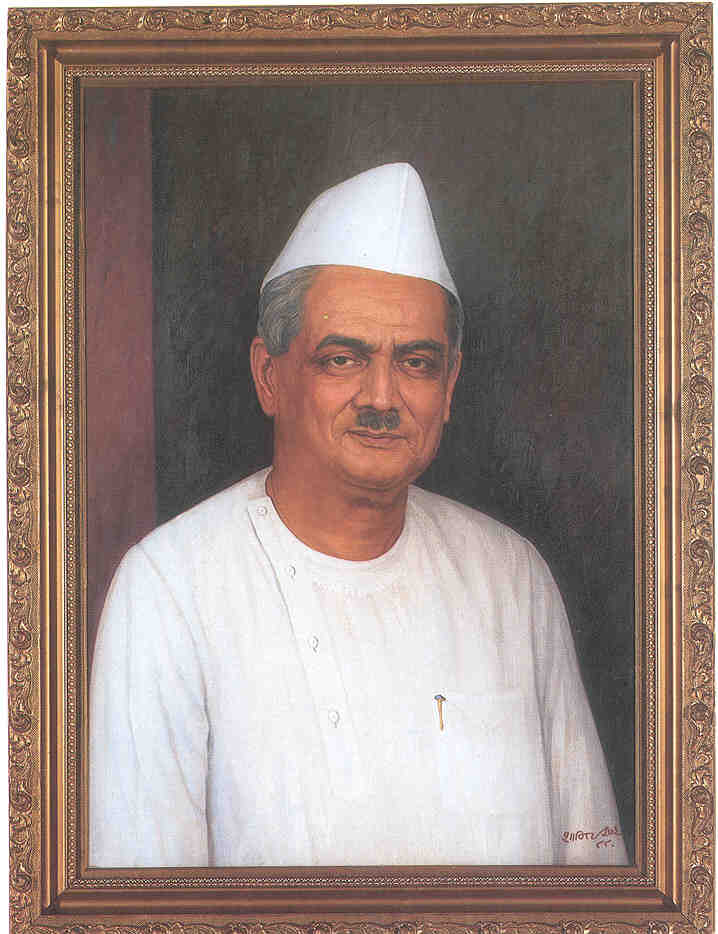
Speaker G.V. Mavalankar
Of the continuing parliamentary debate over 17 and 18 May, the Times of India reported:
Whatever of the Prime Minister’s imperative to Parliament to amend the Constitution survived the incisive logic of criticism yesterday was today well and nigh totally demolished by the formidable tide of argument that flowed from Congressmen and Independents alike, which not one supporter of the Bill was able to adequately answer.’
Despite supportive speeches from Congress leaders like Renuka Ray, Krishna Chandra Sharma and M.P. Mishra—who even contended that there was no need to elicit any public opinion because ‘no public opinion can be more weighty than the will of the Members of this Parliament’—Nehru was eviscerated by his opponents, who, according to press reports, ‘decimated the force’ of his arguments. Such opponents included not only independent members like H.N. Kunzru and Ramnarain Singh and Opposition figures like Hussain Imam, but also—to Nehru’s surprise and discomfiture—renegade Congressmen like Deshbandhu Gupta, H.V. Kamath and Syamnandan Sahay.
‘We have felt the urgency of having some such amendment because the situation in the zamindari areas is becoming increasingly difficult,’ replied Nehru. ‘We are on the eve of what might be called a revolutionary situation . . . It is in our opinion, very important that rapid effect should be given to the Zamindari Abolition Acts.’ ‘Any attempt to postpone this measure rather indefinitely may well lead to very serious consequences,’ he admitted to the Speaker. ‘For the Congress it would be fatal, because they would have failed in their primary objectives. I feel therefore that any circulation of the Bill involving long delays would be unjustified and possibly dangerous.’ Coming straight from the metaphoric horse’s mouth, it was a remarkably candid admission about the cause of the prime minister’s frenzied rush towards an amendment, and confirmation of the Opposition’s charge that the Constitution was being changed to suit the Congress party.
Kunzru declared that Articles 19 and 31 were not being amended, they were effectively being repealed, and if passed, the new article would extinguish freedom of speech and expression almost entirely. There was only one reason for this extraordinary course of events: the upcoming general election. H.V. Kamath suggested ‘that what needed amending was not the Constitution, but the policies of the Government’. The blanket validation of land reform legislation and the creation of the Ninth Schedule constituted, in his opinion, ‘nothing short of midsummer madness’. Hussain Imam described the amendment as ‘laying the foundations of an authoritarian state’ and Syamnandan Sahay thought it tragic that the Constitution was being reduced to the level of ordinary legislation. Deshbandhu Gupta charged the prime minister with showing little faith in the people of the country, who, according to the Preamble to the Constitution of India, more than any Parliament, had given themselves the Constitution as a charter of freedom.
The government found itself struggling to answer the simplest questions: If they did not desire to use any of the enabling provisions of the amendment, then what was the hurry? If the Supreme Court hadn’t pronounced any verdict on zamindari abolition, where was the need to change the Constitution? Why was the government so keen to circumscribe freedom of expression? What was the imminent threat that Nehru kept referring to? Why were they so disinclined to set a positive example and create exemplary democratic traditions? Unable to face the heat, the government wheeled out Law Minister B.R. Ambedkar to mount a vigorous defence.
In a nearly two-hour-long speech, Ambedkar assured the House that the government did not intend to misuse any of the powers it was acquiring, and the amendment was only meant to arm Parliament with the power to pass certain legislation when necessary rather than enact any specific laws in the immediate future. He reiterated Nehru’s spiel that judicial pronouncements were ‘utterly unsatisfactory’ and not in consonance with the Constitution—especially the invalidation of the Communal GO and the policy of quotas—and that the government was committed to fulfilling its obligations as enumerated in the directive principles. New restrictions on free speech were necessitated by the refusal of the Supreme Court to interpret into the Constitution the doctrine of ‘inherent police powers’ like the United States, he argued. In order to secure itself from threats and fulfil its obligations, he maintained, it was vital that the Constitution be amended.
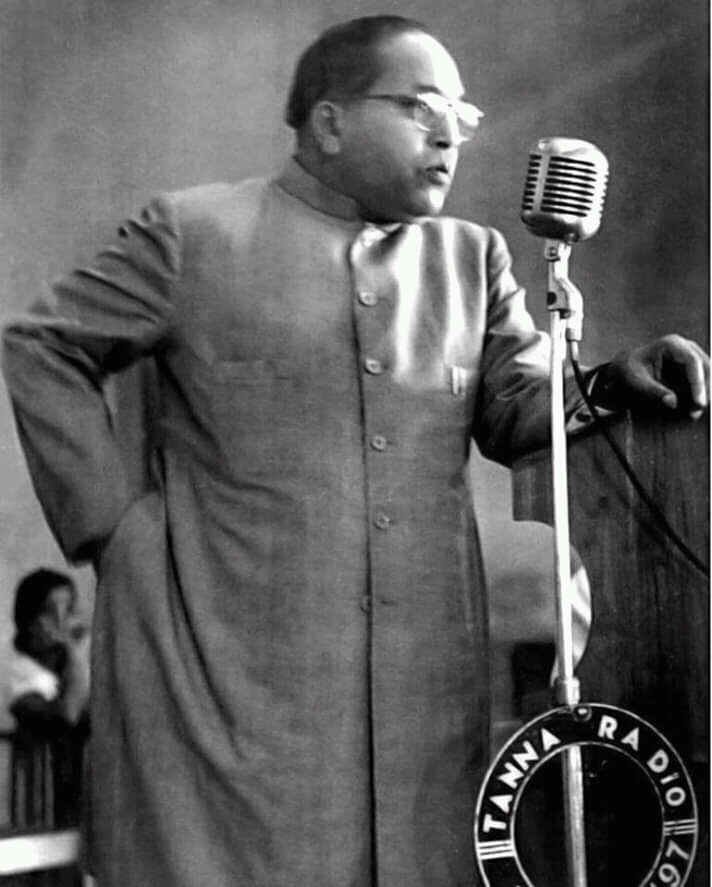
Law Minister Dr. Bhim Rao Ambedkar
Keen critics of the proposed Article 31B, which created the Ninth Schedule as a constitutional vault for land reform legislation, Naziruddin Ahmed, Syamnandan Sahay and H.V. Kamath questioned Ambedkar on the need for such an outrageous constitutional device to provide blanket protection to bad and possibly unconstitutional laws. ‘Just imagine the amount of burden that would be cast upon myself, on the Law Ministry, the Food and Agriculture Ministry and other Ministries involved if we were to sit here and examine every section of each of these Acts to find out whether they deviate,’ came Ambedkar’s terse reply. A more graphic revelation of the government’s unending search for short cuts and its apathetic and lackadaisical attitude would have been hard to find.
The government found itself struggling to answer the simplest questions: If they did not desire to use any of the enabling provisions of the amendment, then what was the hurry? If the Supreme Court hadn’t pronounced any verdict on zamindari abolition, where was the need to change the Constitution? Why was the government so keen to circumscribe freedom of expression? What was the imminent threat that Nehru kept referring to? Why were they so disinclined to set a positive example and create exemplary democratic traditions? Unable to face the heat, the government wheeled out Law Minister B.R. Ambedkar to mount a vigorous defence.
In his closing speech requesting MPs to refer the bill to the Select Committee, Nehru too spoke with fervour in defence of the amendment to Article 15 and continued to dwell on the confusion caused by the contrary judgments of the Allahabad and Patna High Courts—an obviously disingenuous turn of phrase. ‘This business of equality before the law,’ he exclaimed,
. . . [Is] a dangerous thing . . . and it is completely opposed to the whole structure and method of this Constitution and what is laid down in the Directive Principles . . . I am not changing the Constitution by an iota . . . I am merely giving effect to the real intentions of the framers of the Constitution and the wording of the Constitution.
An overwhelming majority of MPs did in the end vote to send the bill to the Select Committee, with instructions to report back on 23 May. Only two votes were cast against Nehru’s motion, demonstrating yet again the prime minister’s firm grip on the Congress Parliamentary Party. The measure clearly had the support of a substantial number of Congress MPs. But the ferocity of the debate, the equivocation from several Congressmen—particularly with regards to freedom of speech—and outright hostility from others, also brought home to Nehru that he was in for stormy days ahead, even if Congress MPs remained subservient for the moment.
The dramatic resignation of Acharya Kripalani from the Congress amid the ongoing parliamentary combat heightened this sense of tension. Declaring war on the government, Kripalani announced his intention to bring all Opposition forces into one fold. Some even speculated that another high-profile resignation from Communications Minister Rafi Ahmed Kidwai, a member of Kripalani’s dissident Democratic Front, could soon follow. Eventually, no such schism surfaced and Kidwai and other supposedly dissident members remained loyal to Nehru.
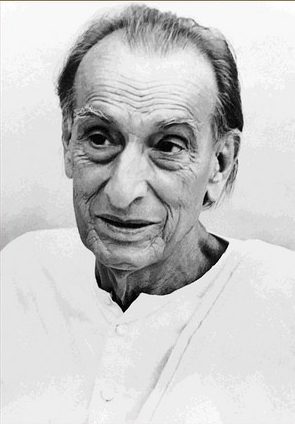
Acharya Kripalani
When the Congress Parliamentary Party met two days later, however, a formal motion to drop the proposed amendment to Article 19 was moved by Deshbandhu Gupta. It was easily defeated. But the fact that it was suggested and voted on at all was an unambiguous indication to the ‘high command’ that it could not rely blindly on the support of all its MPs; that many of them were getting restive about the assault on the freedom of speech and on the constitutional ideals that they themselves had helped shape. The unceasing criticism was also getting to Nehru. ‘I think much of the criticism is misconceived,’ he wrote to his chief ministers. ‘There is a strange fear in the minds of some that Parliament might misbehave and therefore should not have too much power given to it.’ None bothered to tell him that such a robust fear of excessive executive power was the bedrock of liberal democracy.
A twelve-member delegation of the All India Newspaper Editors Conference (AINEC) led by its president—the same renegade Congress MP Deshbandhu Gupta—also met the prime minister on 20 May to press its demand that the government drop the proposed amendments in the present circumstances or postpone it to a later date so that ‘public opinion may be fully elicited on the subject’. The doyens of the press were told by the prime minister that while the government was not prepared to meet either demand, it would nevertheless try to modify the amendment to try and mitigate their concern. Many wondered, was the unrelenting pressure forcing him to soften his stand? AINEC remained unconvinced.
When the Congress Parliamentary Party met two days later, however, a formal motion to drop the proposed amendment to Article 19 was moved by Deshbandhu Gupta. It was easily defeated. But the fact that it was suggested and voted on at all was an unambiguous indication to the ‘high command’ that it could not rely blindly on the support of all its MPs; that many of them were getting restive about the assault on the freedom of speech and on the constitutional ideals that they themselves had helped shape.
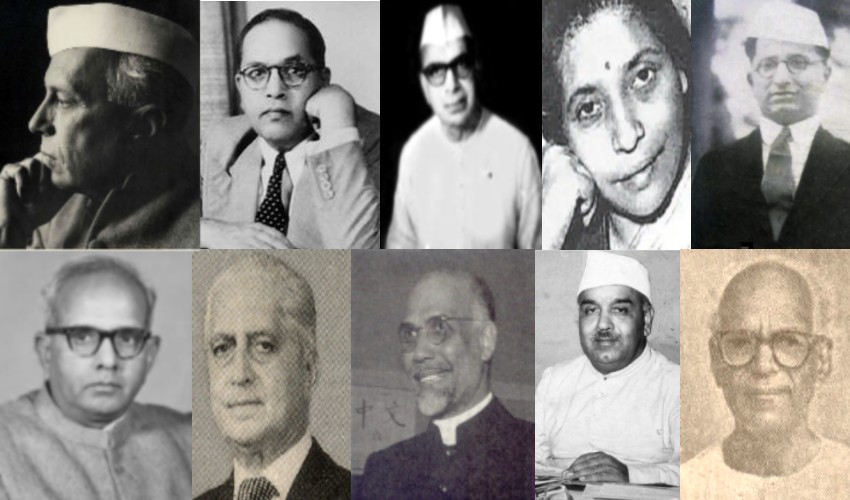
Supporting the First Amendment in Parliament: Top Row, Left to Right – Jawaharlal Nehru, B.R. Ambedkar, Seth Govind Das, Renuka Ray, Joachim Alva; Bottom Row, Left to Right – Tribhuvan Narayan Singh, Frank Anthony, Jerome D’Souza, Rafi Ahmed Kidwai, Krishna Chandra Sharma
The interlude
From Parliament, the Constitution (First Amendment) Bill now made its way to the Select Committee. Much like Parliament itself, the Select Committee was dominated by the Congress party. Having weathered the torrid debate in the House, Congress members were confident of passing this hurdle with relative ease. Opposition leaders Syama Prasad Mookerjee, H.N. Kunzru, Sardar Hukam Singh, K.T. Shah and Naziruddin Ahmed, who made up a small but vocal and vociferous minority, were equally determined to mount a strenuous defence of fundamental rights and civil liberties. Both supporters and detractors of the bill now waited with breathless anticipation for the Select Committee’s report to appear and settled down to a brief interlude.
Meanwhile, outside the corridors of power, the emotionally charged debates in Parliament provoked an ever-growing torrent of adverse opinion. As the committee deliberated on the clauses of the amendment, vehement criticism from pressmen, businesses, lawyers, civil society groups and political figures alike continued to flood the pages of newspapers and the government’s undue haste and lack of respect for democratic propriety became a common topic of public discussion.
The Supreme Court Bar Association took the lead by denouncing the amendment and demanding that the executive function within the limits prescribed by the Constitution. Assembled lawyers appealed to all ‘public bodies who believe in civil liberties and particularly freedom of speech and expression’ to ‘mobilize public opinion and express themselves in unequivocal terms’. Following in its footsteps, the Nagpur High Court Bar Association ‘passed a resolution expressing its emphatic view that the proposed amendments were improper, unjustified, highly undemocratic and opposed to the fundamental rights of the citizens of India’. Former judges like N.C. Chatterjee of the Calcutta High Court and S.P. Sinha of the Allahabad High Court also inveighed against the measure and gave public statements castigating the government.
The Progressive Group, Bombay—a liberal organization consisting mostly of Muslims and Parsees—challenged the competence of a provisional parliament elected on a limited franchise and opposed any amendment of the Constitution before a general election. The All India Newspaper Editors Conference, unconvinced by Nehru’s assurances to its delegation, restated its demand for the complete withdrawal of the proposed amendment to Article 19 and the freedom of speech and expression. The Standing Committee of AINEC ‘placed on record its considered opinion that the proposed amendment (was) unwarranted and uncalled for, and hoped that the representations made by the President would persuade the Government to reconsider their attitude’.
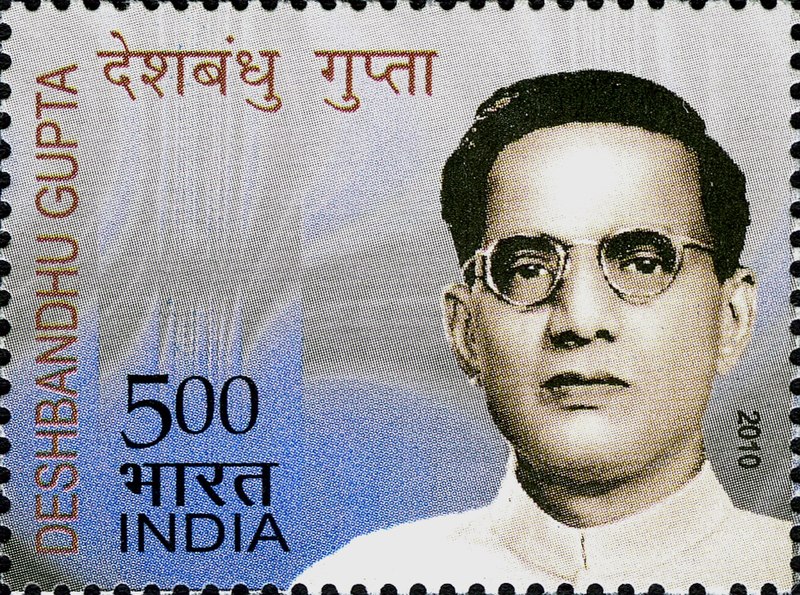
Deshbandhu Gupta
Nehru, concerned at the reactions in the press, invited major editors and correspondents—Devadas Gandhi of Hindustan Times, Ramnath Goenka of the Indian Express and Shiva Rao of The Hindu—for a briefing with him. It did little to stem the tide of disapproval. In private correspondence, Deshbandhu Gupta informed the prime minister that his verbal assurances lacked any constitutional validity, and to give concrete form to them, suggested the inclusion of a new clause in the Constitution guaranteeing the freedom of the press—something akin to Article 1 of the American Constitution. ‘These wide powers [which the government was appropriating via the amendment],’ Gupta maintained, ‘were an open invitation to parliamentary majorities to abridge the freedom of the press.’ Nehru promptly rejected Gupta’s suggestions out of hand.
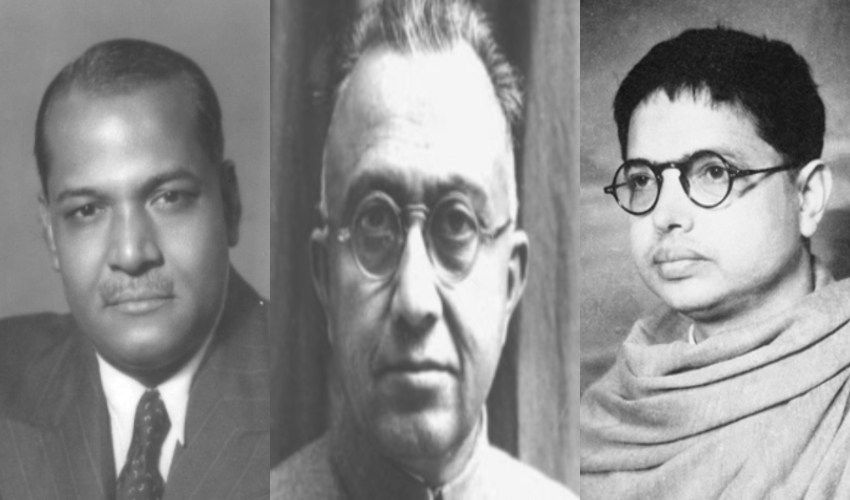
Left to Right: Ramnath Goenka of the Indian Express, Shiva Rao of The Hindu, Devadas Gandhi of Hindustan Times
In Kanpur, the tremendously well-respected elder statesman Sir Jwala Prasad Srivastava, former cabinet minister, former member of the Viceroy’s Executive Council and former member of the original Constituent Assembly, stated that the proposed amendments ‘were ill-timed, inept and ill-advised’ and warned that they ‘sought to take away the guarantees in the Constitution’. An interesting aside: Srivastava’s son-in-law Minocher ‘Minoo’ Masani would one day found the Swatantra Party and become one of Nehru’s fiercest critics, leading the liberal fightback against Congress dominance.
The Progressive Group, Bombay—a liberal organization consisting mostly of Muslims and Parsees—challenged the competence of a provisional parliament elected on a limited franchise and opposed any amendment of the Constitution before a general election… ‘These wide powers [which the government was appropriating via the amendment],’ [Deshbandhu] Gupta maintained, ‘were an open invitation to parliamentary majorities to abridge the freedom of the press.’ Nehru promptly rejected Gupta’s suggestions out of hand.
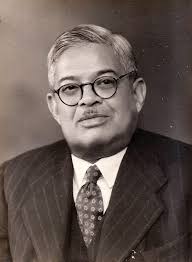
Sir Jwala Prasad Srivastava
Within the fourth estate, reactions to an amendment that placed ‘the press literally at the mercy of bureaucratic whims’ were universally condemnatory and vituperative, with open declarations that the ‘press will and must organize its resources to fight this encroachment on fundamental freedoms.’
One writer railed:
Public order is the foundation of a stable state. But to empower governments with the expansive right to abridge freedom of expression in matters pertaining to public order is surely to strike at the roots of democratic rule and life . . . Tomorrow a communist government under cover of the proposed amendment to restrict free comment on foreign affairs might dragoon the press into bowing to the behests of the Kremlin . . . In the name of public order a dictatorial administration . . . may scotch all opposition to itself by a blanket ban on criticism against the Government on the ground that this is likely to undermine public order. These are the dangers to democracy and democratic rule inherent in the new amendments.
‘The whirling of time has indeed brought forth its revenges’ mused another senior commentator.
Those who in former times championed most vociferously freedom of speech and expression, having now settled down in the seats of power, see no incongruity in themselves proposing to impose more rigid restrictions upon them. Clearly they show no understanding of the nature of freedom.
‘If further restrictions are to be imposed’ he asked the government,
[It] must surely be shown that because of the absence of these restrictions our friendly relations with foreign governments have been imperilled, public order has been endangered and there has been widespread incitement to offences. So far as one can make out from the debates, there has been no attempt to show that throughout the country conditions have been such as to necessitate these changes. All we find is mention of a few judicial pronouncements—occasionally even judicial obiter dicta—from which it is argued that the changes are necessary.
Without the amendments of Articles 15 and 31, ‘certain inconveniences will undoubtedly be caused to the party in power, certain policies sponsored by the party will not show all the results expected from them, and this may cause the electorate in certain areas to be not too enthusiastic in its support,’ he argued. ‘But surely these furnish no reasons for forcing through fundamental changes . . .’
The legal correspondent for the Times of India accused Law Minister Ambedkar of trying to be too clever by half in censuring the Supreme Court for refusing to support his doctrine of ‘implied police powers’ and published long extracts of his speeches to the Constituent Assembly in 1948 to demonstrate how he had gone back on his own claims. In 1948, Ambedkar had categorically asserted before the Constituent Assembly that instead of formulating fundamental rights in absolute terms and depending on the Supreme Court to invent the doctrine of ‘police powers’ and read limitations into them (as happened in the United States), they were going to directly write such restrictions into the Constitution itself, forestalling the need or the ability of the Supreme Court to invent any doctrines. Having made such a statement in the Constituent Assembly, in the correspondent’s opinion, for the law minister to now demand ‘implied police powers’ was nothing short of dishonesty.
Without the amendments of Articles 15 and 31, ‘certain inconveniences will undoubtedly be caused to the party in power, certain policies sponsored by the party will not show all the results expected from them, and this may cause the electorate in certain areas to be not too enthusiastic in its support,’ he [a senior commentator] argued. ‘But surely these furnish no reasons for forcing through fundamental changes . . .’
The legal correspondent for the Times of India accused Law Minister Ambedkar of trying to be too clever by half in censuring the Supreme Court for refusing to support his doctrine of ‘implied police powers’ and published long extracts of his speeches to the Constituent Assembly in 1948 to demonstrate how he had gone back on his own claims.
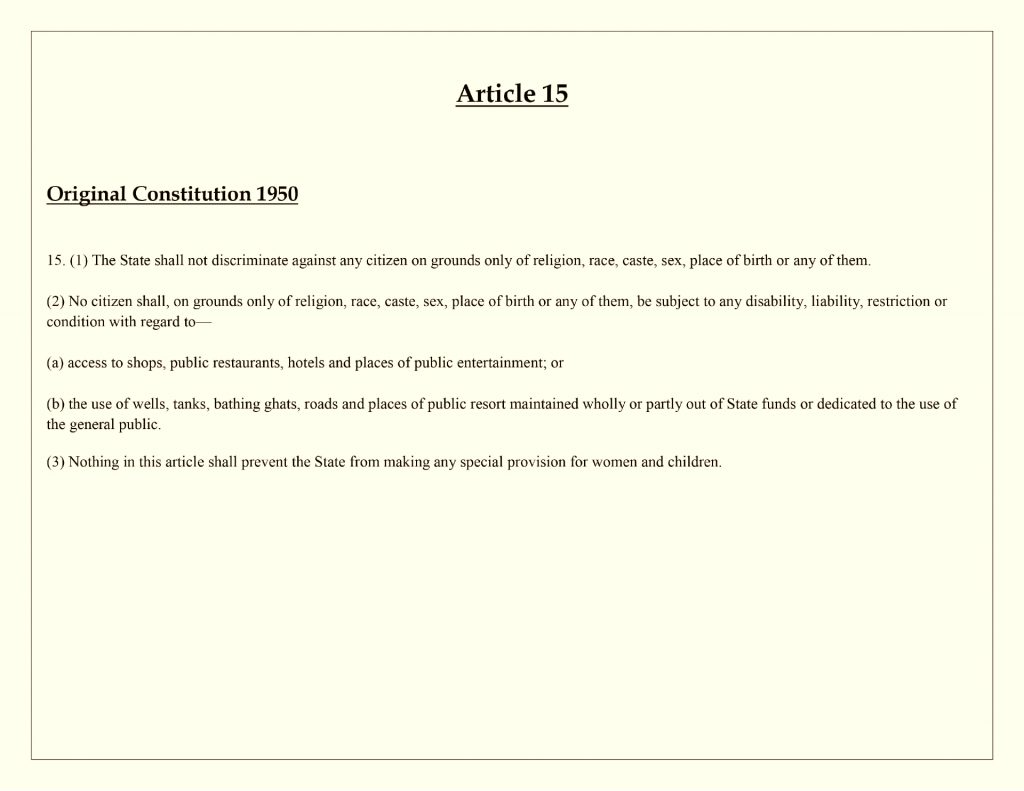
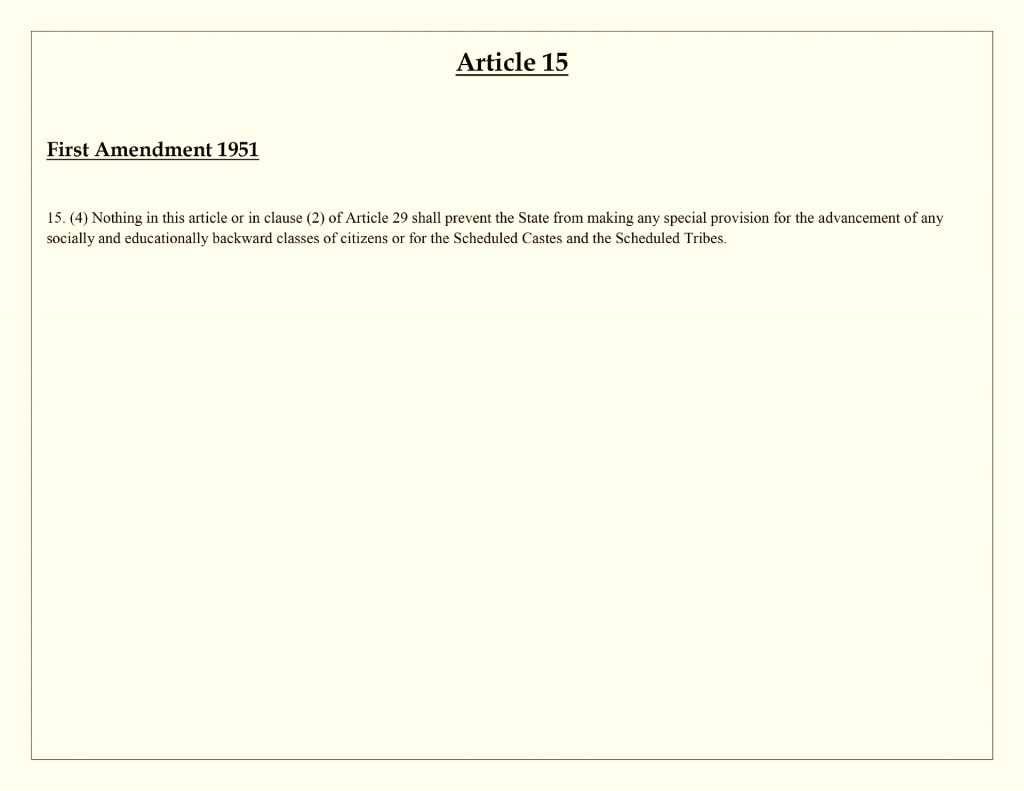
‘In supporting the Constitution (First Amendment) Bill the prime minister stated, inter alia, “it was not to be used by the present Government but will be handed down as a legacy to future parliaments,” wrote an irate citizen from Bombay in a letter to a major newspaper. ‘Then what is the necessity of introducing it in the present Parliament? If, as Mr Nehru admits, “nothing could be static or unchanging” and the situation may alter radically, it is hardly fair to act presumptuously towards the next Parliament.’
The spate of criticism and adverse opinion, incessant and implacable, momentarily shook the prime minister. Within the Select Committee, he came under increasing pressure on the issue of freedom of speech and expression, on which a growing number of Congressmen disagreed with him. Many supporters pressed him to include the phrase ‘reasonable restrictions’ to allow any of the restrictions placed to be justiciable rather than grant the government blanket and arbitrary powers to curb free speech and completely exclude any possibility of judicial review. Nehru, who self-confessedly wanted to circumscribe the judiciary’s power and show the judges their place in the pecking order, recoiled at this advice.
‘I confess I do not like the word “restriction” or “reasonable” added to it,’ he wrote to T.T. Krishnamachari, Congress MP from Madras and former member of the Drafting Committee in the Constituent Assembly.
So far as I can see, the courts have always had the right to consider any legislation . . . It is true that if this amendment is passed, they will be somewhat restricted in their interpretation. But I feel that putting in the word “reasonable” would be an invitation for every such case to go to the courts with ensuing uncertainty.
In the prime minister’s own words, he did not want the restrictions on the freedom of speech to need to pass any test of reasonableness. He wanted to exclude the courts from adjudicating on them altogether. The word or the idea of restrictions may not have appealed to him very much, but the idea of them being reasonable appealed to him even less. It was a strangely contradictory position to take: to dislike restrictions but want them to be overarching and non-justiciable when written into the Constitution. Between the fundamental rights of the country’s citizens and the prime minister’s single-minded devotion to remaking India in his own image, the latter was the undeniable victor.
Resistance, rebellion and sleight of hand
The Select Committee finished its deliberations on the evening of 22 May 1951. By Nehru’s own account, Opposition figures forced extensive discussions on every single issue, often compelling the committee to meet both in the morning and in the afternoon to complete its work. Article 19 and the freedom of speech remained a major bone of contention. ‘I feel quite exhausted,’ the prime minister confessed at the end of four days of deliberations.
Outside, the storm of criticism refused to abate. Under fire from the press, the commentariat and the Opposition, large numbers of Congress MPs began to vacillate on the extent of their support for Nehru’s line, particularly the attack on Article 19. When the Congress Parliamentary Party met on 23 May to take stock of the situation, the prime minister was presented with a petition signed by seventy-seven MPs asking for a free vote when the amendment was discussed in Parliament. Nehru was taken aback by the move and surprised by the rapid slide in support. From a near-unanimous majority for the amendment to Article 19 in the meeting on 20 May to the demand for a free vote on 23 May, the deterioration in the party’s mood was swift and, for Nehru, dangerous.
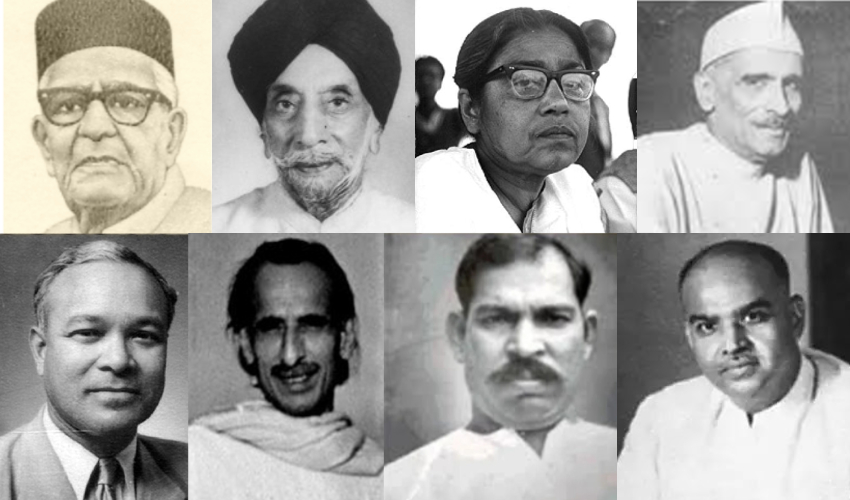
Opposing the First Amendment in Parliament: Top Row, Left to Right – Hriday Nath Kunzru, Sardar Hukam Singh, Sucheta Kripalani, H.V Kamath; Bottom Row, Left to Right – Jaipal Singh, Acharya Kripalani, Shibban Lal Saxena, Syama Prasad Mookerjee
The prime minister sensed the precariousness of the situation. The party might have been in his thrall and there may not have been any open rebellion, but there were enough doubters and dissidents to deny him his victory over the Constitution if he did not moderate his stand. By the time the Union Cabinet met in the evening, Nehru was already under significant pressure from rebellious MPs and probably mulling his options. Within the Cabinet, several ministers now started to insist that the word ‘reasonable’ be included in the amending bill to safeguard judicial oversight of restrictions on fundamental rights. Many perhaps realized that without it, the amendment constituted a near-existential threat to Part III of the Constitution. Support for Nehru’s draconian vision of emasculating the courts was now fading at an alarming rate.
‘So far as I can see, the courts have always had the right to consider any legislation . . . It is true that if this amendment is passed, they will be somewhat restricted in their interpretation. But I feel that putting in the word “reasonable” would be an invitation for every such case to go to the courts with ensuing uncertainty.’ —Nehru
The surprising turn of events shocked the prime minister and convinced him of the need to pedal back. It brought home the limits to which both the Cabinet and the Congress Parliamentary Party were willing to obey his diktats. Hemmed in on the issue, Nehru conceded ground and accepted the inclusion of the word ‘reasonable’ in order to prevent a split in the Cabinet and ensure that there were fewer avenues for internal dissent when trying to muster a two-thirds majority. ‘The cabinet is understood to have decided to meet the mounting criticism against the proposed amendment to Article 19(2) of the Constitution, relating to “restrictions” on the freedom of speech and expression by accepting a modification that will render it justiciable,’ reported a correspondent. ‘The clause in question is to be amended by limiting to “reasonable restrictions” the proposed unfettered right of the State to impose restrictions in the interests of public order and maintaining friendly relations with foreign states.’
It was a very limited concession, extracted much against the prime minister’s own will and volition. But it served to dilute the absolute worst part of the proposed amendment and placate the agitated members of the Cabinet. Whatever restrictions the government might legislate on the right to freedom of speech, they would have to submit to a judicial determination of their reasonableness. The unrestrained ability of the state to curtail fundamental rights, the most extreme of Nehru’s ideas, was negated. Unbeknownst to the participants in that momentous Cabinet meeting, their rearguard action had just warded off one of the gravest threats the Constitution ever faced, or was likely to face in the future. A handful of doubters and dissenters, having built up the conviction to stand up to a larger-than-life prime minister that towered over them in the public eye, had just saved the foundations of Indian democracy and its constitutional order.
Whether the concession would be enough to mollify restive Congress parliamentarians, of course, was another question altogether. The sobering experiences of 23 May left Nehru unsettled and disturbed. Could he rely on his MPs to fall in line behind him as in the past? Suddenly he was not so sure. ‘You can have no idea whatever of the tremendous difficulties we have had with this Bill and we are not out of the woods yet,’ he confided to West Bengal chief minister Bidhan Chandra Roy. ‘Till the last moment I shall not know whether we can have the requisite two-thirds number for passing these clauses.’
While the effects of the concession on the Congress Parliamentary Party remained a matter of conjecture, it distinctly failed to impress the doyens of the press. Now decidedly nervous, the All India Newspaper Editors Conference resolved to hold a special plenary session ‘to consider the steps which should be taken to protect the liberties of the press now threatened by the proposed amendment to Article 19(2) of the Constitution’. In an attempt to embarrass Nehru into reconsidering his stance, correspondence between Deshbandhu Gupta and the prime minister was made public. It had little effect.
On the question of reservations and Article 15, however, there was much more consensus within the Cabinet. Insistent requests had continued to pour in from Madras arguing that the proposed alteration of Article 15 was insufficient to protect reservations for the backwards and ‘hence a new clause should be added to the article to the effect that nothing in the article or in Article 29(2) should prevent special provisions for the educational, economic, and social advancement of the backward classes.’ Cabinet ministers, and Congress members in the Select Committee, accepted this demand to bring Article 29—which prohibited discrimination in admissions to schools and colleges—into the ambit of the amending bill. They were now of the view ‘that this provision is not likely to be, and indeed cannot be, misused by any government for perpetuating any class discrimination against the spirit of the Constitution, or for treating non-backward classes as backward for the purpose of conferring privileges on them’.
In a new twist, they also recommended that all references to ‘economic’ and ‘economically’ be dropped and the language be limited to ‘socially and educationally backward classes’. Through this sleight of hand, the cabinet sought to achieve two objectives. First, it would remove any prospect of economic criteria coming in the way of calculating the backwardness of a class based on their ‘social and educational’ standing. Second, it would pre-empt and negate any demands for special provisions or reservations for those who could be termed economically backward without the corresponding status of social or educational backwardness. In other words, they wanted to acquire the power to legislate for caste- and community-based reservations—what the Constitution scholar Granville Austin called ‘compensatory discrimination’— while preventing the creation of any affirmative action mechanisms based on economic criteria.
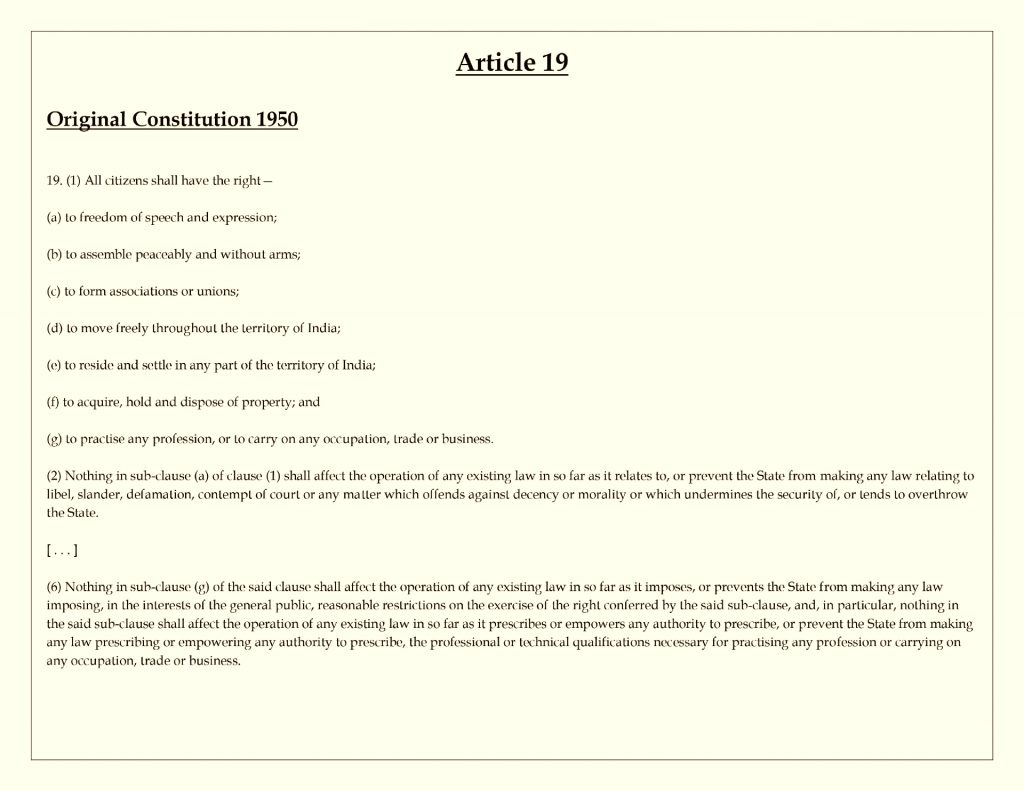
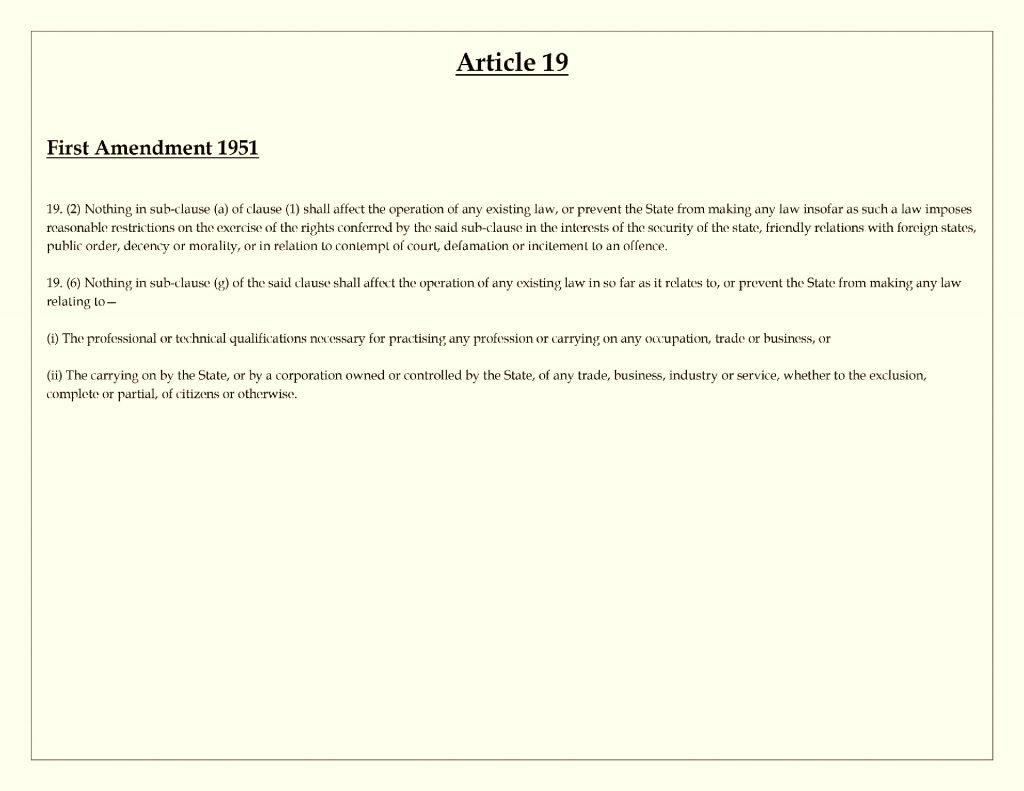
In a new twist, they also recommended that all references to ‘economic’ and ‘economically’ be dropped and the language be limited to ‘socially and educationally backward classes’. Through this sleight of hand, the cabinet sought to achieve two objectives. First, it would remove any prospect of economic criteria coming in the way of calculating the backwardness of a class based on their ‘social and educational’ standing. Second, it would pre-empt and negate any demands for special provisions or reservations for those who could be termed economically backward without the corresponding status of social or educational backwardness.
The exclusion of economic backwardness from the ambit of India’s reservation and affirmative action policies—either as a test for community-based reservations or as a criterion in and of its own accord—would open up a new political fault line that has endured to this day. Today, the debate around this fault line is expressed either in terms of demands for reservation for ‘economically weaker sections’ among the forward castes or demands for exclusion of the ‘creamy layer’ in reservations for Other Backward Classes. But few recall just where the race to social backwardness first began. Much before V.P. Singh and Mandal in 1990, much before the ninety-third amendment and Arjun Singh in 2006, it was in this dimly remembered cabinet meeting that the constitutional groundwork for this debate was first laid.
President Rajendra Prasad, who had been keeping a close eye on proceedings as the debate raged in Parliament and outside, now made a final, eleventh-hour effort to persuade the government to abandon the reckless course it had set itself on. In a note to the prime minister, Prasad reminded him of his view that the amendment was ‘premature and uncalled for’, and of the need to lead by example by establishing good conventions. He again cautioned Nehru against an attempt to overrule judicial pronouncements through a constitutional amendment, admonishing him that it would raise fundamental issues related to the separate functions of the legislature and the judiciary. Nehru, already irritated by what he thought was Rajendra Prasad’s propensity to exceed his brief, was incensed.
‘As you are aware, the Bill for the amendment of the Constitution has been discussed with great thoroughness both in Parliament and the Select Committee, as well as in the Press and by the outside public,’ came the prime minister’s terse response to the substance of the President’s objections.
Before the Bill took shape, the matter was considered by a subcommittee of the Cabinet and a committee appointed by the Congress party in the Parliament. The two committees held consultations together. We consulted also eminent lawyers, including the Attorney-General and Shri Alladi Krishnaswamy Aiyyar. Both of them were clearly of the opinion that it was within the competence of Parliament to consider and pass this measure . . . After this very full consideration of this subject from every point of view, the Cabinet have come to certain firm conclusions, which are now embodied in the Select Committee’s report . . . The Government is convinced of the necessity as well as the validity of the amendments proposed.
‘It would be exceedingly unfortunate if the public became aware that the President held a contrary opinion to that of the Cabinet in such a matter and was pressing for its adoption by the Cabinet,’ he reprimanded Rajendra Prasad. ‘I shall certainly place your note before the Cabinet as desired by you . . . I do not propose to circulate this for fear of leakage and undesirable publicity. I trust also that your office has not sent copies of this note to anyone else.’ For the second time, the president of the republic found his advice spurned and his views treated as unworthy of serious consideration. Committed to the constitutional order and the maintenance of decorum, Rajendra Prasad, despite his strong feelings on the matter, followed Nehru’s advice and scrupulously avoided publicizing his opposition.
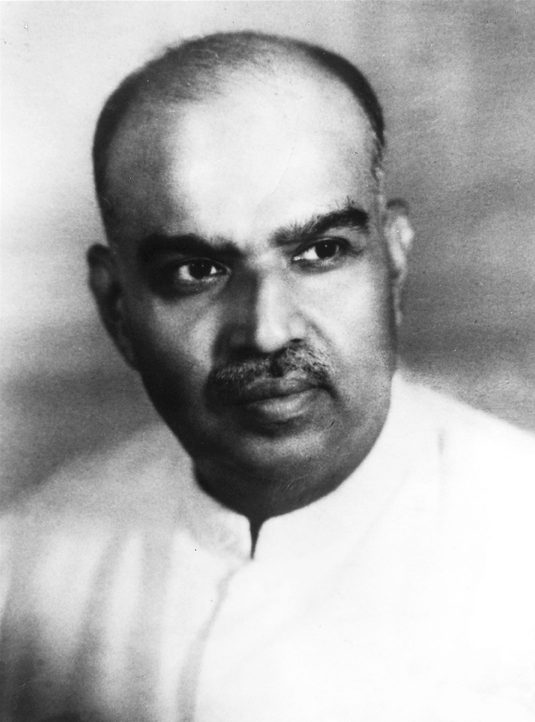
Dr. Syama Prasad Mookerjee
On 25 May 1951, the new draft of the Constitution (First Amendment) Bill emerged from the Select Committee. Along with the draft, the report from the Select Committee was submitted to Parliament the same morning. After several days of intense deliberations, the twenty-one members produced an eighteen-page-long report. Recommendations from the committee took two pages; scathing minutes of dissent by Opposition members filled sixteen. As the press prominently noted, ‘All the five non-Congress members of the committee recorded minutes of dissent, some of them including Dr. Syama Prasad Mookerjee and Pandit Hriday Nath Kunzru doubting the very advisability of amending the Constitution in such haste after it had been in operation for only sixteen months.’
In his minute of dissent, S.P. Mookerjee strongly questioned the need for any further restrictions on the freedom of speech and expression. ‘The onus of proving the need for changes has not been satisfactorily discharged,’ he argued. ‘The main reason advanced was that the judiciary had pronounced its opinion on certain laws which were disfavoured by the government.’ ‘The existing restrictions on the right to free speech and expression were more than sufficiently restrictive and there should be no fresh additions to these restrictions,’ he urged, and ‘the word public order must be subject to the “clear and present danger” test, namely that the substantive evil must be extremely serious and the degree of imminence extremely high.’ ‘Nothing has as of yet happened to justify the taking away of the jurisdiction of the judiciary in this sweeping manner,’ he wrote, castigating the government for its scramble to amend Article 31 and create a schedule of unconstitutional laws. ‘Instead of amending the lawless laws and making their provisions consistent with fundamental rights, the Government are following a strange procedure of adhering to such reactionary laws and changing the fundamental rights.’
‘Instead of amending the lawless laws and making their provisions consistent with fundamental rights, the Government are following a strange procedure of adhering to such reactionary laws and changing the fundamental rights.’ —Syama Prasad Mookerjee
‘The history of Section 124A is well known. It was passed in its present form in 1818 to curb the activities of Indian patriots . . . Now that India is free, it should find no place in a statute book in its existing form.’ —Pandit Hriday Nath Kunzru on the revalidation of Sections 124A and 153A of the Indian Penal Code: sedition and causing enmity between groups respectively.
‘Restrictions like the pre-censorship of news and the banning of the entry of a newspaper into a state were imposed during the war under the Defence of India Rules,’ read the excoriating observations of H.N. Kunzru, challenging the Congress to explain ‘why the Government in a free India should be allowed to exercise such powers as were not exercised even during the British regime in peacetime’. Turning his attention to the revalidation of Sections 124A and 153A of the Indian Penal Code—sedition and causing enmity between groups respectively—Kunzru wrote: ‘The history of Section 124A is well known. It was passed in its present form in 1818 to curb the activities of Indian patriots . . . Now that India is free, it should find no place in a statute book in its existing form.’
K.T. Shah, Sardar Hukam Singh and Naziruddin Ahmed produced a joint minute of dissent asserting their opinion ‘that the experience gained under the Constitution was insufficient to justify an amendment, they did not have the texts of the laws to be validated [laws that would be placed in the Ninth Schedule] and there was no evidence at all to justify this wholly gratuitous and unwarranted restriction on civil liberties’. ‘We have grave doubts and misgivings as to the wisdom, propriety and justification of the Bill,’ the trio concluded, flagging their reluctance to support the government’s invasion of individual freedom.
In the new democratic republic, however, the views of the Opposition, no matter how well reasoned or how well intentioned, counted for little in the eyes of the country’s new regime. Opposition leaders, much like the president and the Speaker, found themselves sidelined and their views treated with indifference and scorn. This was to become a norm. In this new Nehruvian India, ‘there were numerous committees and consultation was frequent,’ wrote Sarvepalli Gopal, ‘ . . . the deficiency was in spirit and animation.’
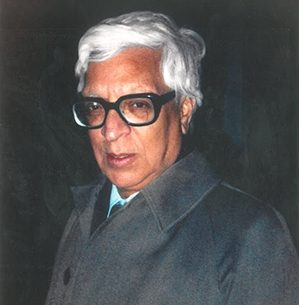
Sarvepalli Gopal
If ever more evidence was needed, the Select Committee report convincingly demonstrated the complete and utter lack of consensus on the matter and the absence of any respect for the Opposition’s views. There was little doubt left that the amendment of the Constitution was a Congress project driven by the prime minister with no support from Opposition figures—not even from those who conceded the principles of land reform and affirmative action.
Despite the passionate arguments put forward by Opposition figures, the majority of the Select Committee felt otherwise. Fervent appeals to Nehru’s sense of democratic propriety and the need for the ‘provisional parliament’ to show moral uprightness by waiting for a general election fell on deaf ears. All warnings that a dangerous precedent was being created went unheeded. The only major changes the committee recommended were the use of the word ‘reasonable’ before restrictions to make justiciable any legislation on the subject in respect of Article 19, a limitation of the language to ‘socially and educationally backward’ and the removal of all reference to economic backwardness, and the inclusion of Article 29(2) within the ambit of the qualification to be added to Article 15. In all other respects, including the alteration of Article 31 and the creation of the hugely controversial Ninth Schedule, the committee ignored the intense resistance of the Opposition and placed its stamp of approval on the bill drafted by the government.
Newspapers had been optimistically speculating on the concessions that Nehru might agree to in a bid to propitiate his critics and assuage his restive MPs. The recommendations of the Select Committee left them disappointed and angry. ‘Except for a grudging concession to the press and certain other modifications for elucidating other provisions the Bill to amend the Constitution has emerged unscathed from the 21 member Select Committee,’ lamented a report in a major newspaper. Having ruminated on the changes suggested by the committee for several days, another correspondent reaffirmed the stand of the press by stating that ‘the so-called concessions to popular demand are no adequate substitutes for existing safeguards’.
In a muscular editorial evocatively titled ‘Not Enough’, the Times of India contended that phrases such as ‘reasonable restrictions’, meant to be safeguards against the heavy hand of the government ‘can at best constitute only a partial check on the executive’s abuse of powers. Experience shows that terms such as “reasonable compensation” can carry a multitude of meanings. Moreover, those who may be victims of the new repressive laws are not always likely to have the means to seek legal redress.’ ‘A more pernicious feature of the new amendment is that the scope of the permitted restrictions remains as wide as the original draft,’ raged the writer. ‘As for the new restrictions allowed in the sacred name of public order, these can only help unscrupulous regimes to identify their own safety with the “security of the state” and to stifle all organized protest.’
‘Why are “economically backward” people less deserving of help than “socially and educationally backward classes”?’ the editorial fumed. ‘As for securing special rights for Backward Classes, Clause 4 of Article 15 as redrafted does not prevent the treating of non-Backward Classes as Backward for the purpose of privileges on them.’ Positively seething, the writer of the editorial warned Nehru: ‘At the root of democratic progress is the belief that the heterodoxies of today may become the orthodoxies of tomorrow and that the opposition of today may in the course of time achieve the majesty of government.’ It was a warning that was apocalyptic and oracular in equal measure. Nearly seventy years on, facing the full force of the amendment, the Congress party, Nehru’s ideological descendants and co-travellers, and the one-time cheerleaders of the Nehruvian offensive, live on to testify to the veracity of the unknown writer’s prophetic warning.
Positively seething, the writer of the editorial warned Nehru: ‘At the root of democratic progress is the belief that the heterodoxies of today may become the orthodoxies of tomorrow and that the opposition of today may in the course of time achieve the majesty of government.’ It was a warning that was apocalyptic and oracular in equal measure. Nearly seventy years on, facing the full force of the amendment, the Congress party, Nehru’s ideological descendants and co-travellers, and the one-time cheerleaders of the Nehruvian offensive, live on to testify to the veracity of the unknown writer’s prophetic warning.
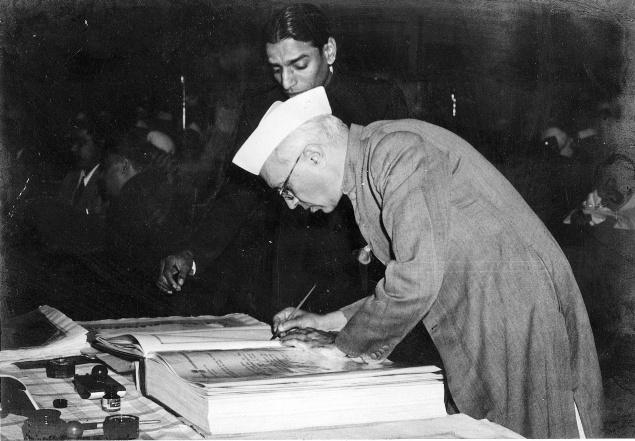
Jawaharlal Nehru signing the Constitution of India
Nevertheless, at that moment in May 1951, so far-fetched did the possibility of the Opposition achieving the majesty of government seem that none bothered to take it seriously. Small in number, limited in electoral appeal and lacking any party organization, the threat of the Opposition one day using Nehru’s own stick to beat him with carried near-negligible weight as a deterrent. But what the Opposition lacked in numbers and electoral appeal, it made up for in its strength of purpose and its dedication to the defence of the Constitution. Having failed to convince the government to heed their opinions in the Select Committee, Opposition leaders now prepared to make a last ditch stand in Parliament.
‘The Opposition’ noted one journalist,
[M]ay be numerically small in view of a strong Congress Party whip, and many doubters have certainly been satisfied by the change rendering justiciable the restrictions that might be imposed on freedom of speech and expression. But for all that, the Opposition will be intense and will probably be speaking for more than those who might care to walk out of the “noes” lobby . . . Members of the former Democratic Front [Kripalani’s group of dissident Congressmen] have taken counsel together on this measure . . . they are expected to oppose tooth and nail the very principle of a constitutional amendment at this stage.
As the amendment bill and the debate around it moved inexorably towards a conclusion, Opposition figures from across the political spectrum, few and far between as they were, now braced themselves and prepared for a fateful parliamentary confrontation. Much like the warriors of yore, woefully outnumbered and comprehensively outgunned, these intrepid defenders of constitutional freedoms unsheathed their verbal swords and rode out to battle.
Parliamentary encounter IV: Storm over Parliament
The battle was joined on 29 May 1951 as Prime Minister Nehru moved the bill as amended by the Select Committee for Parliament’s consideration. Even before Nehru began speaking, he was interrupted by H.V. Kamath objecting to the ‘vitiated’ proceedings in the Select Committee. He was quickly shouted down by the Speaker to allow Nehru to begin proceedings. The mood was sombre—this time, there would be no niceties.
‘We live in a haunted age,’ Nehru informed his colleagues.
I do not know how many members have this sense . . . of ghosts and apparitions surrounding us, ideas, passions, hatred, violence, preparations for war, many things you cannot grip, nevertheless which are more dangerous than other things . . . Hon. Members tell me that this Constitution has been in existence for sixteen months. Can any member tell me what the fate of the world will be in another sixteen months?
The apocalyptic imagery was fitting.
In his seventy-minute address, the prime minister justified the amendments to Article 19 by vague allusions to a grave danger to the state and repeated the allegation that fundamental rights were now an obsolete idea. The addition of the word ‘reasonable’ made anything done under the act patently justiciable, he continued, and admitted that they had avoided using that word earlier ‘to avoid an excess of litigation about every matter, everything being held up and hundreds, maybe thousands, of references constantly made by odd individuals or odd groups thereby holding up the work of the state.’
The brazen admission by the prime minister that he considered individuals fighting for their constitutional rights to be odd and had wanted to prevent them from knocking on the doors of the judiciary provoked an indignant reaction from H.V. Kamath about the sacrosanct nature of fundamental rights. Nehru remained unfazed. ‘I wish the House would be clear about this and realize the times we live in,’ he sneered, ‘in this country and other countries, and not to quote so much some ancient script or ancient thing that was said at the time of the French Revolution or the American Revolution. Many things have happened since then.’
‘It is not merely a question of what words you put in the Constitution’ he glowered.
It is a question of dealing with the situation . . . of saving the country from going to pieces, as some people want and try to make it . . . Are we going to fight it with these words, to be told that this word comes in the way and that word prevents you from doing this? No word will be allowed to come in the way because the country demands it . . . Do you think any Constitution will prevent me from dealing with such a situation? No. Otherwise the whole Constitution goes . . . I want to be perfectly clear in declaring that if I am responsible and this Government is responsible, anything that goes towards disrupting the community . . . will be met with the heavy hand of the Government. There has been enough loose talk about this. It is for this country and this House to have or not to have this Government. But these are the terms of this Government, no other terms.
‘It is not merely a question of what words you put in the Constitution. It is a question of dealing with the situation . . . of saving the country from going to pieces, as some people want and try to make it . . . Are we going to fight it with these words, to be told that this word comes in the way and that word prevents you from doing this? No word will be allowed to come in the way because the country demands it . . . Do you think any Constitution will prevent me from dealing with such a situation? No. Otherwise the whole Constitution goes . . . I want to be perfectly clear in declaring that if I am responsible and this Government is responsible, anything that goes towards disrupting the community . . . will be met with the heavy hand of the Government.’ —Nehru
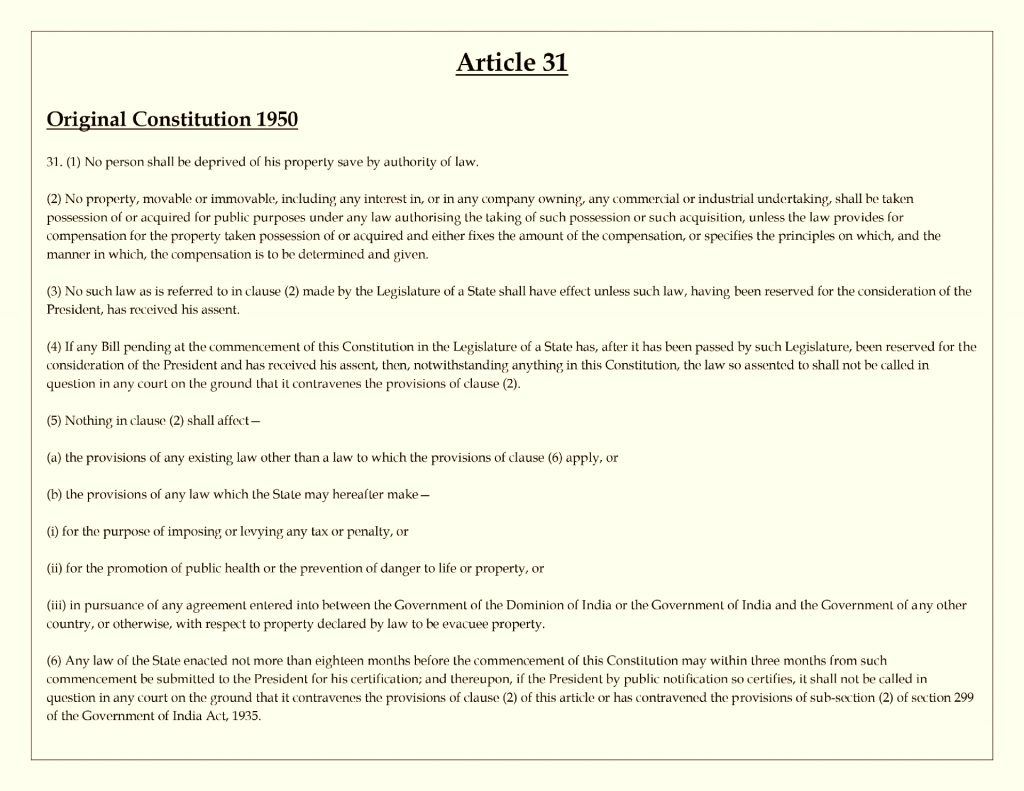
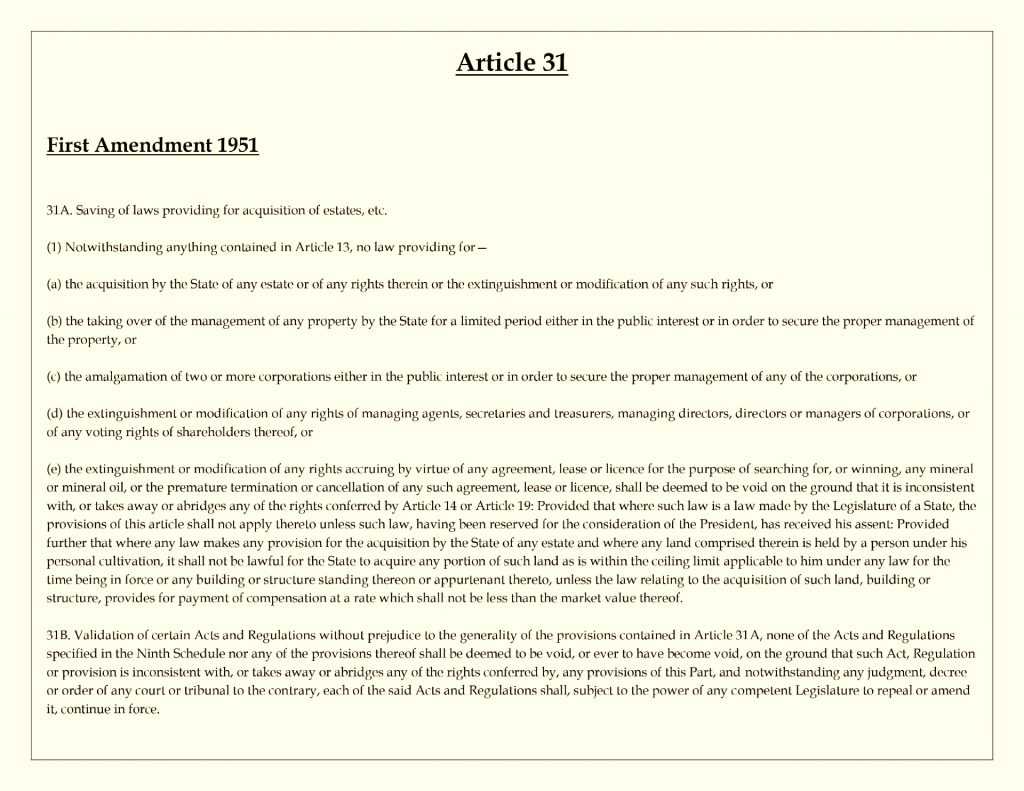
If the exposition of his repressive and absolutist vision for the new republic needed further elaboration, Nehru proceeded to delineate it while giving the press a piece of his mind. ‘I know something of the press, and I have been connected with the Press too somewhat, and can understand their apprehensions,’ he insisted.
Yet I say that what they have said is entirely unfair to this Government. And I say that the Press, if it wants that freedom— which it ought to have—must also have some balance of mind which it seldom possesses. They cannot have it both ways—no balance and freedom. Every freedom in the world is limited.
As for why the government had included relations with foreign states as a ground to restrict fundamental rights, Nehru’s reasoning was equally outlandish. He only wanted to cover incitement to war and defamation of foreign heads of state, he claimed, but it was phrased to say friendly relations with foreign states because it was a friendly way of saying this and nice from the literary point of view. Exactly what amounted to a danger to friendly relations with foreign states, as usual, Nehru declined to specify. None bothered to point out that constitutional provisions were unlikely to be judged on literary merit. But the grim prognosis of the heavy hand of government and the limits of freedom evoked lusty cheers from Congress MPs.
The prime minister mounted a spirited defence of the amendment to Article 15, which he contended, had been necessitated by the events in Madras. ‘The argument of the Courts was valid from one point of view,’ he contended, ‘namely that communities as such could not be discriminated against. But for a variety of historical reasons, all manner of socially, educationally and economically backward classes existed and in order to encourage their progress ‘something special’ had to be done for them.’
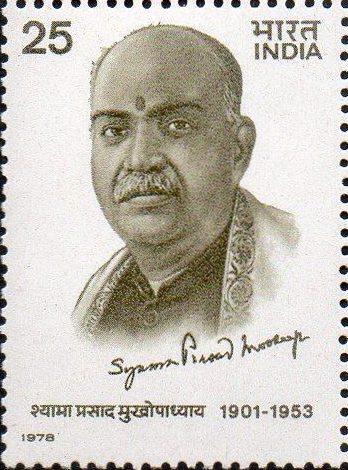
Syama Prasad Mookerjee, 1978 stamp of India
‘Some apprehensions had been expressed that this amendment might be used to perpetuate class discrimination,’ reported an eyewitness, ‘but Mr Nehru assured the House, this power would not be misused.’ Some critics such as K.T. Shah and H.V. Kamath had pointed out that 80 percent of the people were backward in those terms, regardless of their caste or community. Any special provisions should thus cater for all of them. ‘It is no good saying that,’ Nehru replied disdainfully.
Much of this was, of course, a reiteration of what the Prime Minister had previously argued—an elaboration of his views and an outline of his perspective on democracy. They were the standard tropes: the Constitution needed to be flexible and follow the curves of life; it could not be allowed to ossify around ancient slogans from the French Revolution and archaic ideas about fundamental rights; the press and his critics were out of control and needed to be disciplined; the Constitution could not be allowed to come in the way of the Congress manifesto; the judiciary was overreaching itself by preventing the government from ignoring the Constitution and doing whatever it wanted to, which of course was obviously for the security of the nation. It was the most articulate depiction of the premises that underpinned Nehru’s conception of the democratic state, premises that progressively became principles of the new post-colonial order.
Opposition leaders K.T. Shah and Naziruddin Ahmed, who were the next to speak, both ripped into Nehru’s contention. ‘Prof. K.T. Shah threw ridicule on this (the PM’s) argument by stating that the Constitution already made adequate provision for grave emergencies,’ reported a newspaper. ‘By a declaration of emergency, the President could suspend the entire Constitution and Government would be armed with unfettered power to take any measure that might be necessary.’ Naziruddin Ahmed maintained that if any laws had been invalidated,
[T]he fault lay not with the Courts, which had interpreted the Constitution correctly, but with the Government, who had failed to adapt such laws as was enjoined upon them by Article 372 of the Constitution . . . (much) as the British Government had adapted a whole series of enactments to the 1935 Act by a single consolidated measure.
The prime minister mounted a spirited defence of the amendment to Article 15, which he contended, had been necessitated by the events in Madras. ‘The argument of the Courts was valid from one point of view,’ he contended, ‘namely that communities as such could not be discriminated against. But for a variety of historical reasons, all manner of socially, educationally and economically backward classes existed and in order to encourage their progress ‘something special’ had to be done for them.’
‘Some apprehensions had been expressed that this amendment might be used to perpetuate class discrimination,’ reported an eyewitness, ‘but Mr Nehru assured the House, this power would not be misused.’ Some critics such as K.T. Shah and H.V. Kamath had pointed out that 80 percent of the people were backward in those terms, regardless of their caste or community. Any special provisions should thus cater for all of them. ‘It is no good saying that,’ Nehru replied disdainfully.
The gods now decided it was their turn to communicate their displeasure. Claps of thunder rolled across the sky. As Naziruddin Ahmed savaged the amending bill, a sudden thunderstorm broke over the national capital. ‘The gale and accompanying thunder showers came upon New Delhi so suddenly,’ reported the Times of India, that even before windows and skylights could be closed, many MPs on the Congress benches were drenched in the rain. On a more portentous note, power went out and the lighting inside Parliament failed, plunging the chamber into gloom.
The darkness was an unmistakable omen for the new republic, a moment of delicious irony. ‘Freedom of Speech is being taken away,’ remarked H.V. Kamath to general guffaws, ‘and there is a storm over it.’
Parliamentary encounter V: No holds barred
As the debate over taking the bill into consideration played out over 30 and 31 May, Parliament witnessed a fierce war of words on the subject as a spirited Opposition continued to confront the government. ‘As an obvious result of yesterday’s party whip, Congress members abandoned all criticism in the House and this only brought into sharp relief whatever opposition came from independent members,’ noted The Statesman. Having weathered tremendous criticism, several proponents of the amendment were pressed into service to give speeches supporting the government’s stand. Yet, even here, support was either lukewarm or often driven by ulterior motives or general frustration.
Reverend Jerome D’Souza, Congressman and Jesuit priest, was enthusiastic about the restoration of the Madras Communal GO because it was impossible to overlook the fact of backwardness, but he was more concerned with extending caste-based reservations for Christians so that socially backward classes could freely convert to Christianity without losing their backward status. He wanted race and culture as well as caste and community to be recognized to determine such backwardness, but insisted that religious differences should be ignored, presaging the modern demand for recognition of Schedule Caste and Backward Class Christians. As for freedom of speech as given and practised in England, he professed his condescending belief that since Indians did not possess the ‘phlegmatic’ English character distinguished by its stolidity and balance, it was necessary to restrain the organs of public opinion. The statement was greeted by widespread cheering across the treasury benches.
The famous Anglo-Indian educationist Frank Anthony, venting his frustration over the conundrum the bill represented, declared that he was not ‘prepared to accept the argument that these amendments are only an amplification, a clarification . . . They are a revolutionary, radical change in the original Article 19(2).’ ‘The only way to stop the inevitable, ultimate dictatorship, communist dictatorship is a dictatorship of Jawaharlal Nehru,’ he lamented. ‘But because I believe that a dictatorship today is the only way to prevent a later dictatorship, I am prepared to give blanket powers to Jawaharlal Nehru. That is my only reason for supporting these amendments completely.’
Our leaders are incapable of thinking and practising in terms of democracy,’ he continued with his complaint. ‘The British occupation taught us . . . respect for the forms and trappings of democracy but the spirit and content of democracy have escaped the people and they have escaped our leaders . . . If the Constitution is largely dead, if it is largely still-born, why worry about making an excision?
On the Opposition side, the charge was led by Syama Prasad Mookerjee and Acharya Kripalani.
Mookerjee reminded the House that they had deliberately chosen a written Constitution incorporating a chapter on fundamental rights. They could well have decided not to create a chapter on fundamental rights in writing, but having done so, they necessarily had to admit the corollary that their powers to legislate on such matters were limited by the Constitution they themselves had created. Fundamental rights ‘were so many checks on the hasty and tyrannical action of the majority and served to protect the liberty of individuals and minorities,’ he stressed. ‘And if fundamental rights were enumerated in writing, that was in order to withdraw them from the arena of political controversy.’ ‘You cannot pass or amend a Constitution to fight with ghosts,’ he warned Nehru, likening him to the Prince of Denmark fighting imaginary troubles in Shakespeare’s Hamlet.
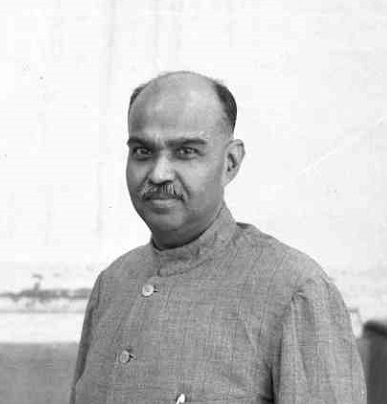
Syama Prasad Mookerjee
‘[Fundamental rights] were so many checks on the hasty and tyrannical action of the majority and served to protect the liberty of individuals and minorities.’ —Syama Prasad Mookerjee
‘You cannot pass or amend a Constitution to fight with ghosts.’ —Syama Prasad Mookerjee to Nehru
In spite of the opponents of the bill being in a minority, Mookerjee argued vehemently against the revalidation of repressive laws originally created to stifle Indian freedom under colonial rule, warning that they were ‘sounding the death-knell of democracy’. ‘We are giving more powers to Parliament to enact more laws restricting freedom,’ he censured his colleagues. ‘I submit that this is a completely wrong approach to the problem.’ ‘But in any case,’ he remonstrated with the government, ‘the power which you are now taking is not power which is necessary for any emergency that has arisen in the country, but for perpetuating certain lawless laws which our British masters had forged for the purpose of curbing freedom in India. That is what we are doing.’
‘Let me exhort and conjure you never to suffer an invasion of your political constitution, however minute the instance may appear, to pass by without a determined persevering resistance,’ he fervently entreated the House, quoting the Letters of Junius, a tranche of open letters written by an anonymous eighteenth century British polemicist critical of King George III. ‘They soon accumulate and constitute law. What yesterday was fact, today is doctrine.’
Acharya Kripalani, veteran Gandhian, erstwhile Congress president and a leading light of the struggle for independence, was vitriolic in upbraiding the government. The country was pledged to zamindari abolition, he argued, and the population’s views on the subject were well known. It was perfectly reasonable to change the Constitution to effect this, ‘but the country was also solemnly pledged to the freedom of speech and expression, especially in light of the restrictions imposed on these freedoms by an alien government. Yet these freedoms were now to be abridged.’ Public order and incitement to offence were undefinable terms, the Acharya opined. Satyagraha was an offence, all processions and demonstrations disturbed public order. Were all these to be stopped by using the might of the state against its own citizens?
The country was pledged to zamindari abolition, he [Acharya Kripalani] argued, and the population’s views on the subject were well known. It was perfectly reasonable to change the Constitution to effect this, ‘but the country was also solemnly pledged to the freedom of speech and expression, especially in light of the restrictions imposed on these freedoms by an alien government. Yet these freedoms were now to be abridged.’ Public order and incitement to offence were undefinable terms, the Acharya opined. Satyagraha was an offence, all processions and demonstrations disturbed public order. Were all these to be stopped by using the might of the state against its own citizens?
There were no replies. Kripalani, one of Gandhi’s most ardent disciples, spoke slowly and with a bite to his voice, relishing the opportunity to take his former party apart. Sidelined, ignored and humiliated by his one-time colleagues, he now laid into them with bitter acerbity. The chamber, which had emptied out as Congress leaders dutifully extolled the virtues of the amendment, rapidly began to fill as Kripalani continued. ‘It is superfluous to speak at this stage. Government seem to have made up their mind and they have a solid majority behind them; whatever is proposed will be carried out,’ he acknowledged with unsentimental frankness. ‘But sometimes, it becomes one’s duty to raise a voice of protest when things that we never imagined before are done.’
‘We are accused of being idol worshippers,’ he claimed. ‘By whom are we accused? I am sure the greatest beneficiary of this idol worship is our Prime Minister and also, may I add, his government. But for this idol worship this government would have fallen at least twenty times during the course of the last three years.’ ‘I know from experience that when people who are weak are given power, they use their power to their own injury,’ he apprised the prime minister, his voice gleaming with glacial sarcasm.
A government that cannot dismiss a peon in office wants to clothe itself with extraordinary powers! I submit, these extraordinary powers will be used to your injury; and who will use them? It will be they that will come after you. You are not going to be eternal. No government is going to be eternal . . . More power will only injure you. So please be satisfied with limited power, because your capacity is very limited indeed.
Meanwhile, outside Parliament, political observers, commentators and ordinary citizens alike continued to fulminate against the government and the prime minister. ‘Mr Nehru’s apologia for the Constitution Amendment Bill as it emerged from the Select Committee fails to convince,’ wrote the Times of India, ‘ . . . the prime minister urged that a Constitution has to be flexible and move with and adapt itself to the curves of life. If Governmental reactions to the Constitution could be traced in a graph, they would be more curvaceous than a scenic railway.’ ‘We might be living in the arid days of the tired thirties,’ it snidely remarked, ‘when foreign bureaucrats spoke thus to the representatives of the people.’
Another commentator tartly observed:
How can we have a straight, stiff, stable constitution, eternally hugging the dead distant slogans of obsolete revolutions—Liberty, Equality, Fraternity, Justice—the crude claptrap with which politicians create imaginary utopias? . . . It is good to be reminded now and then in the midst of canting moral and political platitudes that our life and the Constitution which moulds it are of such insubstantial and delusive stuff.
‘Though in the interests of the Fundamental Rights, the Constitution itself cannot be taken as sacrosanct,’ reasoned an angry citizen in a letter to the newspaper, ‘legislation by a constant clash with the Constitution should not render it chimerical by passing amendments to suit the purposes of the administration. Any attempt to recast the Constitution with the needs of the Government would be a mockery of democracy.’
In Lucknow, the socialist leader Jayaprakash Narayan, who had spent much of the year targeting the Government of India for its dictatorial tendencies and holding Nehru personally responsible for them, gave a long statement outlining his views:
It is a great tragedy that in a single-party Parliament the ruling party should take advantage of its majority to tamper even with Fundamental Rights. The very purpose of defining the Fundamental Rights in the Constitution is to place them beyond the interference of parliamentary majorities. Pandit Nehru’s repeated reference to the security of the State was itself a pointer to a grave danger that has been created for the future of Indian democracy. Except those in power, no one else in the country seems to be aware of any threat to the security of the State and yet these crippling amendments are sought to be made in the name of this danger.
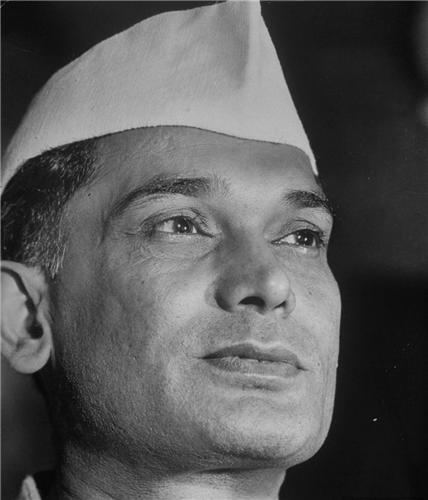
Jayaprakash Narayan
Inside Parliament, however, an unruffled Prime Minister Nehru continued to rail against the press, its descent into ‘obscenity and vulgarity applied to politics’ and ‘the whole nature of the development of mechanical civilisation’ due to which the mind of the people was becoming mechanized. He was ashamed to see the cartoons that were printed in the newspapers, he denounced their degradation of public life, and fretted about the effects of such ‘freedom of speech’ on the morale of poor villagers and soldiers. He even raged about the low quality of human beings in India. He was thinking neither of the press nor of the upcoming election when he brought this amendment he piously affirmed, and repeatedly asked his colleagues to trust his words.
“The very purpose of defining the Fundamental Rights in the Constitution is to place them beyond the interference of parliamentary majorities.” —Jayaprakash Narayan
Given his own views as previously expressed both in his private correspondence and in his public statements, many of these pious affirmations were little short of outright lies. Neither Nehru nor his colleagues cared. Such moral edicts had already been consumed in the fiery birth of the postcolonial order.
On 31 May 1951, at 2 p.m., the Speaker called for a division on the motion for Parliament to take the bill into consideration. With 246 ayes to fourteen noes, the motion was passed. Twenty-nine members abstained. The announcement of the result was greeted with loud cheers. ‘Big Majority for Nehru Motion,’ read headlines the next morning. The final, decisive phase of the parliamentary battle had begun.
Parliamentary encounter VI: The guillotine is applied
Reporting on the terminal debate on the amendment, one prominent newspaper wrote, ‘The Bill will be taken up for detailed consideration for the next two days and the guillotine will be applied at 1 p.m. on Saturday.’ It was a decidedly apt turn of phrase. For what was happening, as the liberal MP Hriday Nath Kunzru frequently and persistently proclaimed in Parliament, was nothing short of an amputation of some of the most vital fundamental rights provisions in the Constitution, the same ones that Prime Minister Nehru openly derided as ossified, archaic remnants of the ideas that fired the French and American Revolutions. The right to freedom of speech and the right to property were effectively being repealed.
On the evening of 31 May, Prof. K.K. Bhattacharya, Congress MP from Uttar Pradesh, wrote to Nehru seeking a free vote on the bill. ‘If you do not give me this freedom,’ he informed the prime minister, ‘it will be my painful duty to leave the Congress Party in Parliament so as to be free to vote in accordance with the dictates of my conscience.’ Nehru refused, and as Parliament convened on Friday, 1 June, Bhattacharya resigned from the Congress party and joined the ranks of the amendment’s opponents. Nonetheless, even with this late defection, Opposition leaders knew that there was little they could do: their loss was already preordained. Nothing they said, nothing they did could alter the unshakeable majority the Congress commanded. Still, they decided to fight to the last man. And the last two days witnessed fearsome verbal combat.
As each clause of the Constitution (First Amendment) Bill was taken up for discussion over 1 and 2 June, Opposition figures moved dozens of amendments to each clause. In the amendment to Article 15, H.V. Kamath attempted to add a proviso that special provisions for backward classes would not impose unreasonable restrictions upon the right to equality guaranteed to all citizens. Congress mutineer Shibban Lal Saksena pressed to include the word ‘economically’ in the description of ‘socially and educationally backward classes’. ‘If the amendment is allowed to pass in its present form,’ he averred, ‘it will mean that any class which has entrenched itself in power may use this clause to advance its own particular class’. Congress members such as M.A. Ayyangar from Madras remained unyielding in their claim that after the Scheduled Castes and Tribes, backward classes must be the first charge on the attention of the state.
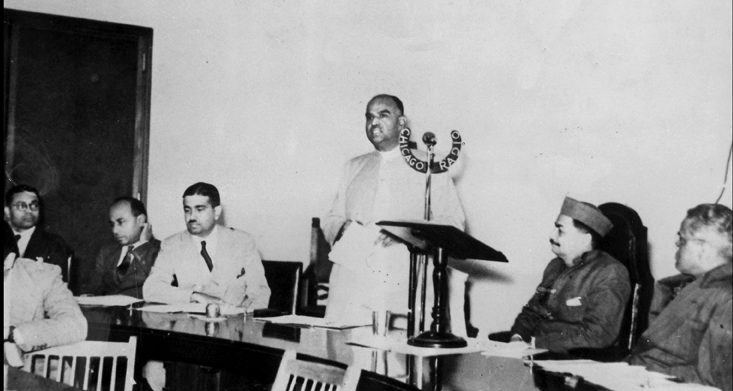
Syama Prasad Mookerjee
When the amendments to Article 19 were taken up for discussion, Syama Prasad Mookerjee forcefully demanded that if the freedom of speech had to be curtailed, then the amendment should provide for such power to be vested solely in Parliament and not in the state legislatures to achieve uniformity across the country and minimize the chances of misuse. On this issue, Mookerjee traded lengthy, heated arguments with Home Minister C. Rajagopalachari and Law Minister B.R. Ambedkar. In impassioned, animated exchanges, both sides pointedly accused each other of obstinacy and irresponsibility. Prime Minister Nehru was charged with suppressing news from China that was critical of the communist regime, to which he replied that the news of communist atrocities in China and Tibet was grossly exaggerated.
On the amendments to Article 31, Naziruddin Ahmed, Syamnandan Sahay and Shibban Lal Saksena again took the lead in criticizing the government. The new Article 31B, creating the Ninth Schedule, was severely criticized, and the government were accused of ‘drifting away from a policy of respect for private property’ and establishing a terrible precedent. In an ultimate appeal, H.N. Kunzru again warned of the dangers of the amendment: the revalidation of sedition and revival of censorship.
Yet, argue as they might, the bill’s opponents were only succeeding in delaying the inevitable. None of their amendments to the bill were accepted. In vote after vote, when the House divided, Opposition amendments were voted down and the government’s version of the bill carried through with large majorities. ‘There was fearful slaughter of over a hundred non-official amendments of varying importance,’ noted press reports and only three changes were accepted: two verbal clarifications to 19(2) and 31A and the addition of the Hyderabad (Abolition of Jagirs) Regulation in the Ninth Schedule. Even the most controversial and emotionally charged clause related to freedom of speech and expression was carried by an overwhelming majority of 228 votes to nineteen. Most of the journalist members abstained. All Opposition amendments were voted down, just as they were when changes to Article 15 and Article 31 were considered.
As the debate neared its conclusion, tempers within the chamber ran high. There were tempestuous exchanges between Syama Prasad Mookerjee and H.V. Kamath on one side and Speaker G.V. Mavalankar and Law Minister B.R. Ambedkar on the other over voting procedures on amendments. The doughty old socialist Shibban Lal Saksena again requested the prime minister to take the House into confidence and explain the grave difficulties that had compelled him to curtail fundamental rights and resurrect sedition as a major crime. ‘It is shameful for all of us to resurrect all such obnoxious laws by the back-door,’ he bewailed. ‘I am very sorry that this Bill is being passed by this House. We cannot help it but certainly we can record our protest against the enactment of this measure.’
Congress support for the bill remained untempered. Joachim Alva, Tribhuvan Narayan Singh, Renuka Ray, Seth Govind Das and Mohanlal Gautam spoke extensively on the usefulness of the bill as the clock wound down towards 6 p.m. Drawing the curtains on the case for the Opposition, Mookerjee castigated Parliament for failing to establish a healthy convention by refusing to elicit public opinion and giving retrospective effect to constitutional changes. He described the new amended Article 31 and the Ninth Schedule as a ‘constitutional monstrosity’ and accused the prime minister of deliberately curbing the rights of the citizens without giving adequate reasons.
‘The answer to popular discontent is not by passing repressive measures,’ he pleaded with Nehru.
I would therefore appeal to the Prime Minister even at this stage—of course you have got your majority; you will carry this Bill through; you carry it through—but in giving effect to it you must not be guided merely by a sense of intoxication of the power that is in your hands because you have 240 supporters inside the House. Outside the House, there are millions who are against you and you will have to remember how to placate them properly . . .
Several days of bruising debates and devastating criticism had got to Nehru—recalling the debate, he would say, ‘Listening to constant accusations and denunciations was too much for my patience.’ ‘I say this opposition is not a true opposition, not a faithful opposition, not a loyal opposition. I say it deliberately,’ an infuriated prime minister responded. ‘Yours is not a true Bill,’ came Mookerjee’s sharp retort, further stoking Nehru’s temper. The prime minister and the leader of Opposition now hurled insults across the floor of the House.
Nehru, shaking his fists in fury, charged Mookerjee with making false statements and scandalous speeches. ‘Because your intolerance is scandalous,’ came Mookerjee’s riposte. ‘It has become the fashion in this country for some people to go about in the name of nationalism and in the name of liberty to preach the narrowest doctrines of communalism,’ growled Nehru. ‘You are an arch-communalist, responsible for the partition of this country,’ replied Mookerjee.
Writing in the Times of India the next morning, a reporter described the verbal duel as ‘an intemperate and impassioned slanging match between the prime minister and Dr. Syama Prasad Mookerjee.’ Parliamentarians sat glued to their seats as two of India’s finest orators traded barbs across the chamber. Both Nehru and Mookerjee declared that the other was going to hear many truths before the debate was finished. Tempers frayed and passions were aroused. ‘For ten minutes,’ an eyewitness observed, ‘the chamber was treated to the furious political oratory of the hustings with its challenges and replies.’
Writing in the Times of India the next morning, a reporter described the verbal duel as ‘an intemperate and impassioned slanging match between the prime minister and Dr. Syama Prasad Mookerjee.’ Parliamentarians sat glued to their seats as two of India’s finest orators traded barbs across the chamber. Both Nehru and Mookerjee declared that the other was going to hear many truths before the debate was finished. Tempers frayed and passions were aroused. ‘For ten minutes,’ an eyewitness observed, ‘the chamber was treated to the furious political oratory of the hustings with its challenges and replies.’
‘We here have had to put up with much from a few Members in this House who have challenged . . .’ seethed Nehru. Even before he could finish, Mookerjee cut in, ‘This is dictatorship and not democracy.’ When an anxious and exasperated Govind Malviya—son of the Congress stalwart and educationist Madan Mohan Malviya—complained about the constant interruptions of the prime minister’s speech, Nehru sneered: ‘I have invited them . . . I only wanted to see how much restraint Dr. Mookerjee has . . .’ ‘What restraint have you shown?’ Mookerjee snapped back, ‘what restraint have you shown?’
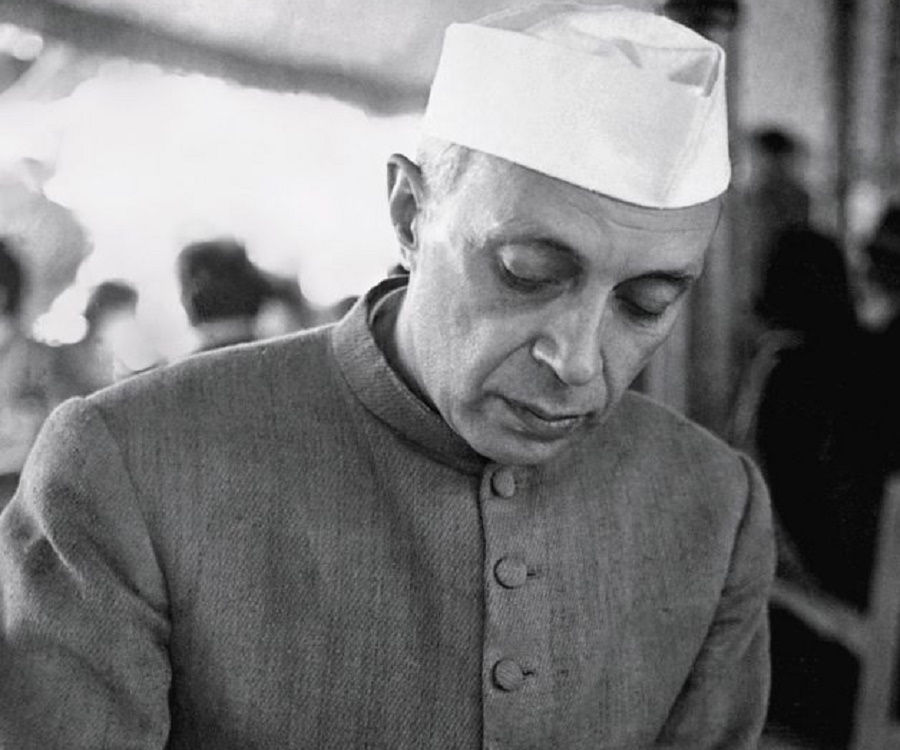
Pandit Jawaharlal Nehru
In the heat of the moment, Prime Minister Nehru challenged his opponents to combat, ‘combat everywhere, intellectually or any other kind of combat on this issue and every other issue’. ‘It is we who have brought about these major changes,’ he thundered:
[A]nd not these petty critics of the Government and it is we who are going to bring about major changes in this country. We are not going to allow petty critics and others to stop changes. They advance arguments which might have had some relevance some hundreds of years ago but which have no relevance now.
At 6.40 p.m., the guillotine was finally applied and the emotionally charged and bitterly acrimonious debate came to an end—a stormy conclusion to a debate described by a major newspaper as ‘the lowest level of parliamentary dignity witnessed this session’. The Speaker rang the bell for the House to divide. Opposition figures S.P. Mookerjee, H.N. Kunzru, Naziruddin Ahmed, Acharya Kripalani, Ramnarain Singh, K.T. Shah, Hussain Imam and Sardar Hukam Singh were joined in the noes lobby by conscientious Congress rebels H.V. Kamath, K.K. Bhattacharya, Sarangadhar Das, Shibban Lal Saksena, Damodar Swarup Seth and Sucheta Kripalani. Another prominent face among them was the tribal leader Jaipal Singh, the man who had captained the Indian hockey team to a gold medal in the 1928 Olympics.
The final count was taken. There were 228 ayes, twenty noes. Close to fifty members had abstained. ‘The motion is adopted by a majority of the total Membership of the House and by a majority of not less than two-thirds of the Members present and voting,’ announced the Deputy Speaker solemnly. ‘The Constitution (First Amendment) Bill, as amended, is passed.’ Indian democracy, dubbed as top dressing on undemocratic soil even at the moment of its birth, would never be the same again.
This excerpt has been carried courtesy the permission of Tripurdaman Singh. You can buy Sixteen Stormy Days: The Story of the First Amendment of the Constitution of India here.
ARCHIVE
[1]
Gandhi’s ideas on caste and untouchability have created much misunderstanding in scholarly circles. Gandhi has been attacked for ambiguity and inconsistency on this issue and accused of excessive deference to Hindu orthodoxy. Critics have focused on Gandhi’s alleged ‘specious’ distinction between varnashram dharma and the caste system. Others, sympathetic interpreters, see Gandhi undergoing a rational evolution, ranging from an all out orthodox stance in the early years to a liberal one by the 1930s. Such interpretations reflect an oversimplified understanding of a complex reality. This paper examines the different positions of attack or defense of Gandhi’s treatment of the question of caste and untouchability, an issue to which Gandhi devoted a large amount of time and energy.
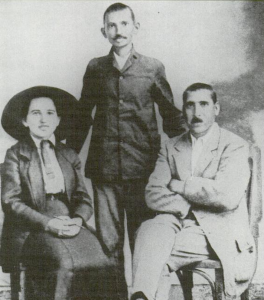
Gandhi in South Africa
The removal of untouchability was one of Gandhi’s central concerns. In both words and actions, Gandhi attacked untouchability in ways that were radical for a ‘caste Hindu’. Despite being a ‘caste Hindu’ himself, Gandhi identified himself with the ‘Untouchables’. He said on 2nd February 1934, “as a savarna Hindu, when I see that there are some Hindus called avarnas, it offends my sense of justice and truth […]” and “if I discover that Hindu shastras really countenance untouchability as it is seen today, I will renounce and denounce Hinduism.” Writing in Young India in April 1921, Gandhi boldly described the practice of “untouchability” as “a blot on Hinduism” and characterised it as an excrescence. As early as 3rd May 1915, he had said, “if it were proved to me that this is an essential part of Hinduism, I for one would declare myself an open rebel against Hinduism itself.” According to him, “there was nothing so bad” as the practice of untouchability in Hinduism “in all the world.” “This religion,” he said in 1917, “if it can be called such, stinks in my nostrils. This certainly cannot be the Hindu religion.” These were strong words, but the passion behind them sprang from Gandhi’s soul’s agony. “And yet,” Gandhi wrote in 1933, “I cannot leave religion and therefore Hinduism. My life would be a burden to me, if Hinduism failed me. Take it away and nothing remains for me.” But Gandhi was “eager to live and commit untouchability to the flames.” To live with untouchability was “like a cup of poison” to him.
Eleanor Zelliot states that Gandhi “is said to have spoken and written more on untouchability than on any other subject.” In all historical fairness, according to D. R. Nagaraj, “it must be admitted that it was [Gandhi] who made untouchability one of the crucial questions of Indian politics.”
Gandhi’s beliefs were backed by the force of a lifetime of action. At age twelve, he had disregarded his mother’s warning not to touch Uka, an ‘Untouchable’, who came to clean latrines in his house. In South Africa (1893-1914), persons of all castes, communities, religions and races stayed in his house as members of his family. When Kasturba showed reluctance to clean the urine pot of one such member of his “family,” he had threatened to evict her from the house. In 1915, while in India, when he accepted the first ‘Untouchable’ family in the Kocharb Ashram and adopted Lakshmi, an ‘Untouchable’, as a daughter, the Vaishnavs of Ahmedabad stopped all monetary help to the ashram, following which he decided to move to the ‘Untouchables’’ quarters. Eleanor Zelliot states that Gandhi “is said to have spoken and written more on untouchability than on any other subject.” In all historical fairness, according to D. R. Nagaraj, “it must be admitted that it was [Gandhi] who made untouchability one of the crucial questions of Indian politics.” Gandhi publicly put the ‘abolition’ of untouchability as the essential prerequisite for India’s true independence.
According to him (Gandhi), “there was nothing so bad” as the practice of untouchability in Hinduism “in all the world.” “This religion,” he said in 1917, “if it can be called such, stinks in my nostrils. This certainly cannot be the Hindu religion.” These were strong words, but the passion behind them sprang from Gandhi’s soul’s agony. “And yet,” Gandhi wrote in 1933, “I cannot leave religion and therefore Hinduism. My life would be a burden to me, if Hinduism failed me. Take it away and nothing remains for me.” But Gandhi was “eager to live and commit untouchability to the flames.”
Yet, one of the charges levelled against Gandhi is that he acted as an apologist for the caste system. The origins of this critique can be located in B. R. Ambedkar’s 1945 publication, What Congress and Gandhi Have Done to the Untouchables. It is a strong attack on Gandhi and the national movement led by him. This interpretation is not only a firm rejection of the Gandhian model of tackling the problem of the ‘Untouchables’, but has shaped the contours of themes and patterns of the critics of Gandhi, who make Gandhi’s conception of untouchability and his caste reform programmes appear threatening.
[2]
Writings of Ambedkar create the impression that Gandhi was an out and out casteist, “opposed to all those, who [were] out to destroy the caste system.” “Mr. Gandhi’s views on the caste system,” asserts Ambedkar, “were fully elaborated by him in 1921-22 in a Gujarati journal called Navajivan.” Gandhi believed, states Ambedkar, “that if Hindu society has been able to stand it is because it is founded on the caste system. The seeds of swaraj are to be found in the caste system […]. A community, which can create the caste system, must be said to possess unique powers of organisation […]. It can work as an electorate for a representative body. Caste can perform judicial functions by electing persons to act as judges to decide disputes among members of the same caste […]. I believe that inter-dining or inter-marriage [is] not necessary for promoting national unity […]. To destroy caste system and adopt Western European social system means that Hindus must give up the principle of hereditary occupation, which is the soul of the caste system. Hereditary principle is an eternal principle. To change it is to create disorder.” Ambedkar termed Gandhi a casteist based on such published ideas. He preferred to disagree with Gandhi. Ambedkar said: “There cannot be a more degrading system of social organisation than the chaturvarnya. It is the system that deadens, paralyses and cripples the people from helpful activity.” Ambedkar envisioned nothing short of the destruction of the caste system or the chaturvarnya system.
Other critics follow suit. Kancha Illaiah writes Gandhi as wanting to “build a modern consent system for the continued maintenance of Brahminical hegemony […].” According to T. K. N. Unnithan, this was evident in “Gandhi’s defense of the caste system as an essential form of social organisation” giving “the impression that he was orthodox in this respect.” Caste to Gandhi, adds Unnithan, was “an extension of the principle of family, as both governed by blood and heredity.” Gandhi held, argues Dhananjay Keer, “that [caste] does attach to birth. A man cannot change his varna by choice. Not to abide by one’s varna is to disregard the laws of heredity.” Gandhi thus, emphasises Christophe Jaffrelot, highlighted “the necessity of maintaining one’s rank […] as an element of natural regulation.” Perry Anderson moreover adds that to Gandhi “there was no need to adjust the balance in this life.” Gandhi, says Jaffrelot, appreciated “the distribution of men in different castes as a factor of socio-economic complementarity and social harmony,” which “was essential for […] progress.” Unnithan further says that for Gandhi, “varnashram dharma [satisfied] the religious, social and economic needs of a community.” Gandhi, argues Arundhati Roy, said that “the villagers managed their internal affairs through the caste system and through it they dealt with any oppression from ruling power or powers.” G. Aloysius argues that Gandhi was “obsessed with the organic nature of Hindu society based on Rigvedic Varnashrama Dharma” and “appointed himself the guardian of its integrity.”
The various interpretations argued above are a product of seeing Gandhi as an unchanging person. “It is ironic,” writes Martin Deming Lewis, that “no aspect of Gandhi’s activities for social reform has been so widely acclaimed as his efforts on behalf of the Untouchables,” and yet “one of his most bitter critics should have been a man who was himself an Untouchable, B. R. Ambedkar.” But Ambedkar rooted his understanding of Gandhian ideas through Gandhi’s statements on the caste system, on inter-caste dining and marriages from Gandhi’s early writings. The later critics, however, concentrate on Ambedkar’s works and not on original works of Gandhi. For example, in 1927 Gandhi had said to the Sri Lankans that if India could take pride “in having sent you Mahinda and the message of the Buddha to this land, it has also to accept the humiliation of having sent you the ‘curse’ of caste distinctions.” By 1930s, Gandhi was declaring that caste was “a handicap on progress” and “a social evil.” By the 1940s, it had become “an anachronism,” which “must go.” The critics see Gandhi through Ambedkar’s eyes and generally overlook the context in which Gandhi was writing about caste. Ambedkar himself falls prey to this and thus creates a repertory of casteist images on Gandhi. For instance, Braj Ranjan Mani, writes, “[Gandhi] was a Bania more Brahmanised than Brahmans; his world-view and life philosophy were moulded and shaped by the age-old Brahmanic values and way of life. […] [He] never gave up his basic belief in the Brahmanic fundamentalism which is evident from his constant evocation of varnashrama, Ramrajya and trusteeship.”
One of the charges levelled against Gandhi is that he acted as an apologist for the caste system. The origins of this critique can be located in B. R. Ambedkar’s 1945 publication, What Congress and Gandhi Have Done to the Untouchables… Other critics follow suit. Kancha Illaiah writes Gandhi as wanting to “build a modern consent system for the continued maintenance of Brahminical hegemony […].” …Gandhi thus, emphasises Christophe Jaffrelot, highlighted “the necessity of maintaining one’s rank […] as an element of natural regulation.” …Gandhi, argues Arundhati Roy, said that “the villagers managed their internal affairs through the caste system and through it they dealt with any oppression from ruling power or powers.” …The various interpretations argued above are a product of seeing Gandhi as an unchanging person… But Ambedkar rooted his understanding of Gandhian ideas through Gandhi’s statements on the caste system, on inter-caste dining and marriages from Gandhi’s early writings. The later critics, however, concentrate on Ambedkar’s works and not on original works of Gandhi.
Dennis Dalton has, however, argued that “Gandhi saw no harm in self-contradiction.” According to Gandhi, “life was a series of experiments, and any principle might change if Truth so dictated.” According to Bipan Chandra, “[Gandhi] constantly ‘experimented with truth’, and changed and developed his understanding of society, politics and social change.” On 29th April 1933, Gandhi said: “In my search after Truth, I have discarded many ideas and learnt many new things […] and, therefore, when anybody finds any inconsistency between any two writings of mine, if he has still faith in my sanity, he would do well to choose the later of the two on the same subject.” Gandhi also “did not see consistency as a virtue and [asserted that] all ideas were to be tested on the anvil of experience.” On the same lines Gandhi wrote on 27th August 1938: “During my student days […] I learnt a saying of Emerson’s which I never forgot. ‘Foolish consistency is the hobgoblin of little minds’, said the sage. I cannot be a little mind, for foolish consistency has never been my hobgoblin, […] my recent writings must be held as cancelling my comparatively remote sayings and doings. Though my body is deteriorating through age, no such law of deterioration, I hope, operates against wisdom which I trust is not only not deteriorating but even growing.”
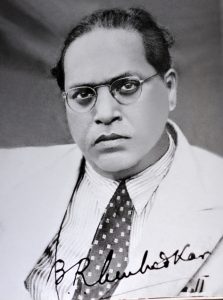
Bhimrao Ramji Ambedkar
Rajmohan Gandhi argues that before 1935, Gandhi had at times claimed that “an ideal” form of caste could be justified, while nearly always adding that “the ideal” never existed in practice, and always insisting that any notion of superiority and inferiority was utterly wrong. “The varnas were set by birth though ‘changeable’ by a person choosing another profession.” Gandhi conceded that the hereditary principle in varnashram must be considerably relaxed. As early as December 1924, he urged the ‘caste Hindus’ to realise that just as other castes had given up their occupations, just as the Brahmins had forsaken teaching and taken up other jobs, just as the Kshatriyas had willingly accepted slavery, just as the Vaishyas had given up their trade and entered other fields, similarly the ‘Untouchables’, too, had a right to give up their old occupations. In fact, he helped many ‘Untouchables’ to quit their hereditary callings, to acquire an academic education and to qualify themselves as doctors, engineers and teachers. For example, it was the policy of the Harijan Sevak Sangh, founded by Gandhi in 1932, to encourage the ‘Harijan’ students by giving them scholarships, particularly for technical and professional courses. While notwithstanding the critics’ value judgement, we have to note that while Gandhi’s basic commitment to human values, truth and non-violence remained constant, his opinions on all these and other issues underwent changes – sometimes drastic – and, invariably, in more radical directions.
Gandhi’s noble consistency was that he broke every rule of the orthodox caste system. The ‘caste Hindus’ followed the caste system with the observance of heredity in occupations and in marriage and dining with only the members of sub-caste concerned when it pertained to untouchability. A. R. Wadia says that “Gandhi in the spirit of a true reformer broke every one of these prohibitions.” Though born a Vaishya, Gandhi played the role of a Brahmin becoming a teacher of mankind. He played the role of a Kshatriya or a warrior, though of a non-violent variety. He blessed the marriage of a Brahmin lady with a Vaishya, even though that Vaishya was his son. He had no objection to dine with a Hindu, Muslim, Christian, Parsi, or an ‘Untouchable’. Gandhi was not averse to even being a sweeper.
Bhikhu Parekh adds that Gandhi’s moral theory undercut the very basis of the varna system. According to Gandhi, writes Parekh, the true Brahmins were only those who engaged in “total dedication to the service of mankind as a way of attaining moksha.” There was thus no room for a distinct varna of Brahmins in his society who were engrossed in a “pedantic study of scriptures, religious ceremonies and karma-kānda.” The separate varna of Kshatriyas disappeared as Gandhi suggested that citizens trained in the art of non-violent satyagraha should replace the violence prone police and the army. The traditional occupation of the Kshatriyas thus became the general responsibility of all. Every man became a Vaisya, since he wanted “everyone to earn his living and no one to depend on dāna or charity,” and thus the Vaisyas as a separate varna disappeared. For Gandhi, manual labour, the work of the Shudras, “was the only true form of socially acceptable productive work.” Since all citizens performed the work of Shudras, they too ceased to exist as a separate varna. Therefore, Parekh emphasises that Gandhi’s well-rounded or “fully moral man” engaged in all four activities serving his fellowmen, fighting against untruth and injustices, earning his living and engaging in manual labour. He thus belonged to all four varnas and hence to none alone. According to Gandhi, the varna system therefore no longer made sense.
Bhikhu Parekh adds that Gandhi’s moral theory undercut the very basis of the varna system. According to Gandhi, writes Parekh, the true Brahmins were only those who engaged in “total dedication to the service of mankind as a way of attaining moksha.” There was thus no room for a distinct varna of Brahmins in his society who were engrossed in a “pedantic study of scriptures, religious ceremonies and karma-kānda.”
A corollary is Anthony J. Parel’s reading of Gandhi’s conception of dharma as “duty.” Members of society in the past carried out their ordained duties as enshrined in the scriptures, and on this depended the stability of the social order. According to Parel, Gandhi’s understanding of the scriptural teaching of the caste system was of “the four castes, as sanctioned in the Rig Veda and the Gita, embodied [in] an egalitarian principle, where all the four castes were equal in dignity.” Gandhi also believed that each human being was “born” with one of the three natural qualities or gunas – sattva or the quality of causing virtue, rajas or the quality of causing passion and tamas or the quality of causing dullness. These natural qualities determined his/her natural aptitude for work. Sattva was present in those inclined towards “truth, wisdom, beauty, and goodness;” those inclined towards “action, energetic behaviour, and violence” possessed rajas; and tamas was present in those inclined towards “stupidity, gloom, and melancholy.” “A combination of natural qualities and natural aptitudes,” to Gandhi, writes Parel, “determined one’s caste, not birth or heredity.” As Gandhi put it in January 1928: “There are only four varnas, so divided on the basis of their occupational aptitudes.” It was a matter of one’s “duty” to the welfare of the community, and all callings were to be considered of equal value, whether Brahmin or Bhangi.
[3]
Gandhi’s continued belief in varna troubled Ambedkar, as he felt that the system was fundamentally opposed to democracy and could not be rationally defended. Ambedkar added that Gandhi was “preaching caste under the name of varna” in order to sustain the support of the orthodox and un-orthodox Hindus for the movement for swaraj. According to Ambedkar, Gandhi’s varna system was nothing dissimilar to the caste system of the orthodox Hindus, as Gandhi himself said, “it is based on birth.” Ambedkar states that whether “Mr. Gandhi changed over from caste system to the varna system,” it matters not, for “the idea of varna is the parent of the idea of caste,” and both “caste [and] varna […] are fundamentally opposed to democracy.” He therefore concludes that “the social ideal of Gandhism,” which is “either caste or varna, […] is not democracy.” Ambedkar further stated that under Hinduism there is a “fundamentally wrong relationship” between high-caste men and low-caste men. Without attempting to bring about any “structural” change of that wrong relationship, Gandhi, in Ambedkar’s words, was trying to present the Hindu society as a tolerable and a good religious community. The social system of the Hindus based on the caste/varna system, said Ambedkar, is what has to be changed. The Hindu society had to be transformed into a “casteless society.” To Ambedkar, “there will be outcastes as long as there are castes. Nothing can emancipate the outcaste except the destruction of the caste system.”
Other critics follow upon Ambedkar’s premise. In the contemporary period, says D. N., “it was disingenuous to suggest that it was varna that should be retained and not [caste], because what actually existed was [caste] with all its features of discrimination and untouchability.” To ask, as Gandhi did, that people should follow their traditional callings “was to condemn the Untouchables and other low castes to a life of servitude.” Gandhi, thus like an obedient “orthodox reformer,” writes Dhananjay Keer, “white-washed a dilapidated house!” Oliver Cromwell Cox concurs that Gandhi was unable to rise very far beyond the principles of impurity and its logical extreme, untouchability, and “would remove untouchability but otherwise maintain the caste system intact.” Gandhi’s suggestion that it “was necessary to improve the conditions of the Untouchables” is therefore “bogus,” says Keer, since “he believed in caste and at the same time wished to abolish untouchability!” Christophe Jaffrelot tries to explain this as a selective approach to untouchability, as Gandhi was fundamentally attached to a traditional Hindu social order. In H. N. Mukherjee’s words, Gandhi’s “fascination for varnashram concepts,” which he considered to be potentially harmonious, “weakened his championship of the Untouchables.” Judith Brown views this approach as a compromise “between the claims of orthodoxy and reform.” Arundhati Roy joins the scholars and says that “Gandhi never decisively and categorically renounced his belief in chaturvarna, the system of four varnas.” To A. R. Wadia also, the whole-hearted support that Gandhi gave to the caste system only meant that he was prepared to “give the Untouchables a place in the fourth caste of Shudras.” While Eleanor Zelliot argues that since “there [was] no fifth caste in the shastras, Untouchables [were to] be regarded as Shudras – a view acceptable to some orthodox Hindu leaders of the day.”
He (Ambedkar) therefore concludes that “the social ideal of Gandhism,” which is “either caste or varna, […] is not democracy.” Ambedkar further stated that under Hinduism there is a “fundamentally wrong relationship” between high-caste men and low-caste men. Without attempting to bring about any “structural” change of that wrong relationship, Gandhi, in Ambedkar’s words, was trying to present the Hindu society as a tolerable and a good religious community… Other critics follow upon Ambedkar’s premise.
Christophe Jaffrelot is more categorical in asserting that Gandhi wanted to “integrate” the ‘Untouchables’ in a hierarchical caste system as they “are so intimately mixed with those of the caste Hindus […] for whom they live.” G. Aloysius goes so far as to argue that Gandhi “sought to establish the [Indian] nation itself on the decadent Varna ideal,” “precisely to preserve the ascriptive division of labour in society.” Harold Coward argues that for these reasons Gandhi acted more as a fighter to preserve Hinduism and less as a reformer. Gandhi began to present himself as a committed sanatani Hindu. “Emphasising allegiance to his religion,” contends Coward, “Gandhi began to underplay his reformist goals, including the eradication of untouchability.” Even Bhikhu Parekh, who otherwise is less critical of Gandhi, states that Gandhi took a long time to acknowledge that the “roots of untouchability lay deep within the caste system;” that “he could only argue that the Untouchables should become touchables,” without ending “their lowest social and moral status.”
Critics, in general, lay emphasis on inconsistencies in Gandhi’s writings. It is, however, imperative to look at other side of Gandhi as well, so as to understand, as Anthony J. Parel asks, “why in his entire political career Gandhi did not attempt to restore the dharma of the discredited varnashram.” In fact, in July 1932, Gandhi is said to have asserted that restoring a pure varna system was like “an ant trying to lift a bag of sugar,” indicating that the varna system was impossible. Gandhi did not want to revive the institution of caste either, for in September 1934, he would argue that since everyone felt free to follow any calling “the law of varna [had] become a dead letter,” “it was [therefore] ‘an ideal dream’ and a ‘childish folly’ to attempt to revive the varna system.” Moreover, Gandhi, as early as 1934, had declared that the “caste ideal,” as envisaged in the scriptures, and as it was practiced today, was “a ‘hideous travesty’ of the original idea, [and] it existed only in distorted form.”
By 1935, when Ambedkar was criticising Gandhi’s views on caste and untouchability, Gandhi’s final position was that caste had to go. In fact, Gandhi had publicly given up defending caste even before the publication of Ambedkar’s Annihilation of Caste (1936). “Caste Has To Go” was his heading to a 16th November 1935 article in Harijan, in which Gandhi wrote, “the sooner public opinion abolishes [caste], the better.” Gandhi became more “sensitive” to the “structural roots” of caste discrimination when he was at the height of his prominence. In his 1936 debate with Ambedkar, Gandhi reiterated his rejection of caste, and said that it was “harmful both to spiritual and national growth,” and thereafter he publicly affirmed his acceptance of inter-dining and inter-marriage, which he had thus far hesitated to do, after learning of the discrimination faced personally by Ambedkar.
It is suggested by Raghavan N. Iyer that political thinkers are properly studied without reference to their personalities and practice. However, when one turns to Gandhi, one finds it particularly difficult to ignore his personality and his activities. Gandhi also very categorically said in 1932: “To understand what I say one needs to understand my conduct […].” From a very young age, Gandhi revolted against the practice of untouchability and in his whole life he did not practice untouchability in any form. Gandhi ate with people of different faiths as well as castes including the ‘Untouchables’. Not only did he allow his son Ramdas to marry someone who was from a different sub-caste but also allowed his other son Devadas to marry a girl who was from another varna altogether. He also married off his adopted daughter Lakshmi, who was an ‘Untouchable’, to a Brahmin boy in 1933.
It is suggested by Raghavan N. Iyer that political thinkers are properly studied without reference to their personalities and practice. However, when one turns to Gandhi, one finds it particularly difficult to ignore his personality and his activities. Gandhi also very categorically said in 1932: “To understand what I say one needs to understand my conduct […].” …It seems difficult to accept that a man, who violated caste restrictions throughout his life and who built ashrams where no caste restriction was observed, held the caste system or varnashram dharma as an ideal form to organise human society. Gandhi himself rejected such a possibility when he said on 24th November 1927: “I have gone no-where to defend varna dharma… ”
Gandhi writes in his autobiography that over the last three generations, starting with his grandfather, his family had not been pursuing their hereditary or traditional duty assigned to them according to the caste system. He himself never earned his bread and butter by following his ancestors’ calling. He let his children choose their own professions, and never pressed them to follow any pursuit prescribed for their caste. Moreover, he tried to master many activities prohibited for his caste, such as work of a scavenger, a barber, a washerman, a cobbler, a tiller and a tailor. It is to be noted that none of Gandhi’s ashrams were built on the basic principle of caste system or varnashram dharma: In the ashram, from the beginning, “it has been our rule not to observe the varna vyavastha […].” None of the caste restrictions were observed in his ashram. Gandhi did “unclean” work himself and forced it on his family, and he accepted ‘Untouchables’ in his social and domestic circles on equal terms. He made his family and associates break pollution taboos and engage in labour that was considered very profoundly ‘polluted’: Shoemaking, leatherwork, cleaning of toilets. In fact, cleaning toilets – work profoundly polluting to the ‘caste Hindus’ – persisted all his life.
It seems difficult to accept that a man, who violated caste restrictions throughout his life and who built ashrams where no caste restriction was observed, held the caste system or varnashram dharma as an ideal form to organise human society. Gandhi himself rejected such a possibility when he said on 24th November 1927: “I have gone no-where to defend varna dharma. I am the author of a Congress resolution for propagation of khadi, establishment of Hindu-Muslim unity, and the removal of ‘untouchability’, the three pillars of swaraj. But I have never placed establishment of varnashram dharma as the fourth pillar. You cannot, therefore, accuse me of placing a wrong emphasis on varnashram dharma.”
The critics, while focusing on Gandhi’s writings ignore his practice in actual life, thus, reaching a conclusion that Gandhi never decisively renounced his belief in chaturvarna. Even while focusing on his writings, critics tend to rest their understanding of Gandhi’s concern with caste in literal terms. They forget that Gandhi was a politician too. The critics miss to notice the possibility of a kind of strategy in Gandhi’s defense of some aspects of the caste system. What they miss can be understood in Rajmohan Gandhi’s metaphorical explanation. He writes, “I see the varnashrama remarks as sugar-coating for [Gandhi’s] pill for caste Hindus. He wants them to swallow his reforms.” The “caste system [Gandhi] was ‘defending’ was non-existent. Attacks on his ‘defense’ by his foes of the caste system only assured caste Hindus that Gandhi was not their enemy, which he was not.” It was Gandhi’s effort to carry everyone including those he was wanting to make changes in their lives.
Initially, in the 1920s, Gandhi made the argument that untouchability and its continued existence hindered national unity and harmed the cause of Indian independence. During the Non-Co-Operation Movement, Gandhi emphasised that “the Hindus must realise that, if they wish to offer successful non-cooperation against the Government they must make ‘common cause’ with the [‘Untouchables’], even as they have made common cause with the Musalmans.” Gandhi asserted that “non-cooperation against the Government means cooperation among the governed, and if Hindus do not remove the sin of untouchability there will be no swaraj whether in one year or in one hundred years […]. Swaraj is unattainable without the removal of the sin of untouchability as it is without Hindu-Muslim unity.” However, Bhikhu Parekh contends that “the political argument made only a limited impression on the orthodox Hindus, who neither believed that the struggle for independence required the abolition of untouchability nor cared for one bought at such a heavy price.” It made no impression on the illiterate masses either, “who were more concerned with religion than with independence and considered untouchability an integral part of it.” To eradicate untouchability Gandhi, therefore, began to rely on the idiom of religion and even fell back on the teachings of social reformers whose timely reforms, in his eyes, had saved the Hindu religion from extinction. Gandhi preferred to follow the footsteps of courageous reformers in order to redefine Hinduism of his time in a manner relevant to the new yuga. According to Parekh, Gandhi was a true sanatanist. To Gandhi, “a sanātanist is one who follows the sanātana dharma. According to the Mahābhārata, it means the observance of āhimsā, satya, non-stealing, cleanliness and self-restraint. As I have been endeavouring to follow these to the best of my ability, I have not hesitated to describe myself as a sanātanist.”
Even while focusing on his writings, critics tend to rest their understanding of Gandhi’s concern with caste in literal terms. They forget that Gandhi was a politician too. The critics miss to notice the possibility of a kind of strategy in Gandhi’s defense of some aspects of the caste system. What they miss can be understood in Rajmohan Gandhi’s metaphorical explanation. He writes, “I see the varnashrama remarks as sugar-coating for [Gandhi’s] pill for caste Hindus. He wants them to swallow his reforms.” The “caste system [Gandhi] was ‘defending’ was non-existent. Attacks on his ‘defense’ by his foes of the caste system only assured caste Hindus that Gandhi was not their enemy, which he was not.” It was Gandhi’s effort to carry everyone including those he was wanting to make changes in their lives.
A corollary is Thomas Pantham’s assertion that for Gandhi “the participation of the caste Hindus was necessary both for the effectiveness of the non-violent mass political movement for freedom from colonial rule and for the success of the movement against untouchability.” After the Vaikom Satyagraha (1924), Gandhi had been feeling that he, even while fighting against untouchability, had to be seen as a protector of the ‘caste Hindus’ as well. Until about 1935, Gandhi did not share Ambedkar’s sense of urgency to extend the anti-untouchability programme into a wider public political programme that would include campaigns against caste-based discriminations on inter-dining, inter-marriages, etc. As noted by Bhikhu Parekh, Gandhi was “involved in several battles, that against untouchability being only one of them, and political exigencies inevitably dictated their order of importance.” Rajmohan Gandhi writes: “[Gandhi] would unite pro-orthodox ranks, if he had started with an attack on caste, he chose to zero in on evil none could defend.” Light was thrown on Gandhi’s thinking on caste and untouchability by Jawaharlal Nehru: “I asked [Gandhi] repeatedly: Why don’t you hit out at the caste system directly? He said that he did not believe in the caste system except in some idealised form of occupations and all that; but that the present system was thoroughly bad and must go. I am undermining it completely, he said, by my tackling untouchability […]. If untouchability goes […] the caste system goes. So I am concentrating on that […]. So he made untouchability the one thing on which he concentrated, which ultimately affected the whole caste system.”
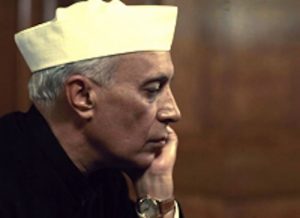
Jawaharlal Nehru
“I asked [Gandhi] repeatedly: Why don’t you hit out at the caste system directly? He said that he did not believe in the caste system except in some idealised form of occupations and all that; but that the present system was thoroughly bad and must go. I am undermining it completely, he said, by my tackling untouchability […]. If untouchability goes […] the caste system goes. So I am concentrating on that […]. So he made untouchability the one thing on which he concentrated, which ultimately affected the whole caste system.” —Jawaharlal Nehru
Gandhi’s concentration on “untouchability” made him favour abolition of caste-based discrimination more than the caste itself because for Gandhi “untouchability formed the core of the caste system.” Suhas Palshikar says that Gandhi was “right in identifying untouchability as the most abhorring expression of caste-based inequality and attendant inhumanity,” for it stood “for everything ugly in the caste system and therefore, it must go instantly.” In untouchability was rooted “caste-consciousness,” and hence its removal would “symbolically bury the caste system.” When seen in this light, argues Palshikar, how can “caste question become the core of Gandhi’s discourse [?]” There is no doubt about Gandhi’s ultimate preparedness to abolish caste,” but Gandhi would adopt a position to reform such Hindu practice from within rather than attack from outside.
(According to Suhas Palshikar) “There is no doubt about Gandhi’s ultimate preparedness to abolish caste,” but Gandhi would adopt a position to reform such Hindu practice from within rather than attack from outside.
[4]
Scholars have also added a different dimension to the analysis of Gandhi’s position on caste: The importance of its evolutionary nature. The writings of scholars on this issue range from Louis Fischer, B. R. Nanda and Thomas Pantham to Dennis Dalton. Their studies show Gandhi’s ideas on caste evolving from a simplistic understanding to a rational outlook, moving “gradually” from an orthodox stance to more liberal views, and culminating in a radical position, which can be termed as revolutionary. It is argued that initially Gandhi’s deference to Hindu orthodoxy was due to the weight of reality that compelled him to move cautiously while assessing the alignments in India. It was a tactical move.
Louis Fischer argues that for many years Gandhi “defended” caste restrictions. For example, Gandhi said in 1920, “I consider the four divisions to be fundamental, natural and essential.” He even wrote in Young India on 6th October 1921, that “Hinduism does most emphatically discourage inter-dining and inter-marriage between divisions […]. Prohibition against inter-marriage and inter-dining is ‘essential’ for the rapid evolution of the soul.” This was according to Fischer, the “orthodox” Gandhi. But by 1932, such “essentials” were “weakening Hindu society.” As Gandhi moved to a more liberal phase of his thought, asserts Fischer, he began to understand that inter-caste dining and marriages were not part of the Hindu religion from inception, and that these “crept into Hinduism when perhaps it was in its decline, and was then probably meant to be a ‘temporary’ protection against the disintegration of Hindu society. Today those two prohibitions are weakening the Hindu society.” According to Fischer, this was not Gandhi’s final position. He began to move further away from the orthodox tradition and by 1946 was declaring that “I therefore tell all boys and girls who want to marry that they cannot be married at Sevagram Ashram unless one of the parties is a ‘Harijan’.” This was Gandhi’s stance, contributing to the emergence of a “radical” Gandhi who would approve “only [inter]-caste marriages” by 1946.
Dennis Dalton’s interpretation differs somewhat in stating that the focus on evolutionary approach of Gandhi to caste projects too much orthodoxy into his earlier position, and purges his later ideas of all orthodoxy. Dalton posits that “the pace as well as the content of Gandhi’s views on caste must be seen in the context of his response to the Indian orthodoxy as well as to Western liberalism.” In 1909, in South Africa, Gandhi had publicly decried the caste system for its inequalities: “Its ‘hypocritical distinctions of high and low’ and ‘caste tyranny’, which made India turn back on truth and embrace falsehood.”
Scholars have also added a different dimension to the analysis of Gandhi’s position on caste: The importance of its evolutionary nature. The writings of scholars on this issue range from Louis Fischer, B. R. Nanda and Thomas Pantham to Dennis Dalton. Their studies show Gandhi’s ideas on caste evolving from a simplistic understanding to a rational outlook, moving “gradually” from an orthodox stance to more liberal views, and culminating in a radical position, which can be termed as revolutionary.
Shortly after he had returned to India in 1915, Gandhi was faced with the problem to counter the Western attack on caste, and also not to overawe the orthodoxy. This shaped his views on the problem in the 1920s. In the prevailing circumstances “Gandhi emphasised,” Dennis Dalton contends, “the generally beneficial aspects of caste,” and also defended it “for its wonderful powers of organisation,” while upholding “caste prohibitions on inter-dining and inter-marriage [as fostering] ‘self-control’; and [regarded] the system itself […] as a beneficial, natural institution.” A direct assault by Gandhi on caste, according to Dalton, would mean playing into the hands of Western Imperialism. The British Government criticised Gandhi for pursuing politics to serve narrow interests rather than take to social reform which would benefit millions. S. M. Michael, an English correspondent, wrote to Gandhi on 17th November 1920, stating that “even if you [Gandhi] succeed in establishing Indian independence tomorrow, it will be […] wrecked and broken to pieces on the rock of caste as it has been more than once in our long and chequered history.” “Should not […] the Hindus wash [their] blood-stained hands before [they] ask the English to wash theirs?” was the question seasonably put to Gandhi by the British Government. At the same time, Gandhi understood that the conservative, but, articulate and powerful section of Hindus, was not yet ready for radical reforms and he had also realised that he could not sustain his movement for political and social reforms without their help. For example, after he launched the Non-Cooperation Movement in 1920, orthodox Hindus had warned Gandhi that unless ‘Untouchables’ were excluded from the national schools, they would support the British Raj.
In 1909, in South Africa, Gandhi had publicly decried the caste system for its inequalities: “Its ‘hypocritical distinctions of high and low’ and ‘caste tyranny’, which made India turn back on truth and embrace falsehood.” … Shortly after he had returned to India in 1915, Gandhi was faced with the problem to counter the Western attack on caste, and also not to overawe the orthodoxy… A direct assault by Gandhi on caste, according to Dalton, would mean playing into the hands of Western Imperialism.
Dennis Dalton argues that at an early stage of the movement, Gandhi had synonymously used “caste and varnashram dharma, with no attempt to distinguish between them.” Not taking into account the sentiments of the majority of traditional Hindus would have been suicidal. Dalton furthermore states that it was the time when Gandhi was searching for an approach that would allow him to reform the caste system effectively from within, without alienating the orthodoxy. Gandhi thus suggested that a beginning should be made with inter-marriage not among different varnas but among members of different sub-castes. “This would satisfy,” Gandhi believed, “the most ardent reformers as a first step and enable men like Pandit [Madan Mohan] Malaviya, [an orthodox Hindu,] to support it.”
Gandhi did not deviate from the orthodox belief in the law of varna based on heredity. Moreover, with a view to the orthodoxy, he maintained his support of restrictions on inter-dining and inter-marriage; yet he asserted that closed-dining and closed-marriages were minor parts in varnashram. He declared that “a Brahman may remain a Brahman, though he may dine with a Shudra. The four divisions define a man’s calling, they do not restrict or regulate social intercourse.” By asserting that since a man’s varna was inherited, “inter-dining or even inter-marriage [did not] necessarily deprive a man of his status that birth has given him,” Gandhi separated inter-dining and inter-marriage from the concept of varna.
As early as 1927, Gandhi was able to argue that “varna has nothing to do with caste. Down with the monster of caste that masquerades in the guise of varna. It is this travesty of varna that has degraded Hinduism and India.” In the late 1920s and early 1930s, Gandhi was re-interpreting original sources to gather ammunition for an attack against the rigidity, exclusiveness, and prejudices of the caste system… As Gandhi rose to power within the Congress by 1920-21, he was in a position to wrest maximum advantage politically for his beliefs. What was his line of defense earlier now became his line of offence.
By the second-half of the 1920s, Gandhi clearly distinguished between varnashram dharma and caste. But now, Dennis Dalton contends, Gandhi reinforced his arguments with greater vigour in “favour” of varna dharma “to fill the vacuum replacing one traditional concept with another.” It was precisely on this basis that as early as 1927, Gandhi was able to argue that “varna has nothing to do with caste. Down with the monster of caste that masquerades in the guise of varna. It is this travesty of varna that has degraded Hinduism and India.” In the late 1920s and early 1930s, Gandhi was re-interpreting original sources to gather ammunition for an attack against the rigidity, exclusiveness, and prejudices of the caste system. A correct interpretation of the scriptures, Gandhi argued, would show that the caste system had only a historical, not permanent, validity. He said, “it is no good quoting from Manusmriti and other scriptures in defense of this orthodoxy. A number of verses in these scriptures are apocryphal, a number of them quite meaningless,” thereby asserting, writes Rajmohan Gandhi, “the duty to weigh ancient verses.” As Gandhi rose to power within the Congress by 1920-21, he was in a position to wrest maximum advantage politically for his beliefs. What was his line of defense earlier now became his line of offence. A typical example of his defiance of orthodoxy during this time is an extract from Gandhi’s journal, Young India of 22nd September 1927: “Fight by all means the monster that passes for varnashrama today, and you will find me working side by side with you. My varnashrama enables me to dine with anybody who will give me clean food, be he Hindu, Muslim, Christian, Parsi, whatever he is. My varnashrama accommodates a Pariah girl under my own roof, as my own daughter. My varnashrama accommodates many Panchama families, with whom I dine with the greatest pleasure, to dine with whom is a privilege.”
As Gandhi’s thought and ideas matured, he began to comprehend particular dimensions of the problem by moving towards a more radical approach. By then he frequently re-iterated that he would suffer no deviation from fundamental ethics, whatever might be its scriptural sanction. It was in 1932 that the vestiges of orthodoxy in Gandhi’s support of caste disappeared. Dennis Dalton states that the caste restrictions on inter-dining and inter-marriage were now criticised by Gandhi, “as being no part of Hindu religion, serving only to ‘stunt’ Hindu society.” Writing in 1935 on this issue under the title “Caste Must Go,” Gandhi insisted that “in varnashrama there was and should be no prohibition of inter-marriage and inter-dining.” It took almost a decade to make such an announcement by Gandhi because building a new consensus was a difficult undertaking. Gandhi’s frame of reference enabled him to develop a theory of varna, which sought to adjust the old fabric of socio-political organisation to the needs of the twentieth century India. His views on inter-marriage, once loosened, culminated in the announcement in 1946 that “I would persuade all caste Hindu girls coming under my influence to select ‘Harijan’ husbands.” To Dalton, this was Gandhi’s transformation. As has been noted by Valerian Rodrigues, Gandhi’s later-day insistence on inter-caste marriage may be seen as cutting at the root of the caste system. Ashis Nandy has argued that it was Gandhi’s insistence on inter-caste marriage that made him so dangerous to his adversaries in the Hindu Right. It is also to be noted that his assassin, Nathuram Godse, was an orthodox Brahmin from the purest of Brahmin categories.
Writing in 1935 on this issue under the title “Caste Must Go,” Gandhi insisted that “in varnashrama there was and should be no prohibition of inter-marriage and inter-dining.” It took almost a decade to make such an announcement by Gandhi because building a new consensus was a difficult undertaking… Ashis Nandy has argued that it was Gandhi’s insistence on inter-caste marriage that made him so dangerous to his adversaries in the Hindu Right.
[5]
Anil Nauriya has argued that Gandhi’s critique of the four-fold varna order has often been overlooked by scholars. However, it is to be noted that even in the early years, when he defended the four-fold varna order, Gandhi did not observe it in his own circle: “In the ashram, from the beginning, it has been our rule not to observe the varna vyavastha because the position of the ashram is different from that of the society outside.” As early as 1927, Gandhi had declared that “if varnashrama goes to the dogs in the removal of untouchability, I shall not shed a tear.” This position is different to the generally held view of Eleanor Zelliot, Tanika Sarkar and also Dennis Dalton that Gandhi never changed “his view of the hereditary nature of varna.” But Gandhi was writing in Young India and Harijan from 1927 to 1931 that after the removal of untouchability, “it is highly likely that at the end of it we shall all find that there is nothing to fight against in varnashrama. If, however, varnashrama even then looks an ugly thing, the whole of Hindu society will fight it.”
Anil Nauriya argues that Gandhi’s first salvo attack on the concept of varna came in 1933 and, though he did not repudiate birth as a criterion for varna, he nevertheless took away the conclusive element attached to birth. In 1933, he declared “on the basis of some authoritative texts that varna could not be perpetuated or determined merely by birth,” and urged that “these and numerous verses from the shastras unmistakably show that mere birth counts for nothing.” Nauriya rightly emphasises that “it is inaccurate and erroneous to say that Gandhi defended the four-fold varna order or varna vyavastha” after the 1930s. In 1934, Gandhi was saying that he could not accept that “there should be a single human being considered lower than myself,” and in 1935, he was describing “the restrictions on inter-marriage and inter-dining imposed in relation to the varna system as ‘cruel’.” “These are clearly not the words,” Nauriya states, “of one who is smug about the varna system.”
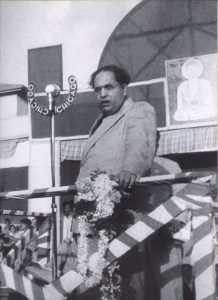
Bhimrao Ramji Ambedkar
In 1945, in a new foreword to an old Gujarati language compilation of articles on the subject, Gandhi wrote: “There prevails only one varna today, that is, of Shudras, or you may call it, Ati-‘Shudras’, or ‘Harijans’ or ‘Untouchables’. I have no doubt about the truth of what I say. If I can bring around the Hindu society to my view, all our internal quarrels will come to an end.” Gandhi’s position against the four-fold varna order became more emphatic and close to Ambedkar’s, says Anil Nauriya, when in a reversal of his earlier understanding about untouchability, Gandhi claimed that “castes must go if we want to root out untouchability.” He added that it was better for the Untouchables to fight against the ‘caste Hindus’ than to live as “wretched slaves.” More significantly, Gandhi emphasised, “if this kind of untouchability were an integral part of sanatan dharma, that religion has no use for me.” Thus, he implicitly validated Ambedkar’s alternative. But Gandhi went a step further when he said in May 1946 that “I myself have become a ‘Harijan’ by choice” and also urged “the Hindus to become Ati-Shudras not merely in name but in thought, word and deed.” He also said, “if the caste Hindus would become Bhangis of their own free will, the distinction between ‘Harijans’ and caste Hindus would automatically disappear.” Then speaking in July 1946, he encouraged marriages between ‘Harijans’ and others. Nauriya thus states that by 1945-46, Gandhi had denuded the varna both of its sociological implication and of its original connotation of fixed classes of humanity determined by birth.
Gandhi’s position against the four-fold varna order became more emphatic and close to Ambedkar’s, says Anil Nauriya, when in a reversal of his earlier understanding about untouchability, Gandhi claimed that “castes must go if we want to root out untouchability.” He added that it was better for the Untouchables to fight against the ‘caste Hindus’ than to live as “wretched slaves.” More significantly, Gandhi emphasised, “if this kind of untouchability were an integral part of sanatan dharma, that religion has no use for me.” Thus, he implicitly validated Ambedkar’s alternative.
Gandhi’s approach and method were well understood by the famous Indian social reformer, G. Ramachandra Rao, ‘Gora’: “When [Gandhi] first undertook to remove untouchability, the problem of varna dharma was also there. It was easy to see intellectually, even then, that caste ought to go root and branch if untouchability was to be completely eradicated. But as a practical proposition, caste was not the immediate problem then. The problem was only the removal of untouchability. So he allowed caste to continue, though personally he observed no caste even then. Thus the work of the removal of untouchability progressed through the early stage, leaving the contradictions of the caste system untouched, and, therefore, without the complication of opposition from those who would resist the abolition of caste. When the stage had come where he found caste was a serious hindrance for further progress, [Gandhi] said that caste ought to go root and branch and proposed not only inter-dining but inter-marriages as the means. A mere intellectual might read inconsistency in [Gandhi’s] tolerance of caste earlier and his denunciation of it later. But to a practical man of non-violent creed these are stages of progress and not principles of contradiction.”
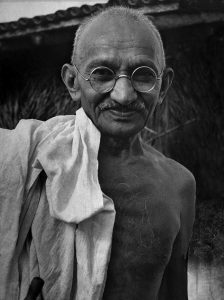
Mohandas Karamchand Gandhi
[6]
To Gandhi, untouchability was the worst practice known to mankind, the greatest blot on Hinduism and a cup of poison. He wanted to commit untouchability to flames. Gandhi had overcome caste prejudices at an early age when as a twelve-year-old he first challenged his mother that Hinduism did not sanction untouchability. At age eighteen, he defied caste to go abroad, thereafter faced the wrath of his brother who admonished him, subsequently took the risk of social boycott for accepting ‘Untouchables’ in his ashrams on equal terms, performed unclean tasks himself, and vowed and worked to eradicate untouchability. He averred to be an open rebel against Hinduism if untouchability was not abolished. Above all, he made removal of untouchability a central plank of Indian politics, necessary to achieve swaraj. Gandhi even critiqued the varna order, which unfurled over time, in a manner that was revolutionary for a ‘caste Hindu’. There was no element of compromise in Gandhi’s attitude towards untouchability, while his approach towards caste and varna evolved over time. Gandhi moved from a position of being a cautious reformer to a bolder position ending in a revolutionary position. Gandhi’s goal of equity remained the same throughout, though the manner in which it was sought to be executed naturally differed responding to the changing context over time and also of space as seen in the case of South Africa and India.
Sujay Biswas’ paper Gandhi’s Approach to Caste and Untouchability: A Reappraisal has been carried with the permission of its author. It has been presented without its abstract, citations and footnotes and bibliography for purposes of easier reading. You can read this paper in its entirety here.
ARCHIVE
15 [The Arya Samajists’ “Chaturvarnya” retains the old bad caste labels]
[1:] But there is a set of reformers who hold out a different ideal. They go by the name of the Arya Samajists, and their ideal of social organization is what is called Chaturvarnya, or the division of society into four classes instead of the four thousand castes that we have in India. To make it more attractive and to disarm opposition, the protagonists of Chaturvarnya take great care to point out that their Chaturvarnya is based not on birth but on guna (worth). At the outset, I must confess that notwithstanding the worth-basis of this Chaturvarnya, it is an ideal to which I cannot reconcile myself.
[2:] In the first place, if under the Chaturvarnya of the Arya Samajists an individual is to take his place in the Hindu Society according to his worth, I do not understand why the Arya Samajists insist upon labelling men as Brahmin, Kshatriya, Vaishya and Shudra. A learned man would be honoured without his being labelled a Brahmin. A soldier would be respected without his being designated a Kshatriya. If European society honours its soldiers and its servants without giving them permanent labels, why should Hindu Society find it difficult to do so, is a question which Arya Samajists have not cared to consider.
[3:] There is another objection to the continuance of these labels. All reform consists in a change in the notions, sentiments, and mental attitudes of the people towards men and things. It is common experience that certain names become associated with certain notions and sentiments which determine a person’s attitude towards men and things. The names Brahmin, Kshatriya, Vaishya, and Shudra are names which are associated with a definite and fixed notion in the mind of every Hindu. That notion is that of a hierarchy based on birth.
The names Brahmin, Kshatriya, Vaishya, and Shudra are names which are associated with a definite and fixed notion in the mind of every Hindu. That notion is that of a hierarchy based on birth.
[4:] So long as these names continue, Hindus will continue to think of the Brahmin, Kshatriya, Vaishya, and Shudra as hierarchical divisions of high and low, based on birth, and to act accordingly. The Hindu must be made to unlearn all this. But how can this happen, if the old labels remain, and continue to recall to his mind old notions? If new notions are to be inculcated in the minds of people, it is necessary to give them new names. To continue the old names is to make the reform futile. To allow this Chaturvarnya based on worth to be designated by such stinking labels as Brahmin, Kshatriya, Vaishya, Shudra, indicative of social divisions based on birth, is a snare.
16 [“Chaturvarnya” would face impossible difficulties in practice]
[1:] To me this Chaturvarnya with its old labels is utterly repellent, and my whole being rebels against it. But I do not wish to rest my objection to Chaturvarnya on mere grounds of sentiments. There are more solid grounds on which I rely for my opposition to it. A close examination of this ideal has convinced me that as a system of social organization, Chaturvarnya is impracticable, is harmful, and has turned out to be a miserable failure. From a practical point of view, the system of Chaturvarnya raises several difficulties which its protagonists [=advocates] do not seem to have taken into account. The principle underlying Caste is fundamentally different from the principle underlying Chaturvarnya. Not only are they fundamentally different, but they are also fundamentally opposed.
[2:] The former [=Chaturvarnya] is based on worth. How are you going to compel people who have acquired a higher status based on birth, without reference to their worth, to vacate that status? How are you going to compel people to recognize the status due to a man, in accordance with his worth, who is occupying a lower status based on his birth? For this, you must first break up the Caste System, in order to be able to establish the Chaturvarnya system. How are you going to reduce the four thousand castes, based on birth, to the four Varnas, based on worth? This is the first difficulty which the protagonists of the Chaturvarnya must grapple with.
[3:] There is a second difficulty which the protagonists of Chaturvarnya must grapple with, if they wish to make the establishment of Chaturvarnya a success. Chaturvarnya pre-supposes that you can classify people into four definite classes. Is this possible? In this respect, the ideal of Chaturvarnya has, as you will see, a close affinity to the Platonic ideal. To Plato, men fell by nature into three classes. In some individuals, he believed, mere appetites dominated. He assigned them to the labouring and trading classes. Others revealed to him that over and above appetites, they had a courageous disposition. He classed them as defenders in war and guardians of internal peace. Others showed a capacity to grasp the universal reason underlying things. He made them the law-givers of the people.
[4:] The criticism to which Plato’s Republic is subject, is also the criticism which must apply to the system of Chaturvarnya, insofar as it proceeds upon the possibility of an accurate classification of men into four distinct classes. The chief criticism against Plato is that his idea of lumping individuals into a few sharply-marked-off classes is a very superficial view of man and his powers. Plato had no perception of the uniqueness of every individual, of his incommensurability with others, of each individual as forming a class of his own. He had no recognition of the infinite diversity of active tendencies, and the combination of tendencies of which an individual is capable. To him, there were types of faculties or powers in the individual constitution.
[5:] All this is demonstrably wrong. Modern science has shown that the lumping together of individuals into a few sharply-marked-off classes is a superficial view of man, not worthy of serious consideration. Consequently, the utilization of the qualities of individuals is incompatible with their stratification by classes, since the qualities of individuals are so variable. Chaturvarnya must fail for the very reason for which Plato’s Republic must fail—namely, that it is not possible to pigeonhole men, according as they belong to one class or the other. That it is impossible to accurately classify people into four definite classes, is proved by the fact that the original four classes have now become four thousand castes.
Chaturvarnya must fail for the very reason for which Plato’s Republic must fail—namely, that it is not possible to pigeonhole men, according as they belong to one class or the other.
[6:] There is a third difficulty in the way of the establishment of the system of Chaturvarnya. How are you going to maintain the system of Chaturvarnya, supposing it was established? One important requirement for the successful working of Chaturvarnya is the maintenance of the penal system which could maintain it by its sanction. The system of Chaturvarnya must perpetually face the problem of the transgressor. Unless there is a penalty attached to the act of transgression, men will not keep to their respective classes. The whole system will break down, being contrary to human nature. Chaturvarnya cannot subsist by its own inherent goodness. It must be enforced by law.
[7:] That without penal sanction the ideal of Chaturvarnya cannot be realized, is proved by the story in the Ramayana of Rama killing Shambuka. Some people seem to blame Rama because he wantonly and without reason killed Shambuka. But to blame Rama for killing Shambuka is to misunderstand the whole situation. Ram Raj was a Raj based on Chaturvarnya. As a king, Rama was bound to maintain Chaturvarnya. It was his duty therefore to kill Shambuka, the Shudra who had transgressed his class and wanted to be a Brahmin. This is the reason why Rama killed Shambuka. But this also shows that penal sanction is necessary for the maintenance of Chaturvarnya. Not only penal sanction is necessary, but the penalty of death is necessary. That is why Rama did not inflict on Shambuka a lesser punishment. That is why the Manu-Smriti prescribes such heavy sentences as cutting off the tongue, or pouring of molten lead in the ears, of the Shudra who recites or hears the Veda. The supporters of Chaturvarnya must give an assurance that they could successfully classify men, and that they could induce modern society in the twentieth century to re-forge the penal sanctions of the Manu-Smriti.
Ram Raj was a Raj based on Chaturvarnya. As a king, Rama was bound to maintain Chaturvarnya. It was his duty therefore to kill Shambuka, the Shudra who had transgressed his class and wanted to be a Brahmin.
[8:] The protagonists of Chaturvarnya do not seem to have considered what is to happen to women in their system. Are they also to be divided into four classes, Brahmin, Kshatriya, Vaishya and Shudra? Or are they to be allowed to take the status of their husbands? If the status of the woman is to be the consequence of marriage, what becomes of the underlying principle of Chaturvarnya—namely, that the status of a person should be based upon the worth of that person? If they are to be classified according to their worth, is their classification to be nominal or real?
The protagonists of Chaturvarnya do not seem to have considered what is to happen to women in their system.
[9:] If it is to be nominal, then it is useless; and then the protagonists of Chaturvarnya must admit that their system does not apply to women. If it is real, are the protagonists of Chaturvarnya prepared to follow the logical consequences of applying it to women? They must be prepared to have women priests and women soldiers. Hindu society has grown accustomed to women teachers and women barristers. It may grow accustomed to women brewers and women butchers. But he would be a bold person who would say that it will allow women priests and women soldiers. But that will be the logical outcome of applying Chaturvarnya to women. Given these difficulties, I think no one except a congenital idiot could hope for and believe in a successful regeneration of the Chaturvarnya.
17 [“Chaturvarnya” would be the most vicious system for the Shudras]
[1:] Assuming that Chaturvarnya is practicable, I contend that it is the most vicious system. That the Brahmins should cultivate knowledge, that the Kshatriya should bear arms, that the Vaishya should trade, and that the Shudra should serve, sounds as though it was a system of division of labour. Whether the theory was intended to state that the Shudra need not, or whether it was intended to lay down that he must not, is an interesting question. The defenders of Chaturvarnya give it the first meaning. They say, why need the Shudra trouble to acquire wealth, when the three [higher] Varnas are there to support him? Why need the Shudra bother to take to education, when there is the Brahmin to whom he can go when the occasion for reading or writing arises? Why need the Shudra worry to arm himself, when there is the Kshatriya to protect him? The theory of Chaturvarnya, understood in this sense, may be said to look upon the Shudra as the ward and the three [higher] Varnas as his guardians. Thus interpreted, it is a simple, elevating, and alluring theory.
[2:] Assuming this to be the correct view of the underlying conception of Chaturvarnya, it seems to me that the system is neither fool-proof nor knave-proof. What is to happen if the Brahmins, Vaishyas, and Kshatriyas fail to pursue knowledge, to engage in economic enterprise, and to be efficient soldiers, which are their respective functions? Contrary-wise, suppose that they discharge their functions, but flout their duty to the Shudra or to one another; what is to happen to the Shudra if the three classes refuse to support him on fair terms, or combine to keep him down? Who is to safeguard the interests of the Shudra—or for that matter, those of the Vaishya and Kshatriya—when the person who is trying to take advantage of his ignorance is the Brahmin? Who is to defend the liberty of the Shudra—and for that matter, of the Brahmin and the Vaishya—when the person who is robbing him of it is the Kshatriya?
[3:] Inter-dependence of one class on another class is inevitable. Even dependence of one class upon another may sometimes become allowable. But why make one person depend upon another in the matter of his vital needs? Education, everyone must have. Means of defence, everyone must have. These are the paramount requirements of every man for his self-preservation. How can the fact that his neighbour is educated and armed help a man who is uneducated and disarmed? The whole theory is absurd. These are the questions which the defenders of Chaturvarnya do not seem to be troubled about. But they are very pertinent questions. Assuming that in their conception of Chaturvarnya the relationship between the different classes is that of ward and guardian, and that this is the real conception underlying Chaturvarnya, it must be admitted that it makes no provision to safeguard the interests of the ward from the misdeeds of the guardian.
[4:] Whether or not the relationship of guardian and ward was the real underlying conception on which Chaturvarnya was based, there is no doubt that in practice the relation was that of master and servants. The three classes, Brahmins, Kshatriyas, and Vaishyas, although not very happy in their mutual relationship, managed to work by compromise. The Brahmin flattered the Kshatriya, and both let the Vaishya live in order to be able to live upon him. But the three agreed to beat down the Shudra. He was not allowed to acquire wealth, lest he should be independent of the three [higher] Varnas. He was prohibited from acquiring knowledge, lest he should keep a steady vigil regarding his interests. He was prohibited from bearing arms, lest he should have the means to rebel against their authority. That this is how the Shudras were treated by the Tryavarnikas is evidenced by the Laws of Manu. There is no code of laws more infamous regarding social rights than the Laws of Manu. Any instance from anywhere of social injustice must pale before it.
There is no code of laws more infamous regarding social rights than the Laws of Manu. Any instance from anywhere of social injustice must pale before it.
[5:] Why have the mass of people tolerated the social evils to which they have been subjected? There have been social revolutions in other countries of the world. Why have there not been social revolutions in India, is a question which has incessantly troubled me. There is only one answer which I can give, and it is that the lower classes of Hindus have been completely disabled for direct action on account of this wretched Caste System. They could not bear arms, and without arms they could not rebel. They were all ploughmen—or rather, condemned to be ploughmen—and they never were allowed to convert their ploughshares into swords. They had no bayonets, and therefore everyone who chose, could and did sit upon them. On account of the Caste System, they could receive no education. They could not think out or know the way to their salvation. They were condemned to be lowly; and not knowing the way of escape, and not having the means of escape, they became reconciled to eternal servitude, which they accepted as their inescapable fate.
Why have there not been social revolutions in India, is a question which has incessantly troubled me. There is only one answer which I can give, and it is that the lower classes of Hindus have been completely disabled for direct action on account of this wretched Caste System.
[6:] It is true that even in Europe the strong has not shrunk from the exploitation—nay, the spoliation—of the weak. But in Europe, the strong have never contrived to make the weak helpless against exploitation so shamelessly as was the case in India among the Hindus. Social war has been raging between the strong and the weak far more violently in Europe than it has ever been in India. Yet the weak in Europe has had in his freedom of military service, his physical weapon; in suffering, his political weapon; and in education, his moral weapon. These three weapons for emancipation were never withheld by the strong from the weak in Europe. All these weapons were, however, denied to the masses in India by the Caste System.
The weak in Europe has had in his freedom of military service, his physical weapon; in suffering, his political weapon; and in education, his moral weapon… All these weapons were, however, denied to the masses in India by the Caste System.
[7:] There cannot be a more degrading system of social organization than the Caste System. It is the system which deadens, paralyses, and cripples the people, [keeping them] from helpful activity. This is no exaggeration. History bears ample evidence. There is only one period in Indian history which is a period of freedom, greatness, and glory. That is the period of the Maurya Empire. At all other times the country suffered from defeat and darkness. But the Maurya period was a period when the Caste System was completely annihilated—when the Shudras, who constituted the mass of the people, came into their own and became the rulers of the country. The period of defeat and darkness is the period when the Caste System flourished, to the damnation of the greater part of the people of the country.
The Maurya period was a period when the Caste System was completely annihilated—when the Shudras, who constituted the mass of the people, came into their own and became the rulers of the country.
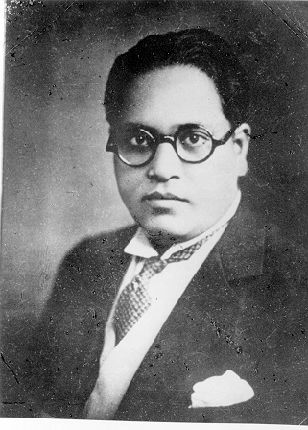
18 [“Chaturvarnya” is nothing new; it is as old as the Vedas]
[1:] Chaturvarnya is not new. It is as old as the Vedas. That is one of the reasons why we are asked by the Arya Samajists to consider its claims. Judging from the past, as a system of social organization it has been tried and it has failed. How many times have the Brahmins annihilated the seed of the Kshatriyas! How many times have the Kshatriyas annihilated the Brahmins! The Mahabharata and the Puranas are full of incidents of the strife between the Brahmins and the Kshatriyas. They even quarreled over such petty questions as to who should salute first, as to who should give way first, the Brahmins or the Kshatriyas, when the two met in the street.
Chaturvarnya is not new. It is as old as the Vedas. That is one of the reasons why we are asked by the Arya Samajists to consider its claims. Judging from the past, as a system of social organization it has been tried and it has failed.
[2:] Not only was the Brahmin an eyesore to the Kshatriya and the Kshatriya an eyesore to the Brahmin, it seems that the Kshatriyas had become tyrannical, and the masses, disarmed as they were under the system of Chaturvarnya, were praying to Almighty God for relief from their tyranny. The Bhagwat tells us very definitely that Krishna had taken avatar for one sacred purpose: and that was, to annihilate the Kshatriyas. With these instances of rivalry and enmity between the different Varnas before us, I do not understand how anyone can hold out Chaturvarnya as an ideal to be aimed at, or as a pattern on which the Hindu Society should be remodelled.
19 [Caste among Hindus is not the same as “caste” among non- Hindus]
[1:] I have dealt with those, those who are outside your group [=the Mandal] and whose hostility to your ideal [=the destruction of Caste] is quite open. There appear to be others who are neither without you nor with you. I was hesitating whether I should deal with their point of view. But on further consideration I have come to the conclusion that I must, and that for two reasons. Firstly, their attitude to the problem of caste is not merely an attitude of neutrality, but is an attitude of armed neutrality. Secondly, they probably represent a considerable body of people. Of these, there is one set which finds nothing peculiar nor odious in the Caste System of the Hindus. Such Hindus cite the case of Muslims, Sikhs, and Christians, and find comfort in the fact that they too have castes amongst them.
[2:] In considering this question, you must at the outset bear in mind that nowhere is human society one single whole. It is always plural. In the world of action, the individual is one limit and society the other. Between them lie all sorts of associative arrangements of lesser and larger scope—families, friendships, co-operative associations, business combines, political parties, bands of thieves and robbers. These small groups are usually firmly welded together, and are often as exclusive as castes. They have a narrow and intensive code, which is often anti-social. This is true of every society, in Europe as well as in Asia. The question to be asked in determining whether a given society is an ideal society is not whether there are groups in it, because groups exist in all societies.
[3:] The questions to be asked in determining what is an ideal society are: How numerous and varied are the interests which are consciously shared by the groups? How full and free is the interplay with other forms of associations? Are the forces that separate groups and classes more numerous than the forces that unite them? What social significance is attached to this group life? Is it’s exclusiveness a matter of custom and convenience, or is it a matter of religion? It is in the light of these questions that one must decide whether caste among Non-Hindus is the same as caste among Hindus.
The questions to be asked in determining what is an ideal society are: How numerous and varied are the interests which are consciously shared by the groups? How full and free is the interplay with other forms of associations? Are the forces that separate groups and classes more numerous than the forces that unite them? What social significance is attached to this group life? Is it’s exclusiveness a matter of custom and convenience, or is it a matter of religion?
[4:] If we apply these considerations to castes among Mohammedans, Sikhs, and Christians on the one hand, and to castes among Hindus on the other, you will find that caste among Non-Hindus is fundamentally different from caste among Hindus. First, the ties which consciously make the Hindus hold together are non-existent, while among Non-Hindus there are many that hold them together. The strength of a society depends upon the presence of points of contact, possibilities of interaction, between different groups which exist in it. These are what Carlyle calls “organic filaments”— i.e., the elastic threads which help to bring the disintegrating elements together and to reunite them. There is no integrating force among the Hindus to counteract the disintegration caused by caste. While among the Non-Hindus there are plenty of these organic filaments which bind them together.
The strength of a society depends upon the presence of points of contact, possibilities of interaction, between different groups which exist in it. These are what Carlyle calls “organic filaments”— i.e., the elastic threads which help to bring the disintegrating elements together and to reunite them.
[5:] Again it must be borne in mind that although there are castes among Non-Hindus, as there are among Hindus, caste has not the same social significance for Non-Hindus as it has for Hindus. Ask a Mohammedan or a Sikh who he is. He tells you that he is a Mohammedan or a Sikh, as the case may be. He does not tell you his caste, although he has one; and you are satisfied with his answer. When he tells you that he is a Muslim, you do not proceed to ask him whether he is a Shiya or a Suni; Sheikh or Saiyad; Khatik or Pinjari. When he tells you he is a Sikh, you do not ask him whether he is Jat or Roda, Mazbi or Ramdasi. But you are not satisfied, if a person tells you that he is a Hindu. You feel bound to inquire into his caste. Why? Because so essential is caste in the case of a Hindu, that without knowing it you do not feel sure what sort of a being he is.
You are not satisfied, if a person tells you that he is a Hindu. You feel bound to inquire into his caste. Why? Because so essential is caste in the case of a Hindu, that without knowing it you do not feel sure what sort of a being he is.
[6:] That caste has not the same social significance among Non-Hindus as it has among Hindus is clear, if you take into consideration the consequences which follow breach of caste. There may be castes among Sikhs and Mohammedans, but the Sikhs and the Mohammedans will not outcast a Sikh or a Mohammedan if he broke his caste. Indeed, the very idea of ex-communication is foreign to the Sikhs and the Mohammedans. But with the Hindus the case is entirely different. A Hindu is sure to be outcasted if he broke caste. This shows the difference in the social significance of caste to Hindus and Non-Hindus. This is the second point of difference.
That caste has not the same social significance among Non-Hindus as it has among Hindus is clear, if you take into consideration the consequences which follow breach of caste.
[7:] But there is also a third and a more important one. Caste among the non-Hindus has no religious consecration; but among the Hindus most decidedly it has. Among the Non-Hindus, caste is only a practice, not a sacred institution. They did not originate it. With them it is only a survival. They do not regard caste as a religious dogma. Religion compels the Hindus to treat isolation and segregation of castes as a virtue. Religion does not compel the Non-Hindus to take the same attitude towards caste. If Hindus wish to break caste, their religion will come in their way. But it will not be so in the case of Non-Hindus. It is, therefore, a dangerous delusion to take comfort in the mere existence of caste among Non-Hindus, without caring to know what place caste occupies in their life and whether there are other “organic filaments” which subordinate the feeling of caste to the feeling of community. The sooner the Hindus are cured of this delusion, the better.
Caste among the non-Hindus has no religious consecration; but among the Hindus most decidedly it has.
[8:] The other set [of “neutral” Hindus] denies that caste presents any problem at all for the Hindus to consider. Such Hindus seek comfort in the view that the Hindus have survived, and take this as a proof of their fitness to survive. This point of view is well expressed by Prof. S. Radhakrishnan in his Hindu View of Life. Referring to Hinduism he says,
“The civilization itself has not been a short-lived one. Its historic records date back for over four thousand years and even then it had reached a stage of civilization which has continued its unbroken, though at times slow and static, course until the present day. It has stood the stress and strain of more than four or five millenniums of spiritual thought and experience. Though peoples of different races and cultures have been pouring into India from the dawn of History, Hinduism has been able to maintain its supremacy and even the proselytising creeds backed by political power have not been able to coerce the large majority of Hindus to their views. The Hindu culture possesses some vitality which seems to be denied to some other more forceful currents. It is no more necessary to dissect Hinduism than to open a tree to see whether the sap still runs.”
The name of Prof. Radhakrishnan is big enough to invest with profundity whatever he says, and impress the minds of his readers. But I must not hesitate to speak out my mind. For I fear that his statement may become the basis of a vicious argument that the fact of survival is proof of fitness to survive.
[9:] It seems to me that the question is not whether a community lives or dies; the question is on what plane does it live. There are different modes of survival. But not all are equally honourable. For an individual as well as for a society, there is a gulf between merely living, and living worthily. To fight in a battle and to live in glory is one mode. To beat a retreat, to surrender, and to live the life of a captive is also a mode of survival. It is useless for a Hindu to take comfort in the fact that he and his people have survived. What he must consider is, what is the quality of their survival. If he does that, I am sure he will cease to take pride in the mere fact of survival. A Hindu’s life has been a life of continuous defeat, and what appears to him to be life everlasting is not living everlastingly, but is really a life which is perishing everlastingly. It is a mode of survival of which every right-minded Hindu who is not afraid to own up to the truth will feel ashamed.
The question is not whether a community lives or dies; the question is on what plane does it live.
20 [The real key to destroying Caste is rejection of the Shastras]
[1:] There is no doubt, in my opinion, that unless you change your social order you can achieve little by way of progress. You cannot mobilize the community either for defence or for offence. You cannot build anything on the foundations of caste. You cannot build up a nation, you cannot build up a morality. Anything that you will build on the foundations of caste will crack, and will never be a whole.
[2:] The only question that remains to be considered is—How to bring about the reform of the Hindu social order? How to abolish Caste? This is a question of supreme importance. There is a view that in the reform of Caste, the first step to take is to abolish sub-castes. This view is based upon the supposition that there is a greater similarity in manners and status between sub-castes than there is between castes. I think this is an erroneous supposition. The Brahmins of Northern and Central India are socially of lower grade, as compared with the Brahmins of the Deccan and Southern India. The former are only cooks and water-carriers, while the latter occupy a high social position. On the other hand, in Northern India, the Vaishyas and Kayasthas are intellectually and socially on a par with the Brahmins of the Deccan and Southern India.
[3:] Again, in the matter of food there is no similarity between the Brahmins of the Deccan and Southern India, who are vegetarians, and the Brahmins of Kashmir and Bengal, who are non-vegetarians. On the other hand, the Brahmins of the Deccan and Southern India have more in common so far as food is concerned with such non-Brahmins as the Gujaratis, Marwaris, Banias, and Jains.
[4:] There is no doubt that from the standpoint of making the transition from one caste to another easy, the fusion of the Kayasthas of Northern India and the other Non-Brahmins of Southern India with the Non-Brahmins of the Deccan and the Dravidian country is more practicable than the fusion of the Brahmins of the South with the Brahmins of the North. But assuming that the fusion of sub-castes is possible, what guarantee is there that the abolition of sub-castes will necessarily lead to the abolition of castes? On the contrary, it may happen that the process may stop with the abolition of sub-castes. In that case, the abolition of sub-castes will only help to strengthen the castes, and make them more powerful and therefore more mischievous. This remedy is therefore neither practicable nor effective, and may easily prove to be a wrong remedy.
Assuming that the fusion of sub-castes is possible, what guarantee is there that the abolition of sub-castes will necessarily lead to the abolition of castes? On the contrary, it may happen that the process may stop with the abolition of sub-castes. In that case, the abolition of sub-castes will only help to strengthen the castes, and make them more powerful and therefore more mischievous.
[5:] Another plan of action for the abolition of Caste is to begin with inter-caste dinners. This also, in my opinion, is an inadequate remedy. There are many castes which allow inter-dining. But it is a common experience that inter-dining has not succeeded in killing the spirit of Caste and the consciousness of Caste. I am convinced that the real remedy is inter-marriage. Fusion of blood can alone create the feeling of being kith and kin, and unless this feeling of kinship, of being kindred, becomes paramount, the separatist feeling—the feeling of being aliens—created by Caste will not vanish. Among the Hindus, inter-marriage must necessarily be a factor of greater force in social life than it need be in the life of the non-Hindus. Where society is already well-knit by other ties, marriage is an ordinary incident of life. But where society is cut asunder, marriage as a binding force becomes a matter of urgent necessity. The real remedy for breaking Caste is inter-marriage. Nothing else will serve as the solvent of Caste.
There are many castes which allow inter-dining. But it is a common experience that inter-dining has not succeeded in killing the spirit of Caste and the consciousness of Caste. I am convinced that the real remedy is inter-marriage.
[6:] Your Jat-Pat-Todak Mandal has adopted this line of attack. It is a direct and frontal attack, and I congratulate you upon a correct diagnosis, and more upon your having shown the courage to tell the Hindus what is really wrong with them. Political tyranny is nothing compared to social tyranny, and a reformer who defies society is a much more courageous man than a politician who defies the government. You are right in holding that Caste will cease to be an operative force only when inter-dining and inter-marriage have become matters of common course. You have located the source of the disease.
[7:] But is your prescription the right prescription for the disease? Ask yourselves this question: why is it that a large majority of Hindus do not inter-dine and do not inter-marry? Why is it that your cause is not popular?
[8:] There can be only one answer to this question, and it is that inter-dining and inter-marriage are repugnant to the beliefs and dogmas which the Hindus regard as sacred. Caste is not a physical object like a wall of bricks or a line of barbed wire which prevents the Hindus from commingling and which has, therefore, to be pulled down. Caste is a notion, it is a state of the mind. The destruction of Caste does not therefore mean the destruction of a physical barrier. It means a notional change.
[9:] Caste may be bad. Caste may lead to conduct so gross as to be called man’s inhumanity to man. All the same, it must be recognized that the Hindus observe Caste not because they are inhuman or wrong-headed. They observe Caste because they are deeply religious. People are not wrong in observing Caste. In my view, what is wrong is their religion, which has inculcated this notion of Caste. If this is correct, then obviously the enemy you must grapple with is not the people who observe Caste, but the Shastras which teach them this religion of Caste. Criticising and ridiculing people for not inter-dining or inter-marrying, or occasionally holding inter-caste dinners and celebrating inter-caste marriages, is a futile method of achieving the desired end. The real remedy is to destroy the belief in the sanctity of the Shastras.
[10:] How do you expect to succeed, if you allow the Shastras to continue to mould the beliefs and opinions of the people? Not to question the authority of the Shastras—to permit the people to believe in their sanctity and their sanctions, and then to blame the people and to criticise them for their acts as being irrational and inhuman—is an incongruous way of carrying on social reform. Reformers working for the removal of untouchability, including Mahatma Gandhi, do not seem to realize that the acts of the people are merely the results of their beliefs inculcated in their minds by the Shastras, and that people will not change their conduct until they cease to believe in the sanctity of the Shastras on which their conduct is founded.
Reformers working for the removal of untouchability, including Mahatma Gandhi, do not seem to realize that the acts of the people are merely the results of their beliefs inculcated in their minds by the Shastras, and that people will not change their conduct until they cease to believe in the sanctity of the Shastras on which their conduct is founded.
[11:] No wonder that such efforts have not produced any results. You also seem to be erring in the same way as the reformers working in the cause of removing untouchability. To agitate for and to organise inter-caste dinners and inter-caste marriages is like forced feeding brought about by artificial means. Make every man and woman free from the thraldom of the Shastras, cleanse their minds of the pernicious notions founded on the Shastras, and he or she will inter-dine and inter-marry, without your telling him or her to do so.
[12:] It is no use seeking refuge in quibbles. It is no use telling people that the Shastras do not say what they are believed to say, if they are grammatically read or logically interpreted. What matters is how the Shastras have been understood by the people. You must take the stand that Buddha took. You must take the stand which Guru Nanak took. You must not only discard the Shastras, you must deny their authority, as did Buddha and Nanak. You must have courage to tell the Hindus that what is wrong with them is their religion—the religion which has produced in them this notion of the sacredness of Caste. Will you show that courage?
It is no use telling people that the Shastras do not say what they are believed to say, if they are grammatically read or logically interpreted. What matters is how the Shastras have been understood by the people. You must take the stand that Buddha took. You must take the stand which Guru Nanak took. You must not only discard the Shastras, you must deny their authority, as did Buddha and Nanak. You must have courage to tell the Hindus that what is wrong with them is their religion—the religion which has produced in them this notion of the sacredness of Caste. Will you show that courage?
21 [Internal reform of the Caste System is virtually impossible]
[1:] What are your chances of success? Social reforms fall into different species. There is a species of reform which does not relate to the religious notions of a people, but is purely secular in character. There is also a species of reform which relates to the religious notions of a people. Of such a species of reform, there are two varieties. In one, the reform accords with the principles of the religion, and merely invites people who have departed from it, to revert to them and to follow them.
[2:] The second is a reform which not only touches the religious principles but is diametrically opposed to those principles, and invites people to depart from and to discard their authority, and to act contrary to those principles. Caste is the natural outcome of certain religious beliefs which have the sanction of the Shastras, which are believed to contain the command of divinely inspired sages who were endowed with a supernatural wisdom and whose commands, therefore, cannot be disobeyed without committing a sin.
Social reforms fall into different species. There is a species of reform which does not relate to the religious notions of a people, but is purely secular in character. There is also a species of reform which relates to the religious notions of a people. Of such a species of reform, there are two varieties. In one, the reform accords with the principles of the religion, and merely invites people who have departed from it, to revert to them and to follow them. The second is a reform which not only touches the religious principles but is diametrically opposed to those principles, and invites people to depart from and to discard their authority, and to act contrary to those principles.
[3:] The destruction of Caste is a reform which falls under the third category [that is, the second variety of the second species]. To ask people to give up Caste is to ask them to go contrary to their fundamental religious notions. It is obvious that the first and second species of reform are easy. But the third is a stupendous task, well-nigh impossible. The Hindus hold to the sacredness of the social order. Caste has a divine basis. You must therefore destroy the sacredness and divinity with which Caste has become invested. In the last analysis, this means you must destroy the authority of the Shastras and the Vedas.
[4:] I have emphasized this question of the ways and means of destroying Caste, because I think that knowing the proper ways and means is more important than knowing the ideal. If you do not know the real ways and means, all your shots are sure to be misfires. If my analysis is correct, then your task is herculean. You alone can say whether you are capable of achieving it.
[5:] Speaking for myself, I see the task to be well-nigh impossible. Perhaps you would like to know why I think so. Out of the many reasons which have led me to take this view, I will mention some which I regard as most important. One of these reasons is the attitude of hostility which the Brahmins have shown towards this question. The Brahmins form the vanguard of the movement for political reform, and in some cases also of economic reform. But they are not to be found even as camp-followers in the army raised to break down the barricades of Caste. Is there any hope of the Brahmins ever taking up a lead in the future in this matter? I say no.
[6:] You may ask why. You may argue that there is no reason why Brahmins should continue to shun social reform. You may argue that the Brahmins know that the bane of Hindu Society is Caste, and as an enlightened class they could not be expected to be indifferent to its consequences. You may argue that there are secular Brahmins and priestly Brahmins, and if the latter do not take up the cudgels on behalf of those who want to break Caste, the former will.
[7:] All this of course sounds very plausible. But in all this it is forgotten that the break-up of the Caste system is bound to adversely affect the Brahmin caste. Having regard to this, is it reasonable to expect that the Brahmins will ever consent to lead a movement, the ultimate result of which is to destroy the power and prestige of the Brahmin caste? Is it reasonable to expect the secular Brahmins to take part in a movement directed against the priestly Brahmins? In my judgment, it is useless to make a distinction between the secular Brahmins and priestly Brahmins. Both are kith and kin. They are two arms of the same body, and one is bound to fight for the existence of the other.
[8:] In this connection, I am reminded of some very pregnant remarks made by Prof. Dicey in his English Constitution. Speaking of the actual limitation on the legislative supremacy of Parliament, Dicey says:
“The actual exercise of authority by any sovereign whatever, and notably by Parliament, is bounded or controlled by two limitations. Of these the one is an external, and the other is an internal limitation. The external limit to the real power of a sovereign consists in the possibility or certainty that his subjects or a large number of them will disobey or resist his laws… The internal limit to the exercise of sovereignty arises from the nature of the sovereign power itself. Even a despot exercises his powers in accordance with his character, which is itself moulded by the circumstance under which he lives, including under that head the moral feelings of the time and the society to which he belongs. The Sultan could not, if he would, change the religion of the Mohammedan world, but even if he could do so, it is in the very highest degree improbable that the head of Mohammedanism should wish to overthrow the religion of Mohammed; the internal check on the exercise of the Sultan’s power is at least as strong as the external limitation. People sometimes ask the idle question, why the Pope does not introduce this or that reform? The true answer is that a revolutionist is not the kind of man who becomes a Pope and that a man who becomes a Pope has no wish to be a revolutionist.”
“A revolutionist is not the kind of man who becomes a Pope and that a man who becomes a Pope has no wish to be a revolutionist.”
[9:] I think these remarks apply equally to the Brahmins of India, and one can say with equal truth that if a man who becomes a Pope has no wish to become a revolutionary, a man who is born a Brahmin has much less desire to become a revolutionary. Indeed, to expect a Brahmin to be a revolutionary in matters of social reform is as idle as to expect the British Parliament, as was said by Leslie Stephen, to pass an Act requiring all blue-eyed babies to be murdered.
Indeed, to expect a Brahmin to be a revolutionary in matters of social reform is as idle as to expect the British Parliament, as was said by Leslie Stephen, to pass an Act requiring all blue-eyed babies to be murdered.
[10:] Some of you will say that it is a matter of small concern whether the Brahmins come forward to lead the movement against Caste or whether they do not. To take this view is, in my judgment, to ignore the part played by the intellectual class in the community. Whether you accept the theory of the great man as the maker of history or whether you do not, this much you will have to concede: that in every country the intellectual class is the most influential class, if not the governing class. The intellectual class is the class which can foresee, it is the class which can advise and give the lead. In no country does the mass of the people live the life of intelligent thought and action. It is largely imitative, and follows the intellectual class.
The intellectual class is the class which can foresee, it is the class which can advise and give the lead. In no country does the mass of the people live the life of intelligent thought and action. It is largely imitative, and follows the intellectual class.
[11:] There is no exaggeration in saying that the entire destiny of a country depends upon its intellectual class. If the intellectual class is honest, independent, and disinterested, it can be trusted to take the initiative and give a proper lead when a crisis arises. It is true that intellect by itself is no virtue. It is only a means, and the use of means depends upon the ends which an intellectual person pursues. An intellectual man can be a good man, but he can easily be a rogue. Similarly an intellectual class may be a band of high-souled persons, ready to help, ready to emancipate erring humanity—or it may easily be a gang of crooks, or a body of advocates for a narrow clique from which it draws its support.
An intellectual class may be a band of high-souled persons, ready to help, ready to emancipate erring humanity—or it may easily be a gang of crooks, or a body of advocates for a narrow clique from which it draws its support.
[12:] You may think it a pity that the intellectual class in India is simply another name for the Brahmin caste. You may regret that the two are one; that the existence of the intellectual class should be bound up with one single caste; that this intellectual class should share the interest and the aspirations of that Brahmin caste, and should be a class which has regarded itself as the custodian of the interest of that caste, rather than of the interests of the country. All this may be very regrettable. But the fact remains that the Brahmins form the intellectual class of the Hindus. It is not only an intellectual class, but it is a class which is held in great reverence by the rest of the Hindus.
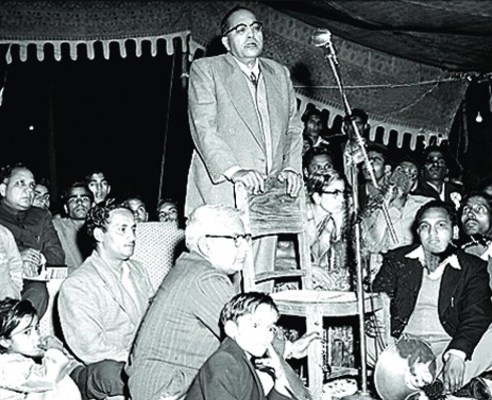
You may think it a pity that the intellectual class in India is simply another name for the Brahmin caste. You may regret that the two are one; that the existence of the intellectual class should be bound up with one single caste… But the fact remains that the Brahmins form the intellectual class of the Hindus. It is not only an intellectual class, but it is a class which is held in great reverence by the rest of the Hindus.
[13:] The Hindus are taught that the Brahmins are Bhudevas (Gods on earth)
![]()
The Hindus are taught that Brahmins alone can be their teachers. Manu says, “If it be asked how it should be with respect to points of the Dharma which have not been specially mentioned, the answer is, that which Brahmins who are Shishthas propound shall doubtless have legal force”:
[14:] 
[15:] When such an intellectual class, which holds the rest of the community in its grip, is opposed to the reform of Caste, the chances of success in a movement for the break-up of the Caste system appear to me very, very remote.
[16:] The second reason why I say the task is impossible will be clear, if you will bear in mind that the caste system has two aspects. In one of its aspects, it divides men into separate communities. In its second aspect, it places these communities in a graded order one above the other in social status. Each caste takes its pride and its consolation in the fact that in the scale of castes it is above some other caste. As an outward mark of this gradation, there is also a gradation of social and religious rights, technically spoken of as Ashtadhikaras and Sanskaras. The higher the grade of a caste, the greater the number of these rights; and the lower the grade, the lesser their number.
[17:] Now this gradation, this scaling of castes, makes it impossible to organise a common front against the Caste System. If a caste claims the right to inter-dine and inter-marry with another caste placed above it, it is frozen the instant it is told by mischief-mongers—and there are many Brahmins amongst such mischief-mongers—that it will have to concede inter-dining and inter-marriage with castes below it! All are slaves of the Caste System. But all the slaves are not equal in status.
All are slaves of the Caste System. But all the slaves are not equal in status.
[18:] To excite the proletariat to bring about an economic revolution, Karl Marx told them: “You have nothing to lose except your chains.” But the artful way in which the social and religious rights are distributed among the different castes, whereby some have more and some have less, makes the slogan of Karl Marx quite useless to excite the Hindus against the Caste System. Castes form a graded system of sovereignties, high and low, which are jealous of their status and which know that if a general dissolution came, some of them stand to lose more of their prestige and power than others do. You cannot, therefore, have a general mobilization of the Hindus (to use a military expression) for an attack on the Caste System.
Castes form a graded system of sovereignties, high and low, which are jealous of their status and which know that if a general dissolution came, some of them stand to lose more of their prestige and power than others do.
22 [No reformers, and no appeals to reason, have so far succeeded]
[1:] Can you appeal to reason, and ask the Hindus to discard Caste as being contrary to reason? That raises the question: Is a Hindu free to follow his reason? Manu has laid down three sanctions to which every Hindu must conform in the matter of his behaviour:
[2:] ![]()
[3:] Here there is no place for reason to play its part. A Hindu must follow either Veda, Smriti or sadachar. He cannot follow anything else.
[4:] In the first place, how are the texts of the Vedas and Smritis to be interpreted whenever any doubt arises regarding their meaning? On this important question the view of Manu is quite definite. He says:
[5:] 
[6:] According to this rule, rationalism as a canon of interpreting the Vedas and Smritis is absolutely condemned. It is regarded to be as wicked as atheism, and the punishment provided for it is ex-communication. Thus, where a matter is covered by the Veda or the Smriti, a Hindu cannot resort to rational thinking.
[7:] Even when there is a conflict between Vedas and Smritis on matters on which they have given a positive injunction, the solution is not left to reason. When there is a conflict between two Shrutis, both are to be regarded as of equal authority. Either of them may be followed. No attempt is to be made to find out which of the two accords with reason. This is made clear by Manu:
[8:] ![]()
[9:] “When there is a conflict between Shruti and Smriti, the Shruti must prevail.” But here too, no attempt must be made to find out which of the two accords with reason. This is laid down by Manu in the following shloka:
[10:] 
[11:] Again, when there is a conflict between two Smritis, the Manu Smriti must prevail, but no attempt is to be made to find out which of the two accords with reason. This is the ruling given by Brihaspati:
[12:] 
[13:] It is, therefore, clear that in any matter on which the Shrutis and Smritis have given a positive direction, a Hindu is not free to use his reasoning faculty. The same rule is laid down in the Mahabharat:
[14:] 
[15:] He must abide by their directions. Caste and Varna are matters which are dealt with by the Vedas and the Smritis, and consequently, appeal to reason can have no effect on a Hindu.
[16:] So far as Caste and Varna are concerned, not only do the Shastras not permit the Hindu to use his reason in the decision of the question, but they have taken care to see that no occasion is left to examine in a rational way the foundations of his belief in Caste and Varna. It must be a source of silent amusement to many a Non-Hindu to find hundreds and thousands of Hindus breaking Caste on certain occasions, such as railway journeys and foreign travel, and yet endeavouring to maintain Caste for the rest of their lives!
It must be a source of silent amusement to many a Non-Hindu to find hundreds and thousands of Hindus breaking Caste on certain occasions, such as railway journeys and foreign travel, and yet endeavouring to maintain Caste for the rest of their lives!
[17:] The explanation of this phenomenon discloses another fetter on the reasoning faculties of the Hindus. Man’s life is generally habitual and unreflective. Reflective thought—in the sense of active, persistent, and careful consideration of any belief or supposed form of knowledge, in the light of the grounds that support it and the further conclusions to which it tends—is quite rare, and arises only in a situation which presents a dilemma or a crisis. Railway journeys and foreign travels are really occasions of crisis in the life of a Hindu, and it is natural to expect a Hindu to ask himself why he should maintain Caste at all, if he cannot maintain it at all times. But he does not. He breaks Caste at one step, and proceeds to observe it at the next, without raising any question.
[18:] The reason for this astonishing conduct is to be found in the rule of the Shastras, which directs him to maintain Caste as far as possible and to undergo prayaschitta when he cannot. By this theory of prayaschitta, the Shastras, by following a spirit of compromise, have given caste a perpetual lease on life, and have smothered the reflective thought which would have otherwise led to the destruction of the notion of Caste.
By this theory of prayaschitta, the Shastras, by following a spirit of compromise, have given caste a perpetual lease on life, and have smothered the reflective thought which would have otherwise led to the destruction of the notion of Caste.
[19:] There have been many who have worked in the cause of the abolition of Caste and Untouchability. Of those who can be mentioned, Ramanuja, Kabir, and others stand out prominently. Can you appeal to the acts of these reformers and exhort the Hindus to follow them?
[20:] It is true that Manu has included sadachar as one of the sanctions along with Shruti and Smriti. Indeed, sadachar has been given a higher place than Shastras:
[21:]
[22:] According to this, sadachar, whether it is dharmya or adharmya, in accordance with Shastras or contrary to Shastras, must be followed. But what is the meaning of sadachar? If anyone were to suppose that sadachar means right or good acts—i.e., acts of good and righteous men—he would find himself greatly mistaken. Sadachar does not means good acts or acts of good men. It means ancient custom, good or bad. The following verse makes this clear:
[23:] 
[24:] As though to warn people against the view that sadachar means good acts or acts of good men, and fearing that people might understand it that way and follow the acts of good men, the Smritis have commanded the Hindus in unmistakable terms not to follow even Gods in their good deeds, if they are contrary to Shruti, Smriti, and sadachar. This may sound to be most extraordinary, most perverse, but the fact remains that is an injunction issued to the Hindus by their Shastras.
But what is the meaning of sadachar? If anyone were to suppose that sadachar means right or good acts—i.e., acts of good and righteous men—he would find himself greatly mistaken. Sadachar does not means good acts or acts of good men. It means ancient custom, good or bad… As though to warn people against the view that sadachar means good acts or acts of good men, and fearing that people might understand it that way and follow the acts of good men, the Smritis have commanded the Hindus in unmistakable terms not to follow even Gods in their good deeds, if they are contrary to Shruti, Smriti, and sadachar.
[25:] Reason and morality are the two most powerful weapons in the armoury of a reformer. To deprive him of the use of these weapons is to disable him for action. How are you going to break up Caste, if people are not free to consider whether it accords with reason? How are you going to break up Caste, if people are not free to consider whether it accords with morality? The wall built around Caste is impregnable, and the material of which it is built contains none of the combustible stuff of reason and morality. Add to this the fact that inside this wall stands the army of Brahmins who form the intellectual class, Brahmins who are the natural leaders of the Hindus, Brahmins who are there not as mere mercenary soldiers but as an army fighting for its homeland, and you will get an idea why I think that the breaking up of Caste among the Hindus is well-nigh impossible. At any rate, it would take ages before a breach is made.
[26:] But whether the doing of the deed takes time or whether it can be done quickly, you must not forget that if you wish to bring about a breach in the system, then you have got to apply the dynamite to the Vedas and the Shastras, which deny any part to reason; to the Vedas and Shastras, which deny any part to morality. You must destroy the religion of the Shrutis and the Smritis. Nothing else will avail. This is my considered view of the matter.
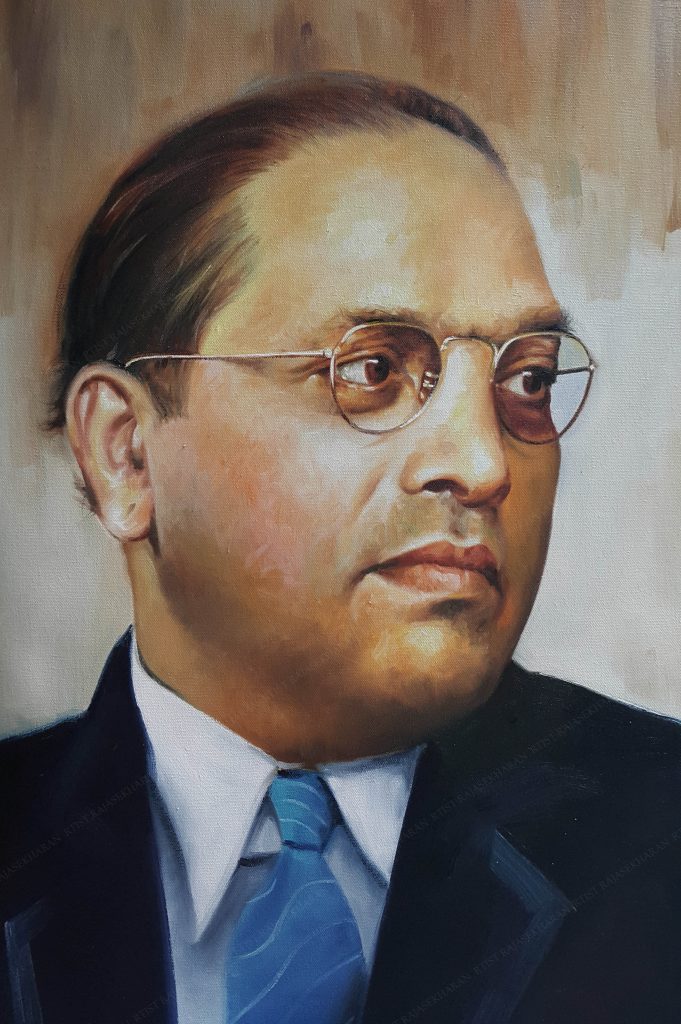
23 [Destroying Caste would not destroy the true principles of Religion]
[1:] Some may not understand what I mean by destruction of Religion; some may find the idea revolting to them, and some may find it revolutionary. Let me therefore explain my position. I do not know whether you draw a distinction between principles and rules. But I do. Not only do I make a distinction, but I say that this distinction is real and important. Rules are practical; they are habitual ways of doing things according to prescription. But principles are intellectual; they are useful methods of judging things. Rules seek to tell an agent just what course of action to pursue. Principles do not prescribe a specific course of action. Rules, like cooking recipes, do tell just what to do and how to do it. A principle, such as that of justice, supplies a main heading by reference to which he is to consider the bearings of his desires and purposes; it guides him in his thinking by suggesting to him the important consideration which he should bear in mind.
Rules, like cooking recipes, do tell just what to do and how to do it. A principle, such as that of justice, supplies a main heading by reference to which he is to consider the bearings of his desires and purposes; it guides him in his thinking by suggesting to him the important consideration which he should bear in mind.
[2:] This difference between rules and principles makes the acts done in pursuit of them different in quality and in content. Doing what is said to be good by virtue of a rule, and doing good in the light of a principle, are two different things. The principle may be wrong, but the act is conscious and responsible. The rule may be right, but the act is mechanical. A religious act may not be a correct act, but must at least be a responsible act. To permit of this responsibility, Religion must mainly be a matter of principles only. It cannot be a matter of rules. The moment it degenerates into rules, it ceases to be Religion, as it kills the responsibility which is the essence of a truly religious act.
Religion must mainly be a matter of principles only. It cannot be a matter of rules. The moment it degenerates into rules, it ceases to be Religion, as it kills the responsibility which is the essence of a truly religious act.
[3:] What is this Hindu Religion? Is it a set of principles, or is it a code of rules? Now the Hindu Religion, as contained in the Vedas and the Smritis, is nothing but a mass of sacrificial, social, political, and sanitary rules and regulations, all mixed up. What is called Religion by the Hindus is nothing but a multitude of commands and prohibitions. Religion, in the sense of spiritual principles, truly universal, applicable to all races, to all countries, to all times, is not to be found in them; and if it is, it does not form the governing part of a Hindu’s life. That for a Hindu, Dharma means commands and prohibitions, is clear from the way the word Dharma is used in the Vedas and the Smritis and understood by the commentators. The word Dharma as used in the Vedas in most cases means religious ordinances or rites. Even Jaimini in his Purva-Mimamsa defines Dharma as “a desirable goal or result that is indicated by injunctive (Vedic) passages.”
[4:] To put it in plain language, what the Hindus call Religion is really Law, or at best-legalized class-ethics. Frankly, I refuse to call this code of ordinances as Religion. The first evil of such a code of ordinances, misrepresented to the people as Religion, is that it tends to deprive moral life of freedom and spontaneity, and to reduce it (for the conscientious, at any rate) to a more or less anxious and servile conformity to externally imposed rules. Under it, there is no loyalty to ideals; there is only conformity to commands.
To put it in plain language, what the Hindus call Religion is really Law, or at best-legalized class-ethics. Frankly, I refuse to call this code of ordinances as Religion.
[5:] But the worst evil of this code of ordinances is that the laws it contains must be the same yesterday, today, and forever. They are iniquitous in that they are not the same for one class as for another. But this iniquity is made perpetual in that they are prescribed to be the same for all generations. The objectionable part of such a scheme is not that they are made by certain persons called Prophets or Law-givers. The objectionable part is that this code has been invested with the character of finality and fixity. Happiness notoriously varies with the conditions and circumstances of a person, as well as with the conditions of different people and epochs. That being the case, how can humanity endure this code of eternal laws, without being cramped and without being crippled?
But the worst evil of this code of ordinances is that the laws it contains must be the same yesterday, today, and forever. They are iniquitous in that they are not the same for one class as for another. But this iniquity is made perpetual in that they are prescribed to be the same for all generations.
[6:] I have, therefore, no hesitation in saying that such a religion must be destroyed, and I say there is nothing irreligious in working for the destruction of such a religion. Indeed I hold that it is your bounden duty to tear off the mask, to remove the misrepresentation that is caused by misnaming this Law as Religion. This is an essential step for you. Once you clear the minds of the people of this misconception, and enable them to realize that what they are told is Religion is not Religion, but that it is really Law, you will be in a position to urge its amendment or abolition.
Once you clear the minds of the people of this misconception, and enable them to realize that what they are told is Religion is not Religion, but that it is really Law, you will be in a position to urge its amendment or abolition.
[7:] So long as people look upon it as Religion they will not be ready for a change, because the idea of Religion is generally speaking not associated with the idea of change. But the idea of law is associated with the idea of change, and when people come to know that what is called Religion is really Law, old and archaic, they will be ready for a change, for people know and accept that law can be changed.
24 [A true priesthood should be based on qualification, not heredity]
[1:] While I condemn a Religion of Rules, I must not be understood to hold the opinion that there is no necessity for a religion. On the contrary, I agree with Burke when he says that “True religion is the foundation of society, the basis on which all true Civil Government rests, and both their sanction”. Consequently, when I urge that these ancient rules of life be annulled, I am anxious that their place shall be taken by a Religion of Principles, which alone can lay claim to being a true Religion. Indeed, I am so convinced of the necessity of Religion that I feel I ought to tell you in outline what I regard as necessary items in this religious reform. The following, in my opinion, should be the cardinal items in this reform:
- There should be one and only one standard book of Hindu Religion, acceptable to all Hindus and recognized by all Hindus. This of course means that all other books of Hindu religion such as Vedas, Shastras, and Puranas, which are treated as sacred and authoritative, must by law cease to be so, and the preaching of any doctrine, religious or social, contained in these books should be penalized.
- It would be better if priesthood among Hindus were abolished. But as this seems to be impossible, the priesthood must at least cease to be hereditary. Every person who professes to be a Hindu must be eligible for being a priest. It should be provided by law that no Hindu shall be entitled to be a priest unless he has passed an examination prescribed by the State, and holds a sanad from the State permitting him to practise.
- No ceremony performed by a priest who does not hold a sanad shall be deemed to be valid in law, and it should be made penal [=punishable] for a person who has no sanad to officiate as a priest.
- A priest should be the servant of the State, and should be subject to the disciplinary action of the State in the matter of his morals, beliefs, and worship, in addition to his being subject along with other citizens to the ordinary law of the land.
- The number of priests should be limited by law according to the requirements of the State, as is done in the case of the I.C.S.
I agree with Burke when he says that “True religion is the foundation of society, the basis on which all true Civil Government rests, and both their sanction”. Consequently, when I urge that these ancient rules of life be annulled, I am anxious that their place shall be taken by a Religion of Principles, which alone can lay claim to being a true Religion.
[2:] To some, this may sound radical. But to my mind there is nothing revolutionary in this. Every profession in India is regulated. Engineers must show proficiency, doctors must show proficiency, lawyers must show proficiency, before they are allowed to practise their professions. During the whole of their career, they must not only obey the law of the land, civil as well as criminal, but they must also obey the special code of morals prescribed by their respective professions. The priest’s is the only profession where proficiency is not required. The profession of a Hindu priest is the only profession which is not subject to any code.
[3:] Mentally a priest may be an idiot, physically a priest may be suffering from a foul disease such as syphilis or gonorrhea, morally he may be a wreck. But he is fit to officiate at solemn ceremonies, to enter the sanctum sanctorum [=holiest part] of a Hindu temple, and to worship the Hindu God. All this becomes possible among the Hindus because for a priest it is enough to be born in a priestly caste. The whole thing is abominable, and is due to the fact that the priestly class among Hindus is subject neither to law nor to morality. It recognizes no duties. It knows only of rights and privileges. It is a pest which divinity seems to have let loose on the masses for their mental and moral degradation.
[4:] The priestly class must be brought under control by some such legislation as I have outlined above. This will prevent it from doing mischief and from misguiding people. It will democratise it by throwing it open to everyone. It will certainly help to kill the Brahminism and will also help to kill Caste, which is nothing but Brahminism incarnate. Brahminism is the poison which has spoiled Hinduism. You will succeed in saving Hinduism if you will kill Brahminism. There should be no opposition to this reform from any quarter. It should be welcomed even by the Arya Samajists, because this is merely an application of their own doctrine of guna-karma.
[5:] Whether you do that or you do not, you must give a new doctrinal basis to your Religion—a basis that will be in consonance with Liberty, Equality and Fraternity; in short, with Democracy. I am no authority on the subject. But I am told that for such religious principles as will be in consonance with Liberty, Equality and Fraternity, it may not be necessary for you to borrow from foreign sources, and that you could draw for such principles on the Upanishads. Whether you could do so without a complete remoulding, a considerable scraping and chipping off from the ore they contain, is more than I can say. This means a complete change in the fundamental notions of life. It means a complete change in the values of life. It means a complete change in outlook and in attitude towards men and things.
You must give a new doctrinal basis to your Religion—a basis that will be in consonance with Liberty, Equality and Fraternity; in short, with Democracy. I am no authority on the subject. But I am told that for such religious principles as will be in consonance with Liberty, Equality and Fraternity, it may not be necessary for you to borrow from foreign sources, and that you could draw for such principles on the Upanishads. Whether you could do so without a complete remoulding, a considerable scraping and chipping off from the ore they contain, is more than I can say.
[6:] It means conversion—but if you do not like the word, I will say it means new life. But a new life cannot enter a body that is dead. New life can enter only into a new body. The old body must die before a new body can come into existence and a new life can enter into it. To put it simply: the old must cease to be operative before the new can begin to enliven [=to live] and to pulsate. This is what I meant when I said you must discard the authority of the Shastras, and destroy the religion of the Shastras.
25 [If Hindu Society is to progress, its traditions must be able to evolve]
[1:] I have kept you too long. It is time I brought this address to a close. This would have been a convenient point for me to have stopped. But this would probably be my last address to a Hindu audience, on a subject vitally concerning the Hindus. I would therefore like, before I close, to place before the Hindus, if they will allow me, some questions which I regard as vital, and invite them seriously to consider the same.
[2:] In the first place, the Hindus must consider whether it is sufficient to take the placid view of the anthropologist that there is nothing to be said about the beliefs, habits, morals, and outlooks on life which obtain among the different peoples of the world, except that they often differ; or whether it is not necessary to make an attempt to find out what kind of morality, beliefs, habits, and outlook have worked best and have enabled those who possessed them to flourish, to grow strong, to people the earth and to have dominion over it. As is observed by Prof. Carver,
“Morality and religion, as the organised expression of moral approval and disapproval, must be regarded as factors in the struggle for existence as truly as are weapons for offence and defence, teeth and claws, horns and hoofs, furs and feathers. The social group, community, tribe, or nation, which develops an unworkable scheme of morality or within which those social acts which weaken it and unfit it for survival, habitually create the sentiment of approval, while those which would strengthen and enable it to be expanded habitually create the sentiment of disapproval, will eventually be eliminated. It is its habits of approval or disapproval (these are the results of religion and morality) that handicap it, as really as the possession of two wings on one side with none on the other will handicap the colony of flies. It would be as futile in the one case as in the other to argue, that one system is just as good as another.”
[3:] Morality and religion, therefore, are not mere matters of likes and dislikes. You may dislike exceedingly a scheme of morality which, if universally practised within a nation, would make that nation the strongest nation on the face of the earth. Yet in spite of your dislike, such a nation will become strong. You may like exceedingly a scheme of morality and an ideal of justice which, if universally practised within a nation, would make it unable to hold its own in the struggle with other nations. Yet in spite of your admiration, this nation will eventually disappear. The Hindus must, therefore, examine their religion and their morality in terms of their survival value.
The Hindus must… examine their religion and their morality in terms of their survival value.
[4:] Secondly, the Hindus must consider whether they should conserve the whole of their social heritage, or select what is helpful and transmit to future generations only that much and no more. Prof. John Dewey, who was my teacher and to whom I owe so much, has said: “Every society gets encumbered with what is trivial, with dead wood from the past, and with what is positively perverse. As a society becomes more enlightened, it realizes that it is responsible not to conserve and transmit the whole of its existing achievements, but only such as make for a better future society.” Even Burke, in spite of the vehemence with which he opposed the principle of change embodied in the French Revolution, was compelled to admit that “a State without the means of some change is without the means of its conservation. Without such means it might even risk the loss of that part of the constitution which it wished the most religiously to preserve.” What Burke said of a State applies equally to a society.
“Every society gets encumbered with what is trivial, with dead wood from the past, and with what is positively perverse. As a society becomes more enlightened, it realizes that it is responsible not to conserve and transmit the whole of its existing achievements, but only such as make for a better future society.”
[5:] Thirdly, the Hindus must consider whether they must not cease to worship the past as supplying their ideals. The baneful effects of this worship of the past are best summed up by Prof. Dewey when he says:
“An individual can live only in the present. The present is not just something which comes after the past; much less something produced by it. It is what life is in leaving the past behind it. The study of past products will not help us to understand the present. A knowledge of the past and its heritage is of great significance when it enters into the present, but not otherwise. And the mistake of making the records and remains of the past the main material of education is that it tends to make the past a rival of the present and the present a more or less futile imitation of the past.”
“The present is not just something which comes after the past; much less something produced by it. It is what life is in leaving the past behind it.”
[6:] The principle which makes little of the present act of living and growing, naturally looks upon the present as empty and upon the future as remote. Such a principle is inimical to progress, and is a hindrance to a strong and a steady current of life.
[7:] Fourthly, the Hindus must consider whether the time has not come for them to recognize that there is nothing fixed, nothing eternal, nothing sanatan; that everything is changing, that change is the law of life for individuals as well as for society. In a changing society, there must be a constant revolution of old values; and the Hindus must realize that if there must be standards to measure the acts of men, there must also be a readiness to revise those standards.
The Hindus must consider whether the time has not come for them to recognize that there is nothing fixed, nothing eternal, nothing sanatan; that everything is changing, that change is the law of life for individuals as well as for society.
26 [The struggle is yours; I have now decided to leave the Hindu fold]
[1:] I have to confess that this address has become too lengthy. Whether this fault is compensated to any extent by breadth or depth is a matter for you to judge. All I claim is to have told you candidly my views. I have little to recommend them but some study and a deep concern in your destiny. If you will allow me to say it, these views are the views of a man who has been no tool of power, no flatterer of greatness. They come from one, almost the whole of whose public exertion has been one continuous struggle for liberty for the poor and for the oppressed, and whose only reward has been a continuous shower of calumny and abuse from national journals and national leaders, for no other reason except that I refuse to join with them in performing the miracle—I will not say trick—of liberating the oppressed with the gold of the tyrant, and raising the poor with the cash of the rich.
These views are the views of a man who has been no tool of power, no flatterer of greatness. They come from one, almost the whole of whose public exertion has been one continuous struggle for liberty for the poor and for the oppressed, and whose only reward has been a continuous shower of calumny and abuse from national journals and national leaders, for no other reason except that I refuse to join with them in performing the miracle—I will not say trick—of liberating the oppressed with the gold of the tyrant, and raising the poor with the cash of the rich.
[2:] All this may not be enough to commend my views. I think they [=Dr. Ambedkar’s views] are not likely to alter yours. But whether they do or do not, the responsibility is entirely yours. You must make your efforts to uproot Caste, if not in my way, then in your way.
You must make your efforts to uproot Caste, if not in my way, then in your way.
[3:] I am sorry, I will not be with you. I have decided to change. This is not the place for giving reasons. But even when I am gone out of your fold, I will watch your movement with active sympathy, and you will have my assistance for what it may be worth. Yours is a national cause. Caste is no doubt primarily the breath of the Hindus. But the Hindus have fouled the air all over, and everybody is infected—Sikh, Muslim, and Christian. You, therefore, deserve the support of all those who are suffering from this infection—Sikh, Muslim, and Christian.
Caste is no doubt primarily the breath of the Hindus. But the Hindus have fouled the air all over, and everybody is infected—Sikh, Muslim, and Christian.
[4:] Yours is more difficult than the other national cause, namely Swaraj. In the fight for Swaraj you fight with the whole nation on your side. In this, you have to fight against the whole nation—and that too, your own. But it is more important than Swaraj. There is no use having Swaraj, if you cannot defend it. More important than the question of defending Swaraj is the question of defending the Hindus under the Swaraj. In my opinion, it is only when Hindu Society becomes a casteless society that it can hope to have strength enough to defend itself. Without such internal strength, Swaraj for Hindus may turn out to be only a step towards slavery. Good-bye, and good wishes for your success.
In the fight for Swaraj you fight with the whole nation on your side. In this, you have to fight against the whole nation—and that too, your own. But it is more important than Swaraj.
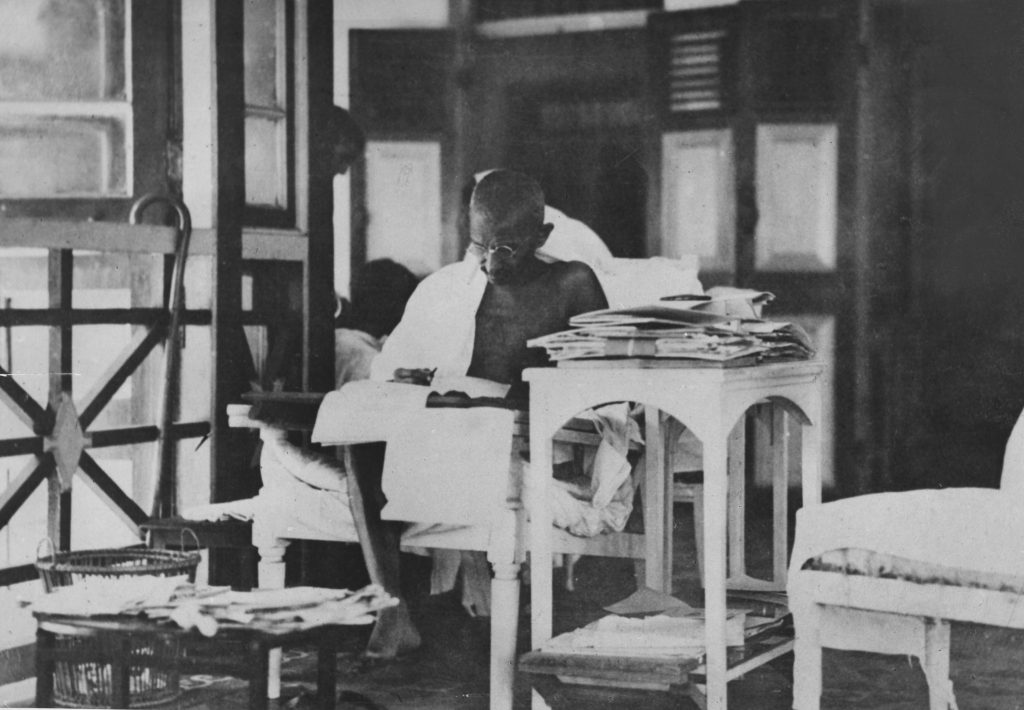
A Vindication Of Caste By Mahatma Gandhi
(A Reprint of his Articles in the Harijan)
[1:] Dr. Ambedkar’s Indictment (I)
[2:] The readers will recall the fact that Dr. Ambedkar was to have presided last May at the annual conference of the Jat-Pat-Todak Mandal of Lahore. But the conference itself was cancelled because Dr. Ambedkar’s address was found by the Reception Committee to be unacceptable. How far a Reception Committee is justified in rejecting a President of its choice because of his address that may be objectionable to it is open to question. The Committee knew Dr. Ambedkar’s views on caste and the Hindu scriptures. They knew also that he had in unequivocal terms decided to give up Hinduism. Nothing less than the address that Dr. Ambedkar had prepared was to be expected from him. The committee appears to have deprived the public of an opportunity of listening to the original views of a man who has carved out for himself a unique position in society. Whatever label he wears in future, Dr. Ambedkar is not the man to allow himself to be forgotten.
“Whatever label he wears in future, Dr. Ambedkar is not the man to allow himself to be forgotten.” —Gandhi
[3:] Dr. Ambedkar was not going to be beaten by the Reception Committee. He has answered their rejection of him by publishing the address at his own expense. He has priced it at 8 annas, I would suggest a reduction to 2 annas or at least [=at most] 4 annas.
[4:] No reformer can ignore the address. The orthodox will gain by reading it. This is not to say that the address is not open to objection. It has to be read only because it is open to serious objection. Dr. Ambedkar is a challenge to Hinduism. Brought up as a Hindu, educated by a Hindu potentate, he has become so disgusted with the so-called Savarna Hindus or the treatment that he and his people have received at their hands that he proposes to leave not only them but the very religion that is his and their common heritage. He has transferred to that religion, his disgust against a part of its professors [=believers].
“Dr. Ambedkar is a challenge to Hinduism. Brought up as a Hindu, educated by a Hindu potentate, he has become so disgusted with the so-called Savarna Hindus or the treatment that he and his people have received at their hands that he proposes to leave not only them but the very religion that is his and their common heritage.” —Gandhi
[5:] But this is not to be wondered at. After all, one can only judge a system or an institution by the conduct of its representatives. What is more, Dr. Ambedkar found that the vast majority of Savarna Hindus had not only conducted themselves inhumanly against those of their fellow religionists whom they classed as untouchables, but they had based their conduct on the authority of their scriptures, and when he began to search them he had found ample warrant for their beliefs in untouchability and all its implications. The author of the address has quoted chapter and verse in proof of his three-fold indictment—inhuman conduct itself, the unabashed justification for it on the part of the perpetrators, and the subsequent discovery that the justification was warranted by their scriptures.
[6:] No Hindu who prizes his faith above life itself can afford to underrate the importance of this indictment. Dr Ambedkar is not alone in his disgust. He is its most uncompromising exponent and one of the ablest among them. He is certainly the most irreconcilable among them. Thank God, in the front rank of the leaders he is singularly alone, and as yet but a representative of a very small minority. But what he says is voiced with more or less vehemence by many leaders belonging to the depressed classes. Only the latter, for instance Rao Bahadur M. C. Rajah and Dewan Bahadur Srinivasan, not only do not threaten to give up Hinduism, but find enough warmth in it to compensate for the shameful persecution to which the vast mass of Harijans are exposed.
“No Hindu who prizes his faith above life itself can afford to underrate the importance of this indictment. Dr Ambedkar is not alone in his disgust. He is its most uncompromising exponent and one of the ablest among them. He is certainly the most irreconcilable among them. Thank God, in the front rank of the leaders he is singularly alone… ” —Gandhi
[7:] But the fact of many leaders remaining in the Hindu fold is no warrant for disregarding what Dr. Ambedkar has to say. The Savarnas have to correct their belief and their conduct. Above all, those who are [preeminent] by their learning and influence among the Savarnas have to give an authoritative interpretation of the scriptures. The questions that Dr. Ambedkar’s indictment suggests are:
[8:]
- What are the scriptures?
- Are all the printed texts to be regarded as an integral part of them, or is any part of them to be rejected as unauthorised interpolation?
- What is the answer of such accepted and expurgated scriptures on the question of untouchability, caste, equality of status, inter-dining and intermarriages? (These have been all examined by Dr. Ambedkar in his address.)
- I must reserve for the next issue my own answer to these questions and a statement of the (at least some) manifest flaws in Dr. Ambedkar’s thesis.
(Harijan, July 11, 1936)
[9:] Dr. Ambedkar’s Indictment (II)
[10:] The Vedas, Upanishads, Smritis and Puranas, including the Ramayana and the Mahabharata, are the Hindu Scriptures. Nor is this a finite list. Every age or even generation has added to the list. It follows, therefore, that everything printed or even found handwritten is not scripture. The Smritis, for instance, contain much that can never be accepted as the word of God. Thus many of the texts that Dr. Ambedkar quotes from the Smritis cannot be accepted as authentic. The scriptures, properly so-called, can only be concerned with eternal verities and must appeal to any conscience, i.e. any heart whose eyes of understanding are opened. Nothing can be accepted as the word of God which cannot be tested by reason or be capable of being spiritually experienced. And even when you have an expurgated edition of the scriptures, you will need their interpretation. Who is the best interpreter? Not learned men surely. Learning there must be. But religion does not live by it. It lives in the experiences of its saints and seers, in their lives and sayings. When all the most learned commentators of the scriptures are utterly forgotten, the accumulated experience of the sages and saints will abide and be an inspiration for ages to come.
“The Smritis, for instance, contain much that can never be accepted as the word of God. Thus many of the texts that Dr. Ambedkar quotes from the Smritis cannot be accepted as authentic. The scriptures, properly so-called, can only be concerned with eternal verities and must appeal to any conscience, i.e. any heart whose eyes of understanding are opened. Nothing can be accepted as the word of God which cannot be tested by reason or be capable of being spiritually experienced. And even when you have an expurgated edition of the scriptures, you will need their interpretation… (Religion) lives in the experiences of its saints and seers, in their lives and sayings. When all the most learned commentators of the scriptures are utterly forgotten, the accumulated experience of the sages and saints will abide and be an inspiration for ages to come.” —Gandhi
[11:] Caste has nothing to do with religion. It is a custom whose origin I do not know, and do not need to know for the satisfaction of my spiritual hunger. But I do know that it is harmful both to spiritual and national growth. Varna and Ashrama are institutions which have nothing to do with castes. The law of Varna teaches us that we have each one of us to earn our bread by following the ancestral calling. It defines not our rights but our duties. It necessarily has reference to callings that are conducive to the welfare of humanity and to no other. It also follows that there is no calling too low and none too high. All are good, lawful and absolutely equal in status. The callings of a Brahmin—spiritual teacher—and a scavenger are equal, and their due performance carries equal merit before God, and at one time seems to have carried identical reward before man. Both were entitled to their livelihood and no more. Indeed one traces even now in the villages the faint lines of this healthy operation of the law.
“Caste has nothing to do with religion… But I do know that it is harmful both to spiritual and national growth. Varna and Ashrama are institutions which have nothing to do with castes.” —Gandhi
[12:] Living in Segaon with its population of 600, I do not find a great disparity between the earnings of different tradesmen, including Brahmins. I find too that real Brahmins are to be found, even in these degenerate days, who are living on alms freely given to them and are giving freely of what they have of spiritual treasures. It would be wrong and improper to judge the law of Varna by its caricature in the lives of men who profess to belong to a Varna, whilst they openly commit a breach of its only operative rule. Arrogation of a superior status by and of the Varna over another is a denial of the law. And there is nothing in the law of Varna to warrant a belief in untouchability. (The essence of Hinduism is contained in its enunciation of one and only [one] God as Truth and its bold acceptance of Ahimsa as the law of the human family.)
“It would be wrong and improper to judge the law of Varna by its caricature in the lives of men who profess to belong to a Varna, whilst they openly commit a breach of its only operative rule. Arrogation of a superior status by and of the Varna over another is a denial of the law. And there is nothing in the law of Varna to warrant a belief in untouchability.” —Gandhi
[13:] I am aware that my interpretation of Hinduism will be disputed by many besides Dr. Ambedkar. That does not affect my position. It is an interpretation by which I have lived for nearly half a century, and according to which I have endeavoured to the best of my ability to regulate my life.
[14:] In my opinion the profound mistake that Dr. Ambedkar has made in his address is to pick out the texts of doubtful authenticity and value, and the state of degraded Hindus who are no fit specimens of the faith they so woefully misrepresent. Judged by the standard applied by Dr. Ambedkar, every known living faith will probably fail.
[15:] In his able address, the learned Doctor has overproved his case. Can a religion that was professed by Chaitanya, Jnyandeo, Tukaram, Tiruvalluvar, Ramakrishna Paramahansa, Raja Ram Mohan Roy, Maharshi Devendranath Tagore, Vivekanand, and a host of others who might be easily mentioned, be so utterly devoid of merit as is made out in Dr. Ambedkar’s address? A religion has to be judged not by its worst specimens, but by the best it might have produced. For that and that alone can be used as the standard to aspire to, if not to improve upon.
“The profound mistake that Dr. Ambedkar has made in his address is to pick out the texts of doubtful authenticity and value, and the state of degraded Hindus who are no fit specimens of the faith they so woefully misrepresent. Judged by the standard applied by Dr. Ambedkar, every known living faith will probably fail… A religion has to be judged not by its worst specimens, but by the best it might have produced. For that and that alone can be used as the standard to aspire to, if not to improve upon.” —Gandhi
(Harijan, July 18, 1936)
[16:] Varna Versus Caste (III)
[17:] Shri Sant Ramji of the Jat-Pat-Todak Mandal of Lahore wants me to publish the following: “I have read your remarks about Dr. Ambedkar and the Jat-Pat-Todak Mandal, Lahore. In that connection I beg to submit as follows:
[18:] We did not invite Dr. Ambedkar to preside over our conference because he belonged to the Depressed Classes, for we do not distinguish between a touchable and an untouchable Hindu. On the contrary our choice fell on him simply because his diagnosis of the fatal disease of the Hindu community was the same as ours; i.e., he too was of the opinion that the caste system was the root cause of the disruption and downfall of the Hindus. The subject of the Doctor’s thesis for his Doctorate being the caste system, he has studied the subject thoroughly. Now the object of our conference was to persuade the Hindus to annihilate castes, but the advice of a non-Hindu in social and religious matters can have no effect on them. The Doctor in the supplementary portion of his address insisted on saying that that was his last speech as a Hindu, which was irrelevant as well as pernicious to the interests of the conference. So we requested him to expunge that sentence, for he could easily say the same thing on any other occasion. But he refused, and we saw no utility in making merely a show of our function. In spite of all this, I cannot help praising his address, which is, as far as I know, the most learned thesis on the subject and worth translating into every vernacular of India.
“I cannot help praising his address, which is, as far as I know, the most learned thesis on the subject and worth translating into every vernacular of India.” —Sant Ram
[19:] Moreover, I want to bring to your notice that your philosophical difference between Caste and Varna is too subtle to be grasped by people in general, because for all practical purposes in the Hindu society Caste and Varna are one and the same thing, for the function of both of them is one and the same, i.e. to restrict inter-caste marriages and inter-dining. Your theory of Varnavyavastha is impracticable in this age, and there is no hope of its revival in the near future. But Hindus are slaves of caste, and do not want to destroy it. So when you advocate your ideal of imaginary Varnavyavastha, they find justification for clinging to caste. Thus you are doing a great disservice to social reform by advocating your imaginary utility of the division of Varnas, for it creates a hindrance in our way. To try to remove untouchability without striking at the root of Varnavyavastha is simply to treat the outward symptoms of a disease, or to draw a line on the surface of water. As in the heart of their hearts Dvijas do not want to give social equality to the so-called touchable and untouchable Shudras, so they refuse to break caste—and give liberal donations for the removal of untouchability simply to evade the issue. To seek the help of the Shastras for the removal of untouchability and caste is simply to wash mud with mud.”
“Your philosophical difference between Caste and Varna is too subtle to be grasped by people in general… Hindus are slaves of caste, and do not want to destroy it. So when you advocate your ideal of imaginary Varnavyavastha, they find justification for clinging to caste. Thus you are doing a great disservice to social reform by advocating your imaginary utility of the division of Varnas, for it creates a hindrance in our way.” —Sant Ram
[20:] The last paragraph of the letter surely cancels the first. If the Mandal rejects the help of the Shastras, they do exactly what Dr. Ambedkar does, i.e. cease to be Hindus. How then can they object to Dr. Ambedkar’s address merely because he said that that was his last speech as a Hindu? The position appears to be wholly untenable, especially when the Mandal, for which Shri Sant Ram claims to speak, applauds the whole argument of Dr. Ambedkar’s address.
“If the Mandal rejects the help of the Shastras, they do exactly what Dr. Ambedkar does, i.e. cease to be Hindus.” —Gandhi
[21:] But it is pertinent to ask what the Mandal believes, if it rejects the Shastras. How can a Muslim remain one if he rejects the Quran, or a Christian remain Christian if he rejects the Bible? If Caste and Varna are convertible terms, and if Varna is an integral part of the Shastras which define Hinduism, I do not know how a person who rejects Caste, i.e. Varna, can call himself a Hindu.
[22:] Shri Sant Ram likens the Shastras to mud. Dr. Ambedkar has not, so far as I remember, given any such picturesque name to the Shastras. I have certainly meant when I have said: that if Shastras support the existing untouchability I should cease to call myself a Hindu. Similarly, if the Shastras support caste as we know it today in all its hideousness, I may not call myself or remain a Hindu, since I have no scruples about inter-dining or intermarriage. I need not repeat my position regarding Shastras and their interpretation. I venture to suggest to Shri Sant Ram that it is the only rational and correct and morally defensible position, and it has ample warrant in Hindu tradition.(Harijan, August 15, 1936)
“If Shastras support the existing untouchability I should cease to call myself a Hindu. Similarly, if the Shastras support caste as we know it today in all its hideousness, I may not call myself or remain a Hindu, since I have no scruples about inter-dining or intermarriage. I need not repeat my position regarding Shastras and their interpretation.” —Gandhi
A Reply to the Mahatma by Dr. B. R. Ambedkar
[1:] 1
I appreciate greatly the honour done me by the Mahatma in taking notice in his Harijan of the speech on Caste which I had prepared for the Jat-Pat-Todak Mandal. From a perusal of his review of my speech, it is clear that the Mahatma completely dissents from the views I have expressed on the subject of Caste. I am not in the habit of entering into controversy with my opponents unless there are special reasons which compel me to act otherwise. Had my opponent been some mean and obscure person, I would not have pursued him. But my opponent being the Mahatma himself, I feel I must attempt to meet the case to the contrary which he has sought to put forth.
[2:] While I appreciate the honour he has done me, I must confess to a sense of surprise on finding that of all people the Mahatma should accuse me of a desire to seek publicity, as he seems to do when he suggests that in publishing the undelivered speech my object was to see that I was not “forgotten.” Whatever the Mahatma may choose to say, my object in publishing the speech was to provoke the Hindus to think, and to take stock of their position. I have never hankered for publicity, and if I may say so, I have more of it than I wish or need. But supposing it was out of the motive of gaining publicity that I printed the speech, who could cast a stone at me? Surely not those who, like the Mahatma, live in glass houses.
“I have never hankered for publicity, and if I may say so, I have more of it than I wish or need. But supposing it was out of the motive of gaining publicity that I printed the speech, who could cast a stone at me? Surely not those who, like the Mahatma, live in glass houses.” —Ambedkar
[3:] 2
Motive apart, what has the Mahatma to say on the question raised by me in the speech? First of all, anyone who reads my speech will realize that the Mahatma has entirely missed the issues raised by me, and that the issues he has raised are not the issues that arise out of what he is pleased to call my indictment of the Hindus. The principal points which I have tried to make out in my speech may be catalogued as follows:
[4:]
- That Caste has ruined the Hindus;
- That the reorganization of the Hindu Society on the basis of Chaturvarnya is impossible because the Varnavyavastha is like a leaky pot or like a man running at the nose. It is incapable of sustaining itself by its own virtue, and has an inherent tendency to degenerate into a Caste System unless there is a legal sanction behind it which can be enforced against everyone transgressing his Varna;
- That the reorganization of the Hindu Society on the basis of Chaturvarnya would be harmful, because the effect of the Varnavyavastha would be to degrade the masses by denying them opportunity to acquire knowledge, and to emasculate them by denying them the right to be armed;
- That the Hindu Society must be reorganized on a religious basis which would recognise the principles of Liberty, Equality and Fraternity;
- That in order to achieve this object the sense of religious sanctity behind Caste and Varna must be destroyed;
- That the sanctity of Caste and Varna can be destroyed only by discarding the divine authority of the Shastras.
[5:] It will be noticed that the questions raised by the Mahatma are absolutely beside the point, and show that the main argument of the speech was lost upon him.
[6:] 3
Let me examine the substance of the points made by the Mahatma. The first point made by the Mahatma is that the texts cited by me are not authentic. I confess I am no authority on this matter. But I should like to state that the texts cited by me are all taken from the writings of the late Mr. Tilak, who was a recognised authority on the Sanskrit language and on the Hindu Shastras. His second point is that these Shastras should be interpreted not by the learned but by the saints; and that as the saints have understood them, the Shastras do not support Caste and Untouchability.
[7:] As regards the first point, what I would like to ask the Mahatma is, what does it avail to anyone if the texts are interpolations, and if they have been differently interpreted by the saints? The masses do not make any distinction between texts which are genuine and texts which are interpolations. The masses do not know what the texts are. They are too illiterate to know the contents of the Shastras. They have believed what they have been told, and what they have been told is that the Shastras do enjoin as a religious duty the observance of Caste and Untouchability.
“What does it avail to anyone if the texts are interpolations, and if they have been differently interpreted by the saints? The masses do not make any distinction between texts which are genuine and texts which are interpolations. The masses do not know what the texts are. They are too illiterate to know the contents of the Shastras.” —Ambedkar
[8:] With regard to the saints, one must admit that howsoever different and elevating their teachings may have been as compared to those of the merely learned, they have been lamentably ineffective. They have been ineffective for two reasons. Firstly, none of the saints ever attacked the Caste System. On the contrary—they were staunch believers in the System of Castes. Most of them lived and died as members of the castes to which they respectively belonged. So passionately attached was Jnyandeo to his status as a Brahmin that when the Brahmins of Paithan would not admit him to their fold, he moved heaven and earth to get his status as a Brahmin recognized by the Brahmin fraternity.
“None of the saints ever attacked the Caste System. On the contrary—they were staunch believers in the System of Castes.” —Ambedkar
[9:] And even the saint Eknath, who now figures in the film “Dharmatma” as a hero for having shown the courage to touch the untouchables and dine with them, did so not because he was opposed to Caste and Untouchability, but because he felt that the pollution caused thereby could be washed away by a bath in the sacred waters of the river Ganges.
![]()
The saints have never, according to my study, carried on a campaign against Caste and Untouchability. They were not concerned with the struggle between men. They were concerned with the relation between man and God. They did not preach that all men were equal. They preached that all men were equal in the eyes of God—a very different and a very innocuous proposition, which nobody can find difficult to preach or dangerous to believe in.
[10:] The second reason why the teachings of the saints proved ineffective was because the masses have been taught that a saint might break Caste, but the common man must not. A saint therefore never became an example to follow. He always remained a pious man to be honoured. That the masses have remained staunch believers in Caste and Untouchability shows that the pious lives and noble sermons of the saints have had no effect on their life and conduct, as against the teachings of the Shastras. Thus it can be a matter of no consolation that there were saints, or that there is a Mahatma who understands the Shastras differently from the learned few or ignorant many.
“The second reason why the teachings of the saints proved ineffective was because the masses have been taught that a saint might break Caste, but the common man must not. A saint therefore never became an example to follow… That the masses have remained staunch believers in Caste and Untouchability shows that the pious lives and noble sermons of the saints have had no effect on their life and conduct, as against the teachings of the Shastras.” —Ambedkar
[11:] That the masses hold a different view of the Shastras is a fact which should and must be reckoned with. How that is to be dealt with, except by denouncing the authority of the Shastras which continue to govern their conduct, is a question which the Mahatma has not considered. But whatever the plan the Mahatma puts forth as an effective means to free the masses from the teachings of the Shastras, he must accept that the pious life led by one good Samaritan may be very elevating to himself, but in India, with the attitude the common man has to saints and to Mahatmas—to honour but not to follow—one cannot make much out of it.
[12:] 4
The third point made by the Mahatma is that a religion professed by Chaitanya, Jnyandeo, Tukaram, Tiruvalluvar, Ramkrishna Paramahansa, etc., cannot be devoid of merit as is made out by me, and that a religion has to be judged not by its worst specimens but by the best it might have produced. I agree with every word of this statement. But
I do not quite understand what the Mahatma wishes to prove thereby. That religion should be judged not by its worst specimens but by its best is true enough, but does it dispose of the matter? I say it does not.
[13:] The question still remains, why the worst number so many and the best so few. To my mind there are two conceivable answers to this question: (1) That the worst by reason of some original perversity of theirs are morally uneducable, and are therefore incapable of making the remotest approach to the religious ideal. Or: (2) That the religious ideal is a wholly wrong ideal which has given a wrong moral twist to the lives of the many, and that the best have become best in spite of the wrong ideal—in fact, by giving to the wrong twist a turn in the right direction.
“That religion should be judged not by its worst specimens but by its best is true… The question still remains, why the worst number so many and the best so few.” —Ambedkar
[14:] Of these two explanations I am not prepared to accept the first, and I am sure that even the Mahatma will not insist upon the contrary. To my mind the second is the only logical and reasonable explanation, unless the Mahatma has a third alternative to explain why the worst are so many and the best so few. If the second is the only explanation, then obviously the argument of the Mahatma that a religion should be judged by its best followers carries us nowhere—except to pity the lot of the many who have gone wrong because they have been made to worship wrong ideals.
[15:] 5
The argument of the Mahatma that Hinduism would be tolerable if only many were to follow the example of the saints is fallacious for another reason. (In this connection, see the illuminating article on “Morality and the Social Structure” by Mr. H. N. Brailsford in the Aryan Path for April 1936.) By citing the names of such illustrious persons as Chaitanya, etc, what the Mahatma seems to me to suggest in its broadest and simplest form is that Hindu society can be made tolerable and even happy without any fundamental change in its structure, if all the high-caste Hindus can be persuaded to follow a high standard of morality in their dealings with the low-caste Hindus. I am totally opposed to this kind of ideology.
[16:] I can respect those of the caste Hindus who try to realize a high social ideal in their life. Without such men, India would be an uglier and a less happy place to live in than it is. But nonetheless, anyone who relies on an attempt to turn the members of the caste Hindus into better men by improving their personal character is, in my judgment, wasting his energy and hugging an illusion. Can personal character make the maker of armaments a good man, i.e., a man who will sell shells that will not burst and gas that will not poison? If it cannot, how can you accept personal character [as sufficient] to make a man loaded with the consciousness of Caste a good man, i.e., a man who would treat his fellow-men as his friends and equals? To be true to himself, he must deal with his fellow-man either as a superior or inferior, according as the case may be; at any rate, differently from his own caste-fellows. He can never be expected to deal with his fellow-men as his kinsmen and equals.
[17:] As a matter of fact, a Hindu does treat all those who are not of his caste as though they were aliens, who could be discriminated against with impunity, and against whom any fraud or trick may be practised without shame. This is to say that there can be a better or a worse Hindu. But a good Hindu there cannot be. This is so not because there is anything wrong with his personal character. In fact what is wrong is the entire basis of his relationship to his fellows. The best of men cannot be moral if the basis of relationship between them and their fellows is fundamentally a wrong relationship. To a slave, his master may be better or worse. But there cannot be a good master. A good man cannot be a master, and a master cannot be a good man.
“The best of men cannot be moral if the basis of relationship between them and their fellows is fundamentally a wrong relationship. To a slave, his master may be better or worse. But there cannot be a good master.” —Ambedkar
[18:] The same applies to the relationship between high-caste and low-caste. To a low-caste man, a high-caste man can be better or worse as compared to other high-caste men. A high-caste man cannot be a good man, insofar as he must have a low-caste man to distinguish him as a high-caste man. It cannot be good to a low-caste man to be conscious that there is a high-caste man above him. I have argued in my speech that a society based on Varna or Caste is a society which is based on a wrong relationship. I had hoped that the Mahatma would attempt to demolish my argument. But instead of doing that, he has merely reiterated his belief in Chaturvarnya without disclosing the ground on which it is based.
“I have argued in my speech that a society based on Varna or Caste is a society which is based on a wrong relationship. I had hoped that the Mahatma would attempt to demolish my argument. But instead of doing that, he has merely reiterated his belief in Chaturvarnya without disclosing the ground on which it is based.” —Ambedkar
[19:] 6
Does the Mahatma practise what he preaches? One does not like to make personal reference in an argument which is general in its application. But when one preaches a doctrine and holds it as a dogma, there is a curiosity to know how far he practises what he preaches. It may be that his failure to practice is due to the ideal being too high to be attainable; it may be that his failure to practise is due to the innate hypocrisy of the man. In any case he exposes his conduct to examination, and I must not be blamed if I ask, how far has the Mahatma attempted to realize his ideal in his own case?
[20:] The Mahatma is a Bania by birth. His ancestors had abandoned trading in favour of ministership, which is a calling of the Brahmins. In his own life, before he became a Mahatma, when the occasion came for him to choose his career he preferred law to [a merchant’s] scales. On abandoning law, he became half saint and half politician. He has
never touched trading, which is his ancestral calling.
“The Mahatma is a Bania by birth. His ancestors had abandoned trading in favour of ministership, which is a calling of the Brahmins. In his own life, before he became a Mahatma, when the occasion came for him to choose his career he preferred law to [a merchant’s] scales. On abandoning law, he became half saint and half politician.” —Ambedkar
[21:] His youngest son—I take one who is a faithful follower of his father—was born a Vaishya, has married a Brahmin’s daughter, and has chosen to serve a newspaper magnate. The Mahatma is not known to have condemned him for not following his ancestral calling. It may be wrong and uncharitable to judge an ideal by its worst specimens. But surely the Mahatma as a specimen has no better, and if he even fails to realize the ideal then the ideal must be an impossible ideal, quite opposed to the practical instincts of man.
[22:] Students of Carlyle know that he often spoke on a subject before he thought about it. I wonder whether such has not been the case with the Mahatma, in regard to the subject matter of Caste. Otherwise, certain questions which occur to me would not have escaped him. When can a calling be deemed to have become an ancestral calling, so as to make it binding on a man? Must a man follow his ancestral calling even if it does not suit his capacities, even when it has ceased to be profitable? Must a man live by his ancestral calling even if he finds it to be immoral? If everyone must pursue his ancestral calling, then it must follow that a man must continue to be a pimp because his grandfather was a pimp, and a woman must continue to be a prostitute because her grandmother was a prostitute. Is the Mahatma prepared to accept the logical conclusion of his doctrine? To me his ideal of following one’s ancestral calling is not only an impossible and impractical ideal, but it is also morally an indefensible ideal.
“To me his ideal of following one’s ancestral calling is not only an impossible and impractical ideal, but it is also morally an indefensible ideal.” —Ambedkar
[23:] 7
The Mahatma sees great virtue in a Brahmin remaining a Brahmin all his life. Leaving aside the fact that there are many Brahmins who do not like to remain Brahmins all their lives, what can we say about those Brahmins who have clung to their ancestral calling of priesthood? Do they do so from any faith in the virtue of the principle of ancestral calling, or do they do so from motives of filthy lucre? The Mahatma does not seem to concern himself with such queries. He is satisfied that these are “real Brahmins who are living on alms freely given to them, and giving freely what they have of spiritual treasures.” This is how a hereditary Brahmin priest appears to the Mahatma—a carrier of spiritual treasures.
[24:] But another portrait of the hereditary Brahmin can also be drawn. A Brahmin can be a priest to Vishnu—the God of Love. He can be a priest to Shankar—the God of Destruction. He can be a priest at Buddha Gaya worshipping Buddha—the greatest teacher of mankind, who taught the noblest doctrine of Love. He also can be a priest to Kali, the Goddess, who must have a daily sacrifice of an animal to satisfy her thirst for blood. He will be a priest of the temple of Rama—the Kshatriya God! He will also be a priest of the Temple of Parshuram, the God who took on an Avatar to destroy the Kshatriyas! He can be a priest to Bramha, the Creator of the world. He can be a priest to a Pir, whose God Allah will not brook the claim of Bramha to share his spiritual dominion over the world! No one can say that this is a picture which is not true to life.
[25:] If this is a true picture, one does not know what to say of this capacity to bear loyalties to Gods and Goddesses whose attributes are so antagonistic that no honest man can be a devotee to all of them. The Hindus rely upon this extraordinary phenomenon as evidence of the greatest virtue of their religion—namely, its catholicity, its spirit of toleration. As against this facile view, it can be urged that what is [described as] toleration and catholicity may be really nothing more creditable than indifference or flaccid latitudinarianism. These two attitudes are hard to distinguish in their outer seeming. But they are so vitally unlike in their real quality that no one who examines them closely can mistake one for the other.
[26:] That a man is ready to render homage to many Gods and Goddesses may be cited as evidence of his tolerant spirit. But can it not also be evidence of an insincerity born of a desire to serve the times? I am sure that this toleration is merely insincerity. If this view is well founded, one may ask what spiritual treasure can there be within a person who is ready to be a priest and a devotee to any deity which it serves his purpose to worship and to adore? Not only must such a person be deemed to be bankrupt of all spiritual treasures, but for him to practice so elevating a profession as that of a priest simply because it is ancestral—without faith, without belief, merely as a mechanical process handed down from father to son—is not a conservation of virtue; it is really the prostitution of a noble profession which is no other than the service of religion.
[27:] 8
Why does the Mahatma cling to the theory of everyone following his or her ancestral calling? He gives his reasons nowhere. But there must be some reason, although he does not care to avow it. Years ago, writing on “Caste versus Class” in his Young India, he argued that the Caste System was better than a Class System on the ground that Caste was the best possible adjustment for social stability. If that be the reason why the Mahatma clings to the theory of everyone following his or her ancestral calling, then he is clinging to a false view of social life.
“Years ago, writing on “Caste versus Class” in his Young India, he argued that the Caste System was better than a Class System on the ground that Caste was the best possible adjustment for social stability.” —Ambedkar
[28:] Everybody wants social stability, and some adjustment must be made in the relationship between individuals and classes in order that stability may be had. But two things, I am sure, nobody wants. One thing nobody wants is a static relationship, something that is unalterable, something that is fixed for all times. Stability is wanted, but not at the cost of change when change is imperative. The second thing nobody wants is mere adjustment. Adjustment is wanted, but not at the sacrifice of social justice.
[29:] Can it be said that the adjustment of social relationships on the basis of caste—i.e. on the basis of each to his hereditary calling—avoids these two evils? I am convinced that it does not. Far from being the best possible adjustment, I have no doubt that it is of the worst possible kind, inasmuch as it offends against both the canons of social adjustment— namely, fluidity and equity.
[30:] 9
Some might think that the Mahatma has made much progress, inasmuch as he now only believes in Varna and does not believe in Caste. It is true that there was a time when the Mahatma was a full-blooded and a blue-blooded Sanatani Hindu. He believed in the Vedas, the Upanishads, the Puranas, and all that goes by the name of Hindu
scriptures; and therefore, in Avatars and rebirth. He believed in Caste, and defended it with the vigour of the orthodox. He condemned the cry for inter-dining, inter-drinking, and inter-marrying, and argued that restraints about inter-dining to a great extent “helped the cultivation of will-power and the conservation of a certain social virtue”.
“Some might think that the Mahatma has made much progress, inasmuch as he now only believes in Varna and does not believe in Caste. It is true that there was a time when the Mahatma was a full-blooded and a blue-blooded Sanatani Hindu.” —Ambedkar
[31:] It is good that he has repudiated this sanctimonious nonsense and admitted that Caste “is harmful both to spiritual and national growth,” and maybe his son’s marriage outside his caste has had something to do with this change of view. But has the Mahatma really progressed? What is the nature of the Varna for which the Mahatma stands? Is it the Vedic conception as commonly understood and preached by Swami Dayanand Saraswati and his followers, the Arya Samajists? The essence of the Vedic conception of Varna is the pursuit of a calling which is appropriate to one’s natural aptitude. The essence of the Mahatma’s conception of Varna is the pursuit of one’s ancestral calling, irrespective of natural aptitude.
“But has the Mahatma really progressed? What is the nature of the Varna for which the Mahatma stands? … The essence of the Mahatma’s conception of Varna is the pursuit of one’s ancestral calling, irrespective of natural aptitude.” —Ambedkar
[32:] What is the difference between Caste and Varna, as understood by the Mahatma? I find none. As defined by the Mahatma, Varna becomes merely a different name for Caste, for the simple reason that it is the same in essence—namely, pursuit of [one’s] ancestral calling. Far from making progress, the Mahatma has suffered retrogression. By putting this interpretation upon the Vedic conception of Varna, he has really made ridiculous what was sublime. While I reject the Vedic Varnavyavastha for reasons given in the speech, I must admit that the Vedic theory of Varna as interpreted by Swami Dayanand and some others is a sensible and an inoffensive thing. It did not admit birth as a determining factor in fixing the place of an individual in society. It only recognized worth.
[33:] The Mahatma’s view of Varna not only makes nonsense of the Vedic Varna, but it makes it an abominable thing. Varna and Caste are two very different concepts. Varna is based on the principle of each according to his worth, while Caste is based on the principle of each according to his birth. The two are as distinct as chalk is from cheese. In fact there is an antithesis between the two. If the Mahatma believes, as he does, in everyone following his or her ancestral calling, then most certainly he is advocating the Caste System, and in calling it the Varna System he is not only guilty of terminological inexactitude, but he is causing confusion worse confounded.
“If the Mahatma believes, as he does, in everyone following his or her ancestral calling, then most certainly he is advocating the Caste System, and in calling it the Varna System he is not only guilty of terminological inexactitude, but he is causing confusion worse confounded.” —Ambedkar
[34:] I am sure that all his confusion is due to the fact that the Mahatma has no definite and clear conception as to what is Varna and what is Caste, and as to the necessity of either for the conservation of Hinduism. He has said—and one hopes that he will not find some mystic reason to change his view—that Caste is not the essence of Hinduism. Does he regard Varna as the essence of Hinduism? One cannot as yet give any categorical answer.
[35:] Readers of his article on “Dr. Ambedkar’s Indictment” will answer “No.” In that article he does not say that the dogma of Varna is an essential part of the creed of Hinduism. Far from making Varna the essence of Hinduism, he says “the essence of Hinduism is contained in its enunciation of one and only God as Truth and its bold acceptance of Ahimsa as the law of the human family.”
[36:] But readers of his article in reply to Mr. Sant Ram will say “Yes.” In that article he says “How can a Muslim remain one if he rejects the Quran, or a Christian remain Christian if he rejects the Bible? If Caste and Varna are convertible terms, and if Varna is an integral part of the Shastras which define Hinduism, I do not know how a person who rejects Caste, i.e. Varna, can call himself a Hindu.” Why this prevarication? Why does the Mahatma hedge? Whom does he want to please? Has the saint failed to sense the truth? Or does the politician stand in the way of the saint?
“Why this prevarication? Why does the Mahatma hedge? Whom does he want to please? Has the saint failed to sense the truth? Or does the politician stand in the way of the saint?” —Ambedkar
[37:] The real reason why the Mahatma is suffering from this confusion is probably to be traced to two sources. The first is the temperament of the Mahatma. He has in almost everything the simplicity of the child, with the child’s capacity for self-deception. Like a child, he can believe in anything he wants to believe in. We must therefore wait till such time as it pleases the Mahatma to abandon his faith in Varna, as it has pleased him to abandon his faith in Caste.
[38:] The second source of confusion is the double role which the Mahatma wants to play—of a Mahatma and a politician. As a Mahatma, he may be trying to spiritualize politics. Whether he has succeeded in it or not, politics has certainly commercialized him. A politician must know that Society cannot bear the whole truth, and that he must not speak the whole truth; if he is speaking the whole truth it is bad for his politics. The reason why the Mahatma is always supporting Caste and Varna is because he is afraid that if he opposed them he would lose his place in politics. Whatever may be the source of this confusion, the Mahatma must be told that he is deceiving himself, and also deceiving the people, by preaching Caste under the name of Varna.
“The reason why the Mahatma is always supporting Caste and Varna is because he is afraid that if he opposed them he would lose his place in politics. Whatever may be the source of this confusion, the Mahatma must be told that he is deceiving himself, and also deceiving the people, by preaching Caste under the name of Varna.” —Ambedkar
[39:] 10
The Mahatma says that the standards I have applied to test Hindus and Hinduism are too severe, and that judged by those standards every known living faith will probably fail. The complaint that my standards are high may be true. But the question is not whether they are high or whether they are low. The question is whether they are the right standards to apply. A people and their religion must be judged by social standards based on social ethics. No other standard would have any meaning, if religion is held to be a necessary good for the well-being of the people.
[40:] Now, I maintain that the standards I have applied to test Hindus and Hinduism are the most appropriate standards, and that I know of none that are better. The conclusion that every known religion would fail if tested by my standards may be true. But this fact should not give the Mahatma as the champion of Hindus and Hinduism a ground for comfort, any more than the existence of one madman should give comfort to another madman, or the existence of one criminal should give comfort to another criminal.
“The conclusion that every known religion would fail if tested by my standards may be true. But this fact should not give the Mahatma as the champion of Hindus and Hinduism a ground for comfort, any more than the existence of one madman should give comfort to another madman, or the existence of one criminal should give comfort to another criminal.” —Ambedkar
[41:] I would like to assure the Mahatma that it is not the mere failure of the Hindus and Hinduism which has produced in me the feelings of disgust and contempt with which I am charged [=filled]. I realize that the world is a very imperfect world, and anyone who wants to live in it must bear with its imperfections.
[42:] But while I am prepared to bear with the imperfections and shortcomings of the society in which I may be destined to labour, I feel I should not consent to live in a society which cherishes wrong ideals, or a society which, having right ideals, will not consent to bring its social life into conformity with those ideals. If I am disgusted with Hindus and Hinduism, it is because I am convinced that they cherish wrong ideals and live a wrong social life. My quarrel with Hindus and Hinduism is not over the imperfections of their social conduct. It is much more fundamental. It is over their ideals.
“My quarrel with Hindus and Hinduism is not over the imperfections of their social conduct. It is much more fundamental. It is over their ideals.” —Ambedkar
[43:] 11
Hindu society seems to me to stand in need of a moral regeneration which it is dangerous to postpone. And the question is, who can determine and control this moral regeneration? Obviously, only those who have undergone an intellectual regeneration, and those who are honest enough to have the courage of their convictions born of intellectual emancipation. Judged by this standard, the Hindu leaders who count are, in my opinion, quite unfit for the task. It is impossible to say that they have undergone the preliminary intellectual regeneration. If they had undergone an intellectual regeneration, they would neither delude themselves in the simple way of the untaught multitude, nor would they take advantage of the primitive ignorance of others as one sees them doing.
[44:] Notwithstanding the crumbling state of Hindu society, these leaders will nevertheless unblushingly appeal to ideals of the past which have in every way ceased to have any connection with the present—ideals which, however suitable they might have been in the days of their origin, have now become a warning rather than a guide. They still have a mystic respect for the earlier forms which makes them disinclined—nay, opposed—to any examination of the foundations of their Society. The Hindu masses are of course incredibly heedless in the formation of their beliefs. But so are the Hindu leaders. And what is worse is that these Hindu leaders become filled with an illicit passion for their beliefs when anyone proposes to rob them of their [beliefs’] companionship.
[45:] The Mahatma is no exception. The Mahatma appears not to believe in thinking. He prefers to follow the saints. Like a conservative with his reverence for consecrated notions, he is afraid that if he once starts thinking, many ideals and institutions to which he clings will be doomed. One must sympathize with him. For every act of independent thinking puts some portion of an apparently stable world in peril.
“Hindu society seems to me to stand in need of a moral regeneration which it is dangerous to postpone. And the question is, who can determine and control this moral regeneration? Obviously, only those who have undergone an intellectual regeneration, and those who are honest enough to have the courage of their convictions born of intellectual emancipation. Judged by this standard, the Hindu leaders who count are, in my opinion, quite unfit for the task.” —Ambedkar
[46:] But it is equally true that dependence on saints cannot lead us to know the truth. The saints are after all only human beings, and as Lord Balfour said, “the human mind is no more a truth-finding apparatus than the snout of a pig.” Insofar as he [=the Mahatma] does think, to me he really appears to be prostituting his intelligence to find reasons for supporting this archaic social structure of the Hindus. He is the most influential apologist of it, and therefore the worst enemy of the Hindus.
[47:] Unlike the Mahatma, there are Hindu leaders who are not content merely to believe and follow. They dare to think, and act in accordance with the result of their thinking. But unfortunately they are either a dishonest lot, or an indifferent lot when it comes to the question of giving right guidance to the mass of the people. Almost every Brahmin has transgressed the rule of Caste. The number of Brahmins who sell shoes is far greater than those who practise priesthood. Not only have the Brahmins given up their ancestral calling of priesthood for trading, but they have entered trades which are prohibited to them by the Shastras. Yet how many Brahmins who break Caste every day will preach against Caste and against the Shastras?
“The saints are after all only human beings, and as Lord Balfour said, ‘the human mind is no more a truth-finding apparatus than the snout of a pig.'” —Ambedkar
[48:] For one honest Brahmin preaching against Caste and Shastras because his practical instinct and moral conscience cannot support a conviction in them, there are hundreds who break Caste and trample upon the Shastras every day, but who are the most fanatic upholders of the theory of Caste and the sanctity of the Shastras. Why this duplicity? Because they feel that if the masses are emancipated from the yoke of Caste, they would be a menace to the power and prestige of the Brahmins as a class. The dishonesty of this intellectual class, who would deny the masses the fruits of their [=the Brahmins’] thinking, is a most disgraceful phenomenon.
[49:] The Hindus, in the words of Matthew Arnold, are “wandering between two worlds, one dead, the other powerless to be born”. What are they to do? The Mahatma to whom they appeal for guidance does not believe in thinking, and can therefore give no guidance which can be said to stand the test of experience. The intellectual classes to whom the masses look for guidance are either too dishonest or too indifferent to educate them in the right direction. We are indeed witnesses to a great tragedy. In the face of this tragedy all one can do is to lament and say—such are thy Leaders, O Hindus!
“The Hindus, in the words of Matthew Arnold, are ‘wandering between two worlds, one dead, the other powerless to be born’. What are they to do?” —Ambedkar
ARCHIVE
ANNIHILATION OF CASTE
Prologue [How this speech came to be composed—and not delivered]
[1:] On December 12, 1935, I received the following letter from Mr. Sant Ram, the Secretary of the Jat-Pat-Todak Mandal:
My dear Doctor Saheb,
Many thanks for your kind letter of the 5th December. I have released it for press without your permission for which I beg your pardon, as I saw no harm in giving it publicity. You are a great thinker, and it is my well-considered opinion that none else has studied the problem of Caste so deeply as you have. I have always benefited myself and our Mandal from your ideas. I have explained and preached it in the Kranti many times and I have even lectured on it in many Conferences. I am now very anxious to read the exposition of your new formula— “It is not possible to break Caste without annihilating the religious notions on which it, the Caste system, is founded.” Please do explain it at length at your earliest convenience, so that we may take up the idea and emphasise it from press and platform. At present, it is not fully clear to me.
* * * * *
Our Executive Committee persists in having you as our President for our Annual Conference. We can change our dates to accommodate your convenience. Independent Harijans of Punjab are very much desirous to meet you and discuss with you their plans. So if you kindly accept our request and come to Lahore to preside over the Conference it will serve double purpose. We will invite Harijan leaders of all shades of opinion and you will get an opportunity of giving your ideas to them. The Mandal has deputed our Assistant Secretary, Mr. Indra Singh, to meet you at Bombay in Xmas and discuss with you the whole situation with a view to persuade you to please accept our request.
* * * * *
[2:] The Jat-Pat-Todak Mandal I was given to understand to be an organization of Caste Hindu Social Reformers, with the one and only aim, namely, to eradicate the Caste System from amongst the Hindus. As a rule, I do not like to take any part in a movement which is carried on by the Caste Hindus. Their attitude towards social reform is so different from mine that I have found it difficult to pull on with them. Indeed, I find their company quite uncongenial to me on account of our differences of opinion. Therefore when the Mandal first approached me, I declined their invitation to preside. The Mandal, however, would not take a refusal from me, and sent down one of its members to Bombay to press me to accept the invitation. In the end I agreed to preside. The Annual Conference was to be held at Lahore, the headquarters of the Mandal. The Conference was to meet at Easter, but was subsequently postponed to the middle of May 1936.
[3:] The Reception Committee of the Mandal has now cancelled the Conference. The notice of cancellation came long after my Presidential address had been printed. The copies of this address are now lying with me. As I did not get an opportunity to deliver the address from the presidential chair, the public has not had an opportunity to know my views on the problems created by the Caste System. To let the public know them, and also to dispose of the printed copies which are lying on my hand, I have decided to put the printed copies of the address in the market. The accompanying pages contain the text of that address.
[4:] The public will be curious to know what led to the cancellation of my appointment as the President of the Conference. At the start, a dispute arose over the printing of the address. I desired that the address should be printed in Bombay. The Mandal wished that it should be printed in Lahore, on the grounds of economy. I did not agree, and insisted upon having it printed in Bombay. Instead of their agreeing to my proposition, I received a letter signed by several members of the Mandal, from which I give the following extract:
27-3-36
Revered Dr. Ji,
Your letter of the 24th instant addressed to Sjt. Sant Ram has been shown to us. We were a little disappointed to read it. Perhaps you are not fully aware of the situation that has arisen here. Almost all the Hindus in the Punjab are against your being invited to this province. The Jat-Pat-Todak Mandal has been subjected to the bitterest criticism and has received censorious rebuke from all quarters. All the Hindu leaders among whom being Bhai Parmanand, M.L.A. (Ex-President, Hindu Maha Sabha), Mahatma Hans Raj, Dr. Gokal Chand Narang, Minister for Local Self-Government, Raja Narendra Nath, M.L.C. etc., have dissociated themselves from this step of the Mandal. Despite all this the runners of the Jat-Pat-Todak Mandal (the leading figure being Sjt. Sant Ram) are determined to wade through thick and thin but would not give up the idea of your presidentship. The Mandal has earned a bad name.
* * * * *
Under the circumstances it becomes your duty to co-operate with the Mandal. On the one hand, they are being put to so much trouble and hardship by the Hindus and if on the other hand you too augment their difficulties it will be a most sad coincidence of bad luck for them. We hope you will think over the matter and do what is good for us all.
* * * * *
[5:] This letter puzzled me greatly. I could not understand why the Mandal should displease me, for the sake of a few rupees, in the matter of printing the address. Secondly, I could not believe that men like Sir Gokal Chand Narang had really resigned as a protest against my selection as President, because I had received the following letter from Sir Gokal Chand himself:
5 Montgomery Road Lahore, 7-2-36
Dear Doctor Ambedkar,
I am glad to learn from the workers of the Jat-Pat-Todak Mandal that you have agreed to preside at their next anniversary to be held at Lahore during the Easter holidays, it will give me much pleasure if you stay with me while you are at Lahore. More when we meet.
Yours sincerely,
G.C. Narang
[6:] Whatever be the truth, I did not yield to this pressure. But even when the Mandal found that I was insisting upon having my address printed in Bombay, instead of agreeing to my proposal the Mandal sent me a wire that they were sending Mr. Har Bhagwan to Bombay to “talk over matters personally.” Mr. Har Bhagwan came to Bombay on the 9th of April. When I met Mr. Har Bhagwan, I found that he had nothing to say regarding the issue. Indeed he was so unconcerned regarding the printing of the address—whether it should be printed in Bombay or in Lahore—that he did not even mention it in the course of our conversation.
[7:] All that he was anxious for was to know the contents of the address. I was then convinced that in getting the address printed in Lahore, the main object of the Mandal was not to save money but to get at the contents of the address. I gave him a copy. He did not feel very happy with some parts of it. He returned to Lahore. From Lahore, he wrote to me the following letter:
Lahore April 14, 1936
My dear Doctor Sahib,
Since my arrival from Bombay, on the 12th, I have been indisposed owing to my having not slept continuously for 5 or 6 nights, which were spent in the train. Reaching here I came to know that you had come to Amritsar. I would have seen you there if I were well enough to go about. I have made over your address to Mr. Sant Ram for translation and he has liked it very much, but he is not sure whether it could be translated by him for printing before the 25th. In any case, it would have a wide publicity and we are sure it would wake the Hindus up from their slumber. The passage I pointed out to you at Bombay has been read by some of our friends with a little misgiving, and those of us who would like to see the Conference terminate without any untoward incident would prefer that at least the word “Veda” be left out for the time being. I leave this to your good sense. I hope, however, in your concluding paragraphs you will make it clear that the views expressed in the address are your own and that the responsibility does not lie on the Mandal. I hope you will not mind this statement of mine and would let us have 1,000 copies of the address, for which we shall, of course, pay. To this effect I have sent you a telegram today. A cheque of Rs. 100 is enclosed herewith which kindly acknowledge, and send us your bills in due time. I have called a meeting of the Reception Committee and shall communicate their decision to you immediately. In the meantime kindly accept my heartfelt thanks for the kindness shown to me and the great pains taken by you in the preparation of your address. You have really put us under a heavy debt of gratitude.
Yours sincerely,
Har Bhagwan
P.S.— Kindly send the copies of the address by passenger train as soon as it is printed, so that copies may be sent to the Press for publication.
[8:] Accordingly I handed over my manuscript to the printer with an order to print 1,000 copies. Eight days later, I received another letter from Mr. Har Bhagwan which I reproduce below:
Lahore, 22-4-36
Dear Dr. Ambedkar,
We are in receipt of your telegram and letter, for which kindly accept our thanks. In accordance with your desire, we have again postponed our Conference, but feel that it would have been much better to have it on the 25th and 26th, as the weather is growing warmer and warmer every day in the Punjab. In the middle of May it would be fairly hot, and the sittings in the day time would not be very pleasant and comfortable. However, we shall try our best to do all we can to make things as comfortable as possible, if it is held in the middle of May. There is, however, one thing that we have been compelled to bring to your kind attention. You will remember that when I pointed out to you the misgivings entertained by some of our people regarding your declaration on the subject of change of religion, you told me that it was undoubtedly outside the scope of the Mandal and that you had no intention to say anything from our platform in that connection. At the same time when the manuscript of your address was handed to me you assured me that that was the main portion of your address and that there were only two or three concluding paragraphs that you wanted to add. On receipt of the second instalment of your address we have been taken by surprise, as that would make it so lengthy, that we are afraid, very few people would read the whole of it. Besides that you have more than once stated in your address that you had decided to walk out of the fold of the Hindus and that that was your last address as a Hindu. You have also unnecessarily attacked the morality and reasonableness of the Vedas and other religious books of the Hindus, and have at length dwelt upon the technical side of Hindu religion, which has absolutely no connection with the problem at issue, so much so that some of the passages have become irrelevant and off the point. We would have been very pleased if you had confined your address to that portion given to me, or if an addition was necessary, it would have been limited to what you had written on Brahminism etc. The last portion which deals with the complete annihilation of Hindu religion and doubts the morality of the sacred books of the Hindus as well as a hint about your intention to leave the Hindu fold does not seem to me to be relevant. I would therefore most humbly request you on behalf of the people responsible for the Conference to leave out the passages referred to above, and close the address with what was given to me or add a few paragraphs on Brahminism. We doubt the wisdom of making the address unnecessarily provocative and pinching. There are several of us who subscribe to your feelings and would very much want to be under your banner for remodelling of the Hindu religion. If you had decided to get together persons of your cult I can assure you a large number would have joined your army of reformers from the Punjab. In fact, we thought you would give us a lead in the destruction of the evil of caste system, especially when you have studied the subject so thoroughly, and strengthen our hands by bringing about a revolution and making yourself as a nucleus in the gigantic effort, but declaration of the nature made by you when repeated loses its power, and becomes a hackneyed term. Under the circumstances, I would request you to consider the whole matter and make your address more effective by saying that you would be glad to take a leading part in the destruction of the caste system if the Hindus are willing to work in right earnest toward that end, even if they had to forsake their kith and kin and the religious notions. In case you do so, I am sanguine that you would find a ready response from the Punjab in such an endeavour. I shall be grateful if you will help us at this juncture as we have already undergone much expenditure and have been put to suspense, and let us know by the return of post that you have condescended to limit your address as above. In case, you still insist upon the printing of the address in toto, we very much regret it would not be possible—rather advisable for us to hold the Conference, and would prefer to postpone it sine die, although by doing so we shall be losing the goodwill of the people because of the repeated postponements. We should, however, like to point out that you have carved a niche in our hearts by writing such a wonderful treatise on the caste system, which excels all other treatises so far written and will prove to be a valuable heritage, so to say. We shall be ever indebted to you for the pains taken by you in its preparation.
Thanking you very much for your kindness and with best wishes.
I am, yours sincerely,
Har Bhagwan
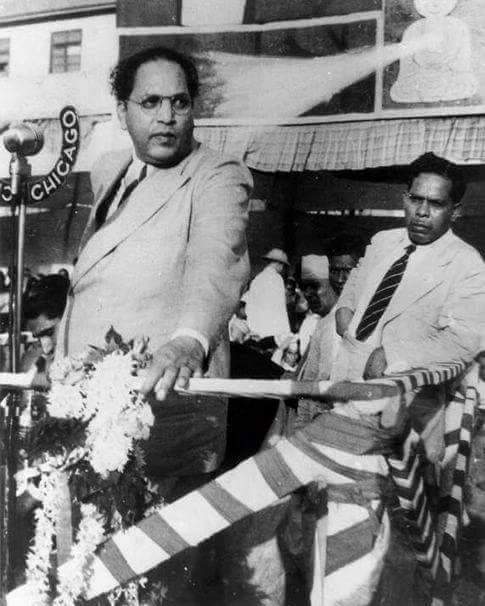
[9:] To this letter I sent the following reply :
27th April 1936
Dear Mr. Har Bhagwan,
I am in receipt of your letter of the 22nd April. I note with regret that the Reception Committee of the Jat-Pat-Todak Mandal “would prefer to postpone the Conference sine die” if I insisted upon printing the address in toto. In reply I have to inform you that I also would prefer to have the Conference cancelled—I do not like to use vague terms—if the Mandal insisted upon having my address pruned to suit its circumstances. You may not like my decision. But I cannot give up, for the sake of the honour of presiding over the Conference, the liberty which every President must-have in the preparation of the address. I cannot give up, for the sake of pleasing the Mandal, the duty which every President owes to the Conference over which he presides, to give it a lead which he thinks right and proper. The issue is one of principle, and I feel I must do nothing to compromise it in any way.
I would not have entered into any controversy as regards the propriety of the decision taken by the Reception Committee. But as you have given certain reasons which appear to throw the blame on me, I am bound to answer them. In the first place, I must dispel the notion that the views contained in that part of the address to which objection has been taken by the Committee have come to the Mandal as a surprise. Mr. Sant Ram, I am sure, will bear me out when I say that in reply to one of his letters I had said that the real method of breaking up the Caste System was not to bring about inter-caste dinners and inter-caste marriages but to destroy the religious notions on which Caste was founded, and that Mr. Sant Ram in return asked me to explain what he said was a novel point of view. It was in response to this invitation from Mr. Sant Ram that I thought I ought to elaborate in my address what I had stated in a sentence in my letter to him. You cannot, therefore, say that the views expressed are new. At any rate, they are not new to Mr. Sant Ram, who is the moving spirit and the leading light of your Mandal. But I go further and say that I wrote this part of my address not merely because I felt it desirable to do so. I wrote it because I thought that it was absolutely necessary to complete the argument. I am amazed to read that you characterize the portion of the speech to which your Committee objects as “irrelevant and off the point.” You will allow me to say that I am a lawyer and I know the rules of relevancy as well as any member of your Committee. I most emphatically maintain that the portion objected to is not only most relevant but is also important. It is in that part of the address that I have discussed the ways and means of breaking up the Caste System. It may be that the conclusion I have arrived at as to the best method of destroying Caste is startling and painful. You are entitled to say that my analysis is wrong. But you cannot say that in an address which deals with the problem of Caste it is not open to me to discuss how Caste can be destroyed.
Your other complaint relates to the length of the address. I have pleaded guilty to the charge in the address itself. But who is really responsible for this? I fear you have come rather late on the scene. Otherwise you would have known that originally I had planned to write a short address, for my own convenience, as I had neither the time nor the energy to engage myself in the preparation of an elaborate thesis. It was the Mandal which asked me to deal with the subject exhaustively, and it was the Mandal which sent down to me a list of questions relating to the Caste System and asked me to answer them in the body of my address, as they were questions which were often raised in the controversy between the Mandal and its opponents, and which the Mandal found difficult to answer satisfactorily. It was in trying to meet the wishes of the Mandal in this respect that the address has grown to the length to which it has. In view of what I have said, I am sure you will agree that the fault respecting the length of the address is not mine.
I did not expect that your Mandal would be so upset because I have spoken of the destruction of Hindu Religion. I thought it was only fools who were afraid of words. But lest there should be any misapprehension in the minds of the people, I have taken great pains to explain what I mean by religion and destruction of religion. I am sure that nobody, on reading my address, could possibly misunderstand me. That your Mandal should have taken a fright at mere words as “destruction of religion etc.,” notwithstanding the explanation that accompanies them, does not raise the Mandal in my estimation. One cannot have any respect or regard for men who take the position of the Reformer and then refuse even to see the logical consequences of that position, let alone following them out in action.
You will agree that I have never accepted to be limited in any way in the preparation of my address, and the question as to what the address should or should not contain was never even discussed between myself and the Mandal. I had always taken for granted that I was free to express in the address such views as I held on the subject. Indeed, until you came to Bombay on the 9th April, the Mandal did not know what sort of an address I was preparing. It was when you came to Bombay that I voluntarily told you that I had no desire to use your platform from which to advocate my views regarding change of religion by the Depressed Classes. I think I have scrupulously kept that promise in the preparation of the address. Beyond a passing reference of an indirect character where I say that “I am sorry I will not be here. . . etc.” I have said nothing about the subject in my address. When I see you object even to such a passing and so indirect a reference, I feel bound to ask, did you think that in agreeing to preside over your Conference I would be agreeing to suspend or to give up my views regarding change of faith by the Depressed Classes? If you did think so, I must tell you that I am in no way responsible for such a mistake on your part. If any of you had even hinted to me that in exchange for the honour you were doing me by electing as President, I was to abjure my faith in my programme of conversion, I would have told you in quite plain terms that I cared more for my faith than for any honour from you.
After your letter of the 14th, this letter of yours comes as a surprise to me. I am sure that anyone who reads them [both] will feel the same. I cannot account for this sudden volte face on the part of the Reception Committee. There is no difference in substance between the rough draft which was before the Committee when you wrote your letter of the 14th, and the final draft on which the decision of the Committee communicated to me in your letter under reply was taken. You cannot point out a single new idea in the final draft which is not contained in the earlier draft. The ideas are the same. The only difference is that they have been worked out in greater detail in the final draft. If there was anything to object to in the address, you could have said so on the 14th. But you did not. On the contrary, you asked me to print off 1,000 copies, leaving me the liberty to accept or not the verbal changes which you suggested. Accordingly I got 1,000 copies printed, which are now lying with me. Eight days later you write to say that you object to the address and that if it is not amended the Conference will be cancelled. You ought to have known that there was no hope of any alteration being made in the address. I told you when you were in Bombay that I would not alter a comma, that I would not allow any censorship over my address, and that you would have to accept the address as it came from me. I also told you that the responsibility for the views expressed in the address was entirely mine, and if they were not liked by the Conference I would not mind at all if the Conference passed a resolution condemning them. So anxious was I to relieve your Mandal from having to assume responsibility for my views—and also with the object of not getting myself entangled by too intimate an association with your Conference—I suggested to you that I desired to have my address treated as a sort of an inaugural address and not as a Presidential address, and that the Mandal should find some one else to preside over the Conference and deal with the resolutions. Nobody could have been better placed to take a decision on the 14th than your Committee. The Committee failed to do that, and in the meantime cost of printing has been incurred which, I am sure, with a little more firmness on the part of your Committee, could have been saved.
I feel sure that the views expressed in my address have little to do with the decision of your Committee. I have reason to believe that my presence at the Sikh Prachar Conference held at Amritsar has had a good deal to do with the decision of the Committee. Nothing else can satisfactorily explain the sudden volte face shown by the Committee between the 14th and the 22nd April. I must not however prolong this controversy, and must request you to announce immediately that the Session of the Conference which was to meet under my Presidentship is cancelled. All the grace [period] has by now run out, and I shall not consent to preside, even if your Committee agreed to accept my address as it is, in toto. I thank you for your appreciation of the pains I have taken in the preparation of the address. I certainly have profited by the labour, [even] if no one else does. My only regret is that I was put to such hard labour at a time when my health was not equal to the strain it has caused.
Yours sincerely,
B.R. Ambedkar
[10:] This correspondence will disclose the reasons which have led to the cancellation by the Mandal of my appointment as President, and the reader will be in a position to lay the blame where it ought properly to belong. This is I believe the first time when the appointment of a President is cancelled by the Reception Committee because it does not approve of the views of the President. But whether that is so or not, this is certainly the first time in my life to have been invited to preside over a Conference of Caste Hindus. I am sorry that it has ended in a tragedy. But what can anyone expect from a relationship so tragic as the relationship between the reforming sect of Caste Hindus and the self-respecting sect of Untouchables, where the former have no desire to alienate their orthodox fellows, and the latter have no alternative but to insist upon reform being carried out?
B.R. AMBEDKAR
Rajgriha, Dadar, Bombay 14
15th May 1936
Preface to the Second Edition [1937]
[1:] The speech prepared by me for the Jat-Pat-Todak Mandal of Lahore has had an astonishingly warm reception from the Hindu public for whom it was primarily intended. The English edition of one thousand five hundred copies was exhausted within two months of its publication. It is has been translated into Gujarati and Tamil. It is being translated into Marathi, Hindi, Punjabi and Malayalam. The demand for the English text still continues unabated. To satisfy this demand it has become necessary to issue a Second Edition. Considerations of history and effectiveness of appeal have led me to retain the original form of the essay—namely, the speech form—although I was asked to recast it in the form of a direct narrative.
[2:] To this edition I have added two appendices. I have collected in Appendix I the two articles written by Mr. Gandhi by way of review of my speech in the Harijan, and his letter to Mr. Sant Ram, a member of the Jat-Pat-Todak Mandal.
[3:] In Appendix II, I have printed my views in reply to the articles of Mr. Gandhi collected in Appendix I. Besides Mr. Gandhi, many others have adversely criticised my views as expressed in my speech. But I have felt that in taking notice of such adverse comments, I should limit myself to Mr. Gandhi. This I have done not because what he has said is so weighty as to deserve a reply, but because to many a Hindu he is an oracle, so great that when he opens his lips it is expected that the argument must close and no dog must bark.
[4:] But the world owes much to rebels who would dare to argue in the face of the pontiff and insist that he is not infallible. I do not care about the credit which every progressive society must give to its rebels. I shall be satisfied if I make the Hindus realize that they are the sick men of India, and that their sickness is causing danger to the health and happiness of other Indians.
B.R. AMBEDKAR
Preface to the Third Edition [1944]
[1:] The Second Edition of this Essay appeared in 1937, and was exhausted within a very short period. A new edition has been in demand for a long time. It was my intention to recast the essay so as to incorporate into it another essay of mine called “Castes in India, their Origin and their Mechanism,” which appeared in the issue of the Indian Antiquary Journal for May 1917. But as I could not find time, and as there is very little prospect of my being able to do so, and as the demand for it from the public is very insistent, I am content to let this be a mere reprint of the Second Edition.
[2:] I am glad to find that this essay has become so popular, and I hope that it will serve the purpose for which it was intended.
B.R. AMBEDKAR
22, Prithwiraj Road
New Delhi
1st December 1944
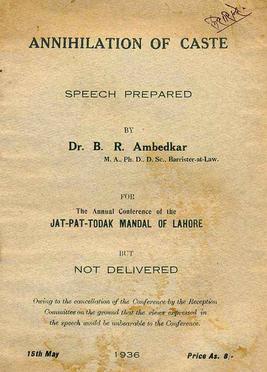
1 [Introduction—why I am an unlikely President for this Conference]
[1:] Friends,
I am really sorry for the members of the Jat-Pat-Todak Mandal who have so very kindly invited me to preside over this Conference. I am sure they will be asked many questions for having selected me as the President. The Mandal will be asked to explain as to why it has imported a man from Bombay to preside over a function which is held in Lahore. I believe the Mandal could easily have found someone better qualified than myself to preside on the occasion. I have criticised the Hindus. I have questioned the authority of the Mahatma whom they revere. They hate me. To them I am a snake in their garden. The Mandal will no doubt be asked by the politically-minded Hindus to explain why it has called me to fill this place of honour. It is an act of great daring. I shall not be surprised if some political Hindus regard it as an insult. This selection of me certainly cannot please the ordinary religiously-minded Hindus.
[2:] The Mandal may be asked to explain why it has disobeyed the Shastric injunction in selecting the President. According to the Shastras, the Brahmin is appointed to be the Guru for the three Varnas – ![]()
is a direction of the Shastras. The Mandal therefore knows from whom a Hindu should take his lessons and from whom he should not.
The Shastras do not permit a Hindu to accept anyone as his Guru merely because he is well-versed. This is made very clear by Ramdas, a Brahmin saint from Maharashtra, who is alleged to have inspired Shivaji to establish a Hindu Raj. In his Dasbodh, a socio-politico-religious treatise in Marathi verse, Ramdas asks, addressing the Hindus, can we accept an Antyaja to be our Guru because he is a Pandit (i.e. learned)? He gives an answer in the negative.
[3:] What replies to give to these questions is a matter which I must leave to the Mandal. The Mandal knows best the reasons which led it to travel to Bombay to select a president, to fix upon a man so repugnant to the Hindus, and to descend so low in the scale as to select an Antyaja—an untouchable—to address an audience of the Savarnas. As for myself, you will allow me to say that I have accepted the invitation much against my will, and also against the will of many of my fellow untouchables. I know that the Hindus are sick of me. I know that I am not a persona grata [=someone welcome] with them. Knowing all this, I have deliberately kept myself away from them. I have no desire to inflict myself upon them. I have been giving expression to my views from my own platform. This has already caused a great deal of heart-burning and irritation.
[4:] I have no desire to ascend the platform of the Hindus, to do within their sight what I have been doing within their hearing. If I am here it is because of your choice and not because of my wish. Yours is a cause of social reform. That cause has always made an appeal to me, and it is because of this that I felt I ought not to refuse an opportunity of helping the cause—especially when you think that I can help it. Whether what I am going to say today will help you in any way to solve the problem you are grappling with, is for you to judge. All I hope to do is to place before you my views on the problem.
If I am here it is because of your choice and not because of my wish. Yours is a cause of social reform. That cause has always made an appeal to me, and it is because of this that I felt I ought not to refuse an opportunity of helping the cause—especially when you think that I can help it.
2 [Why social reform is necessary for political reform]
[1:] The path of social reform, like the path to heaven (at any rate, in India), is strewn with many difficulties. Social reform in India has few friends and many critics. The critics fall into two distinct classes. One class consists of political reformers, and the other of the Socialists.
[2:] It was at one time recognized that without social efficiency, no permanent progress in the other fields of activity was possible; that owing to mischief wrought by evil customs, Hindu Society was not in a state of efficiency; and that ceaseless efforts must be made to eradicate these evils. It was due to the recognition of this fact that the birth of the National Congress was accompanied by the foundation of the Social Conference. While the Congress was concerned with defining the weak points in the political organisation of the country, the Social Conference was engaged in removing the weak points in the social organisation of the Hindu Society. For some time the Congress and the Conference worked as two wings of one common activity, and they held their annual sessions in the same pandal.
[3:] But soon the two wings developed into two parties, a ‘political reform party’ and a ‘social reform party’, between whom there raged a fierce controversy. The ‘political reform party’ supported the National Congress, and the ‘social reform party’ supported the Social Conference. The two bodies thus became two hostile camps. The point at issue was whether social reform should precede political reform. For a decade the forces were evenly balanced, and the battle was fought without victory to either side.
[4:] It was, however, evident that the fortunes of the Social Conference were ebbing fast. The gentlemen who presided over the sessions of the Social Conference lamented that the majority of the educated Hindus were for political advancement and indifferent to social reform; and that while the number of those who attended the Congress was very large, and the number who did not attend but who sympathized with it was even larger, the number of those who attended the Social Conference was very much smaller.
[5:] This indifference, this thinning of its ranks, was soon followed by active hostility from the politicians. Under the leadership of the late Mr. Tilak, the courtesy with which the Congress allowed the Social Conference the use of its pandal was withdrawn, and the spirit of enmity went to such a pitch that when the Social Conference desired to erect its own pandal, a threat to burn the pandal was held out by its opponents. Thus in the course of time the party in favour of political reform won, and the Social Conference vanished and was forgotten.
[6:] The speech delivered by Mr. W. C. Bonnerji in 1892 at Allahabad, as President of the eighth session of the Congress, sounds like a funeral oration on the death of the Social Conference, and is so typical of the Congress attitude that I venture to quote from it the following extract. Mr. Bonnerji said:
“I for one have no patience with those who say we shall not be fit for political reform until we reform our social system. I fail to see any connection between the two… Are we not fit (for political reform) because our widows remain unmarried and our girls are given in marriage earlier than in other countries? Because our wives and daughters do not drive about with us visiting our friends? Because we do not send our daughters to Oxford and Cambridge?” (Cheers [from the audience])
It was at one time recognized that without social efficiency, no permanent progress in the other fields of activity was possible; that owing to mischief wrought by evil customs, Hindu Society was not in a state of efficiency; and that ceaseless efforts must be made to eradicate these evils. It was due to the recognition of this fact that the birth of the National Congress was accompanied by the foundation of the Social Conference. While the Congress was concerned with defining the weak points in the political organisation of the country, the Social Conference was engaged in removing the weak points in the social organisation of the Hindu Society.
[7:] I have stated the case for political reform as put by Mr. Bonnerji. There were many who were happy that the victory went to the Congress. But those who believe in the importance of social reform may ask, is an argument such as that of Mr. Bonnerji’s final? Does it prove that the victory went to those who were in the right? Does it prove conclusively that social reform has no bearing on political reform? It will help us to understand the matter if I state the other side of the case. I will draw upon the treatment of the untouchables for my facts.
[8:] Under the rule of the Peshwas in the Maratha country, the untouchable was not allowed to use the public streets if a Hindu was coming along, lest he should pollute the Hindu by his shadow. The untouchable was required to have a black thread either on his wrist or around his neck, as a sign or a mark to prevent the Hindus from getting themselves polluted by his touch by mistake. In Poona, the capital of the Peshwa, the untouchable was required to carry, strung from his waist, a broom to sweep away from behind himself the dust he trod on, lest a Hindu walking on the same dust should be polluted. In Poona, the untouchable was required to carry an earthen pot hung around his neck wherever he went— for holding his spit, lest his spit falling on the earth should pollute a Hindu who might unknowingly happen to tread on it.
[9:] Let me take more recent facts. The tyranny practised by the Hindus upon the Balais, an untouchable community in Central India, will serve my purpose. You will find a report of this in the Times of India of 4th January 1928. The correspondent of the Times of India reported that high-caste Hindus—viz., Kalotas, Rajputs and Brahmins, including the Patels and Patwaris of the villages of Kanaria, Bicholi-Hafsi, Bicholi-Mardana, and about 15 other villages in the Indore district (of the Indore State)—informed the Balais of their respective villages that if they wished to live among them, they must conform to the following rules:
- Balais must not wear gold-lace-bordered pugrees.
- They must not wear dhotis with coloured or fancy borders.
- They must convey intimation [=information] of the death of any Hindu to relatives of the deceased— no matter how far away these relatives may be living.
- In all Hindu marriages, Balais must play music before the processions and during the marriage.
- Balai women must not wear gold or silver ornaments; they must not wear fancy gowns or jackets.
- Balai women must attend all cases of confinement [=childbirth] of Hindu women.
- Balais must render services without demanding remuneration, and must accept whatever a Hindu is pleased to give.
- If the Balais do not agree to abide by these terms, they must clear out of the villages.
[10:] The Balais refused to comply; and the Hindu element proceeded against them. Balais were not allowed to get water from the village wells; they were not allowed to let go their cattle to graze. Balais were prohibited from passing through land owned by a Hindu, so that if the field of a Balai was surrounded by fields owned by Hindus, the Balai could have no access to his own field. The Hindus also let their cattle graze down the fields of Balais. The Balais submitted petitions to the Darbar [=Court of Indore] against these persecutions; but as they could get no timely relief, and the oppression continued, hundreds of Balais with their wives and children were obliged to abandon their homes—in which their ancestors had lived for generations—and to migrate to adjoining States: that is, to villages in Dhar, Dewas, Bagli, Bhopal, Gwalior and other States. What happened to them in their new homes may for the present be left out of our consideration.
[11:] The incident at Kavitha in Gujarat happened only last year. The Hindus of Kavitha ordered the untouchables not to insist upon sending their children to the common village school maintained by Government. What sufferings the untouchables of Kavitha had to undergo, for daring to exercise a civic right against the wishes of the Hindus, is too well known to need detailed description. Another instance occurred in the village of Zanu, in the Ahmedabad district of Gujarat. In November 1935 some untouchable women of well-to-do families started fetching water in metal pots. The Hindus looked upon the use of metal pots by untouchables as an affront to their dignity, and assaulted the untouchable women for their impudence.
Another instance occurred in the village of Zanu, in the Ahmedabad district of Gujarat. In November 1935 some untouchable women of well-to-do families started fetching water in metal pots. The Hindus looked upon the use of metal pots by untouchables as an affront to their dignity, and assaulted the untouchable women for their impudence.
[12:] A most recent event is reported from the village of Chakwara in Jaipur State. It seems from the reports that have appeared in the newspapers that an untouchable of Chakwara who had returned from a pilgrimage had arranged to give a dinner to his fellow untouchables of the village, as an act of religious piety. The host desired to treat the guests to a sumptuous meal, and the items served included ghee (butter) also. But while the assembly of untouchables was engaged in partaking of the food, the Hindus in their hundreds, armed with lathis, rushed to the scene, despoiled the food, and belaboured the untouchables— who left the food they had been served with and ran away for their lives. And why was this murderous assault committed on defenceless untouchables? The reason given is that the untouchable host was impudent enough to serve ghee, and his untouchable guests were foolish enough to taste it. Ghee is undoubtedly a luxury for the rich. But no one would think that consumption of ghee was a mark of high social status. The Hindus of Chakwara thought otherwise, and in righteous indignation avenged themselves for the wrong done to them by the untouchables, who insulted them by treating ghee as an item of their food— which they ought to have known could not be theirs, consistently with the dignity of the Hindus. This means that an untouchable must not use ghee, even if he can afford to buy it, since it is an act of arrogance towards the Hindus. This happened on or about the 1st of April 1936!
[13:] Having stated the facts, let me now state the case for social reform. In doing this, I will follow Mr. Bonnerji as nearly as I can, and ask the political-minded Hindus, “Are you fit for political power even though you do not allow a large class of your own countrymen like the untouchables to use public schools? Are you fit for political power even though you do not allow them the use of public wells? Are you fit for political power even though you do not allow them the use of public streets? Are you fit for political power even though you do not allow them to wear what apparel or ornaments they like? Are you fit for political power even though you do not allow them to eat any food they like?” I can ask a string of such questions. But these will suffice.
[14:] I wonder what would have been the reply of Mr. Bonnerji. I am sure no sensible man will have the courage to give an affirmative answer. Every Congressman who repeats the dogma of Mill that one country is not fit to rule another country, must admit that one class is not fit to rule another class. How is it then that the ‘social reform party’ lost the battle? To understand this correctly it is necessary to take note of the kind of social reform which the reformers were agitating for. In this connection it is necessary to make a distinction between social reform in the sense of the reform of the Hindu family, and social reform in the sense of the reorganization and reconstruction of the Hindu Society. The former has a relation to widow remarriage, child marriage, etc., while the latter relates to the abolition of the Caste System.
[15:] The Social Conference was a body which mainly concerned itself with the reform of the high-caste Hindu family. It consisted mostly of enlightened high-caste Hindus who did not feel the necessity for agitating for the abolition of Caste, or had not the courage to agitate for it. They felt quite naturally a greater urge to remove such evils as enforced widowhood, child marriages, etc.— evils which prevailed among them and which were personally felt by them. They did not stand up for the reform of the Hindu Society. The battle that was fought centered round the question of the reform of the family. It did not relate to social reform in the sense of the break-up of the Caste System. It [=the break-up of the Caste System] was never put in issue by the reformers. That is the reason why the Social Reform Party lost.
[16:] I am aware that this argument cannot alter the fact that political reform did in fact gain precedence over social reform. But the argument has this much value (if not more): it explains why social reformers lost the battle. It also helps us to understand how limited was the victory which the ‘political reform party’ obtained over the ‘social reform party’, and to understand that the view that social reform need not precede political reform is a view which may stand only when by social reform is meant the reform of the family. That political reform cannot with impunity take precedence over social reform in the sense of the reconstruction of society, is a thesis which I am sure cannot be controverted.
The battle that was fought centered round the question of the reform of the family (enforced widowhood, child marriages etc.). It did not relate to social reform in the sense of the break-up of the Caste System. It [=the break-up of the Caste System] was never put in issue by the reformers. That is the reason why the Social Reform Party lost… the view that social reform need not precede political reform is a view which may stand only when by social reform is meant the reform of the family. That political reform cannot with impunity take precedence over social reform in the sense of the reconstruction of society, is a thesis which I am sure cannot be controverted.
[17:] That the makers of political constitutions must take account of social forces is a fact which is recognized by no less a person than Ferdinand Lassalle, the friend and co-worker of Karl Marx. In addressing a Prussian audience in 1862, Lassalle said:
The constitutional questions are in the first instance not questions of right but questions of might. The actual constitution of a country has its existence only in the actual condition of force which exists in the country: hence political constitutions have value and permanence only when they accurately express those conditions of forces which exist in practice within a society.
[18:] But it is not necessary to go to Prussia. There is evidence at home. What is the significance of the Communal Award, with its allocation of political power in defined proportions to diverse classes and communities? In my view, its significance lies in this: that political constitution must take note of social organisation. It shows that the politicians who denied that the social problem in India had any bearing on the political problem were forced to reckon with the social problem in devising the Constitution. The Communal Award is, so to say, the nemesis following upon the indifference to and neglect of social reform. It is a victory for the Social Reform Party which shows that, though defeated, they were in the right in insisting upon the importance of social reform. Many, I know, will not accept this finding. The view is current—and it is pleasant to believe in it—that the Communal Award is unnatural and that it is the result of an unholy alliance between the minorities and the bureaucracy. I do not wish to rely on the Communal Award as a piece of evidence to support my contention, if it is said that it is not good evidence.
In addressing a Prussian audience in 1862, Lassalle said: The constitutional questions are in the first instance not questions of right but questions of might. The actual constitution of a country has its existence only in the actual condition of force which exists in the country: hence political constitutions have value and permanence only when they accurately express those conditions of forces which exist in practice within a society.
[19:] Let us turn to Ireland. What does the history of Irish Home Rule show? It is well-known that in the course of the negotiations between the representatives of Ulster and Southern Ireland, Mr. Redmond, the representative of Southern Ireland, in order to bring Ulster into a Home Rule Constitution common to the whole of Ireland, said to the representatives of Ulster: “Ask any political safeguards you like and you shall have them.” What was the reply that Ulstermen gave? Their reply was, “Damn your safeguards, we don’t want to be ruled by you on any terms.” People who blame the minorities in India ought to consider what would have happened to the political aspirations of the majority, if the minorities had taken the attitude which Ulster took. Judged by the attitude of Ulster to Irish Home Rule, is it nothing that the minorities agreed to be ruled by the majority (which has not shown much sense of statesmanship), provided some safeguards were devised for them? But this is only incidental. The main question is, why did Ulster take this attitude? The only answer I can give is that there was a social problem between Ulster and Southern Ireland: the problem between Catholics and Protestants, which is essentially a problem of Caste. That Home Rule in Ireland would be Rome Rule was the way in which the Ulstermen had framed their answer. But that is only another way of stating that it was the social problem of Caste between the Catholics and Protestants which prevented the solution of the political problem. This evidence again is sure to be challenged. It will be urged that here too the hand of the Imperialist was at work.
[20:] But my resources are not exhausted. I will give evidence from the History of Rome. Here no one can say that any evil genius was at work. Anyone who has studied the History of Rome will know that the Republican Constitution of Rome bore marks having strong resemblance to the Communal Award. When the kingship in Rome was abolished, the kingly power (or the Imperium) was divided between the Consuls and the Pontifex Maximus. In the Consuls was vested the secular authority of the King, while the latter took over the religious authority of the King. This Republican Constitution had provided that of the two Consuls, one was to be Patrician and the other Plebian. The same Constitution had also provided that of the Priests under the Pontifex Maximus, half were to be Plebians and the other half Patricians. Why is it that the Republican Constitution of Rome had these provisions—which, as I said, resemble so strongly the provisions of the Communal Award? The only answer one can get is that the Constitution of Republican Rome had to take account of the social division between the Patricians and the Plebians, who formed two distinct castes. To sum up, let political reformers turn in any direction they like: they will find that in the making of a constitution, they cannot ignore the problem arising out of the prevailing social order.
The main question is, why did Ulster take this attitude? The only answer I can give is that there was a social problem between Ulster and Southern Ireland: the problem between Catholics and Protestants, which is essentially a problem of Caste… Why is it that the Republican Constitution of Rome had these provisions—which, as I said, resemble so strongly the provisions of the Communal Award? The only answer one can get is that the Constitution of Republican Rome had to take account of the social division between the Patricians and the Plebians, who formed two distinct castes. To sum up, let political reformers turn in any direction they like: they will find that in the making of a constitution, they cannot ignore the problem arising out of the prevailing social order.
[21:] The illustrations which I have taken in support of the proposition that social and religious problems have a bearing on political constitutions seem to be too particular. Perhaps they are. But it should not be supposed that the bearing of the one on the other is limited. On the other hand, one can say that generally speaking, history bears out the proposition that political revolutions have always been preceded by social and religious revolutions. The religious Reformation started by Luther was the precursor of the political emancipation of the European people. In England, Puritanism led to the establishment of political liberty. Puritanism founded the new world. It was Puritanism that won the war of American Independence, and Puritanism was a religious movement.
[22:] The same is true of the Muslim Empire. Before the Arabs became a political power, they had undergone a thorough religious revolution started by the Prophet Mohammad. Even Indian History supports the same conclusion. The political revolution led by Chandragupta was preceded by the religious and social revolution of Buddha. The political revolution led by Shivaji was preceded by the religious and social reform brought about by the saints of Maharashtra. The political revolution of the Sikhs was preceded by the religious and social revolution led by Guru Nanak. It is unnecessary to add more illustrations. These will suffice to show that the emancipation of the mind and the soul is a necessary preliminary for the political expansion of the people.
History bears out the proposition that political revolutions have always been preceded by social and religious revolutions. The religious Reformation started by Luther was the precursor of the political emancipation of the European people. In England, Puritanism led to the establishment of political liberty. Puritanism founded the new world. It was Puritanism that won the war of American Independence, and Puritanism was a religious movement… The same is true of the Muslim Empire… The political revolution led by Chandragupta… by Shivaji… The political revolution of the Sikhs.
3 [Why social reform is necessary for economic reform]
[1:] Let me now turn to the Socialists. Can the Socialists ignore the problem arising out of the social order? The Socialists of India, following their fellows in Europe, are seeking to apply the economic interpretation of history to the facts of India. They propound that man is an economic creature, that his activities and aspirations are bound by economic facts, that property is the only source of power. They therefore preach that political and social reforms are but gigantic illusions, and that economic reform by equalization of property must have precedence over every other kind of reform. One may take issue with every one of these premises— on which rests the Socialists’ case for economic reform as having priority over every other kind of reform. One may contend that the economic motive is not the only motive by which man is actuated [=motivated]. That economic power is the only kind of power, no student of human society can accept.
[2:] That the social status of an individual by itself often becomes a source of power and authority, is made clear by the sway which the Mahatmas have held over the common man. Why do millionaires in India obey penniless Sadhus and Fakirs? Why do millions of paupers in India sell their trifling trinkets which constitute their only wealth, and go to Benares and Mecca? That religion is the source of power is illustrated by the history of India, where the priest holds a sway over the common man often greater than that of the magistrate, and where everything, even such things as strikes and elections, so easily takes a religious turn and can so easily be given a religious twist.
Why do millionaires in India obey penniless Sadhus and Fakirs? Why do millions of paupers in India sell their trifling trinkets which constitute their only wealth, and go to Benares and Mecca? That religion is the source of power is illustrated by the history of India, where the priest holds a sway over the common man often greater than that of the magistrate…
[3:] Take the case of the Plebians of Rome, as a further illustration of the power of religion over man. It throws great light on this point. The Plebians had fought for a share in the supreme executive under the Roman Republic, and had secured the appointment of a Plebian Consul elected by a separate electorate constituted by the Commitia Centuriata, which was an assembly of Plebians. They wanted a Consul of their own because they felt that the Patrician Consuls used to discriminate against the Plebians in carrying on the administration. They had apparently obtained a great gain, because under the Republican Constitution of Rome one Consul had the power of vetoing an act of the other Consul.
[4:] But did they in fact gain anything? The answer to this question must be in the negative. The Plebians never could get a Plebian Consul who could be said to be a strong man, and who could act independently of the Patrician Consul. In the ordinary course of things the Plebians should have got a strong Plebian Consul, in view of the fact that his election was to be by a separate electorate of Plebians. The question is, why did they fail in getting a strong Plebian to officiate as their Consul?
[5:] The answer to this question reveals the dominion which religion exercises over the minds of men. It was an accepted creed of the whole Roman populus [=people] that no official could enter upon the duties of his office unless the Oracle of Delphi declared that he was acceptable to the Goddess. The priests who were in charge of the temple of the Goddess of Delphi were all Patricians. Whenever therefore the Plebians elected a Consul who was known to be a strong party man and opposed to the Patricians—or “communal”, to use the term that is current in India—the Oracle invariably declared that he was not acceptable to the Goddess. This is how the Plebians were cheated out of their rights.
[6:] But what is worthy of note is that the Plebians permitted themselves to be thus cheated because they too, like the Patricians, held firmly the belief that the approval of the Goddess was a condition precedent to the taking charge by an official of his duties, and that election by the people was not enough. If the Plebians had contended that election was enough and that the approval by the Goddess was not necessary, they would have derived the fullest benefit from the political right which they had obtained. But they did not. They agreed to elect another, less suitable to themselves but more suitable to the Goddess— which in fact meant more amenable to the Patricians. Rather than give up religion, the Plebians give up the material gain for which they had fought so hard. Does this not show that religion can be a source of power as great as money, if not greater?
[7:] The fallacy of the Socialists lies in supposing that because in the present stage of European Society property as a source of power is predominant, that the same is true of India, or that the same was true of Europe in the past. Religion, social status, and property are all sources of power and authority, which one man has, to control the liberty of another. One is predominant at one stage; the other is predominant at another stage. That is the only difference. If liberty is the ideal, if liberty means the destruction of the dominion which one man holds over another, then obviously it cannot be insisted upon that economic reform must be the one kind of reform worthy of pursuit. If the source of power and dominion is, at any given time or in any given society, social and religious, then social reform and religious reform must be accepted as the necessary sort of reform.
The fallacy of the Socialists lies in supposing that because in the present stage of European Society property as a source of power is predominant, that the same is true of India, or that the same was true of Europe in the past. Religion, social status, and property are all sources of power and authority, which one man has, to control the liberty of another.
[8:] One can thus attack the doctrine of the Economic Interpretation of History adopted by the Socialists of India. But I recognize that the economic interpretation of history is not necessary for the validity of the Socialist contention that equalization of property is the only real reform and that it must precede everything else. However, what I would like to ask the Socialists is this: Can you have economic reform without first bringing about a reform of the social order? The Socialists of India do not seem to have considered this question. I do not wish to do them an injustice. I give below a quotation from a letter which a prominent Socialist wrote a few days ago to a friend of mine, in which he said, “I do not believe that we can build up a free society in India so long as there is a trace of this ill-treatment and suppression of one class by another. Believing as I do in a socialist ideal, inevitably I believe in perfect equality in the treatment of various classes and groups. I think that Socialism offers the only true remedy for this as well as other problems.”
[9:] Now the question that I would like to ask is: Is it enough for a Socialist to say, “I believe in perfect equality in the treatment of the various classes?” To say that such a belief is enough is to disclose a complete lack of understanding of what is involved in Socialism. If Socialism is a practical programme and is not merely an ideal, distant and far off, the question for a Socialist is not whether he believes in equality. The question for him is whether he minds one class ill-treating and suppressing another class as a matter of system, as a matter of principle— and thus allowing tyranny and oppression to continue to divide one class from another.
[10:] Let me analyse the factors that are involved in the realization of Socialism, in order to explain fully my point. Now it is obvious that the economic reform contemplated by the Socialists cannot come about unless there is a revolution resulting in the seizure of power. That seizure of power must be by a proletariat. The first question I ask is: Will the proletariat of India combine to bring about this revolution? What will move men to such an action? It seems to me that, other things being equal, the only thing that will move one man to take such an action is the feeling that other men with whom he is acting are actuated by a feeling of equality and fraternity and—above all—of justice. Men will not join in a revolution for the equalization of property unless they know that after the revolution is achieved they will be treated equally, and that there will be no discrimination of caste and creed.
Men will not join in a revolution for the equalization of property unless they know that after the revolution is achieved they will be treated equally, and that there will be no discrimination of caste and creed.
[11:] The assurance of a Socialist leading the revolution, that he does not believe in Caste, I am sure will not suffice. The assurance must be the assurance proceeding from a much deeper foundation— namely, the mental attitude of the compatriots towards one another in their spirit of personal equality and fraternity. Can it be said that the proletariat of India, poor as it is, recognises no distinctions except that of the rich and the poor? Can it be said that the poor in India recognize no such distinctions of caste or creed, high or low? If the fact is that they do, what unity of front can be expected from such a proletariat in its action against the rich? How can there be a revolution if the proletariat cannot present a united front?
[12:] Suppose for the sake of argument that by some freak of fortune a revolution does take place and the Socialists come into power; will they not have to deal with the problems created by the particular social order prevalent in India? I can’t see how a Socialist State in India can function for a second without having to grapple with the problems created by the prejudices which make Indian people observe the distinctions of high and low, clean and unclean. If Socialists are not to be content with the mouthing of fine phrases, if the Socialists wish to make Socialism a definite reality, then they must recognize that the problem of social reform is fundamental, and that for them there is no escape from it.
Suppose for the sake of argument that by some freak of fortune a revolution does take place and the Socialists come into power… I can’t see how a Socialist State in India can function for a second without having to grapple with the problems created by the prejudices which make Indian people observe the distinctions of high and low, clean and unclean.
[13:] That the social order prevalent in India is a matter which a Socialist must deal with; that unless he does so he cannot achieve his revolution; and that if he does achieve it as a result of good fortune, he will have to grapple with the social order if he wishes to realize his ideal— is a proposition which in my opinion is incontrovertible. He will be compelled to take account of Caste after the revolution, if he does not take account of it before the revolution. This is only another way of saying that, turn in any direction you like, Caste is the monster that crosses your path. You cannot have political reform, you cannot have economic reform, unless you kill this monster.

4 [Caste is not just a division of labour, it is a division of labourers]
[1:] It is a pity that Caste even today has its defenders. The defences are many. It is defended on the ground that the Caste System is but another name for division of labour; and if division of labour is a necessary feature of every civilized society, then it is argued that there is nothing wrong in the Caste System. Now the first thing that is to be urged against this view is that the Caste System is not merely a division of labour. It is also a division of labourers. Civilized society undoubtedly needs division of labour. But in no civilized society is division of labour accompanied by this unnatural division of labourers into watertight compartments. The Caste System is not merely a division of labourers which is quite different from division of labour— it is a hierarchy in which the divisions of labourers are graded one above the other. In no other country is the division of labour accompanied by this gradation of labourers.
[2:] There is also a third point of criticism against this view of the Caste System. This division of labour is not spontaneous, it is not based on natural aptitudes. Social and individual efficiency requires us to develop the capacity of an individual to the point of competency to choose and to make his own career. This principle is violated in the Caste System, in so far as it involves an attempt to appoint tasks to individuals in advance— selected not on the basis of trained original capacities, but on that of the social status of the parents.
In no civilized society is division of labour accompanied by this unnatural division of labourers into watertight compartments. The Caste System is not merely a division of labourers which is quite different from division of labour— it is a hierarchy in which the divisions of labourers are graded one above the other. In no other country is the division of labour accompanied by this gradation of labourers.
[3:] Looked at from another point of view, this stratification of occupations which is the result of the Caste System is positively pernicious. Industry is never static. It undergoes rapid and abrupt changes. With such changes, an individual must be free to change his occupation. Without such freedom to adjust himself to changing circumstances, it would be impossible for him to gain his livelihood. Now the Caste System will not allow Hindus to take to occupations where they are wanted, if they do not belong to them by heredity. If a Hindu is seen to starve rather than take to new occupations not assigned to his Caste, the reason is to be found in the Caste System. By not permitting readjustment of occupations, Caste becomes a direct cause of much of the unemployment we see in the country.
[4:] As a form of division of labour, the Caste system suffers from another serious defect. The division of labour brought about by the Caste System is not a division based on choice. Individual sentiment, individual preference, has no place in it. It is based on the dogma of predestination. Considerations of social efficiency would compel us to recognize that the greatest evil in the industrial system is not so much poverty and the suffering that it involves, as the fact that so many persons have callings [=occupations] which make no appeal to those who are engaged in them. Such callings constantly provoke one to aversion, ill will, and the desire to evade.
[5:] There are many occupations in India which, on account of the fact that they are regarded as degraded by the Hindus, provoke those who are engaged in them to aversion. There is a constant desire to evade and escape from such occupations, which arises solely because of the blighting effect which they produce upon those who follow them, owing to the slight and stigma cast upon them by the Hindu religion. What efficiency can there be in a system under which neither men’s hearts nor their minds are in their work? As an economic organization Caste is therefore a harmful institution, in as much as it involves the subordination of man’s natural powers and inclinations to the exigencies of social rules.
5 [Caste cannot preserve a nonexistent “racial purity”]
[1:] Some have dug a biological trench in defence of the Caste System. It is said that the object of Caste was to preserve purity of race and purity of blood. Now ethnologists are of the opinion that men of pure race exist nowhere and that there has been a mixture of all races in all parts of the world. Especially is this the case with the people of India. Mr. D. R. Bhandarkar in his paper on “Foreign Elements in the Hindu Population” has stated that: “There is hardly a class or Caste in India which has not a foreign strain in it. There is an admixture of alien blood not only among the warrior classes —the Rajputs and the Marathas—but also among the Brahmins who are under the happy delusion that they are free from all foreign elements.” The Caste system cannot be said to have grown as a means of preventing the admixture of races, or as a means of maintaining purity of blood.
[2:] As a matter of fact [the] Caste system came into being long after the different races of India had commingled in blood and culture. To hold that distinctions of castes are really distinctions of race, and to treat different castes as though they were so many different races, is a gross perversion of facts. What racial affinity is there between the Brahmin of the Punjab and the Brahmin of Madras? What racial affinity is there between the untouchable of Bengal and the untouchable of Madras? What racial difference is there between the Brahmin of the Punjab and the Chamar of the Punjab? What racial difference is there between the Brahmin of Madras and the Pariah of Madras? The Brahmin of the Punjab is racially of the same stock as the Chamar of the Punjab, and the Brahmin of Madras is of the same race as the Pariah of Madras.
[3:] [The] Caste system does not demarcate racial division. [The] Caste system is a social division of people of the same race. Assuming it, however, to be a case of racial divisions, one may ask: What harm could there be if a mixture of races and of blood was permitted to take place in India by intermarriages between different castes? Men are no doubt divided from animals by so deep a distinction that science recognizes men and animals as two distinct species. But even scientists who believe in purity of races do not assert that the different races constitute different species of men. They are only varieties of one and the same species. As such they can interbreed and produce an offspring which is capable of breeding and which is not sterile.
[4:] An immense lot of nonsense is talked, about heredity and eugenics, in defence of the Caste System. Few would object to the Caste System if it was in accord with the basic principle of eugenics, because few can object to the improvement of the race by judicious mating. But one fails to understand how the Caste System secures judicious mating. [The] Caste System is a negative thing. It merely prohibits persons belonging to different castes from intermarrying. It is not a positive method of selecting which two among a given caste should marry.
[5:] If Caste is eugenic in origin, then the origin of sub-castes must also be eugenic. But can anyone seriously maintain that the origin of sub-castes is eugenic? I think it would be absurd to contend for such a proposition, and for a very obvious reason. If caste means race, then differences of sub-castes cannot mean differences of race, because sub-castes become ex hypothesia[= by hypothesis] sub-divisions of one and the same race. Consequently the bar against intermarrying and interdining between sub-castes cannot be for the purpose of maintaining purity of race or of blood. If sub-castes cannot be eugenic in origin, there cannot be any substance in the contention that Caste is eugenic in origin.
[6:] Again, if Caste is eugenic in origin one can understand the bar against intermarriage. But what is the purpose of the interdict placed on interdining between castes and sub-castes alike? Interdining cannot infect blood, and therefore cannot be the cause either of the improvement or of [the] deterioration of the race.
[7:] This shows that Caste has no scientific origin, and that those who are attempting to give it an eugenic basis are trying to support by science what is grossly unscientific. Even today, eugenics cannot become a practical possibility unless we have definite knowledge regarding the laws of heredity. Prof. Bateson in his Mendel’s Principles of Heredity says, “There is nothing in the descent of the higher mental qualities to suggest that they follow any single system of transmission. It is likely that both they and the more marked developments of physical powers result rather from the coincidence of numerous factors than from the possession of any one genetic element.” To argue that the Caste System was eugenic in its conception is to attribute to the forefathers of present-day Hindus a knowledge of heredity which even the modern scientists do not possess.
[8:] A tree should be judged by the fruits it yields. If Caste is eugenic, what sort of a race of men should it have produced? Physically speaking the Hindus are a C3 people. They are a race of Pygmies and dwarfs, stunted in stature and wanting in stamina. It is a nation 9/10ths of which is declared to be unfit for military service. This shows that the Caste System does not embody the eugenics of modern scientists. It is a social system which embodies the arrogance and selfishness of a perverse section of the Hindus who were superior enough in social status to set it in fashion, and who had the authority to force it on their inferiors.
6 [Caste prevents Hindus from forming a real society or nation]
[1:] Caste does not result in economic efficiency. Caste cannot improve, and has not improved, the race. Caste has however done one thing. It has completely disorganized and demoralized the Hindus.
[2:] The first and foremost thing that must be recognized is that Hindu Society is a myth. The name Hindu is itself a foreign name. It was given by the Mohammedans to the natives for the purpose of distinguishing themselves [from foreign name. It was given by the Mohammedans to the natives for the purpose of distinguishing themselves [from them]. It does not occur in any Sanskrit work prior to the Mohammedan invasion. They did not feel the necessity of a common name, because they had no conception of their having constituted a community. Hindu Society as such does not exist. It is only a collection of castes. Each caste is conscious of its existence. Its survival is the be-all and end-all of its existence. Castes do not even form a federation. A caste has no feeling that it is affiliated to other castes, except when there is a Hindu-Muslim riot. On all other occasions each caste endeavours to segregate itself and to distinguish itself from other castes.
[3:] Each caste not only dines among itself and marries among itself, but each caste prescribes its own distinctive dress. What other explanation can there be of the innumerable styles of dress worn by the men and women of India, which so amuse the tourists? Indeed the ideal Hindu must be like a rat living in his own hole, refusing to have any contact with others. There is an utter lack among the Hindus of what the sociologists call “consciousness of kind.” There is no Hindu consciousness of kind. In every Hindu the consciousness that exists is the consciousness of his caste. That is the reason why the Hindus cannot be said to form a society or a nation.
[4:] There are, however, many Indians whose patriotism does not permit them to admit that Indians are not a nation, tha they are only an amorphous mass of people. They have insisted that underlying the apparent diversity there is a fundamental unity which marks the life of the Hindus, inasmuch as there is a similarity of those habits and customs, beliefs and thoughts, which obtain all over the continent of India. Similarity in habits and customs, beliefs and thoughts, there is. But one cannot accept the conclusion that therefore, the Hindus constitute a society. To do so is to misunderstand the essentials which go to make up a society. Men do not become a society by living in physical proximity, any more than a man ceases to be a member of his society by living so many miles away from other men.
[5:] Secondly, similarity in habits and customs, beliefs and thoughts, is not enough to constitute men into society. Things may be passed physically from one to another like bricks. In the same way habits and customs, beliefs and thoughts of one group may be taken over by another group, and there may thus appear a similarity between the two. Culture spreads by diffusion, and that is why one finds similarity between various primitive tribes in the matter of their habits and customs, beliefs and thoughts, although they do not live in proximity. But no one could say that because there was this similarity, the primitive tribes constituted one society. This is because similarity in certain things is not enough to constitute a society.
[6:] Men constitute a society because they have things which they possess in common. To have similar things is totally different from possessing things in common. And the only way by which men can come to possess things in common with one another is by being in communication with one another. This is merely another way of saying that Society continues to exist by communication—indeed, in communication. To make it concrete, it is not enough if men act in a way which agrees with the acts of others. Parallel activity, even if similar, is not sufficient to bind men into a society.
[7:] This is proved by the fact that the festivals observed by the different castes amongst the Hindus are the same. Yet these parallel performances of similar festivals by the different castes have not bound them into one integral whole. For that purpose what is necessary is for a man to share and participate in a common activity, so that the same emotions are aroused in him that animate the others. Making the individual a sharer or partner in the associated activity, so that he feels its success as his success, its failure as his failure, is the real thing that binds men and makes a society of them. The Caste System prevents common activity; and by preventing common activity, it has prevented the Hindus from becoming a society with a unified life and a consciousness of its own being.
7 [The worst feature of the Caste System is an anti-social spirit]
[1:] The Hindus often complain of the isolation and exclusiveness of a gang or a clique and blame them for anti-social spirit. But they conveniently forget that this anti-social spirit is the worst feature of their own Caste System. One caste enjoys singing a hymn of hate against another caste as much as the Germans enjoyed singing their hymn of hate against the English during the last war [=World War I]. The literature of the Hindus is full of caste genealogies in which an attempt is made to give a noble origin to one caste and an ignoble origin to other castes. The Sahyadrikhand is a attempt is made to give a noble origin to one caste and an ignoble origin to other castes. The Sahyadrikhand is a notorious instance of this class of literature.
[2:] This anti-social spirit is not confined to caste alone. It has gone deeper and has poisoned the mutual relations of the sub-castes as well. In my province the Golak Brahmins, Deorukha Brahmins, Karada Brahmins, Palshe Brahmins, and Chitpavan Brahmins all claim to be sub-divisions of the Brahmin caste. But the anti-social spirit that prevails between them is quite as marked and quite as virulent as the anti-social spirit that prevails between them and other non-Brahmin castes. There is nothing strange in this. An anti-social spirit is found wherever one group has “interests of its own” which shut it out from full interaction with other groups, so that its prevailing purpose is protection of what it has got.
[3:] This anti-social spirit, this spirit of protecting its own interests, is as much a marked feature of the different castes in their isolation from one another as it is of nations in their isolation. The Brahmin’s primary concern is to protect “his interest” against those of the non-Brahmins; and the non-Brahmins’ primary concern is to protect their interests against those of the Brahmins. The Hindus, therefore, are not merely an assortment of castes, but are so many warring groups, each living for itself and for its selfish ideal.
[4:] There is another feature of caste which is deplorable. The ancestors of the present-day English fought on one side or the other in the Wars of the Roses and the Cromwellian War. But the descendants of those who fought on the one side do not bear any animosity—any grudge—against the descendents of those who fought on the other side. The feud is forgotten. But the present-day non-Brahmins cannot forgive the present-day Brahmins for the insult their ancestors gave to Shivaji. The present-day Kayasthas will not forgive the present-day Brahmins for the infamy cast upon their forefathers by the forefathers of the latter. To what is this difference due? Obviously to the Caste System. The existence of Caste and Caste Consciousness has served to keep the memory of past feuds between castes green, and has prevented solidarity.
8 [Caste prevents the uplift and incorporation of the aboriginal tribes]
[1:] The recent [constitutional] discussion about the excluded and partially included areas has served to draw attention to the position of what are called the aboriginal tribes in India. They number about 13 millions, if not more. Apart from the question of whether their exclusion from the new Constitution is proper or improper, the fact still remains that these aborigines have remained in their primitive uncivilized state in a land which boasts of a civilization thousands of years old. Not only are they not civilized, but some of them follow pursuits which have led to their being classified as criminals.
[2:] Thirteen millions of people living in the midst of civilization are still in a savage state, and are leading the life of hereditary criminals!! But the Hindus have never felt ashamed of it. This is a phenomenon which in my view is quite unparalleled. What is the cause of this shameful state of affairs? Why has no attempt been made to civilize these aborigines and to lead them to take to a more honourable way of making a living?
[3:] The Hindus will probably seek to account for this savage state of the aborigines by attributing to them congenital stupidity. They will probably not admit that the aborigines have remained savages because they had made no effort to civilize them, to give them medical aid, to reform them, to make them good citizens. But supposing a Hindu wished to do what the Christian missionary is doing for these aborigines, could he have done it? I submit not. Civilizing the
aborigines means adopting them as your own, living in their midst, and cultivating fellow-feeling—in short, loving them. How is it possible for a Hindu to do this? His whole life is one anxious effort to preserve his caste. Caste is his precious possession which he must save at any cost. He cannot consent to lose it by establishing contact with the aborigines, the remnants of the hateful Anaryas of the Vedic days.
[4:] Not that a Hindu could not be taught the sense of duty to fallen humanity, but the trouble is that no amount of sense of duty can enable him to overcome his duty to preserve his caste. Caste is, therefore, the real explanation as to why the Hindu has let the savage remain a savage in the midst of his civilization without blushing, or without feeling any sense of remorse or repentance. The Hindu has not realized that these aborigines are a source of potential danger. If these savages remorse or repentance. The Hindu has not realized that these aborigines are a source of potential danger. If these savages remain savages, they may not do any harm to the Hindus. But if they are reclaimed by non-Hindus and converted to their faiths, they will swell the ranks of the enemies of the Hindus. If this happens, the Hindu will have to thank himself and his Caste System.
9 [The higher castes have conspired to keep the lower castes down]
[1:] Not only has the Hindu made no effort for the humanitarian cause of civilizing the savages, but the higher-caste Hindus have deliberately prevented the lower castes who are within the pale of Hinduism from rising to the cultural level of the higher castes. I will give two instances, one of the Sonars and the other of the Pathare Prabhus. Both are communities quite well-known in Maharashtra. Like the rest of the communities desiring to raise their status, these two communities were at one time endeavouring to adopt some of the ways and habits of the Brahmins.
[2:] The Sonars were styling themselves Daivadnya Brahmins and were wearing their “dhotis” with folds in them, and using the word namaskar for salutation. Both the folded way of wearing the “dhoti” and the namaskar were special to the Brahmins. The Brahmins did not like this imitation and this attempt by Sonars to pass off as Brahmins. Under the authority of the Peshwas, the Brahmins successfully put down this attempt on the part of the Sonars to adopt the ways of the Brahmins. They even got the President of the Councils of the East India Company’s settlement in Bombay to issue a prohibitory order against the Sonars residing in Bombay.
[3:] At one time the Pathare Prabhus had widow-remarriage as a custom of their caste. This custom of widowremarriage was later on looked upon as a mark of social inferiority by some members of the caste, especially because it was contrary to the custom prevalent among the Brahmins. With the object of raising the status of their community, some Pathare Prabhus sought to stop this practice of widow-remarriage that was prevalent in their caste. The community was divided into two camps, one for and the other against the innovation. The Peshwas took the side of those in favou of widow-remarriage, and thus virtually prohibited the Pathare Prabhus from following the ways of the Brahmins.
[4:] The Hindus criticise the Mohammedans for having spread their religion by the use of the sword. They also ridicule Christianity on the score of the Inquisition. But really speaking, who is better and more worthy of our respect—the Mohammedans and Christians who attempted to thrust down the throats of unwilling persons what they regarded as necessary for their salvation, or the Hindu who would not spread the light, who would endeavour to keep others in
darkness, who would not consent to share his intellectual and social inheritance with those who are ready and willing to make it a part of their own make-up? I have no hesitation in saying that if the Mohammedan has been cruel, the Hind has been mean; and meanness is worse than cruelty.
10 [Caste prevents Hinduism from being a missionary religion]
[1:] Whether the Hindu religion was or was not a missionary religion has been a controversial issue. Some hold the view that it was never a missionary religion. Others hold that it was. That the Hindu religion was once a missionary religion must be admitted. It could not have spread over the face of India, if it was not a missionary religion. That today it is not a missionary religion is also a fact which must be accepted. The question therefore is not whether or not the Hindu religion was a missionary religion. The real question is, why did the Hindu religion cease to be a missionary religion?
[2:] My answer is this: the Hindu religion ceased to be a missionary religion when the Caste System grew up among the Hindus. Caste is inconsistent with conversion. Inculcation of beliefs and dogmas is not the only problem that is involved in conversion. To find a place for the convert in the social life of the community is another, and a much more important, problem that arises in connection with conversion. That problem is where to place the convert, in what caste? It is a problem that arises in connection with conversion. That problem is where to place the convert, in what caste? It is a problem which must baffle every Hindu wishing to make aliens converts to his religion.
[3:] Unlike a club, the membership of a caste is not open to all and sundry. The law of Caste confines its membership to persons born in the caste. Castes are autonomous, and there is no authority anywhere to compel a caste to admit a newcomer to its social life. Hindu Society being a collection of castes, and each caste being a closed corporation, there is no place for a convert. Thus it is the caste which has prevented the Hindus from expanding and from absorbing other religious communities. So long as Caste remains, Hindu religion cannot be made a missionary religion, and Shudhi will be both a folly and a futility.
11 [Caste deprives Hindus of mutual help, trust, and fellow-feeling]
[1:] The reasons which have made Shudhi impossible for Hindus are also responsible for making Sanghatan impossible. The idea underlying Sanghatan is to remove from the mind of the Hindu that timidity and cowardice which so painfully mark him off from the Mohammedan and the Sikh, and which have led him to adopt the low ways of treachery and cunning for protecting himself. The question naturally arises: From where does the Sikh or the Mohammedan derive his strength, which makes him brave and fearless? I am sure it is not due to relative superiority of physical strength, diet, or drill. It is due to the strength arising out of the feeling that all Sikhs will come to the rescue of a Sikh when he is in danger, and that all Mohammedans will rush to save a Muslim if he is attacked.
[2:] The Hindu can derive no such strength. He cannot feel assured that his fellows will come to his help. Being one and fated to be alone, he remains powerless, develops timidity and cowardice, and in a fight surrenders or runs away. The Sikh as well as the Muslim stands fearless and gives battle, because he knows that though one he will not be alone. The presence of this belief in the one helps him to hold out, and the absence of it in the other makes him to give way.
[3:] If you pursue this matter further and ask what is it that enables the Sikh and the Mohammedan to feel so assured, and why is the Hindu filled with such despair in the matter of help and assistance, you will find that the reasons for this difference lie in the difference in their associated mode of living. The associated mode of life practised by the Sikhs and the Mohammedans produces fellow-feeling. The associated mode of life of the Hindus does not. Among Sikhs and Muslims there is a social cement which makes them Bhais. Among Hindus there is no such cement, and one Hindu does not regard another Hindu as his Bhai. This explains why a Sikh says and feels that one Sikh, or one Khalsa, is equal to sava lakh men. This explains why one Mohammedan is equal to a crowd of Hindus. This difference is undoubtedly a difference due to Caste. So long as Caste remains, there will be no Sanghatan; and so long as there is no Sanghatan the Hindu will remain weak and meek.
[4:] The Hindus claim to be a very tolerant people. In my opinion this is a mistake. On many occasions they can be intolerant, and if on some occasions they are tolerant, that is because they are too weak to oppose or too indifferent to oppose. This indifference of the Hindus has become so much a part of their nature that a Hindu will quite meekly tolerate an insult as well as a wrong. You see amongst them, to use the words of Morris, “The great treading down the little, the strong beating down the weak, cruel men fearing not, kind men daring not and wise men caring not.” With the Hindu Gods all-forbearing, it is not difficult to imagine the pitiable condition of the wronged and the oppressed among the Hindus. Indifferentism is the worst kind of disease that can infect a people. Why is the Hindu so indifferent? In my opinion this indifferentism is the result of the Caste System, which has made Sanghatan and co-operation even for a good cause impossible.
12 [Caste is a powerful weapon for preventing all reform]
[1:] The assertion by the individual of his own opinions and beliefs, his own independence and interest—as over against group standards, group authority, and group interests—is the beginning of all reform. But whether the reform will continue depends upon what scope the group affords for such individual assertion. If the group is tolerant and fairminded in dealing with such individuals, they will continue to assert [their beliefs], and in the end will succeed in
converting their fellows. On the other hand if the group is intolerant, and does not bother about the means it adopts to stifle such individuals, they will perish and the reform will die out.
[2:] Now a caste has an unquestioned right to excommunicate any man who is guilty of breaking the rules of the caste; and when it is realized that excommunication involves a complete cesser [= cessation] of social intercourse, it will be agreed that as a form of punishment there is really little to choose between excommunication and death. No wonder individual Hindus have not had the courage to assert their independence by breaking the barriers of Caste.
[3:] It is true that man cannot get on with his fellows. But it is also true that he cannot do without them. He would like to have the society of his fellows on his terms. If he cannot get it on his terms, then he will be ready to have it on any terms, even amounting to complete surrender. This is because he cannot do without society. A caste is ever ready to take advantage of the helplessness of a man, and to insist upon complete conformity to its code in letter and in spirit.
[4:] A caste can easily organize itself into a conspiracy to make the life of a reformer a hell; and if a conspiracy is a crime, I do not understand why such a nefarious act as an attempt to excommunicate a person for daring to act contrary to the rules of caste should not be made an offence punishable in law. But as it is, even law gives each caste an autonomy to regulate its membership and punish dissenters with excommunication. Caste in the hands of the orthodox has been a powerful weapon for persecuting the reformers and for killing all reform.
13 [Caste destroys public spirit, public opinion, and public charity]
[1:] The effect of caste on the ethics of the Hindus is simply deplorable. Caste has killed public spirit. Caste has destroyed the sense of public charity. Caste has made public opinion impossible. A Hindu’s public is his caste. His responsibility i only to his caste. His loyalty is restricted only to his caste. Virtue has become caste-ridden, and morality has become castebound. There is no sympathy for the deserving. There is no appreciation of the meritorious. There is no charity to the needy. Suffering as such calls for no response. There is charity, but it begins with the caste and ends with the caste. There is sympathy, but not for men of other castes.
[2:] Would a Hindu acknowledge and follow the leadership of a great and good man? The case of a Mahatma apart, the answer must be that he will follow a leader if he is a man of his caste. A Brahmin will follow a leader only if he is a Brahmin, a Kayastha if he is a Kayastha, and so on. The capacity to appreciate merits in a man, apart from his caste, does not exist in a Hindu. There is appreciation of virtue, but only when the man is a fellow caste-man. The whole morality is as bad as tribal morality. My caste-man, right or wrong; my caste-man, good or bad. It is not a case of standing by virtue or not standing by vice. It is a case of standing by, or not standing by, the caste. Have not Hindus committed treason against their country in the interests of their caste?
14 [My ideal: a society based on Liberty, Equality, and Fraternity]
[1:] I would not be surprized if some of you have grown weary listening to this tiresome tale of the sad effects which caste has produced. There is nothing new in it. I will therefore turn to the constructive side of the problem. What is your ideal society if you do not want caste, is a question that is bound to be asked of you. If you ask me, my ideal would be a society based on Liberty, Equality, and Fraternity. And why not?
[2:] What objection can there be to Fraternity? I cannot imagine any. An ideal society should be mobile, should be full of channels for conveying a change taking place in one part to other parts. In an ideal society there should be many interests channels for conveying a change taking place in one part to other parts. In an ideal society there should be many interests consciously communicated and shared. There should be varied and free points of contact with other modes of association. In other words there must be social endosmosis. This is fraternity, which is only another name for democracy. Democracy is not merely a form of government. It is primarily a mode of associated living, of conjoint communicated experience. It is essentially an attitude of respect and reverence towards one’s fellow men.
[3:] Any objection to Liberty? Few object to liberty in the sense of a right to free movement, in the sense of a right to life and limb. There is no objection to liberty in the sense of a right to property, tools, and materials, as being necessary for earning a living, to keep the body in a due state of health. Why not allow a person the liberty to benefit from an effective and competent use of a person’s powers? The supporters of Caste who would allow liberty in the sense of a right to life, limb, and property, would not readily consent to liberty in this sense, inasmuch as it involves liberty to choose one’s profession.
[4:] But to object to this kind of liberty is to perpetuate slavery. For slavery does not merely mean a legalized form of subjection. It means a state of society in which some men are forced to accept from others the purposes which control their conduct. This condition obtains even where there is no slavery in the legal sense. It is found where, as in the Caste System, some persons are compelled to carry on certain prescribed callings which are not of their choice.
[5:] Any objection to equality? This has obviously been the most contentious part of the slogan of the French Revolution. The objections to equality may be sound, and one may have to admit that all men are not equal. But what of that? Equality may be a fiction, but nonetheless one must accept it as the governing principle. A man’s power is dependent upon (1) physical heredity; (2) social inheritance or endowment in the form of parental care, education, accumulation of scientific knowledge, everything which enables him to be more efficient than the savage; and finally, (3) on his own efforts. In all these three respects men are undoubtedly unequal. But the question is, shall we treat them as unequal because they are unequal? This is a question which the opponents of equality must answer.
[6:] From the standpoint of the individualist, it may be just to treat men unequally so far as their efforts are unequal. It may be desirable to give as much incentive as possible to the full development of everyone’s powers. But what would happen if men were treated as unequally as they are unequal in the first two respects? It is obvious that those individuals also in whose favour there is birth, education, family name, business connections, and inherited wealth, would be selected in the race. But selection under such circumstances would not be a selection of the able. It would be the selection of the privileged. The reason, therefore, which requires that in the third respect [of those described in the paragraph above] we should treat men unequally, demands that in the first two respects we should treat men as equally as possible.
[7:] On the other hand, it can be urged that if it is good for the social body to get the most out of its members, it can get the most out of them only by making them equal as far as possible at the very start of the race. That is one reason why we cannot escape equality. But there is another reason why we must accept equality. A statesman is concerned with vast numbers of people. He has neither the time nor the knowledge to draw fine distinctions and to treat each one equitably, i.e. according to need or according to capacity. However desirable or reasonable an equitable treatment of men may be, humanity is not capable of assortment and classification. The statesman, therefore, must follow some rough and ready rule, and that rough and ready rule is to treat all men alike, not because they are alike but because classification and assortment is impossible. The doctrine of equality is glaringly fallacious but, taking all in all, it is the only way a statesman can proceed in politics—which is a severely practical affair and which demands a severely practical test.
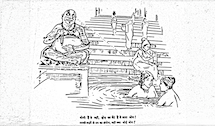
In the colonial period, the threat of the lecherous male gaze was used by the new patriarchy to restrict access to employment and public space for women, maintaining a patriarchal division of labour. Read how this process unfolded in our newest excerpt.
Saurav Kumar Rai
__
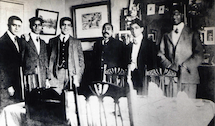
Was Lala Lajpat Rai's Hindu nationalism congruent with the principles of secularism? Explore our latest excerpt from Vanya Vaidehi Bhargav's fresh off-the-press book - Being Hindu, Being Indian: Lala Lajpat Rai's Ideas of Nation for more.
Vanya Vaidehi Bhargav
__
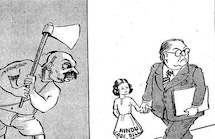
Popularly, we think that political cartoons question the powerful but what if this was not the case? What if political cartoons, replicated structures of the socially dominant? Read how in our new excerpt on political cartoons featuring Dr. Ambedkar.
Unnamati Syama Sundar
__

On Martyrs' day 2024, read the poet Sarojini Naidu's tribute to Gandhi given over All India Radio two days after his assassination.
Sarojini Naidu
__
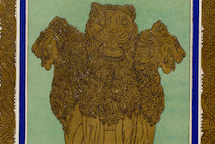
On Republic Day, the Indian History Collective presents you, twenty-two illustrations from the first illustrated manuscript (1954) of our Constitution.
Indian History Collective
__
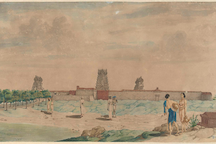
One of the key petitioners in the Ayodhya title dispute was Bhagwan Sri Ram Virajman. This petitioner was no mortal, but God Ram himself. How did Ram find his way from heaven to the Supreme Court of India to plead his case? Read further to find out.
Richard H Davis
__
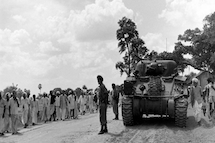
Labelled "one of the shortest, happiest wars ever seen", the integration of the princely state of Hyderabad in 1948 was anything but that. Read about the truth behind the creation of an Indian Union, the fault lines left behind, and what they signify
Afsar Mohammad
__
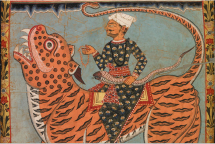
How did Bengal get a large Muslim population? Was it conversion by ruling elites was there something deeper at play? Read Dr. Eaton's classic essay to find out.
Richard Eaton
__
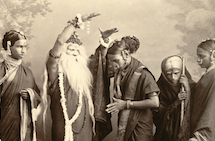
An excerpt from Shailaija Paik's new book 'Vulgarity of Caste' that documents the pivotal role Tamasha (the popular art form) has played in reinforcing and producing caste dynamics in Marathi society.
Shailaja Paik
__
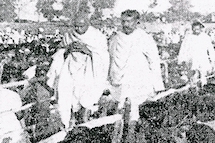
In 1942, two sub-districts in Bengal declared independence and set up a parallel government. The second part of our story brings you archival papers in the form of letters, newspaper reports, and judicial records documenting this remarkable movement.
Indian History Collective
__
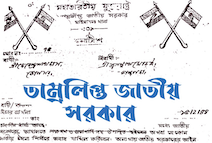
In 1942, five years before India was independent, two sub-divisions in Bengal not only declared their independence— they also instituted a parallel government. The first in a new series.
Indian History Collective
__
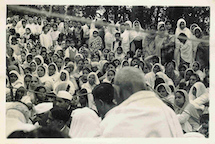
In his own words, read Mohandas Karamchand Gandhi's views on the proselytising efforts taken on by the organisations such as Arya Samaj, Tabhligi Jamaat, and the Church Missionary Society of England.
Mohandas Karamchand Gandhi
__
TIMELINE
-
2500 BC - Present 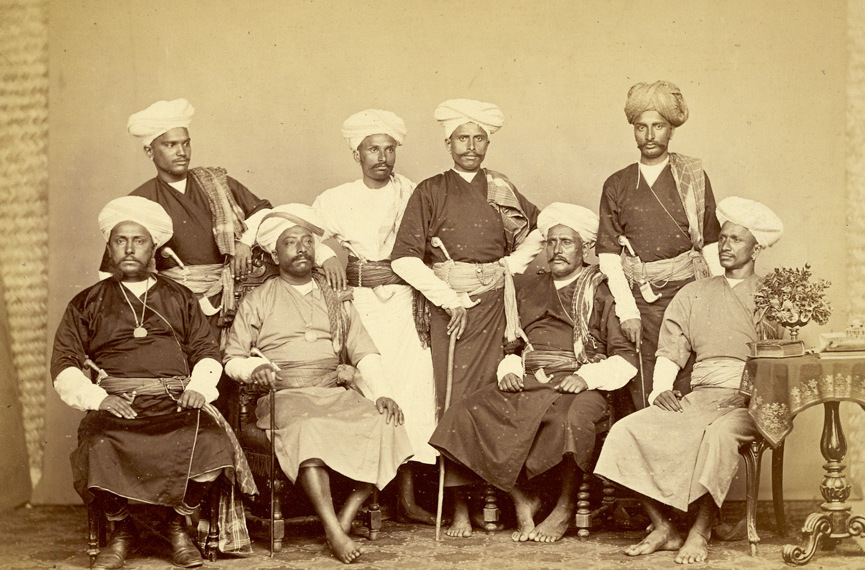
2500 BC - Present Tribal History: Looking for the Origins of the Kodavas -
2200 BC to 600 AD 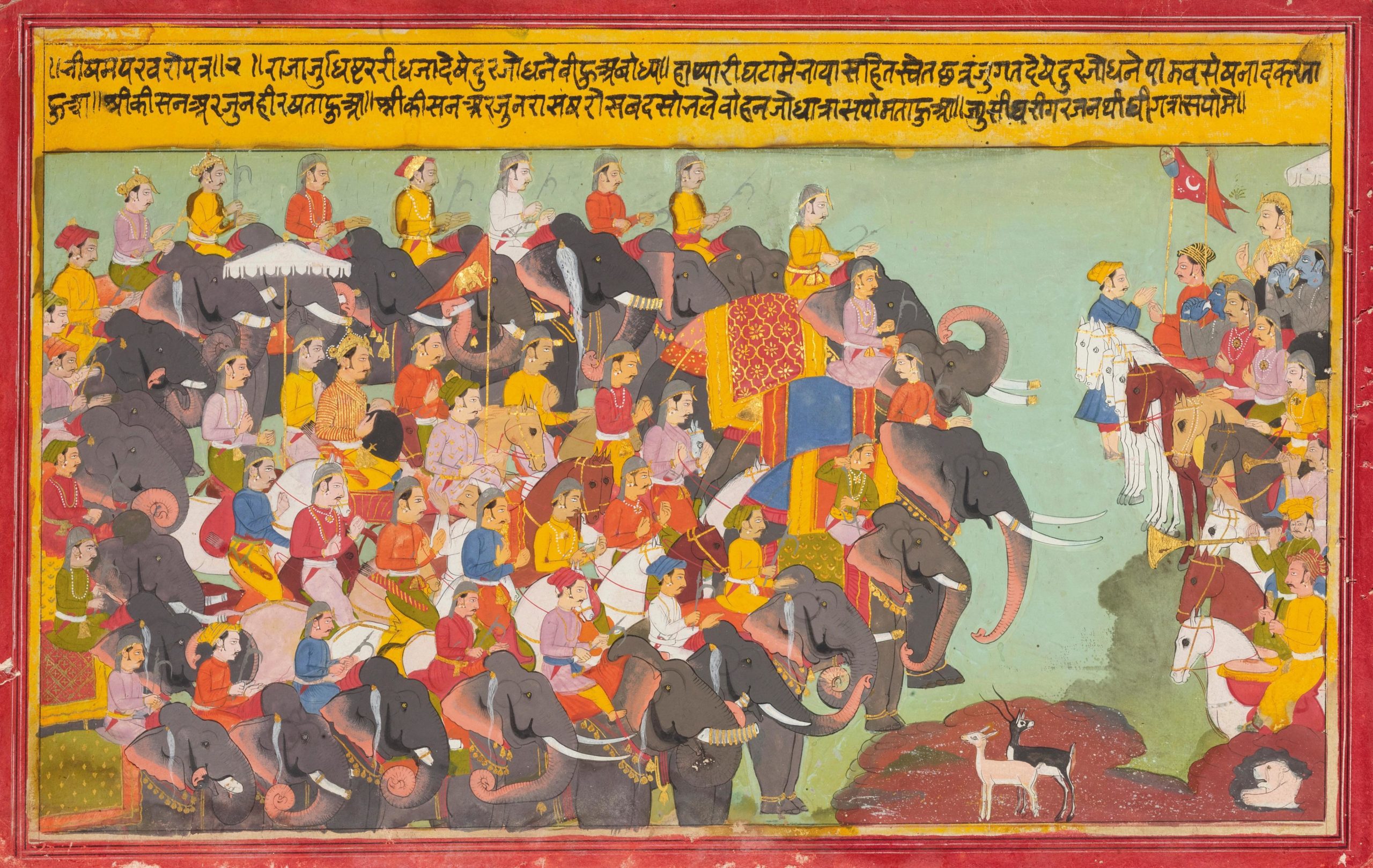
2200 BC to 600 AD War, Political Violence and Rebellion in Ancient India -
400 BC to 1001 AD 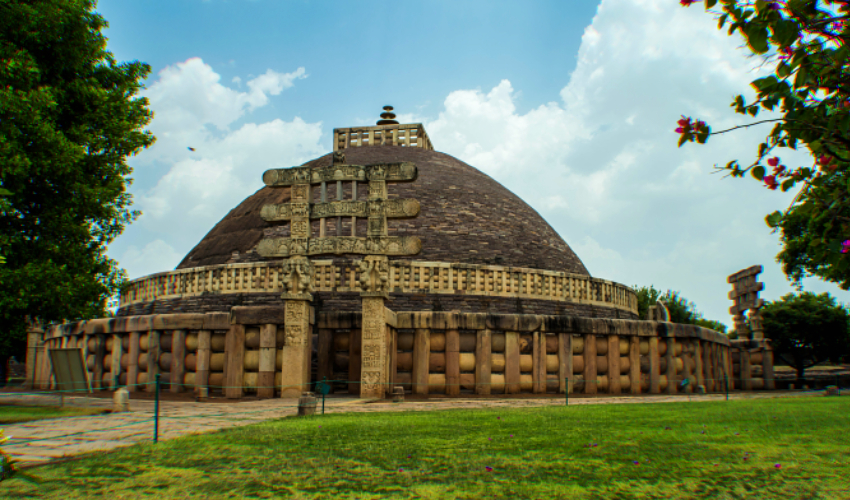
400 BC to 1001 AD The Dissent of the ‘Nastika’ in Early India -
600CE-1200CE 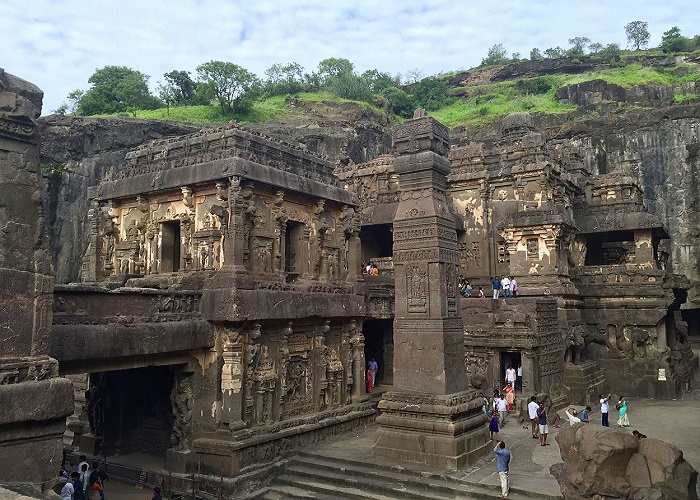
600CE-1200CE The Other Side of the Vindhyas: An Alternative History of Power -
c. 700 - 1400 AD 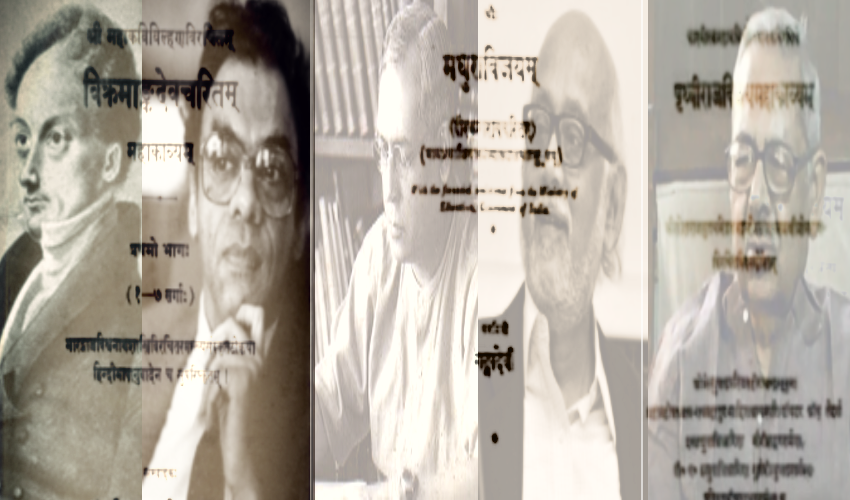
c. 700 - 1400 AD A Historian Recommends: Representing the ‘Other’ in Indian History -
c. 800 - 900 CE 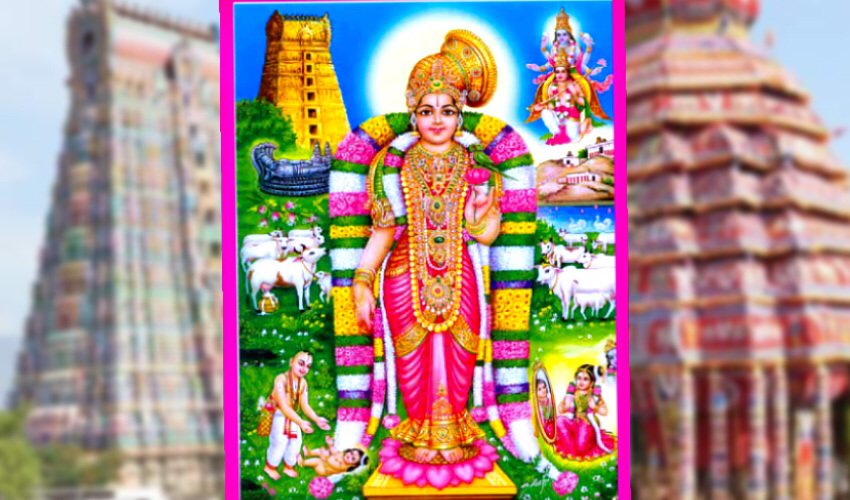
c. 800 - 900 CE ‘Drape me in his scent’: Female Sexuality and Devotion in Andal, the Goddess -
1192 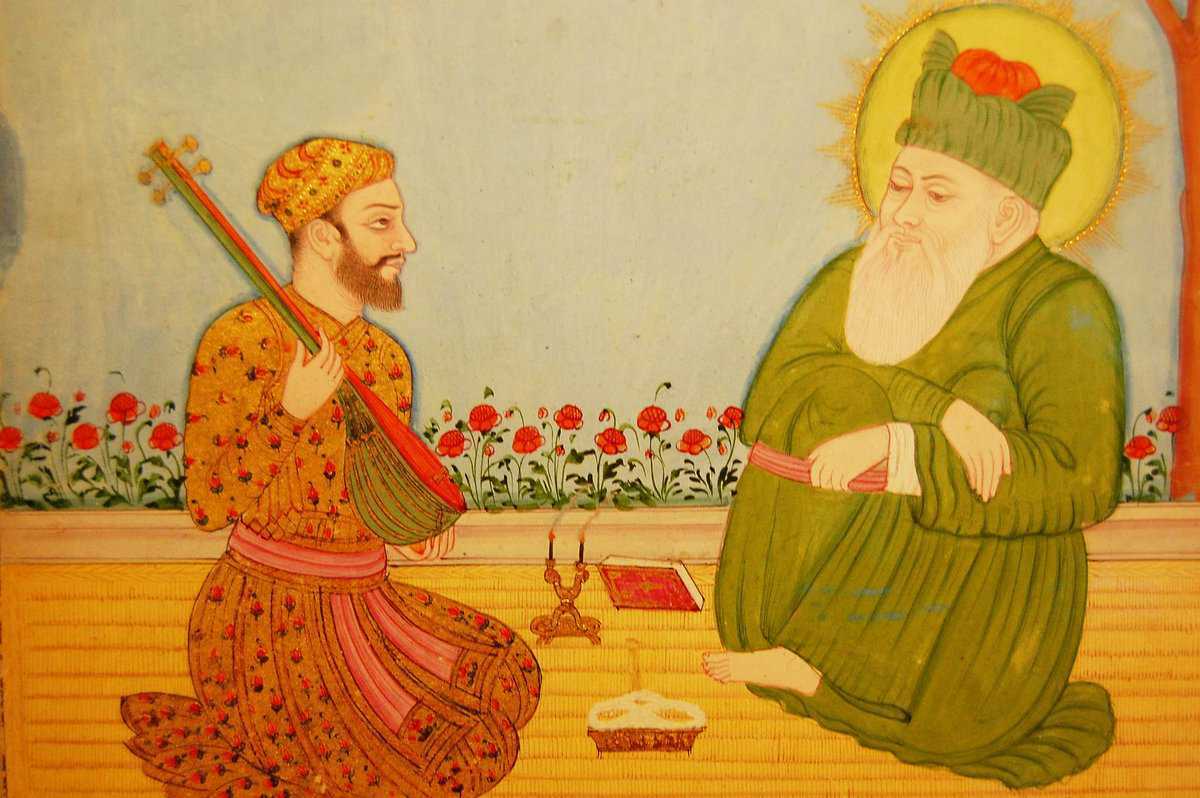
1192 Sufi Silsilahs: The Mystic Orders in India -
1200 - 1850 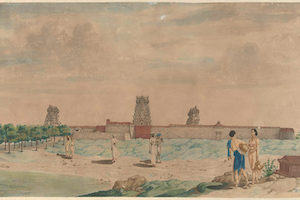
1200 - 1850 Temples, deities, and the law. -
c. 1500 - 1600 AD 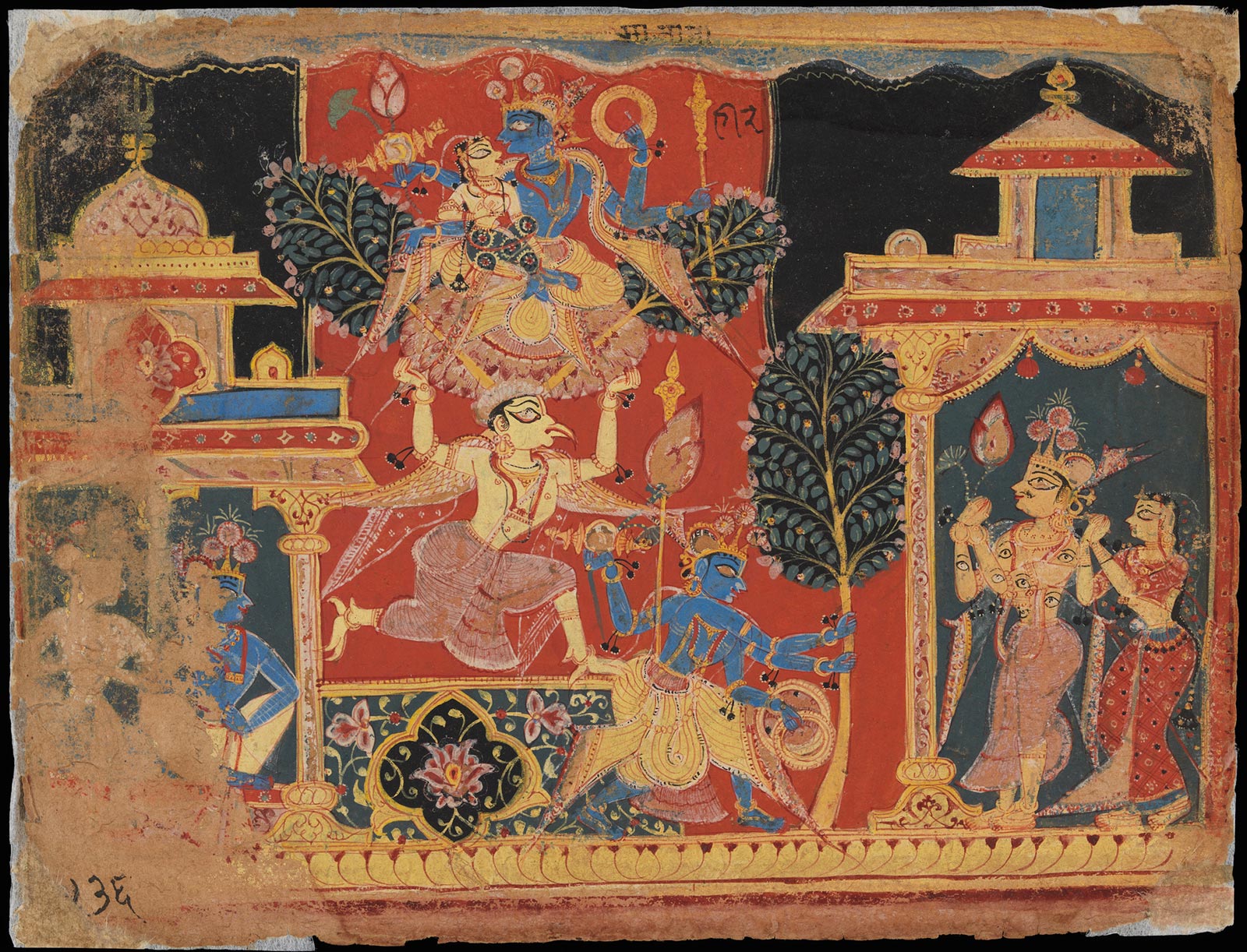
c. 1500 - 1600 AD A Historian Recommends: Religion in Mughal India -
1200-2020 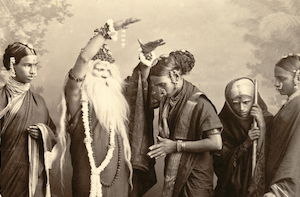
1200-2020 Policing Untouchables and Producing Tamasha in Maharashtra -
1530-1858 
1530-1858 Rajputs, Mughals and the Handguns of Hindustan -
1575 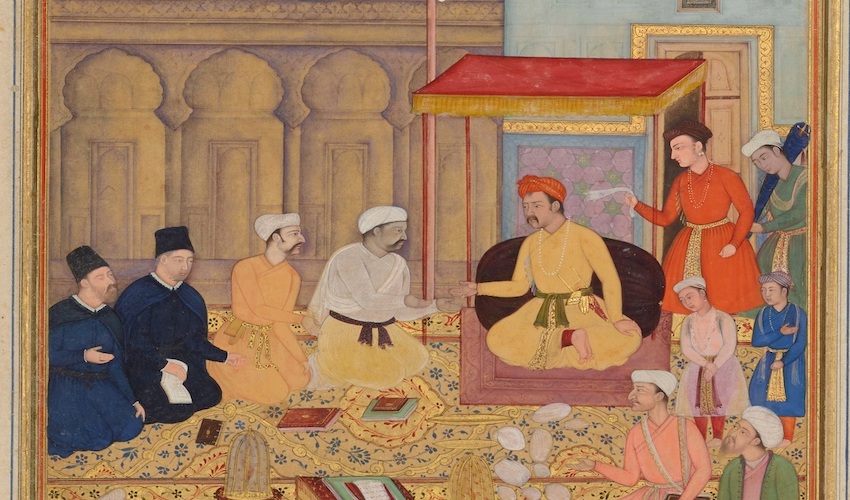
1575 Abdul Qadir Badauni & Abul Fazl: Two Mughal Intellectuals in King Akbar‘s Court -
1579 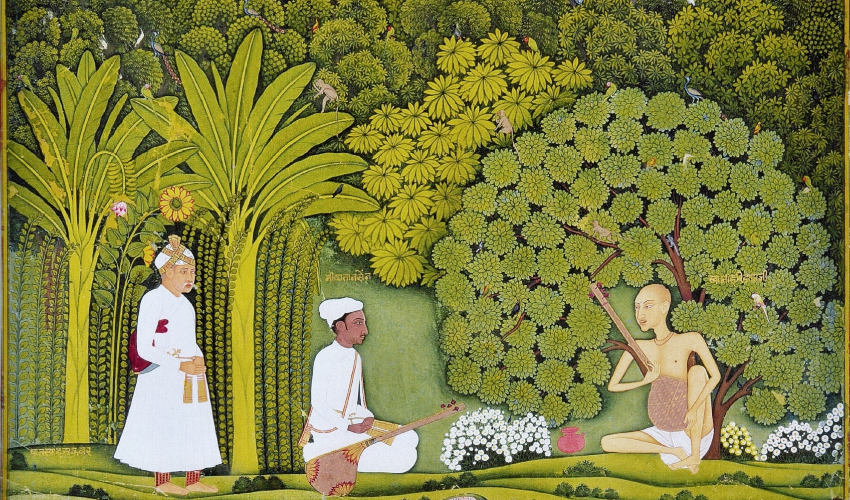
1579 Padshah-i Islam -
1550-1800 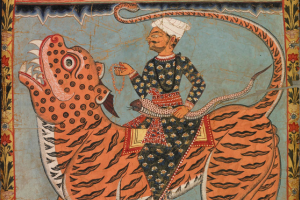
1550-1800 Who are the Bengal Muslims? : Conversion and Islamisation in Bengal -
c. 1600 CE-1900 CE 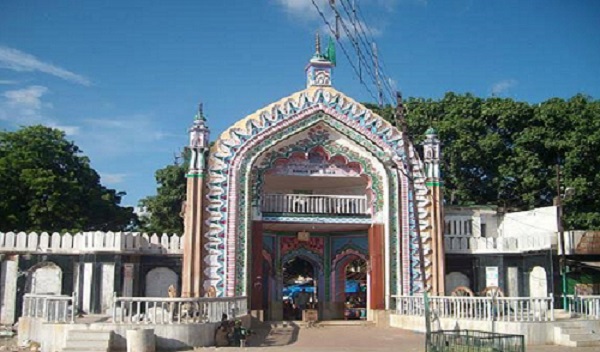
c. 1600 CE-1900 CE The Birth of a Community: UP’s Ghazi Miyan and Narratives of ‘Conquest’ -
1553 - 1900 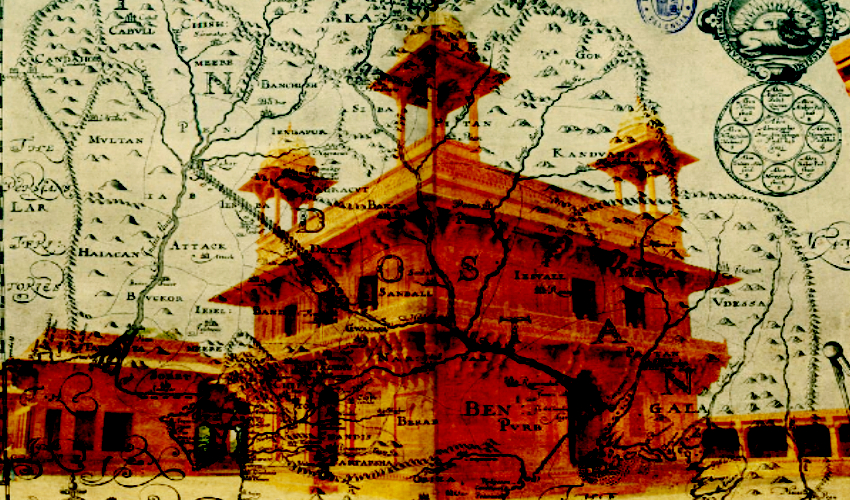
1553 - 1900 What Happened to ‘Hindustan’? -
1630-1680 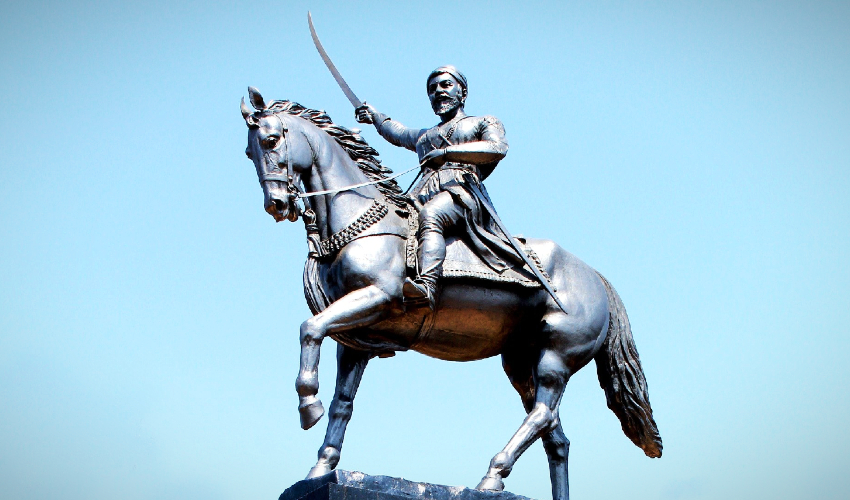
1630-1680 Shivaji: Hindutva Icon or Secular Nationalist? -
1630 -1680 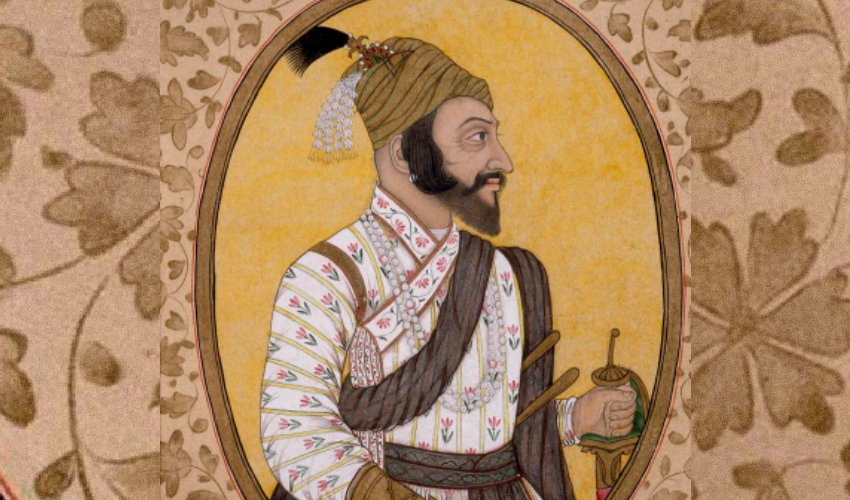
1630 -1680 Shivaji: His Legacy & His Times -
c. 1724 – 1857 A.D. 
c. 1724 – 1857 A.D. Bahu Begum and the Gendered Struggle for Power -
1818 - Present 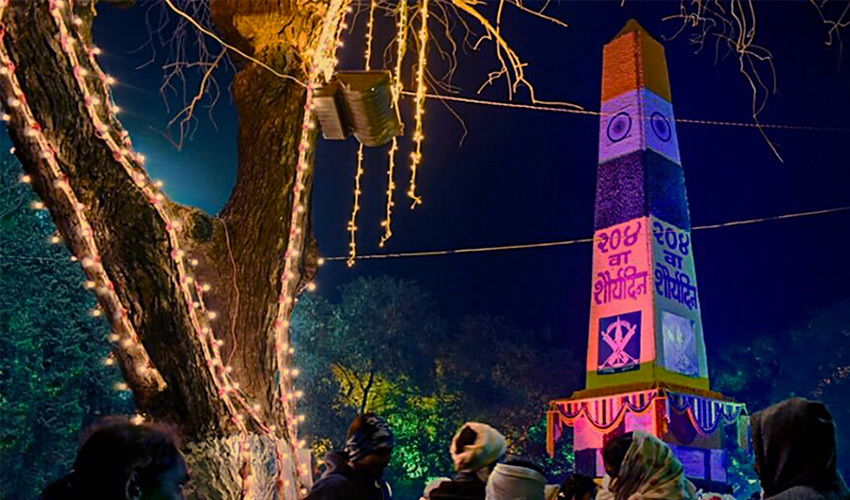
1818 - Present The Contesting Memories of Bhima-Koregaon -
1831 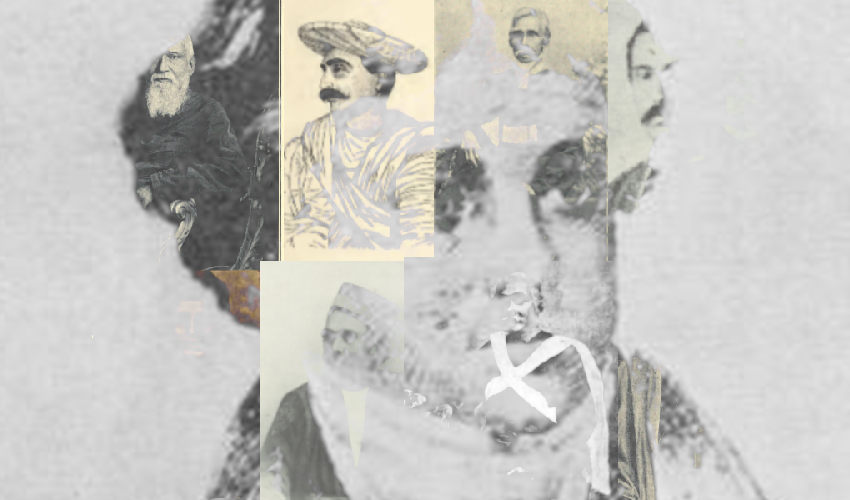
1831 The Derozians’ India -
1855 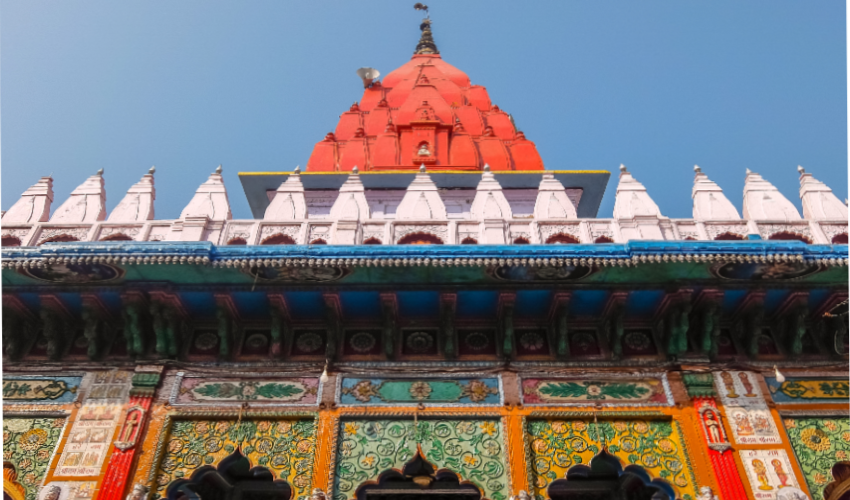
1855 Ayodhya 1855 -
1856 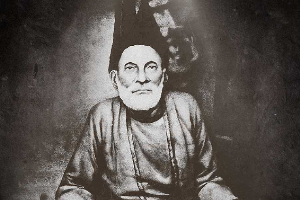
1856 “Worshipping the dead is not an auspicious thing” — Ghalib -
1857 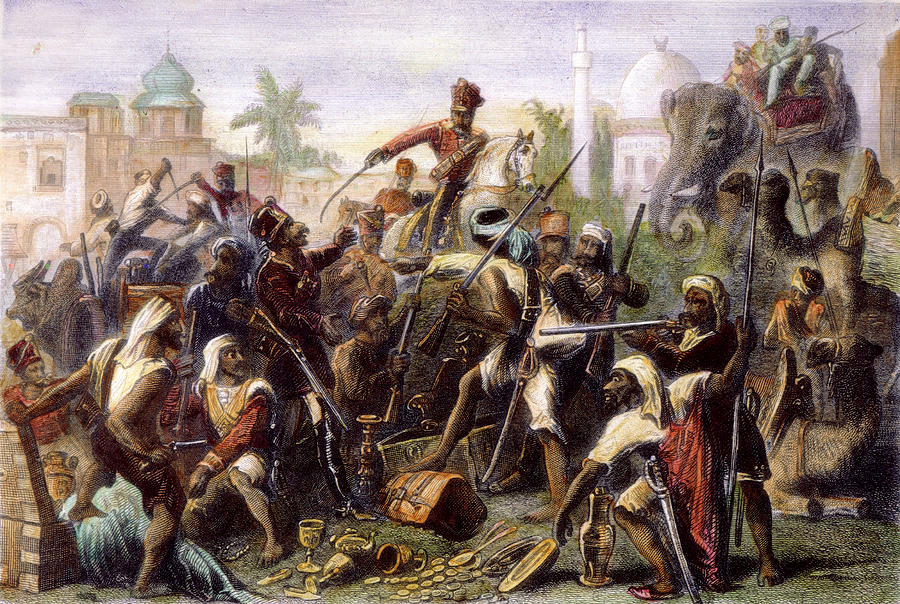
1857 A Subaltern speaks: Dalit women’s counter-history of 1857 -
1858 - 1976 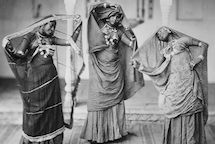
1858 - 1976 Lifestyle as Resistance: The Curious Case of the Courtesans of Lucknow -
1883 - 1894 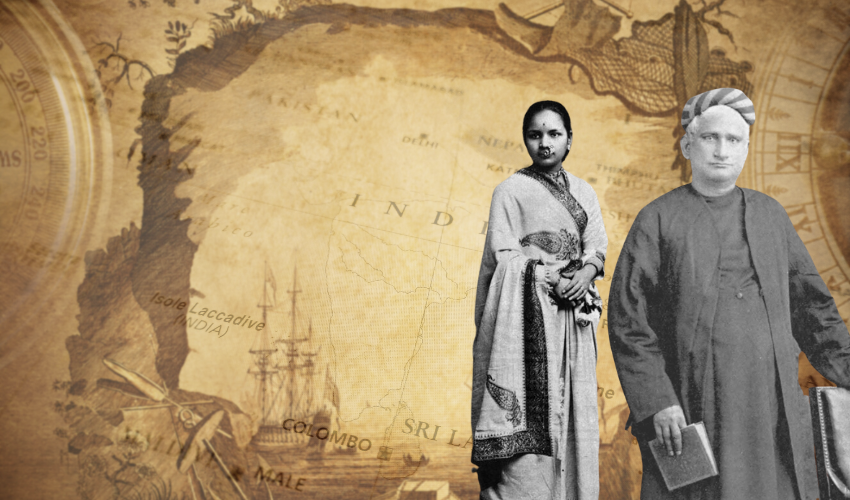
1883 - 1894 The Sea Voyage Question: A Nineteenth century Debate -
1887 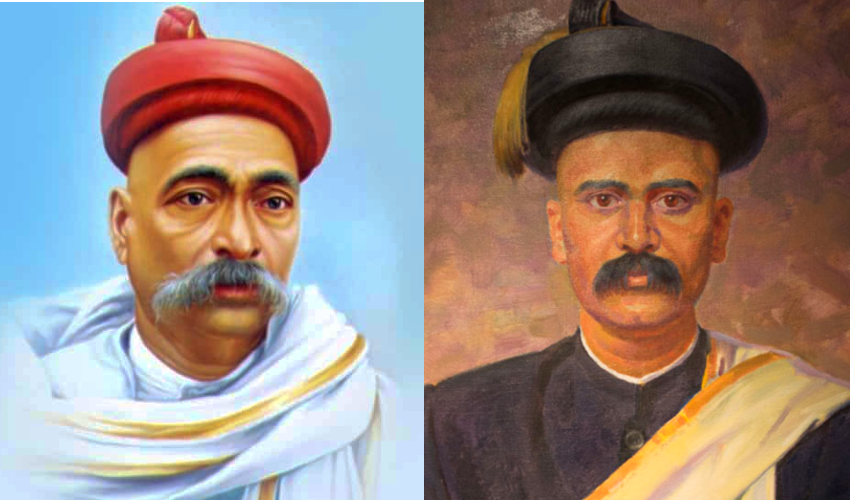
1887 The Great Debaters: Tilak Vs. Agarkar -
1893-1946 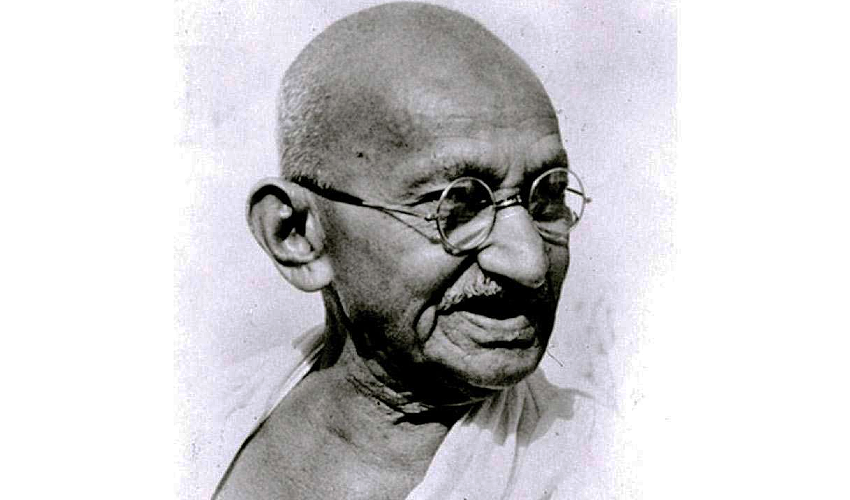
1893-1946 A Historian Recommends: Gandhi Vs. Caste -
1897 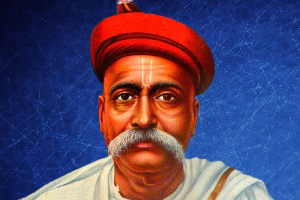
1897 Queen Empress vs. Bal Gangadhar Tilak: An Autopsy -
1913 - 1916 Modern Review 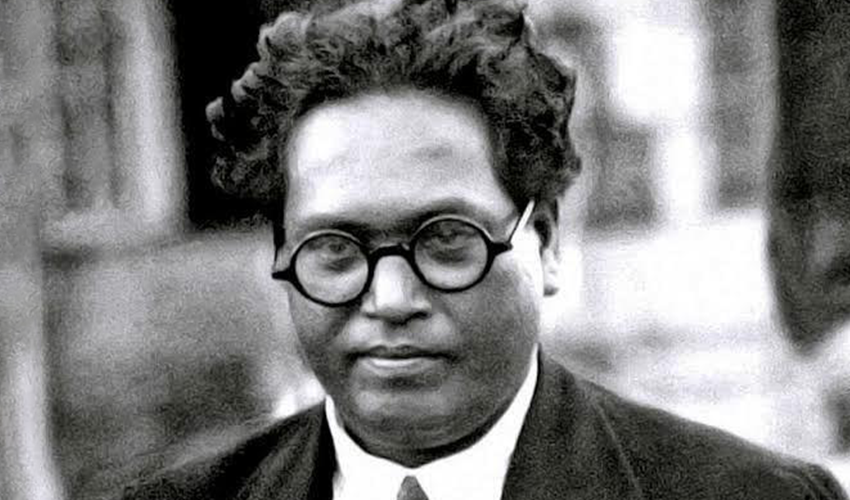
1913 - 1916 A Young Ambedkar in New York -
1916 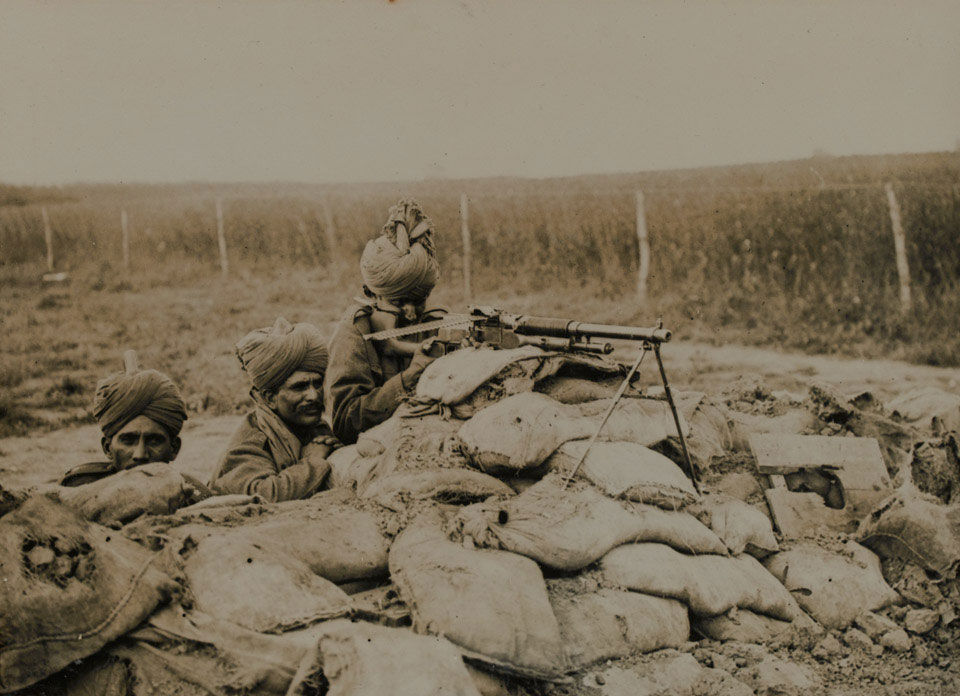
1916 A Rare Account of World War I by an Indian Soldier -
1917 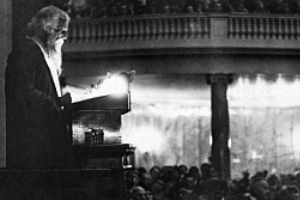
1917 On Nationalism, by Tagore -
1918 - 1919 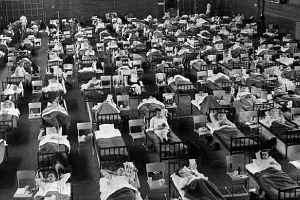
1918 - 1919 What Happened to the Virus That Caused the World’s Deadliest Pandemic? -
1920 - 1947 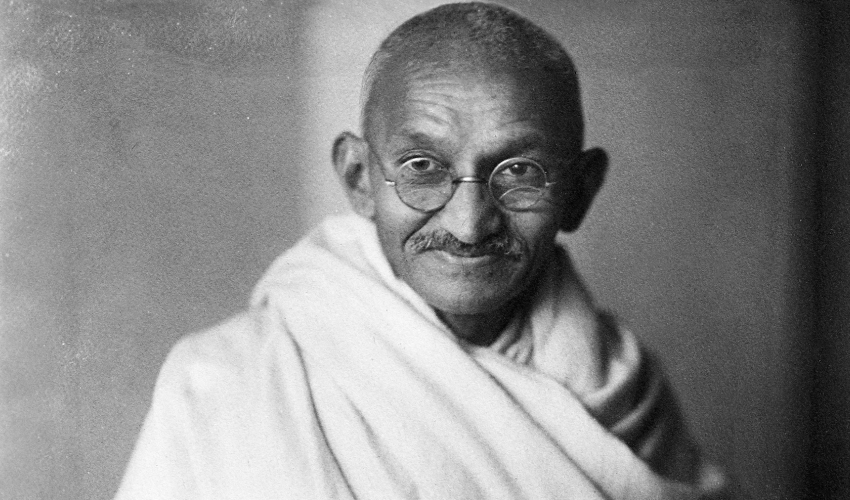
1920 - 1947 How One Should Celebrate Diwali, According to Gandhi -
1921 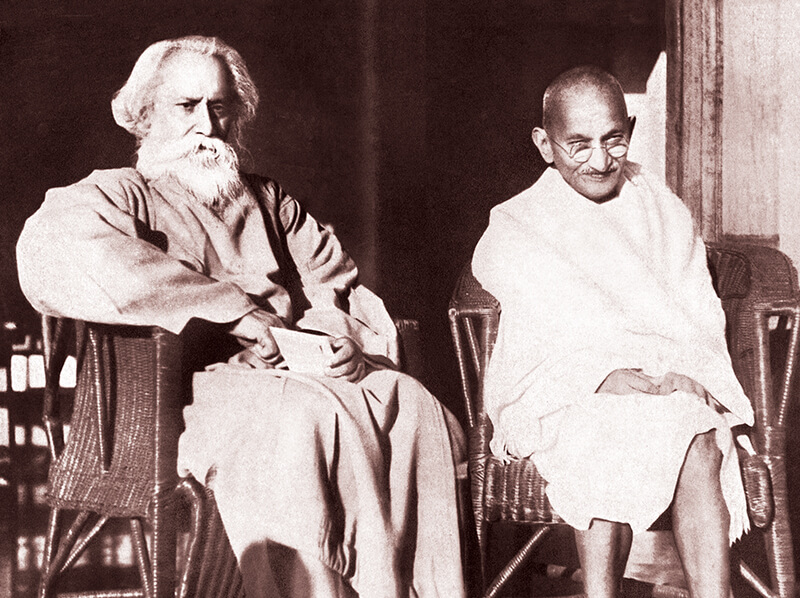
1921 Great Debates: Tagore Vs. Gandhi (1921) -
1921 - 2015 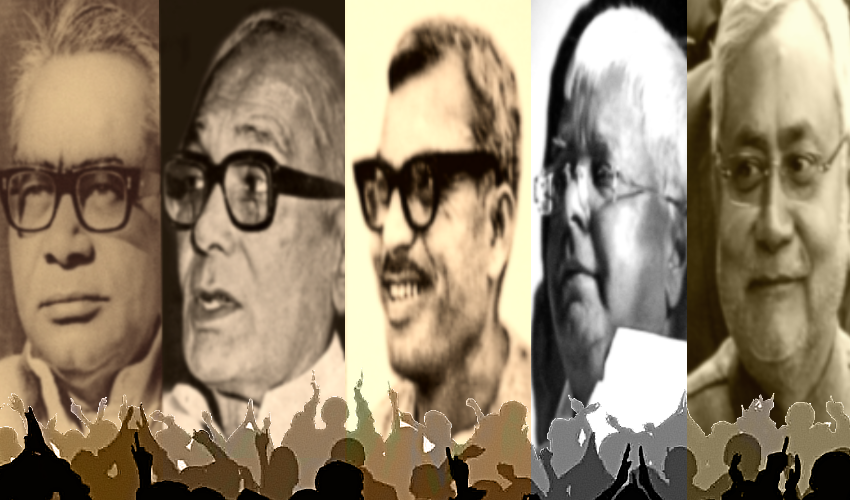
1921 - 2015 A History of Caste Politics and Elections in Bihar -
1915-1921 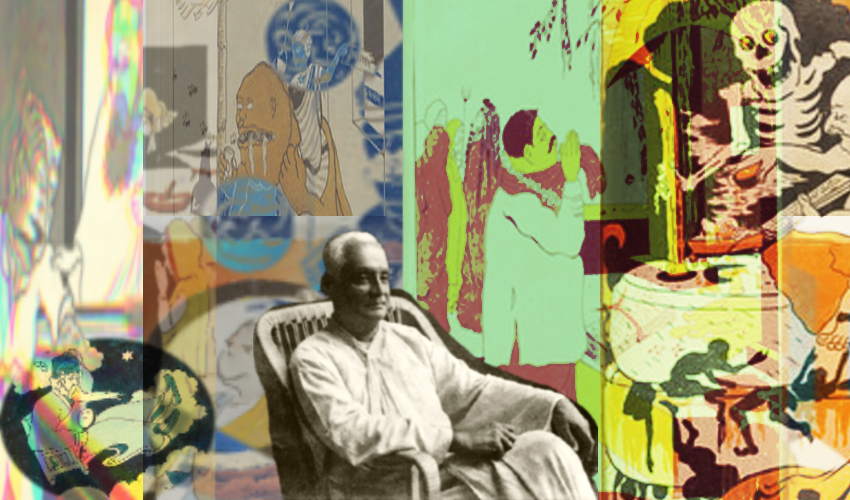
1915-1921 The Satirical Genius of Gaganendranath Tagore -
1924-1937 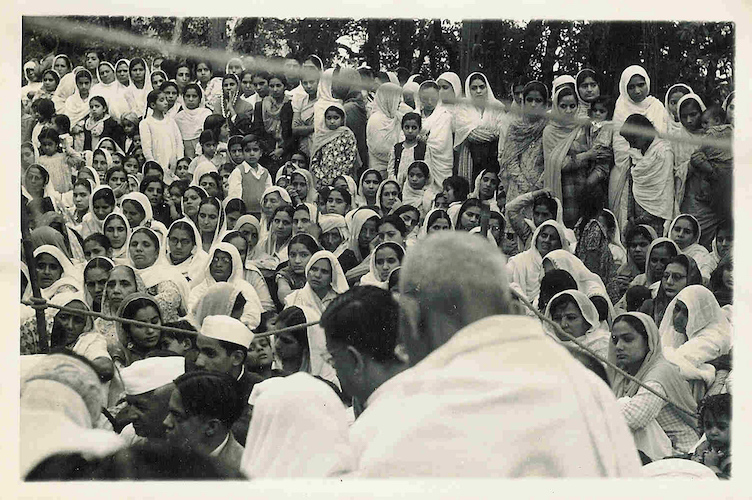
1924-1937 What were Gandhi’s Views on Religious Conversion? -
1900-1950 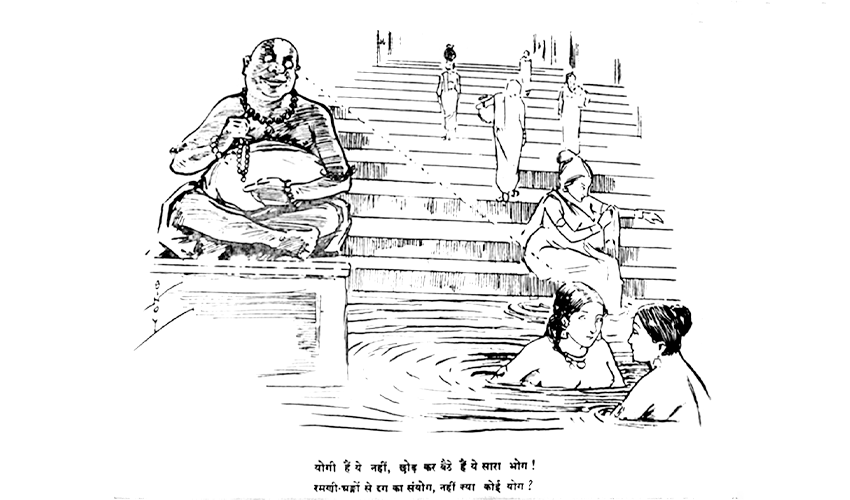
1900-1950 Gazing at the Woman’s Body: Historicising Lust and Lechery in a Patriarchal Society -
1925, 1926 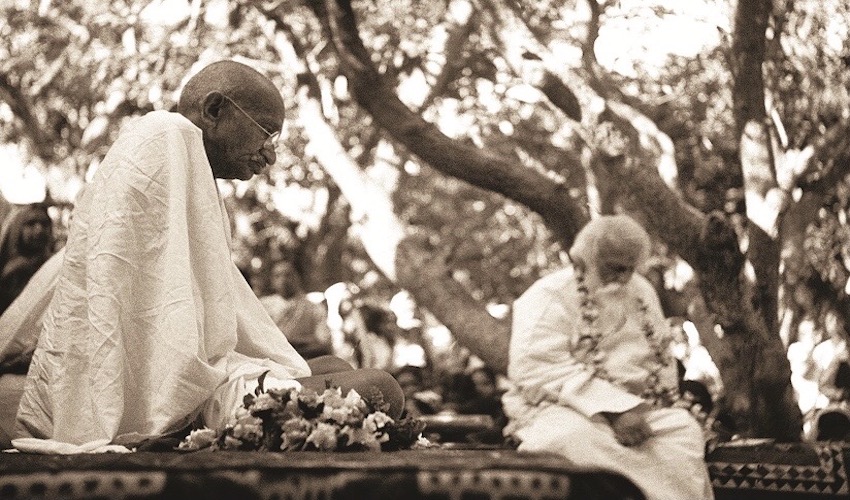
1925, 1926 Great Debates: Tagore vs Gandhi (1925-1926) -
1928 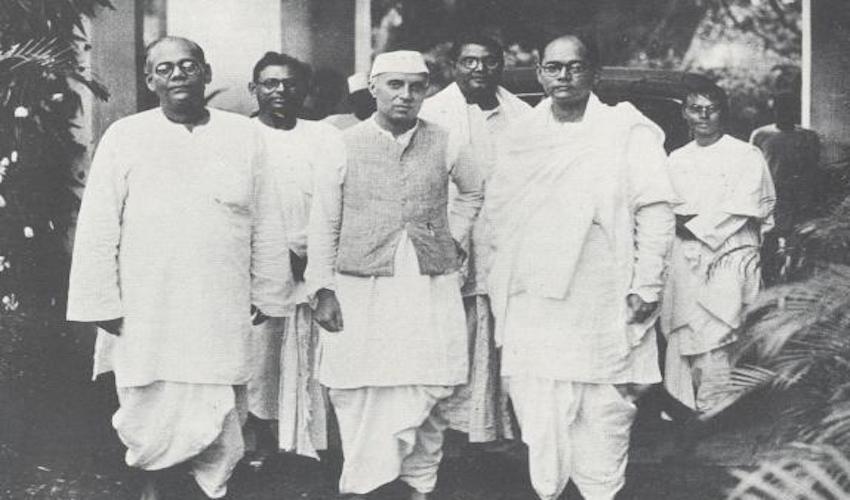
1928 Bhagat Singh’s dilemma: Nehru or Bose? -
1930 Modern Review 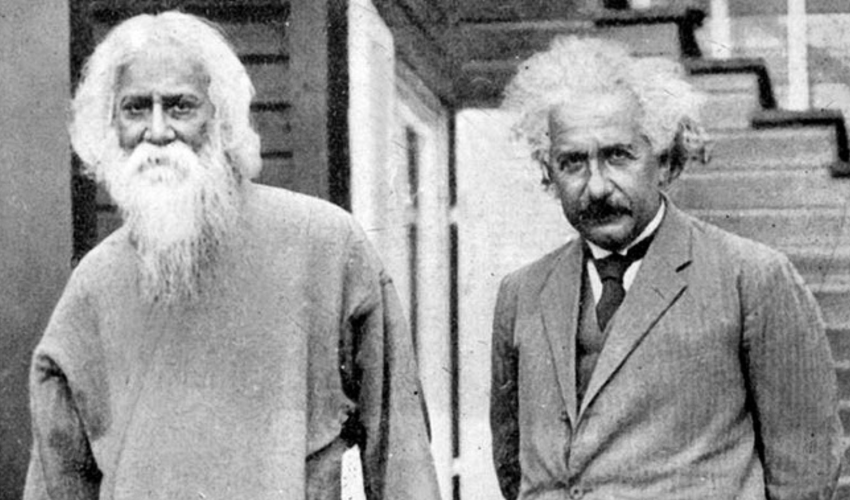
1930 The Modern Review Special: On the Nature of Reality -
1932 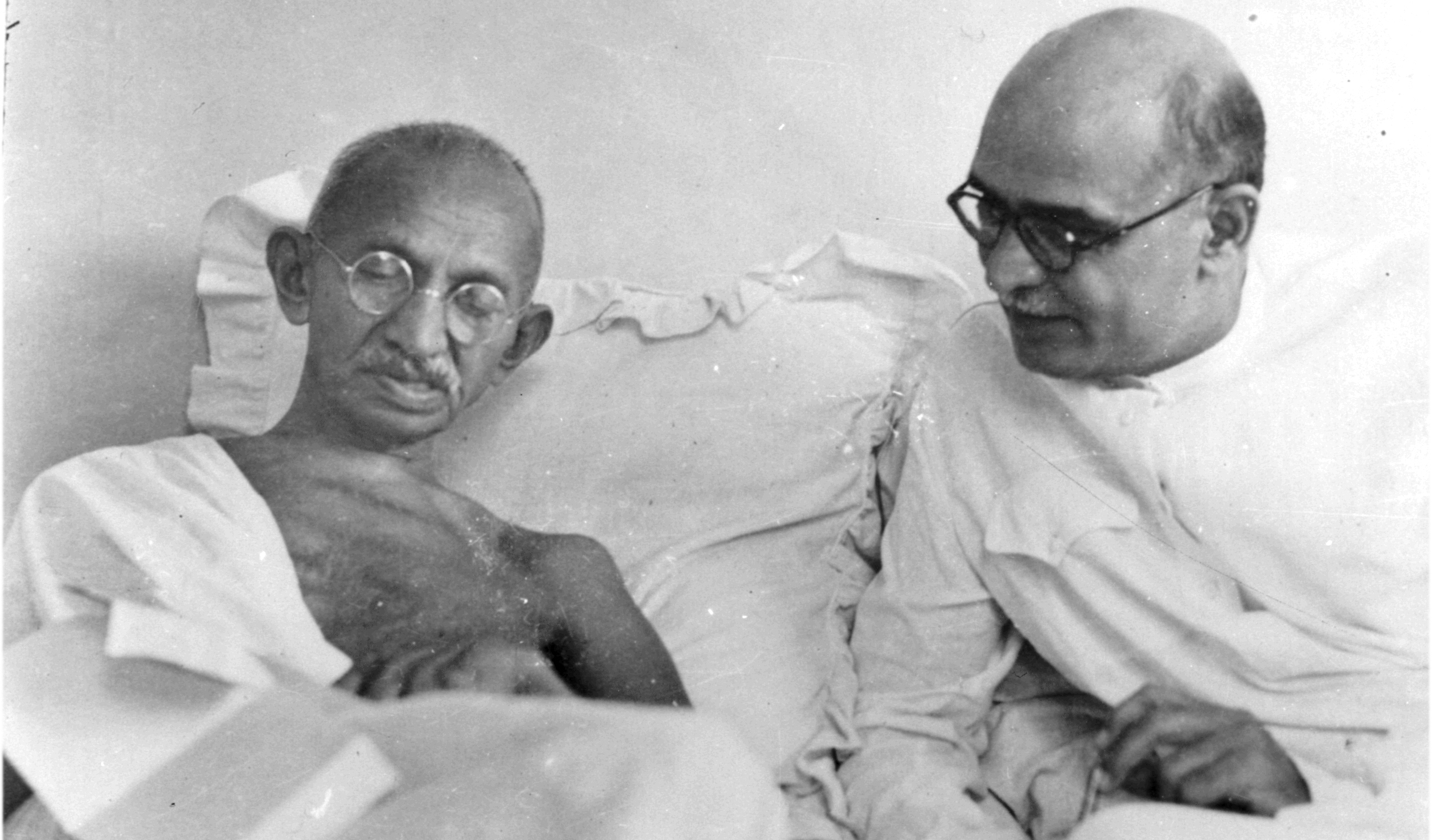
1932 Caste, Gandhi and the Man Beside Gandhi -
1933 - 1991 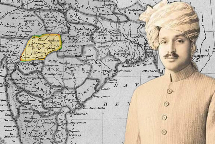
1933 - 1991 Raghubir Sinh: The Prince Who Would Be Historian -
1935 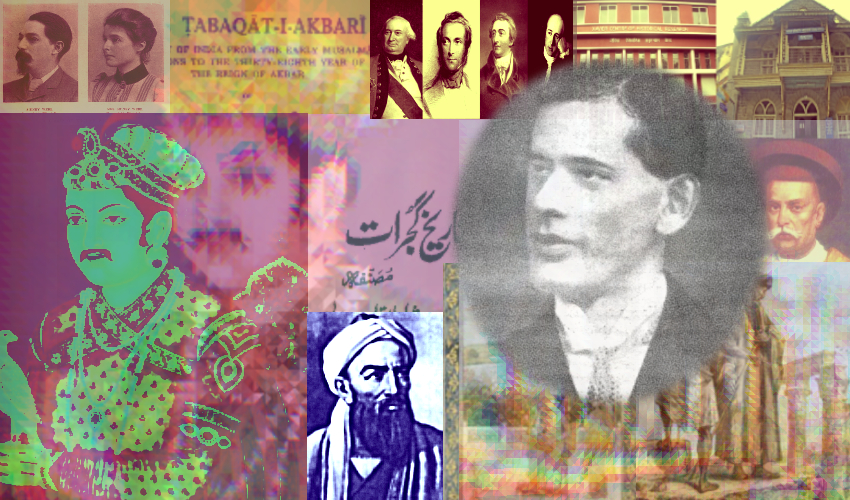
1935 A Historian Recommends: SA Khan’s Timeless Presidential Address -
1865-1928 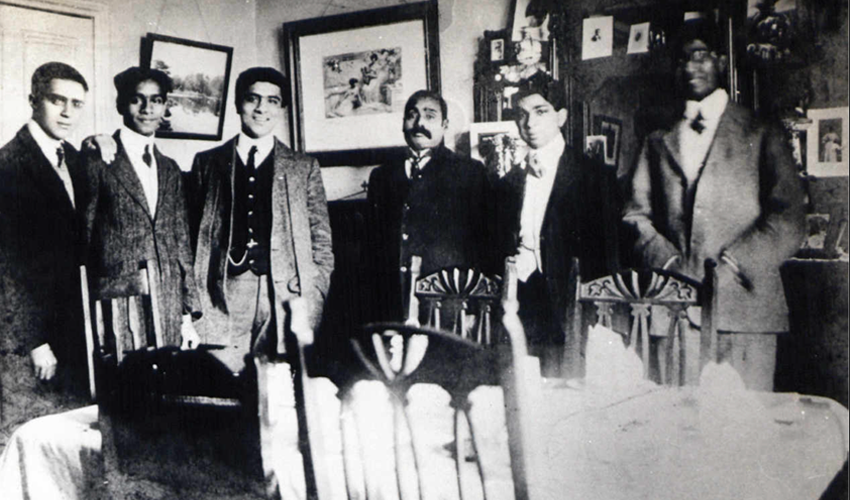
1865-1928 Understanding Lajpat Rai’s Hindu Politics and Secularism -
1935 Modern Review 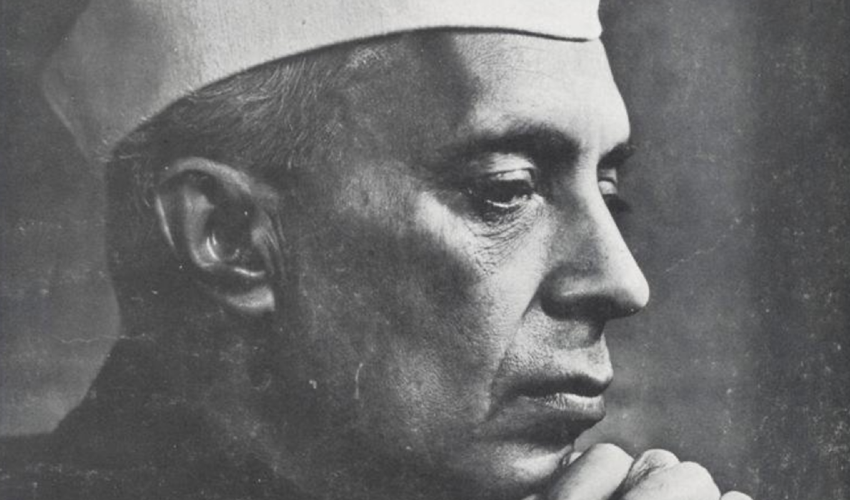
1935 The Modern Review Special: The Mind of a Judge -
1936 Modern Review 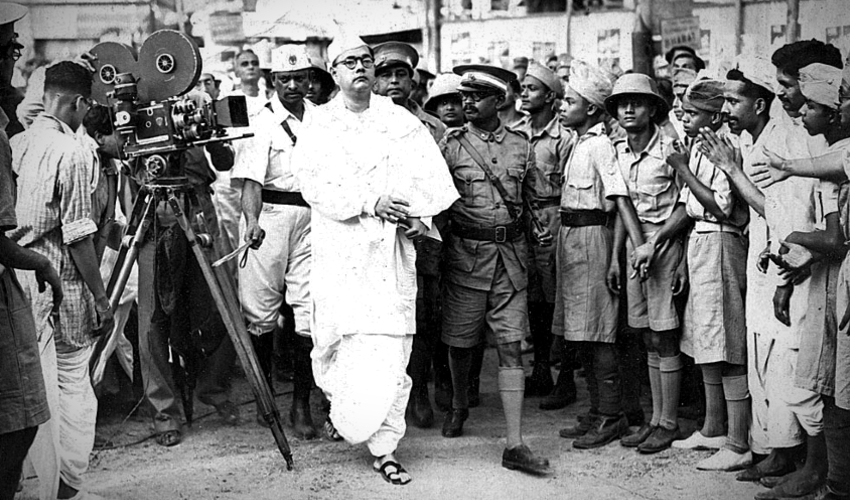
1936 The Modern Review Special: When Netaji Subhas Bose Was Wrongfully Detained for ‘Terrorism’ -
1936 
1936 Annihilation of Caste: Part 1 -
1936 Modern Review 
1936 The Modern Review Special: An Indian MP in the British Parliament -
1936 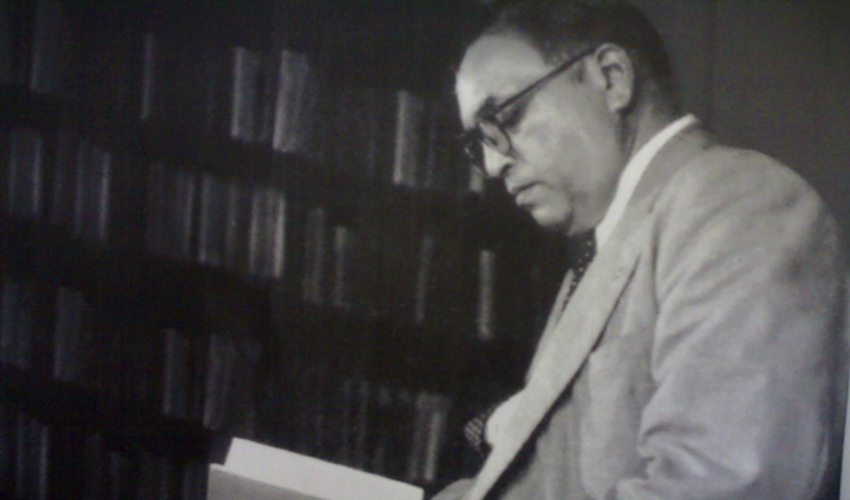
1936 Annihilation of Caste: Part 2 -
1936 
1936 A Reflection of His Age: Munshi Premchand on the True Purpose of Literature -
1936 Modern Review 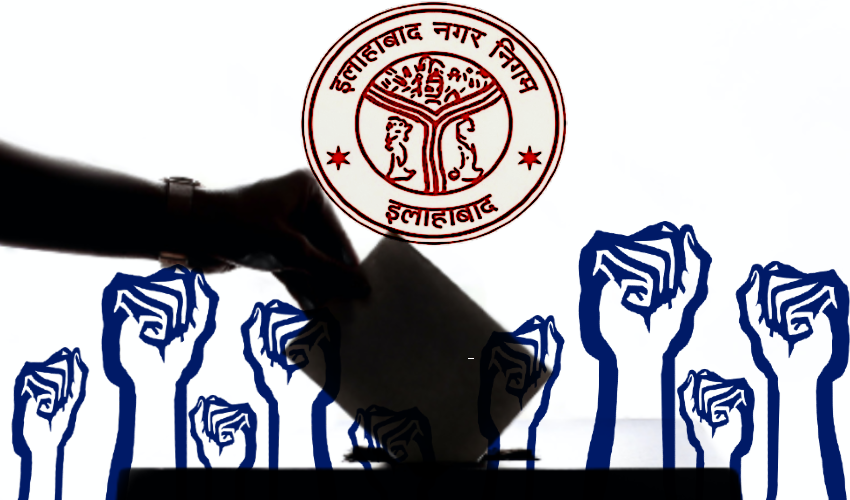
1936 The Modern Review Special: The Defeat of a Dalit Candidate in a 1936 Municipal Election -
1937 Modern Review 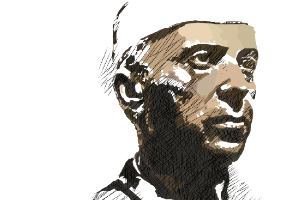
1937 The Modern Review Special: Rashtrapati -
1938 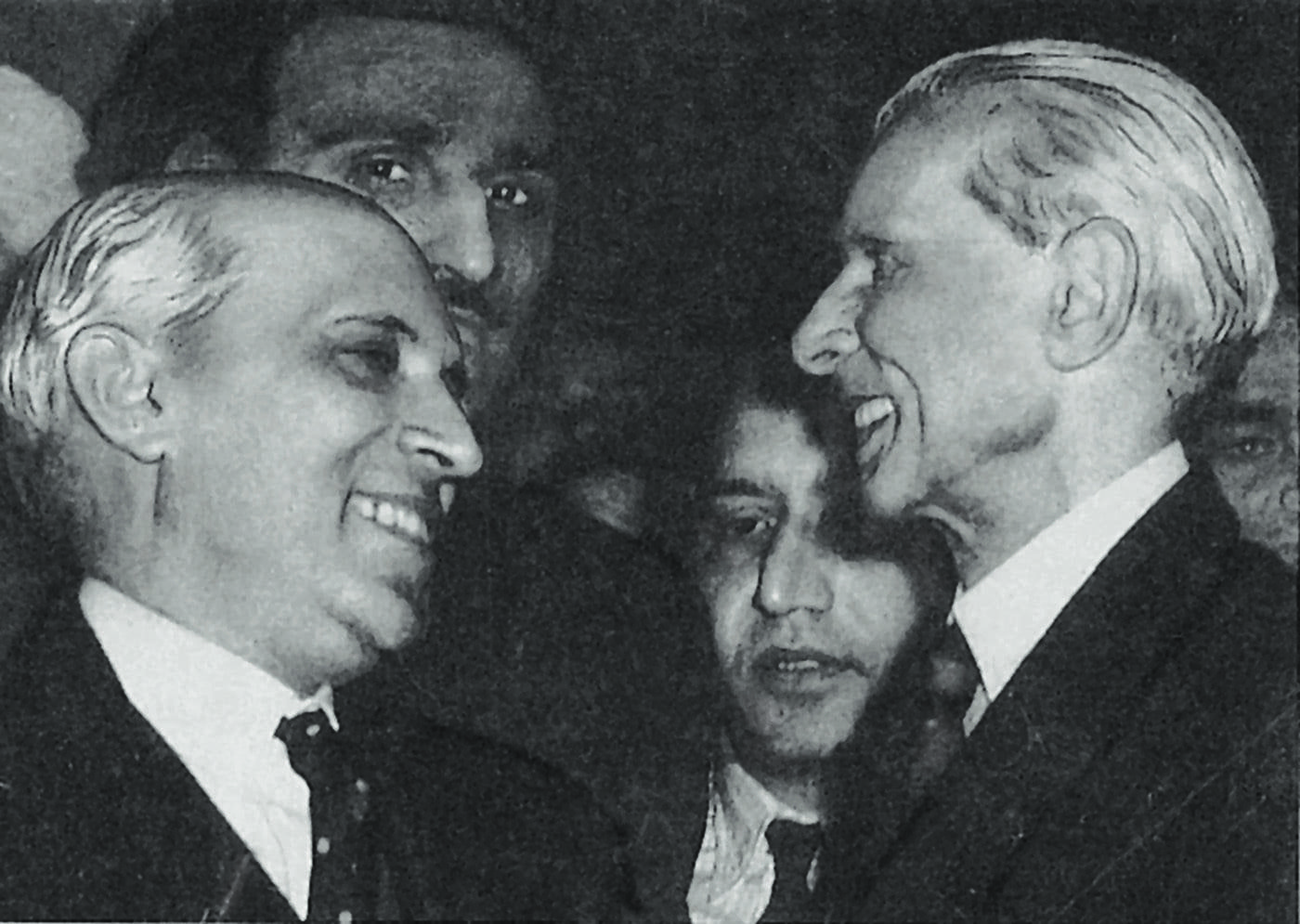
1938 Great Debates: Nehru Vs. Jinnah (1938) -
1942 Modern Review 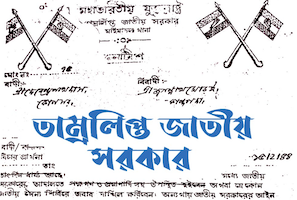
1942 IHC Uncovers: A Parallel Government In British India (Part 1) -
1942-1945 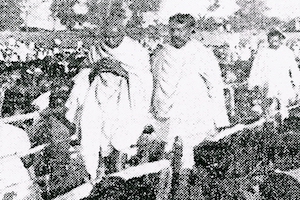
1942-1945 IHC Uncovers: A Parallel Government in British India (Part 2) -
1946 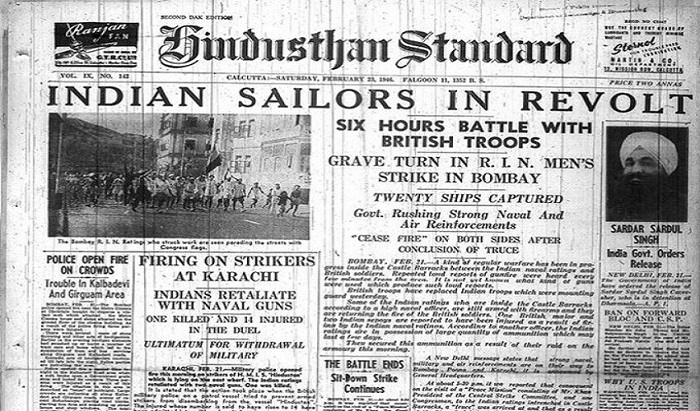
1946 Our Last War of Independence: The Royal Indian Navy Mutiny of 1946 -
1946 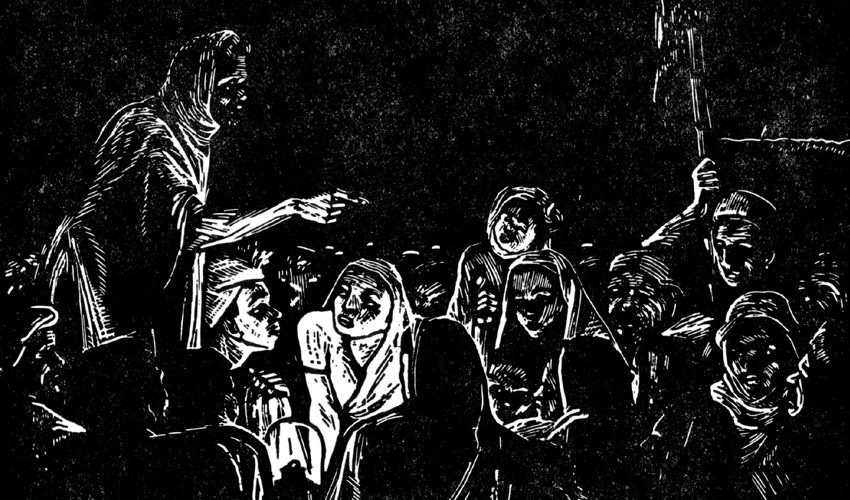
1946 An Artist’s Account of the Tebhaga Movement in Pictures And Prose -
1946 – 1947 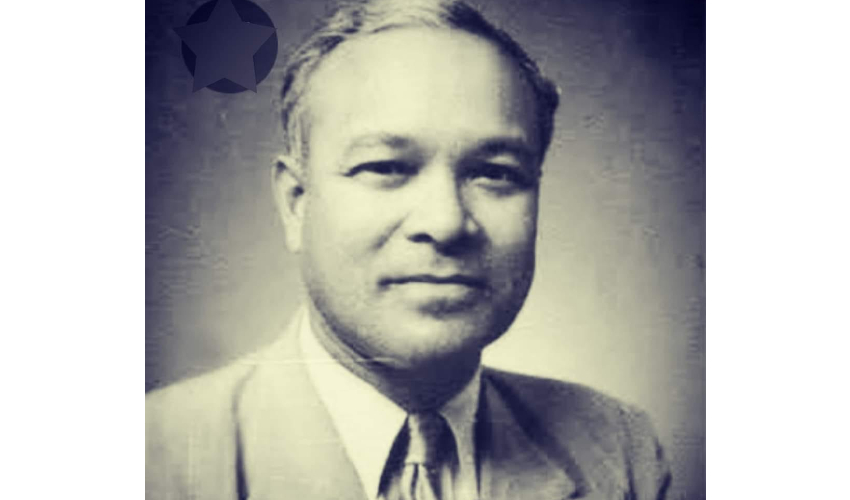
1946 – 1947 “The Most Democratic People on Earth” : An Adivasi Voice in the Constituent Assembly -
1946-1947 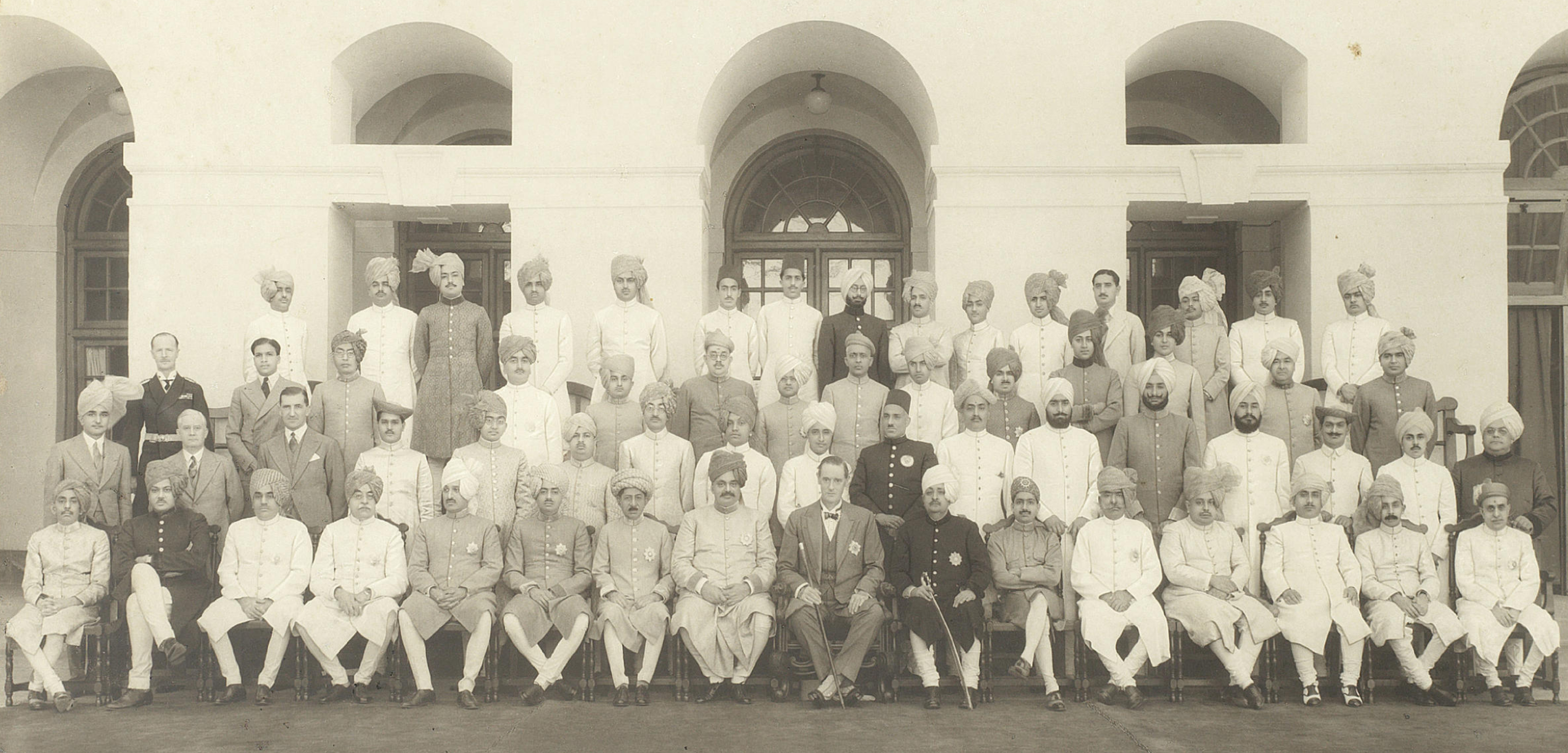
1946-1947 VP Menon and the Birth of Independent India -
1916 - 1947 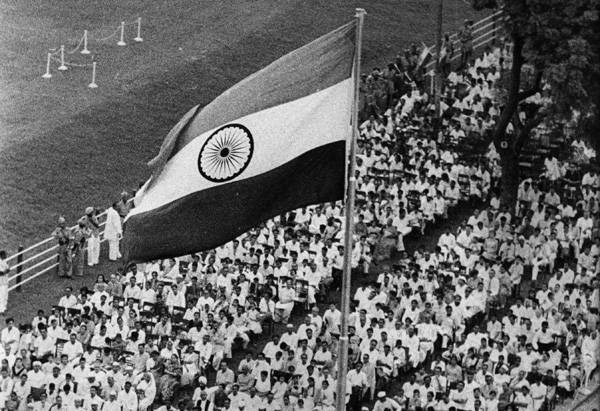
1916 - 1947 8 @ 75: 8 Speeches Independent Indians Must Read -
1947-1951 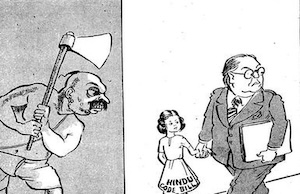
1947-1951 Ambedkar Cartoons: The Joke’s On Us -
1948 
1948 “My Father, Do Not Rest” -
1940-1960 
1940-1960 Integration Myth: A Silenced History of Hyderabad -
1948 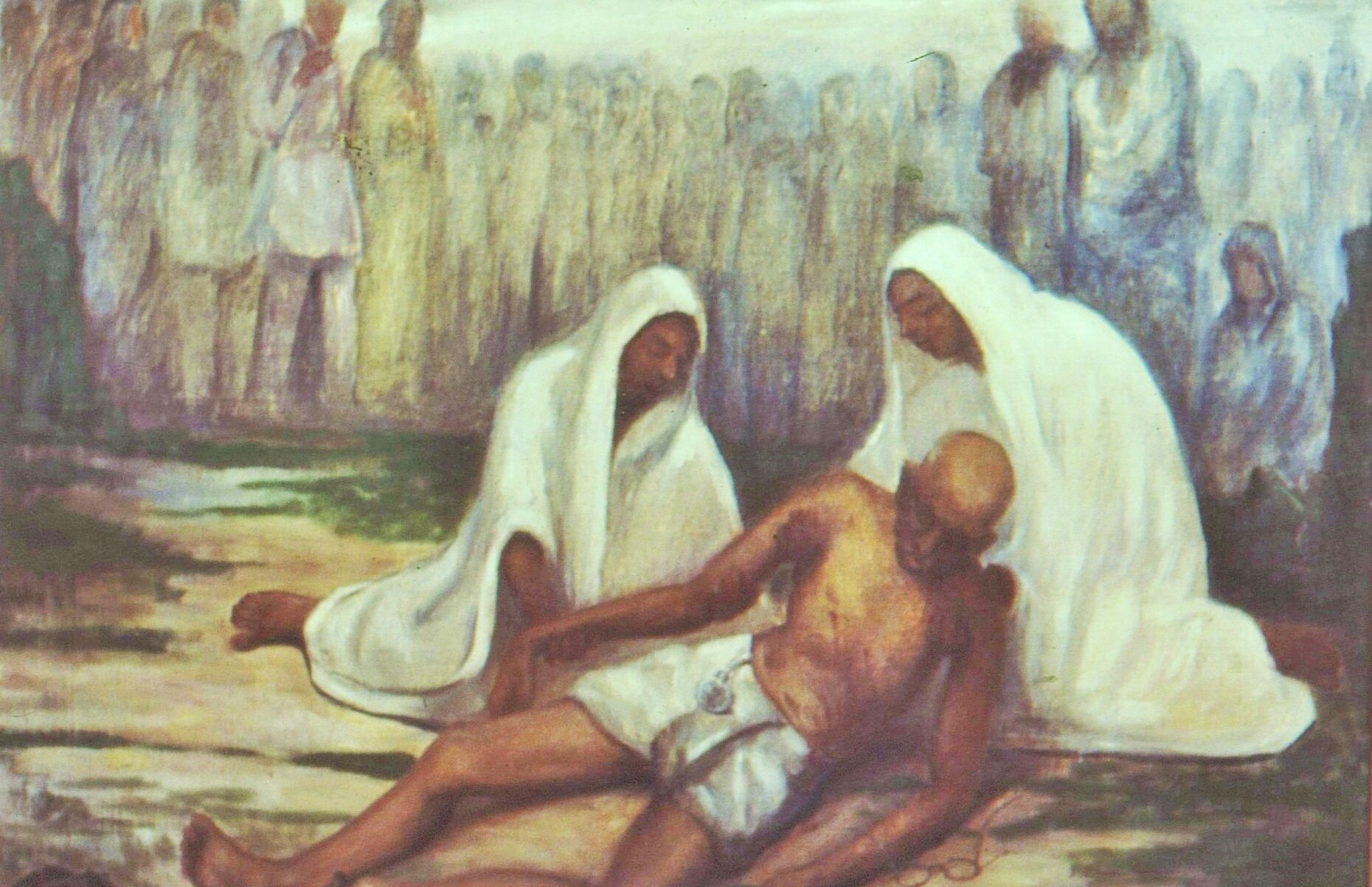
1948 The Assassination of a Mahatma, the Princely States and the ‘Hindu’ Nation -
1949 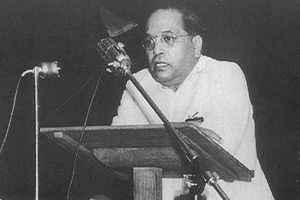
1949 Ambedkar warns against India becoming a ‘Democracy in Form, Dictatorship in Fact’ -
1950 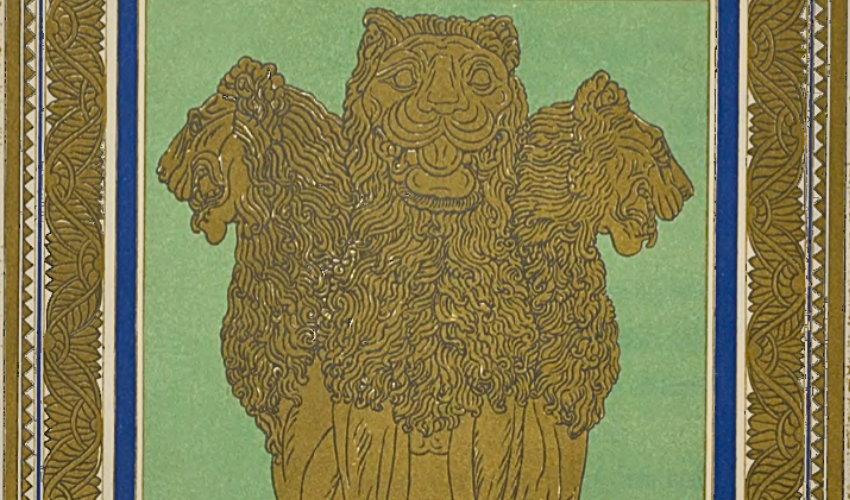
1950 Illustrations from the constitution -
1951 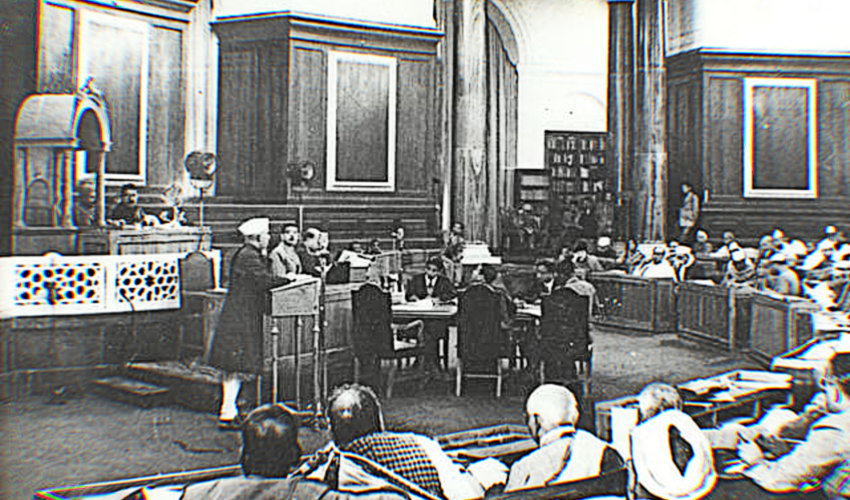
1951 How the First Amendment to the Indian Constitution Circumscribed Our Freedoms & How it was Passed -
1967 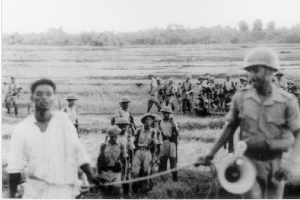
1967 Once Upon A Time In Naxalbari -
1970 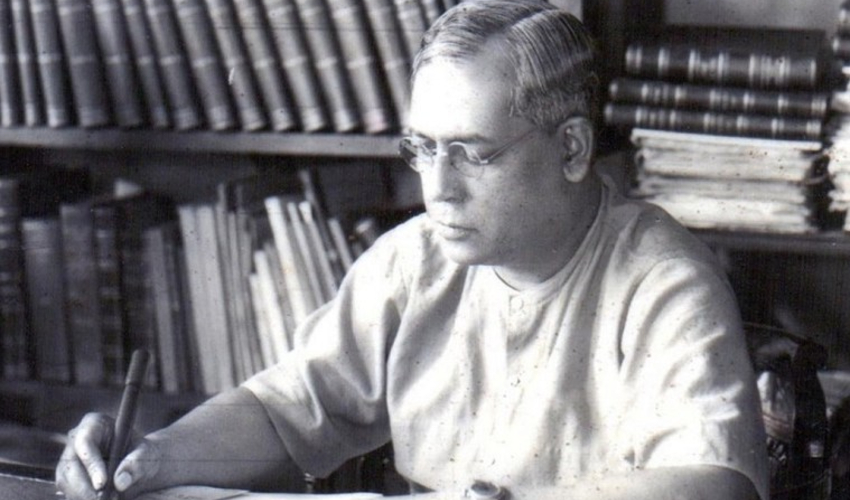
1970 R.C. Majumdar on Shortcomings in Indian Historiography -
1973 - 1993 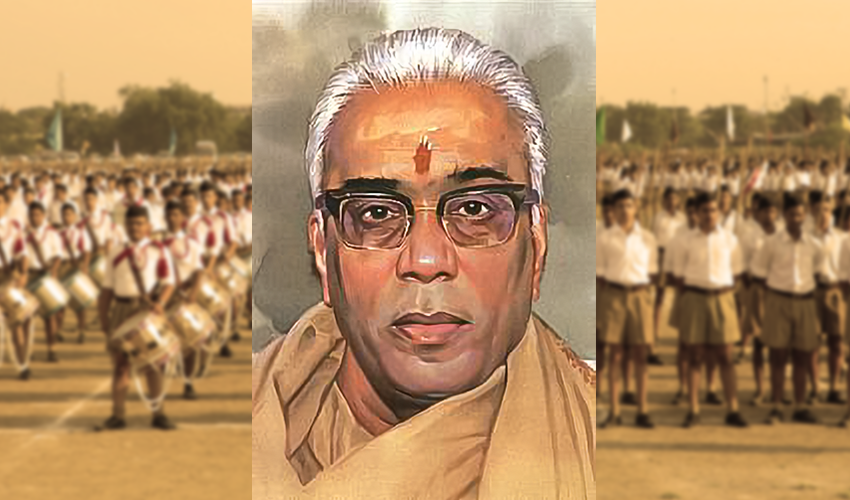
1973 - 1993 Balasaheb Deoras: Kingmaker of the Sangh -
1975 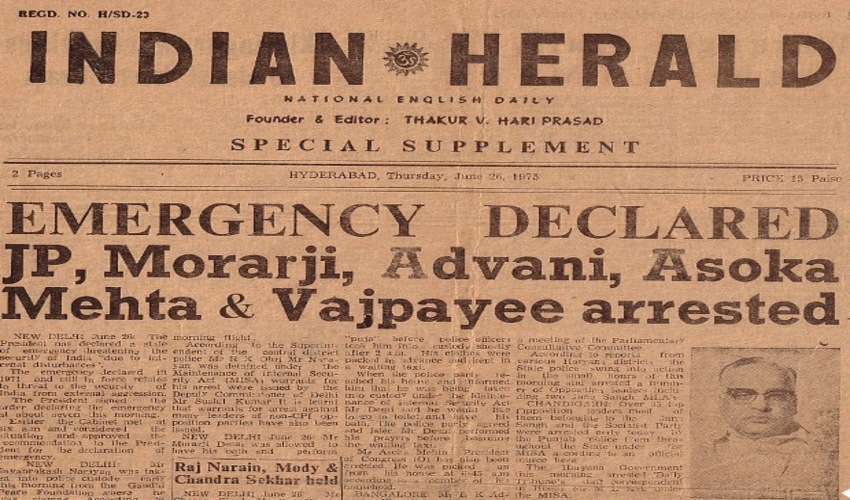
1975 The Emergency Package: Shadow Power -
1975 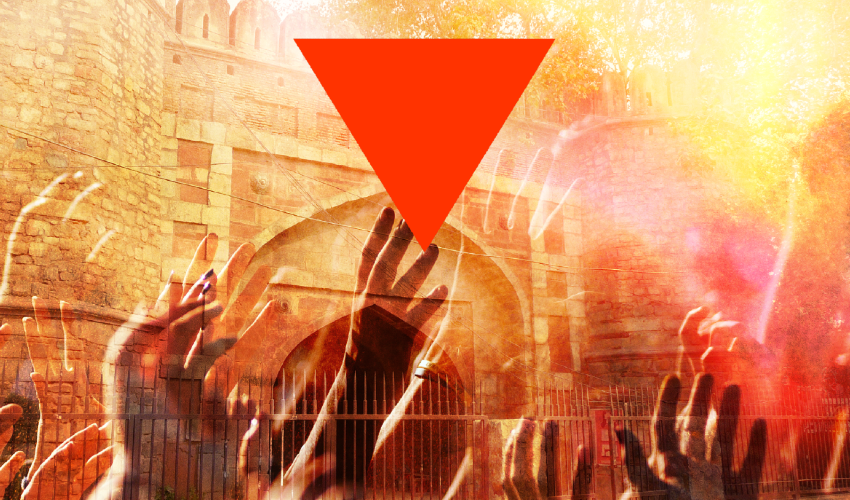
1975 The Emergency Package: The Prehistory of Turkman Gate – Population Control -
1977 – 2011 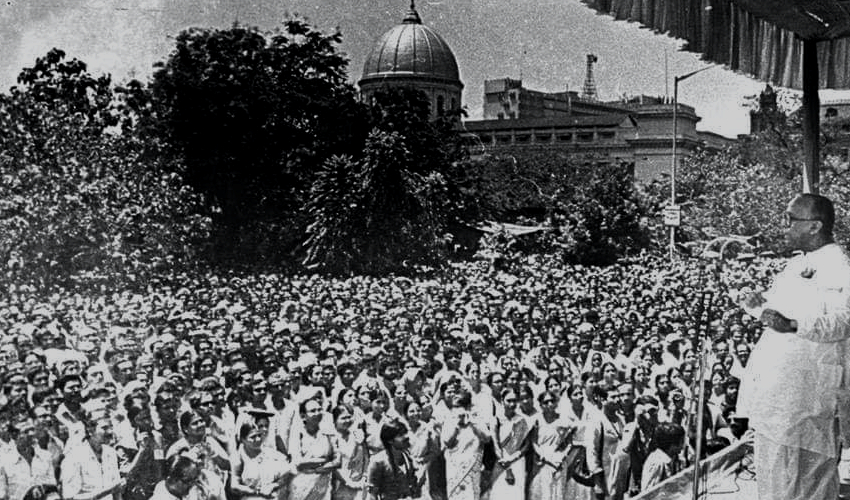
1977 – 2011 Power is an Unforgiving Mistress: Lessons from the Decline of the Left in Bengal -
1984 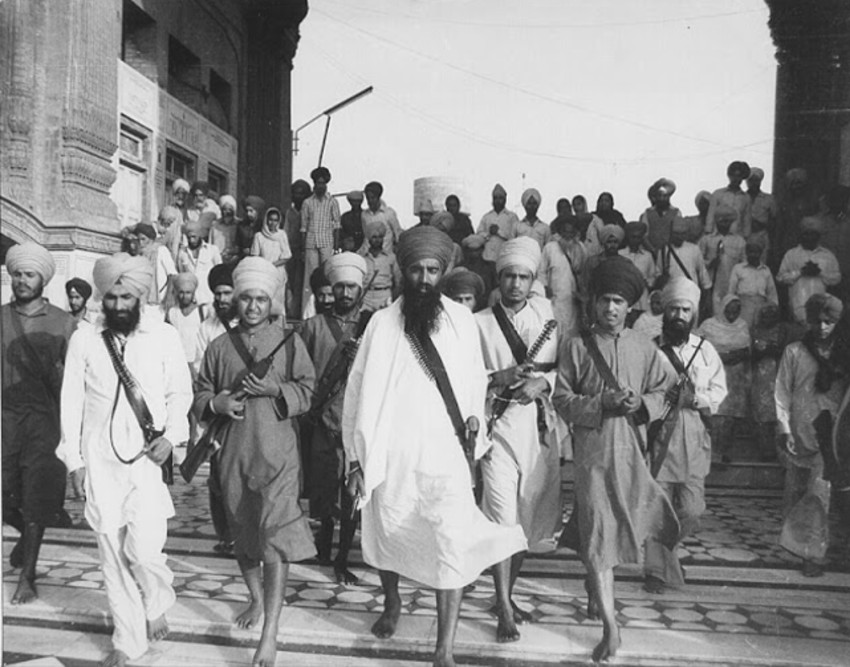
1984 Mrs Gandhi’s Final Folly: Operation Blue Star -
1916-2004 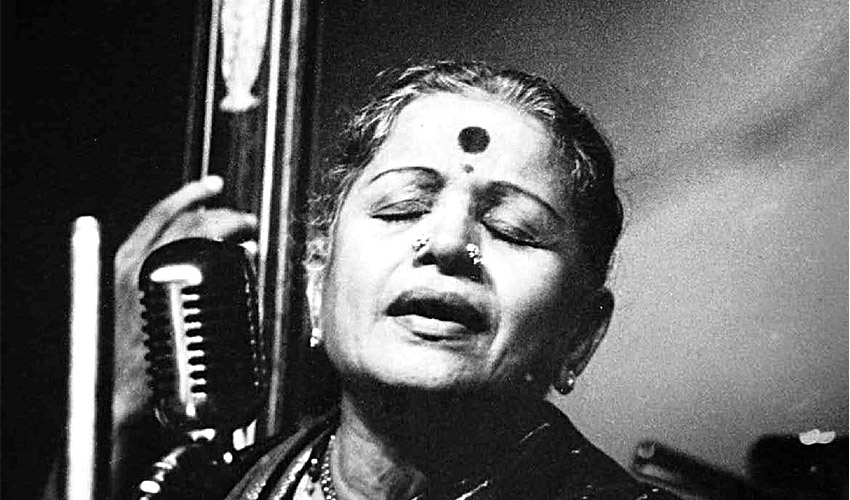
1916-2004 Amjad Ali Khan on M.S. Subbulakshmi: “A Glorious Chapter for Indian Classical Music” -
2008 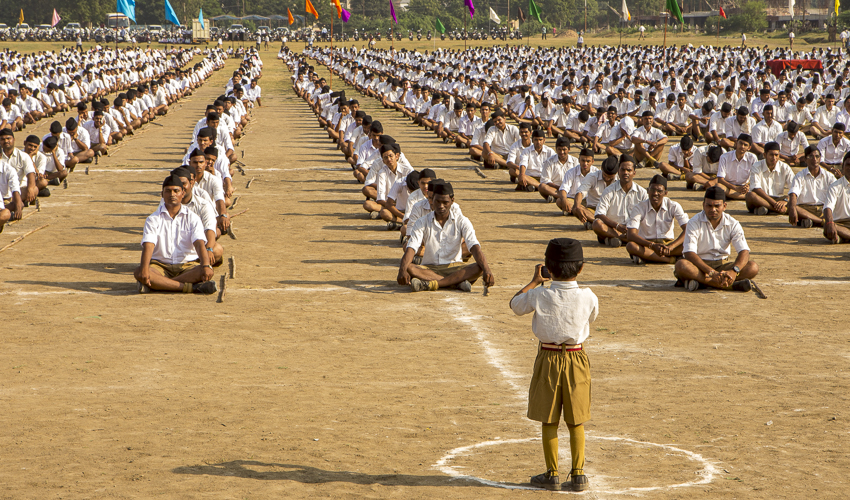
2008 Whose History Textbook Is It Anyway? -
2006 - 2009 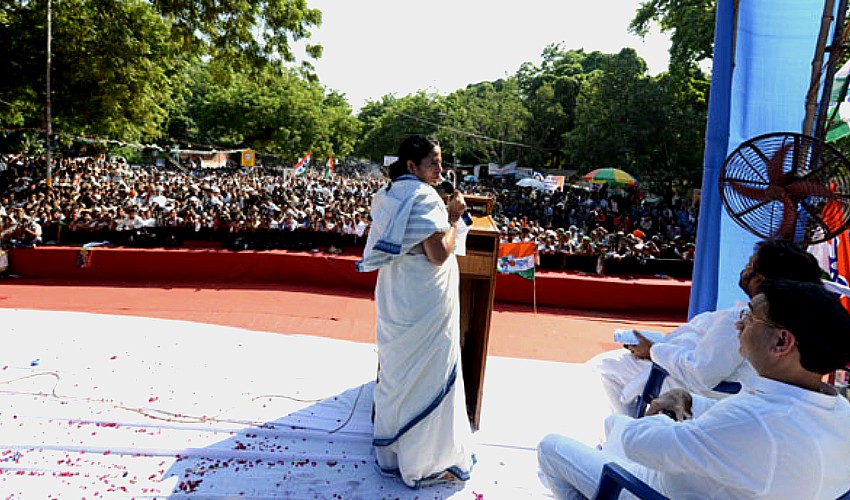
2006 - 2009 Singur-Nandigram-Lalgarh: Movements that Remade Mamata Banerjee -
2020 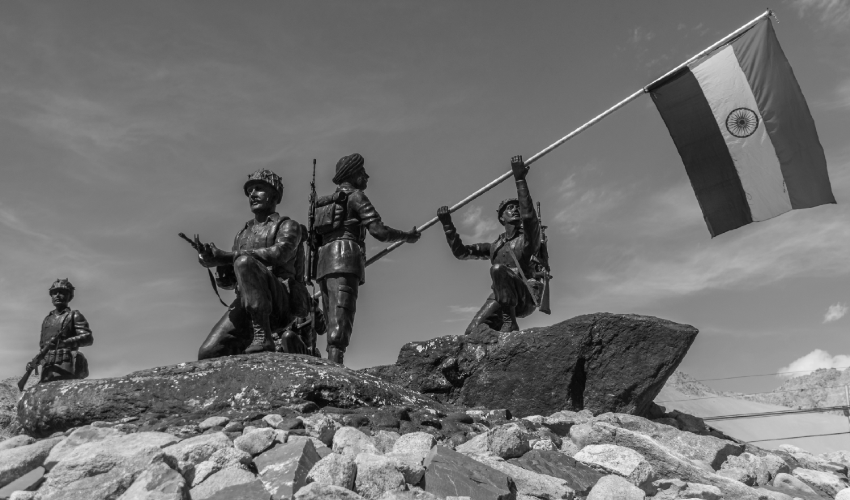
2020 The Indo-China Conflict: 10 Books We Need To Read -
2021 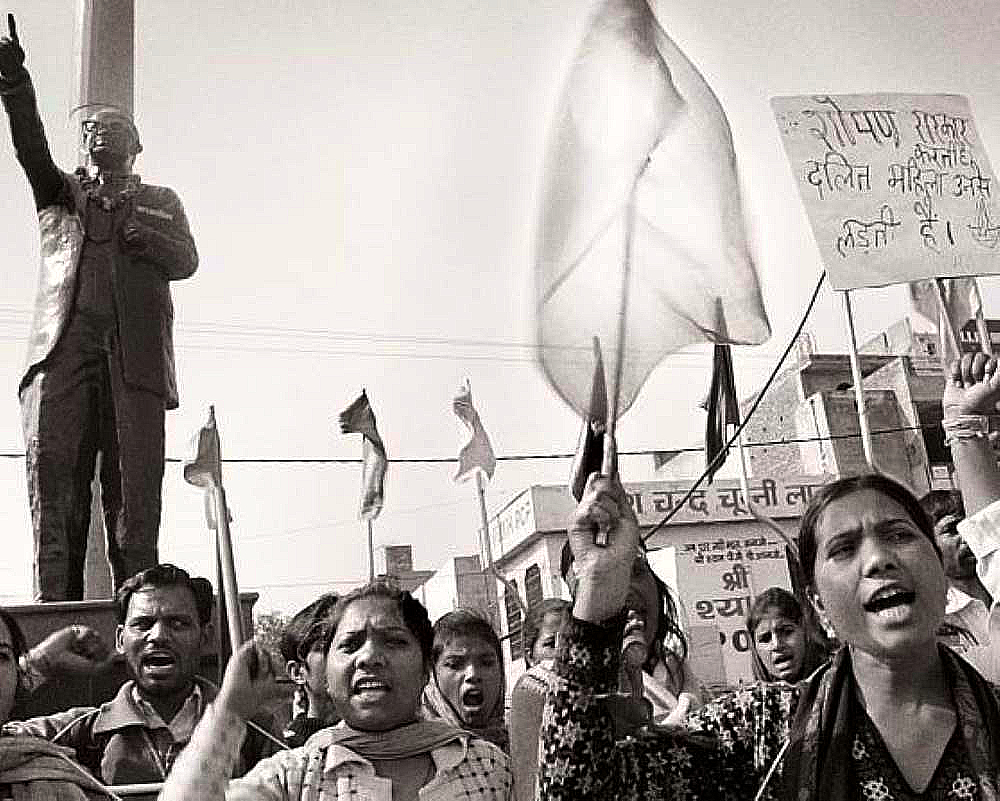
2021 Singing/Writing Liberation: Dalit Women’s Narratives


